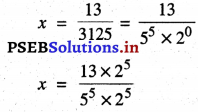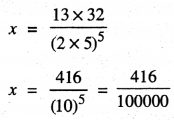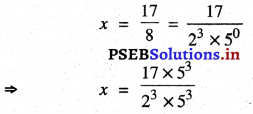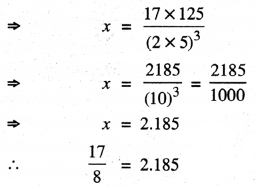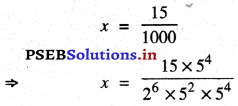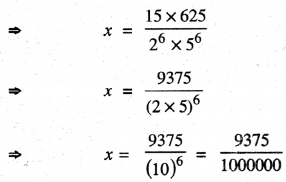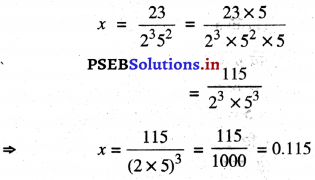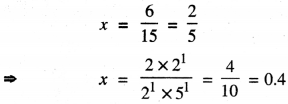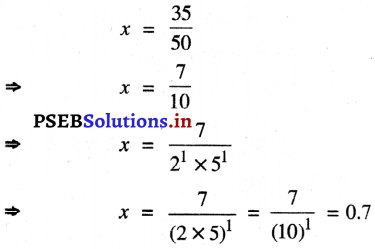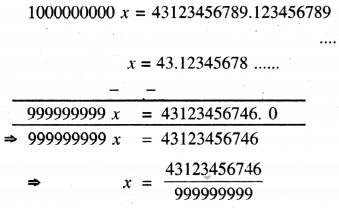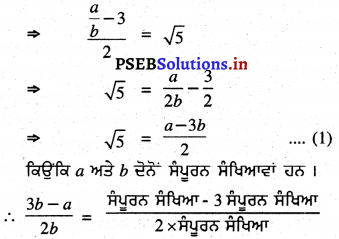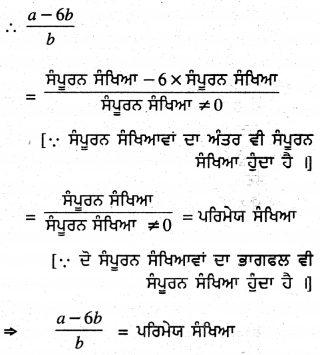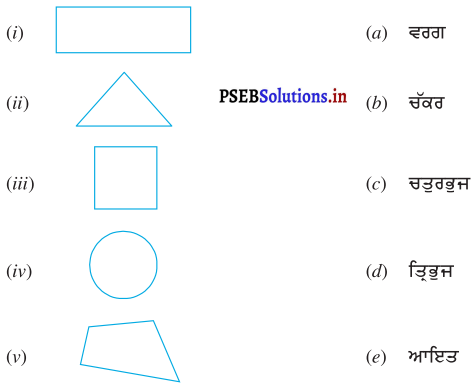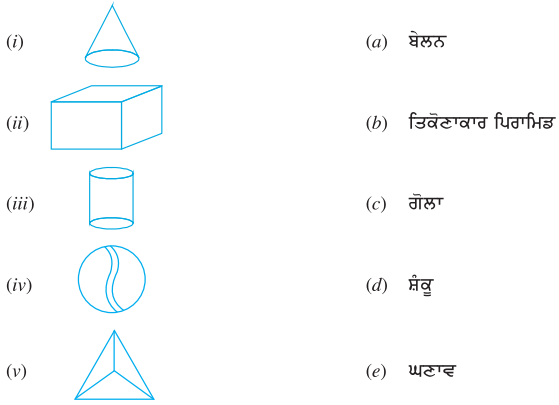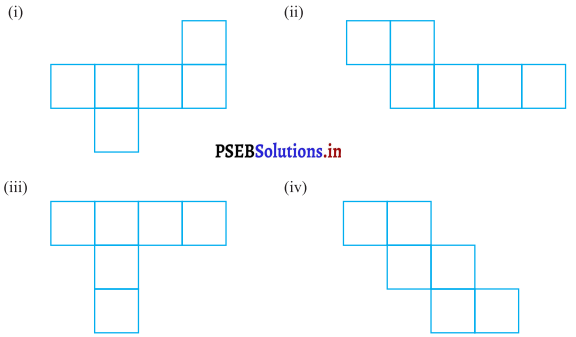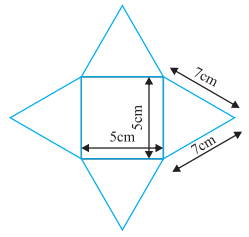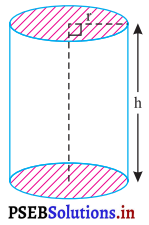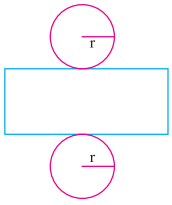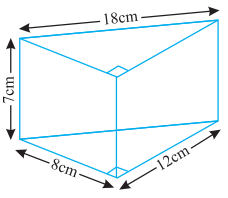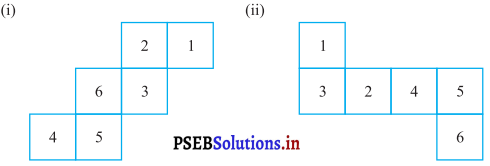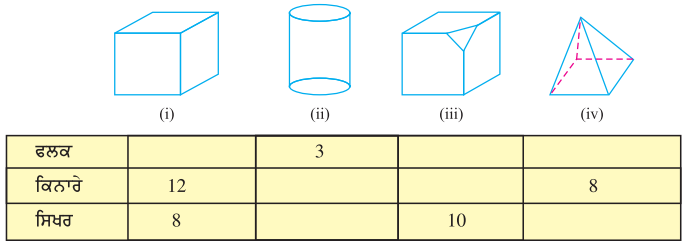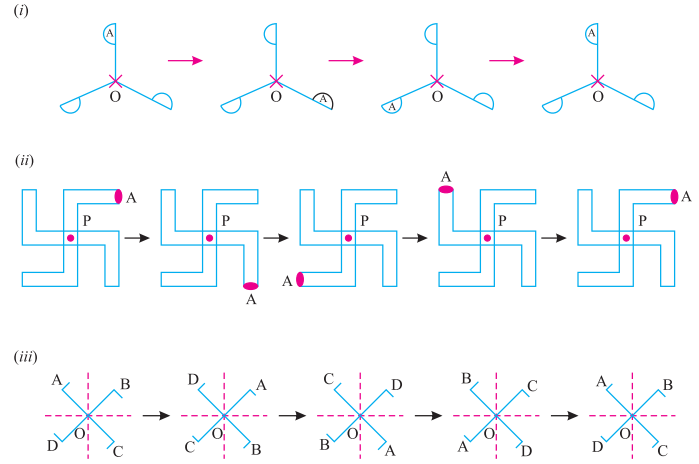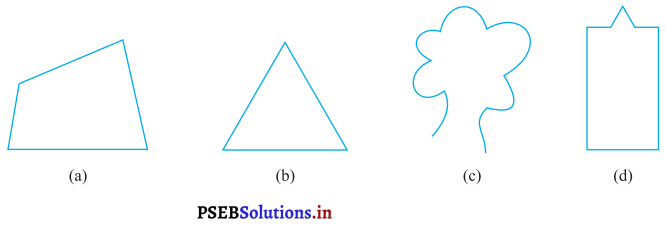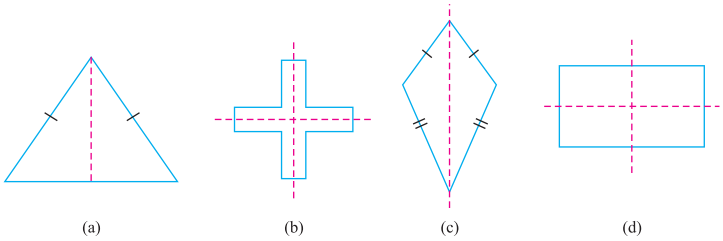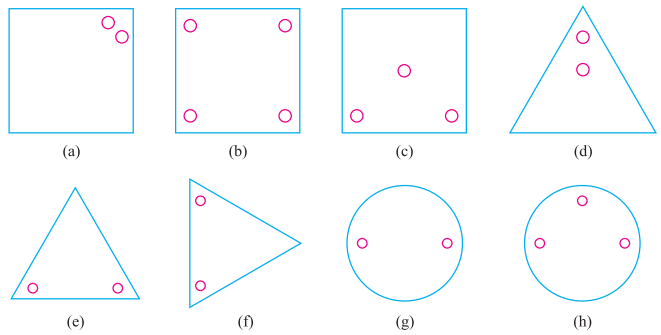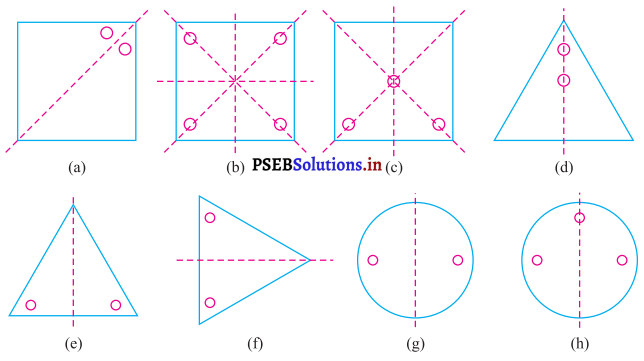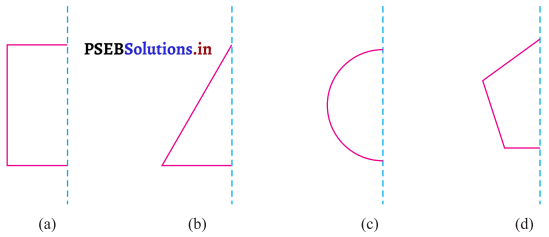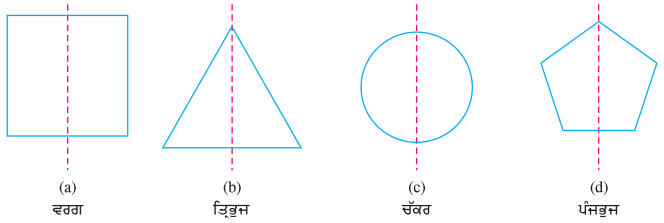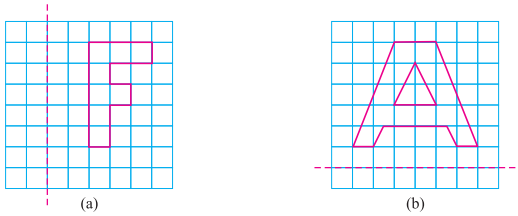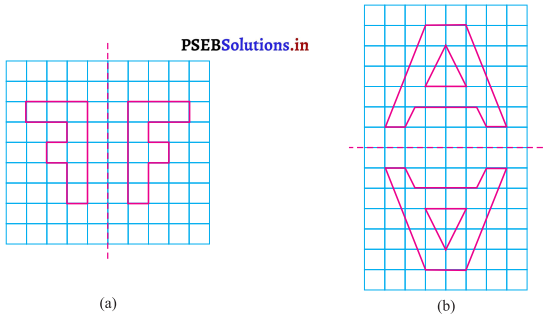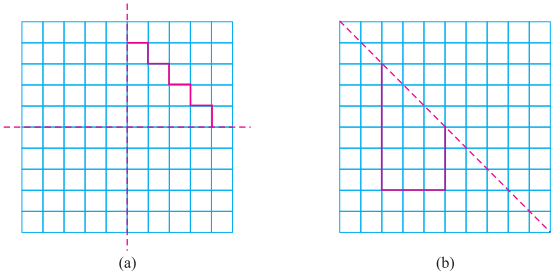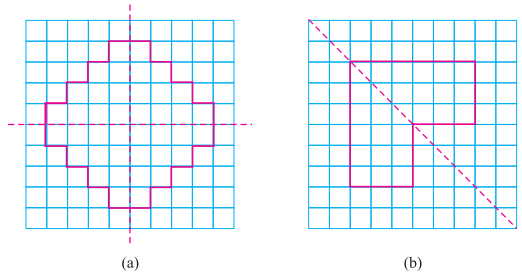Punjab State Board PSEB 8th Class Punjabi Book Solutions Punjabi Rachana ਲੇਖ-ਰਚਨਾ Textbook Exercise Questions and Answers.
PSEB 8th Class Punjabi Rachana ਲੇਖ-ਰਚਨਾ (1st Language)
ਪ੍ਰੀਖਿਆ ਵਿਚ ਲੇਖ ਕਿਵੇਂ ਲਿਖੀਏ ?
ਪ੍ਰੀਖਿਆ ਵਿਚ ਵਿਦਿਆਰਥੀ ਨੂੰ ਚਾਰ ਜਾਂ ਪੰਜ ਵਿਸ਼ਿਆਂ ਵਿਚੋਂ ਕਿਸੇ ਇਕ ਵਿਸ਼ੇ ਉੱਪਰ ਲੇਖ ਲਿਖਣ ਲਈ ਕਿਹਾ ਜਾਵੇਗਾ।
ਲੇਖ ਲਿਖਣ ਲਈ ਵਿਦਿਆਰਥੀਆਂ ਨੂੰ ਹੇਠ ਲਿਖੀਆਂ ਗੱਲਾਂ ਦਾ ਧਿਆਨ ਰੱਖਣਾ ਚਾਹੀਦਾ ਹੈ
1. ਗਿਆਨ ਅਤੇ ਵਿਚਾਰ – ਪ੍ਰੀਖਿਆ ਵਿਚ ਲੇਖ ਲਿਖਣਾ ਆਰੰਭ ਕਰਨ ਤੋਂ ਪਹਿਲਾਂ ਵਿਦਿਆਰਥੀ ਨੂੰ ਇਹ ਦੇਖਣਾ ਚਾਹੀਦਾ ਹੈ ਕਿ ਪੇਪਰ ਵਿਚ ਜਿਹੜੇ ਵਿਸ਼ੇ ਦਿੱਤੇ ਗਏ ਹਨ, ਉਨ੍ਹਾਂ ਵਿਚੋਂ ਉਸ ਨੂੰ ਸਭ ਤੋਂ ਵੱਧ ਗਿਆਨ ਤੇ ਵਾਕਫ਼ੀ ਕਿਸ ਬਾਰੇ ਹੈ।ਉਹ ਜਿਸ ਵਿਸ਼ੇ ਬਾਰੇ ਵੱਧ ਤੋਂ ਵੱਧ ਵਿਚਾਰ ਪੇਸ਼ ਕਰ ਸਕਦਾ ਹੋਵੇ, ਉਸ ਨੂੰ ਉਸੇ ਵਿਸ਼ੇ ਉੱਤੇ ਹੀ ਲੇਖ ਲਿਖਣਾ ਚਾਹੀਦਾ ਹੈ। ਵਿਦਿਆਰਥੀ ਨੂੰ ਆਪਣੇ ਗਿਆਨ ਤੇ ਵਾਕਫ਼ੀ ਵਿਚ ਵਾਧਾ ਕਰਨ ਲਈ ਆਮ ਗਿਆਨ ਦੀਆਂ ਪੁਸਤਕਾਂ, ਅਖ਼ਬਾਰਾਂ, ਰਸਾਲੇ ਤੇ ਲੇਖਾਂ ਦੀਆਂ ਪੁਸਤਕਾਂ ਜ਼ਰੂਰ ਪੜ੍ਹਦੇ ਰਹਿਣਾ ਚਾਹੀਦਾ ਹੈ।

2. ਲਿਖਣ ਦਾ ਢੰਗ – ਲੇਖ ਲਿਖਣ ਦਾ ਉਹੋ ਢੰਗ ਹੀ ਚੰਗਾ ਕਿਹਾ ਜਾ ਸਕਦਾ ਹੈ, ਜਿਸ ਵਿਚ ਹੇਠ ਲਿਖੀਆਂ ਗੱਲਾਂ ਦਾ ਧਿਆਨ ਰੱਖਿਆ ਗਿਆ ਹੋਵੇ –
(ੳ) ਆਦਿ, ਮੱਧ ਤੇ ਅੰਤ – ਲੇਖ ਦਾ ਆਦਿ ਆਰੰਭ) ਵਿਸ਼ੇ ਸੰਬੰਧੀ ਸੰਖੇਪ ਜਿਹੀ ਤੇ ਭਾਵਪੂਰਤ ਜਾਣਕਾਰੀ ਨਾਲ ਹੋਣਾ ਚਾਹੀਦਾ ਹੈ। ਇਸ ਨੂੰ ਲੇਖ ਦੀ ‘ਪ੍ਰਸਤਾਵਨਾ’ ਜਾਂ ‘ਭੂਮਿਕਾ’ ਵੀ ਕਿਹਾ ਜਾਂਦਾ ਹੈ। ਜੇਕਰ ਵਿਦਿਆਰਥੀ ਲੇਖ ਦਾ ਆਰੰਭ ਚੰਗਾ ਕਰ ਲਵੇ, ਤਾਂ ਸਮਝੋ ਅੱਧਾ ਲੇਖ ਲਿਖਿਆ ਗਿਆ ਹੈ।
ਲੇਖ ਦੇ ਮੱਧ ਵਿਚ ਵਿਸ਼ੇ ਦੇ ਭਿੰਨ – ਭਿੰਨ ਪੱਖਾਂ ਨੂੰ ਲੈ ਕੇ ਵਿਚਾਰ ਕਰਨਾ ਚਾਹੀਦਾ ਹੈ। ਲੇਖ ਦਾ ਇਹ ਭਾਗ ਆਰੰਭ ਤੇ ਅੰਤ ਨਾਲੋਂ ਵੱਡਾ ਹੁੰਦਾ ਹੈ।
ਲੇਖ ਦੇ ਅੰਤ ਵਿਚ ਸਮੁੱਚੇ ਵਿਚਾਰਾਂ ਦਾ ਸਿੱਟਾ ਪੇਸ਼ ਕੀਤਾ ਜਾਂਦਾ ਹੈ। ਇਸ ਨੂੰ ਸਾਰ – ਅੰਸ਼ ਵੀ ਕਿਹਾ ਜਾਂਦਾ ਹੈ। ਲੇਖ ਦਾ ਇਹ ਭਾਗ ਬਹੁਤ ਹੀ ਪ੍ਰਭਾਵਸ਼ਾਲੀ ਹੋਣਾ ਚਾਹੀਦਾ ਹੈ।
(ਆ) ਲੜੀਬੱਧਤਾ – ਵਿਦਿਆਰਥੀ ਨੂੰ ਚਾਹੀਦਾ ਹੈ ਕਿ ਉਹ ਲੇਖ ਵਿਚ ਆਪਣੇ ਵਿਚਾਰਾਂ ਨੂੰ ਲੜੀਬੱਧ ਰੂਪ ਵਿਚ ਪੇਸ਼ ਕਰੇ।ਉਸ ਦੇ ਵਿਚਾਰ ਉਗੜ – ਦੁਗੜੇ ਤੇ ਬੇ – ਤਰਤੀਬੇ ਨਹੀਂ ਹੋਣੇ ਚਾਹੀਦੇ। ਭਾਵ ਟੈਲੀਵਿਜ਼ਨ ਦੇ ਲਾਭ ਤੇ ਹਾਨੀਆਂ ਲਿਖਦੇ ਸਮੇਂ ਇਹ ਨਹੀਂ ਹੋਣਾ ਚਾਹੀਦਾ ਕਿ ਕਦੇ ਉਸ ਦਾ ਲਾਭ ਲਿਖਿਆ ਜਾਵੇ ਤੇ ਕਦੀ ਹਾਨੀ, ਸਗੋਂ ਲਾਭ ਇਕ ਲੜੀ ਵਿਚ ਲਿਖਣੇ ਚਾਹੀਦੇ ਹਨ ਤੇ ਹਾਨੀਆਂ ਦੂਜੀ ਲੜੀ ਵਿਚ। ਫਿਰ ਸਭ ਤੋਂ ਵੱਡਾ ਲਾਭ ਪਹਿਲਾਂ ਲਿਖਣਾ ਚਾਹੀਦਾ ਹੈ ਤੇ ਛੋਟਾ ਲਾਭ ਮਗਰੋਂ।
(ਈ) ਬੋਲੀ ਤੇ ਸ਼ਬਦ ਚੋਣ – ਵਿਦਿਆਰਥੀ ਨੂੰ ਲੇਖ ਸਰਲ ਅਤੇ ਸੌਖੀ ਬੋਲੀ ਵਿਚ ਲਿਖਣਾ ਚਾਹੀਦਾ ਹੈ। ਉਸ ਨੂੰ ਆਪਣੇ ਵਿਚਾਰਾਂ ਤੇ ਭਾਵਾਂ ਦੇ ਅਨੁਸਾਰ ਢੁੱਕਵੇਂ ਸ਼ਬਦਾਂ ਨੂੰ ਚੁਣ ਕੇ ਉਨ੍ਹਾਂ ਦੀ ਵਰਤੋਂ ਕਰਨੀ ਚਾਹੀਦੀ ਹੈ।
(ਸ) ਵਾਕ ਤੇ ਪੈਰੇ – ਲੇਖ ਛੋਟੇ – ਛੋਟੇ ਤੇ ਭਾਵ – ਪੂਰਤ ਵਾਕਾਂ ਨਾਲ ਲਿਖਣਾ ਚਾਹੀਦਾ ਹੈ ਤੇ ਜਿੱਥੋਂ ਨਵਾਂ ਵਿਚਾਰ ਸ਼ੁਰੂ ਹੋਵੇ, ਉੱਥੋਂ ਨਵਾਂ ਪੈਰਾ ਬਣਾਉਣਾ ਚਾਹੀਦਾ ਹੈ।
(ਹ) ਹਵਾਲੇ ਤੇ ਟੂਕਾਂਵਿਦਿਆਰਥੀ ਆਪਣੇ ਵਿਚਾਰਾਂ ਨੂੰ ਪ੍ਰਭਾਵਸ਼ਾਲੀ ਬਣਾਉਣ ਤੇ ਸਪੱਸ਼ਟ ਕਰਨ ਲਈ ਮਹਾਂਪੁਰਖਾਂ ਦੇ ਕਥਨਾਂ ਤੇ ਕਵਿਤਾ ਦੀਆਂ ਸਤਰਾਂ ਦੀ ਵਰਤੋਂ ਵੀ ਕਰ ਸਕਦਾ ਹੈ।
(ਕਿ) ਸ਼ਬਦ – ਜੋੜ ਤੇ ਵਿਸਰਾਮ ਚਿੰਨ੍ਹ – ਲੇਖ ਲਿਖਦੇ ਸਮੇਂ ਵਿਦਿਆਰਥੀ ਨੂੰ ਸ਼ਬਦ – ਜੋੜਾਂ ਦਾ ਪੂਰਾ – ਪੂਰਾ ਖ਼ਿਆਲ ਰੱਖਣਾ ਚਾਹੀਦਾ ਹੈ ਤੇ ਵਿਸਰਾਮ ਚਿੰਨ੍ਹਾਂ ਦੀ ਠੀਕ – ਠੀਕ ਵਰਤੋਂ ਕਰਨੀ ਚਾਹੀਦੀ ਹੈ।
ਲੇਖ
1. ਗੁਰੂ ਨਾਨਕ ਦੇਵ ਜੀ
ਸਤਿਗੁਰ ਨਾਨਕ ਪ੍ਰਗਟਿਆ, ਮਿਟੀ ਧੁੰਧ ਜਗ ਚਾਨਣ ਹੋਆ ॥
ਜਿਉ ਕਰਿ ਸੂਰਜੁ ਨਿਕਲਿਆ, ਤਾਰੇ ਛਪਿ ਅੰਧੇਰ ਪਲੋਆ ॥ (ਭਾਈ ਗੁਰਦਾਸ)
ਜਨਮ ਤੇ ਮਾਤਾ – ਪਿਤਾ – ਗੁਰੂ ਨਾਨਕ ਦੇਵ ਜੀ ਸਿੱਖ ਧਰਮ ਦੇ ਮੋਢੀ ਸਨ। ਆਪ ਦਾ ਜਨਮ 15 ਅਪਰੈਲ, 1469 ਈ: ਨੂੰ ਰਾਏ ਭੋਇੰ ਦੀ ਤਲਵੰਡੀ (ਅੱਜ – ਕੱਲ੍ਹ ਨਨਕਾਣਾ ਸਾਹਿਬ, ਪਾਕਿਸਤਾਨ) ਵਿਖੇ ਹੋਇਆ।ਉਂਝ ਆਪ ਦਾ ਜਨਮ – ਦਿਨ ਕੱਤਕ ਦੀ ਪੂਰਨਮਾਸ਼ੀ ਨੂੰ ਮਨਾਉਣ ਦੀ ਰਵਾਇਤ ਹੈ। ਆਪ ਦੇ ਪਿਤਾ ਜੀ ਦਾ ਨਾਂ ਮਹਿਤਾ ਕਾਲੂ ਸੀ। ਆਪ ਦੀ ਮਾਤਾ ਦਾ ਨਾਂ ਤ੍ਰਿਪਤਾ ਜੀ ਸੀ।
ਸਮਕਾਲੀ ਹਾਲਤ – ਜਿਸ ਸਮੇਂ ਆਪ ਸੰਸਾਰ ਵਿਚ ਆਏ, ਉਸ ਸਮੇਂ ਹਰ ਪਾਸੇ ਜਬਰ – ਜ਼ੁਲਮ ਹੋ ਰਿਹਾ ਸੀ। ਉਸ ਸਮੇਂ ਦੇ ਰਾਜੇ ਬਘਿਆੜਾਂ ਦਾ ਰੂਪ ਧਾਰਨ ਕਰ ਚੁੱਕੇ ਸਨ ਅਤੇ ਉਨ੍ਹਾਂ ਦੇ ਅਮੀਰ – ਵਜ਼ੀਰ ਕੁੱਤਿਆਂ ਦਾ ਰੂਪ ਧਾਰ ਕੇ ਜਨਤਾ ਦਾ ਲਹੂ ਪੀ ਰਹੇ ਸਨ ਧਰਮ ਵਿਚ ਪਾਖੰਡ ਤੇ ਅੰਧ – ਵਿਸ਼ਵਾਸ ਪ੍ਰਧਾਨ ਸੀ। ਸਮਾਜ ਵਿਚ ਊਚ – ਨੀਚ ਤੇ ਛੂਤ – ਛਾਤ ਦਾ ਜ਼ੋਰ ਸੀ। ਇਸ ਅਵਸਥਾ ਦਾ ਜ਼ਿਕਰ ਆਪ ਦੀ ਬਾਣੀ ਵਿਚ ਇਸ ਤਰ੍ਹਾਂ ਕੀਤਾ ਗਿਆ ਹੈ –

ਕਲਿ ਕਾਤੀ ਰਾਜੇ ਕਾਸਾਈ ਧਰਮੁ ਪੰਖ ਕਰਿ ਉਡਰਿਆ।
ਕੂੜ ਅਮਾਵਸ ਸਚੁ ਚੰਦਰਮਾ ਦੀਸੈ ਨਾਹੀਂ ਕਹਿ ਚੜਿਆ।
ਵਿੱਦਿਆ – ਸੱਤ ਸਾਲ ਦੀ ਉਮਰ ਵਿਚ ਆਪ ਨੂੰ ਪਾਂਧੇ ਕੋਲ ਪੜ੍ਹਨ ਲਈ ਭੇਜਿਆ ਗਿਆ। ਆਪ ਨੇ ਪਾਂਧੇ ਨੂੰ ਆਪਣੇ ਵਿਚਾਰ ਦੱਸ ਕੇ ਨਿਹਾਲ ਕੀਤਾ।
ਸੱਚਾ ਸੌਦਾ – ਜਵਾਨ ਹੋਣ ‘ਤੇ ਆਪ ਦਾ ਮਨ ਪਿਤਾ ਜੀ ਦੀ ਇੱਛਾ ਦੇ ਉਲਟ ਘਰ ਦੇ ਕੰਮਾਂ ਵਿਚ ਨਾ ਲੱਗਾ। ਇਕ ਵਾਰ ਆਪ ਦੇ ਪਿਤਾ ਜੀ ਨੇ ਆਪ ਨੂੰ 20 ਰੁਪਏ ਦੇ ਕੇ ਕੋਈ ਸੱਚਾ ਸੌਦਾ ਕਰਨ ਲਈ ਭੇਜਿਆ, ਪਰ ਆਪ ਉਹ 20 ਰੁਪਏ ਸੰਤਾਂ – ਸਾਧਾਂ ਦੇ ਭੋਜਨ ਉੱਤੇ ਖ਼ਰਚ ਕਰ ਆਏ। ਇਸ ਗੱਲ ਕਰਕੇ ਪਿਤਾ ਕਾਲੂ ਆਪ ਨੂੰ ਬਹੁਤ ਗੁੱਸੇ ਹੋਏ।
ਸੁਲਤਾਨਪੁਰ ਵਿਚ – ਪੁੱਤਰ ਨੂੰ ਘਰ ਦੇ ਕੰਮਾਂ ਤੇ ਵਪਾਰ ਵਿਚ ਦਿਲਚਸਪੀ ਨਾ ਲੈਂਦਾ ਦੇਖ ਕੇ ਅੰਤ ਪਿਤਾ ਕਾਲੂ ਨੇ ਆਪ ਨੂੰ ਆਪ ਦੀ ਭੈਣ ਬੇਬੇ ਨਾਨਕੀ ਕੋਲ ਸੁਲਤਾਨਪੁਰ ਭੇਜ ਦਿੱਤਾ। ਇੱਥੇ ਆਪ ਨੇ ਨਵਾਬ ਦੌਲਤ ਖਾਂ ਲੋਧੀ ਦਾ ਮੋਦੀਖ਼ਾਨਾ ਚਲਾਇਆ।
ਵੇਈਂ ਵੇਸ਼ – ਸੁਲਤਾਨਪੁਰ ਵਿਚ ਹੀ ਇਕ ਦਿਨ ਆਪ ਵੇਈਂ ਨਦੀ ਵਿਚ ਇਸ਼ਨਾਨ ਕਰਨ ਗਏ ਤੇ ਤਿੰਨ ਦਿਨ ਅਲੋਪ ਰਹੇ। ਇਸ ਸਮੇਂ ਆਪ ਨੂੰ ਨਿਰੰਕਾਰ ਵਲੋਂ ਸੰਸਾਰ ਦਾ ਕਲਿਆਣ ਕਰਨ ਦਾ ਸੁਨੇਹਾ ਪ੍ਰਾਪਤ ਹੋਇਆ ਆਪ ਨੇ ਨਾਅਰਾ ਦਿੱਤਾ, “ਨਾ ਕੋਈ ਹਿੰਦੂ, ਨਾ ਮੁਸਲਮਾਨ।”
ਚਾਰ ਉਦਾਸੀਆਂ – ਇਸ ਤੋਂ ਪਿੱਛੋਂ ਆਪ ਨੇ ਸੰਸਾਰ ਨੂੰ ਤਾਰਨ ਲਈ ਪੂਰਬ, ਦੱਖਣ, ਉੱਤਰ ਤੇ ਪੱਛਮ ਦੀਆਂ ਚਾਰ ਉਦਾਸੀਆਂ ਕੀਤੀਆਂ ਤੇ ਸੰਸਾਰ ਨੂੰ ਸੱਚ ਦਾ ਉਪਦੇਸ਼ ਦਿੱਤਾ। ਇਸ ਸਮੇਂ ਵਿਚ ਹੀ ਆਪ ਨੇ ਕਰਤਾਰਪੁਰ (ਪਾਕਿਸਤਾਨ) ਵਸਾਇਆ।
ਸਰਬ – ਸਾਂਝੇ ਗੁਰੂ – ਗੁਰੂ ਸਾਹਿਬ ਦੇ ਜੀਵਨ ਨਾਲ ਬਹੁਤ ਸਾਰੀਆਂ ਕਰਾਮਾਤਾਂ ਸੰਬੰਧਿਤ ਹਨ। ਆਪ ਦੇ ਵਿਚਾਰਾਂ ਦਾ ਹਰ ਇਕ ਦੇ ਮਨ ਉੱਪਰ ਡੂੰਘਾ ਪ੍ਰਭਾਵ ਪਿਆ ਆਪ ‘ਹਿੰਦੁਆਂ ਦੇ ਗੁਰੂ ਤੇ ਮੁਸਲਮਾਨਾਂ ਦੇ ਪੀਰ’ ਕਹਾਏ। ਆਪ ਨੇ ਭੇਖ, ਪਾਖੰਡ ਤੇ ਕਰਮ – ਕਾਂਡ ਦਾ ਖੰਡਨ ਕੀਤਾ ਤੇ ਨੇਕ ਅਮਲਾਂ ਅਤੇ ਉੱਚੇ ਆਚਰਨ ਉੱਤੇ ਜ਼ੋਰ ਦਿੱਤਾ ਆਪ ਨੇ ਇਸਤਰੀ ਨੂੰ ਸਮਾਜ ਵਿਚ ਉੱਚਾ ਦਰਜਾ ਦਿੰਦਿਆਂ ਕਿਹਾ –
ਸੋ ਕਿਉ ਮੰਦਾ ਆਖੀਐ, ਜਿਤੁ ਜੰਮੇ ਰਾਜਾਨੁ।
ਮਹਾਨ ਕਵੀ ਤੇ ਸੰਗੀਤਕਾਰ – ਗੁਰੂ ਨਾਨਕ ਦੇਵ ਜੀ ਇਕ ਮਹਾਨ ਕਵੀ ਅਤੇ ਸੰਗੀਤਕਾਰ ਸਨ। ਆਪ ਦੀ ਬਾਣੀ ਸ੍ਰੀ ਗੁਰੂ ਗ੍ਰੰਥ ਸਾਹਿਬ ਵਿਚ ਦਰਜ ਹੈ। ‘ਜਪੁਜੀ’ ਤੇ ‘ਆਸਾ ਦੀ ਵਾਰ` ਆਪ ਦੀਆਂ ਪ੍ਰਸਿੱਧ ਬਾਣੀਆਂ ਹਨ।
ਨਿਡਰ ਦੇਸ਼ – ਭਗਤ – ਆਪ ਇਕ ਨਿਡਰ ਦੇਸ਼ – ਭਗਤ ਸਨ। ਆਪ ਨੇ ਬਾਬਰ ਦੇ ਜ਼ਲਮਾਂ ਵਿਰੁੱਧ ਬੜੀ ਨਿਡਰਤਾ ਨਾਲ ਅਵਾਜ਼ ਉਠਾਈ ਤੇ ਰੱਬ ਨੂੰ ਇਸ ਦਾ ਉਲਾਹਮਾ ਦਿੰਦੇ ਹੋਏ ਕਿਹਾ ਏਤੀ ਮਾਰ ਪਈ ਕੁਰਲਾਣੈ, ਤੈਂ ਕੀ ਦਰਦੁ ਨ ਆਇਆ।
ਹਿਸਤ ਜੀਵਨ – ਆਪ ਹਿਸਤੀ ਸਨ। ਆਪ ਦੇ ਘਰ ਦੋ ਸਪੁੱਤਰ ਬਾਬਾ ਸ੍ਰੀ ਚੰਦ ਤੇ ਬਾਬਾ ਲਖਮੀ ਦਾਸ ਹੋਏ। ਆਪ ਨੇ ਹਿਸਤ ਧਰਮ ਨੂੰ ਸਭ ਧਰਮਾਂ ਨਾਲੋਂ ਉੱਤਮ ਦੱਸਿਆ।
ਅੰਤਿਮ ਸਮਾਂ – ਆਪ ਨੇ ਆਪਣਾ ਅੰਤਿਮ ਸਮਾਂ ਕਰਤਾਰਪੁਰ (ਪਾਕਿਸਤਾਨ) ਵਿਚ ਗੁਜ਼ਾਰਿਆ ॥ ਇੱਥੇ ਆਪ ਨੇ ਸਤਿਸੰਗ ਤੇ ਸਾਂਝੇ ਲੰਗਰ ਦਾ ਪਰਵਾਹ ਚਲਾਇਆ। ਇੱਥੇ ਹੀ ਆਪ ਨੇ ਆਪਣੀ ਗੱਦੀ ਦਾ ਵਾਰਸ ਭਾਈ ਲਹਿਣਾ ਨੂੰ ਚੁਣਿਆ ਤੇ ਉਨ੍ਹਾਂ ਨੂੰ ਗੁਰੂ ਅੰਗਦ ਦੇਵ ਦੇ ਨਾਂ ਨਾਲ ਸੁਸ਼ੋਭਿਤ ਕੀਤਾ। 22 ਸਤੰਬਰ, 1539 ਈ: ਨੂੰ ਆਪ ਕਰਤਾਰਪੁਰ ਵਿਖੇ ਜੋਤੀ – ਜੋਤ ਸਮਾ ਗਏ।

2. ਗੁਰੂ ਗੋਬਿੰਦ ਸਿੰਘ ਜੀ
ਦੇ ਦਸਵੇਂ ਗੁਰੂ ਤੇ ਸੰਤ ਸਿਪਾਹੀ – ਗੁਰੂ ਗੋਬਿੰਦ ਸਿੰਘ ਜੀ ਸਿੱਖਾਂ ਦੇ ਦਸਵੇਂ ਗੁਰੂ ਹੋਏ ਹਨ। ਆਪ ਸੰਤ – ਸਿਪਾਹੀ ਸਨ ਆਪ ਨੇ ਜ਼ੁਲਮ ਦਾ ਨਾਸ਼ ਕਰਨ ਲਈ ਭਗਤੀ ਦੇ ਨਾਲ ਸ਼ਕਤੀ ਦੀ ਵਰਤੋਂ ਨੂੰ ਜਾਇਜ਼ ਦੱਸਿਆ ਆਪ ਨੇ ਦੱਬੇ – ਕੁਚਲੇ ਲੋਕਾਂ ਦੇ ਹੱਥਾਂ ਵਿਚ ਤਲਵਾਰ ਤੇ ਦੋ – ਧਾਰਾ ਖੰਡਾ ਫੜਾਇਆ ਤੇ ਉਨ੍ਹਾਂ ਨੂੰ ਗਿੱਦੜਾਂ ਤੋਂ ਸ਼ੇਰ ਬਣਾਇਆ। ਆਪ ਮਹਾਨ ਕਵੀ, ਬਹਾਦਰ ਜਰਨੈਲ ਤੇ ਦੁਖੀਆਂ ਦੇ ਦੁੱਖ ਦੂਰ ਕਰਨ ਵਾਲੇ ਸਨ। ਆਪ ਦੇ ਵਿਅਕਤਿੱਤਵ ਦੀ ਮਹਿਮਾ ਕਰਦਾ ਹੋਇਆ ਕਵੀ ਗੁਰਦਾਸ ਸਿੰਘ ਲਿਖਦਾ ਹੈ –
ਵਾਹੁ ਪ੍ਰਗਟਿਉ ਮਰਦ ਅਗੰਮੜਾ ਵਰਿਆਮ ਇਕੇਲਾ ॥
ਵਾਹੁ ਵਾਹੁ ਗੋਬਿੰਦ ਸਿੰਘ ਆਪੇ ਗੁਰੁ ਚੇਲਾ।
ਜਨਮ ਤੇ ਮਾਤਾ – ਪਿਤਾ – ਆਪ ਦਾ ਜਨਮ 1666 ਈ: ਵਿਚ ਪਟਨਾ ਸਾਹਿਬ ਵਿਚ ਮਾਤਾ ਗੁਜਰੀ ਜੀ ਦੀ ਕੁੱਖੋਂ ਹੋਇਆ। ਗੁਰੂ ਤੇਗ਼ ਬਹਾਦਰ ਜੀ ਆਪ ਦੇ ਪਿਤਾ ਸਨ।
ਮੁੱਢਲਾ ਜੀਵਨ – ਬਾਲ ਗੁਰੂ ਜੀ ਨੇ ਆਪਣੇ ਮੁੱਢਲੇ 4 ਸਾਲ ਪਟਨੇ ਵਿਚ ਬਿਤਾਏ। ਆਪ ਆਪਣੇ ਹਾਣੀਆਂ ਨਾਲ ਕਈ ਤਰ੍ਹਾਂ ਦੇ ਚੋਜ ਕਰਦੇ ਰਹਿੰਦੇ ਸਨ ! ਆਪ ਬੱਚਿਆਂ ਦੀਆਂ ਫ਼ੌਜਾਂ ਬਣਾ ਕੇ ਇਕ ਦੂਸਰੇ ਦੇ ਵਿਰੁੱਧ ਨਕਲੀ ਲੜਾਈਆਂ ਕਰਦੇ ਹੁੰਦੇ ਸਨ।
ਆਨੰਦਪੁਰ ਆਉਣਾ – 1672 ਈ: ਵਿਚ ਆਪ ਦੇ ਪਿਤਾ ਜੀ ਪਟਨੇ ਨੂੰ ਛੱਡ ਕੇ ਆਨੰਦਪੁਰ ਆ ਗਏ।ਇੱਥੇ ਆਪ ਦੇ ਪਿਤਾ ਜੀ ਨੇ ਆਪ ਨੂੰ ਸ਼ਸਤਰ ਵਿੱਦਿਆ ਤੇ ਧਾਰਮਿਕ ਵਿੱਦਿਆ ਦਿੱਤੀ।
ਪਿਤਾ ਦੀ ਕੁਰਬਾਨੀ – ਮੁਗ਼ਲ ਬਾਦਸ਼ਾਹ ਔਰੰਗਜ਼ੇਬ ਨੇ ਹਿੰਦੂ ਧਰਮ ਨੂੰ ਖ਼ਤਮ ਕਰਨ ਲਈ ਅੱਤ ਚੁੱਕੀ ਹੋਈ ਸੀ। ਹਿੰਦੂ ਜਨਤਾ ਉਸ ਦੇ ਜ਼ੁਲਮਾਂ ਤੋਂ ਬਹੁਤ ਤੰਗ ਆਈ ਹੋਈ ਸੀ। ਕਸ਼ਮੀਰੀ ਪੰਡਿਤ ਦੁਖੀ ਹੋ ਕੇ ਗੁਰੂ ਤੇਗ਼ ਬਹਾਦਰ ਸਾਹਿਬ ਦੇ ਕੋਲ ਸਹਾਇਤਾ ਲਈ ਆਏ। ਉਸ ਸਮੇਂ ਆਪ ਕੇਵਲ 9 ਸਾਲਾਂ ਦੇ ਸਨ। ਆਪ ਨੇ ਆਪਣੇ ਪਿਤਾ ਜੀ ਨੂੰ ਔਰੰਗਜ਼ੇਬ ਦੇ ਜ਼ੁਲਮਾਂ ਵਿਰੁੱਧ ਕੁਰਬਾਨੀ ਦੇਣ ਲਈ ਦਿੱਲੀ ਭੇਜਿਆ।
ਖ਼ਾਲਸਾ ਪੰਥ ਦੀ ਸਾਜਨਾ – ਪਿਤਾ ਜੀ ਦੀ ਸ਼ਹੀਦੀ ਤੋਂ ਪਿੱਛੋਂ ਆਪ ਨੇ ਸਿੱਖ ਕੌਮ ਨੂੰ ਇਕ – ਮੁੱਠ ਕੀਤਾ ਅਤੇ ਸ਼ਸਤਰ ਵਿੱਦਿਆ ਦੇਣੀ ਸ਼ੁਰੂ ਕੀਤੀ। 1699 ਈ: ਵਿਚ ਵਿਸਾਖੀ ਵਾਲੇ ਦਿਨ ਆਪ ਨੇ ਆਨੰਦਪੁਰ ਵਿਚ ਇਕ ਭਾਰੀ ਇਕੱਠ ਕੀਤਾ ਅਤੇ ਦੀਵਾਨ ਵਿਚ ਪੰਜ ਵਾਰ ਇਕ – ਇਕ ਸਿਰ ਦੀ ਮੰਗ ਕੀਤੀ। ਪੰਜ ਸਿੱਖਾਂ ਨੇ ਗੁਰੂ ਜੀ ਦੀ ਮੰਗ ਪੂਰੀ ਕੀਤੀ। ਗੁਰੂ ਜੀ ਨੇ ਉਨ੍ਹਾਂ ਨੂੰ ਅੰਮ੍ਰਿਤ ਛਕਾਇਆ ਅਤੇ ‘ਪੰਜ ਪਿਆਰਿਆਂ ਦੀ ਪਦਵੀ ਦਿੱਤੀ। ਪਿੱਛੋਂ ਆਪ ਨੇ ਉਨ੍ਹਾਂ ਤੋਂ ਅੰਮ੍ਰਿਤ ਛਕਿਆ। ਇਸ ਤਰ੍ਹਾਂ ਆਪ ਨੇ ਖ਼ਾਲਸਾ ਪੰਥ ਦੀ ਨੀਂਹ ਰੱਖੀ ਤੇ ਕਿਹਾ –
ਸਵਾ ਲਾਖ ਸੇ ਏਕ ਲੜਾਊਂ।
ਤਬੈ ਗੋਬਿੰਦ ਸਿੰਘ ਨਾਮ ਕਹਾਊਂ।
ਲੜਾਈਆਂ ਤੇ ਕੁਰਬਾਨੀਆਂ – ਗੁਰੂ ਜੀ ਨੂੰ ਪਹਾੜੀ ਰਾਜਿਆਂ ਤੇ ਮੁਗਲ ਫੌਜਾਂ ਨਾਲ ਕਈ ਲੜਾਈਆਂ ਲੜਨੀਆਂ ਪਈਆਂ। ਆਪ ਦੇ ਦੁਸ਼ਮਣਾਂ ਨੂੰ ਹਰ ਥਾਂ ਹਾਰ ਦਾ ਮੂੰਹ ਦੇਖਣਾ ਪਿਆ। ਇਨ੍ਹਾਂ ਲੜਾਈਆਂ ਸਮੇਂ ਆਪ ਨੂੰ ਆਨੰਦਪੁਰ ਛੱਡਣਾ ਪਿਆ ਆਪ ਆਪਣੇ ਪਰਿਵਾਰ ਨਾਲੋਂ ਵਿਛੜ ਗਏ। ਆਪ ਦੇ ਦੋ ਛੋਟੇ ਸਾਹਿਬਜ਼ਾਦਿਆਂ ਨੂੰ ਸਰਹੰਦ ਦੇ ਨਵਾਬ ਨੇ ਨੀਹਾਂ ਵਿਚ ਚਿਣਵਾ ਦਿੱਤਾ ਮਾਤਾ ਗੁਜਰੀ ਜੀ ਨੇ ਕੈਦ ਵਿਚ ਜਾਨ ਦੇ ਦਿੱਤੀ।ਦੋ ਵੱਡੇ ਸਾਹਿਬਜ਼ਾਦੇ ਚਮਕੌਰ ਦੀ ਜੰਗ ਵਿਚ ਸ਼ਹੀਦ ਹੋ ਗਏ। ਇੰਨਾ ਕੁੱਝ ਹੋਣ ਤੇ ਵੀ ਆਪ ਨੇ ਹੌਂਸਲਾ ਨਾ ਛੱਡਿਆ। ਆਪ ਸਾਰੀ ਸਿੱਖ ਕੌਮ ਨੂੰ ਆਪਣਾ ਪਰਿਵਾਰ ਸਮਝਦੇ ਸਨ ਆਪ ਦੇ ਜੀਵਨ ਦਾ ਉਦੇਸ਼ ਇਨ੍ਹਾਂ ਸਤਰਾਂ ਵਿਚ ਅੰਕਿਤ ਹੈ –
ਦੇਹਿ ਸ਼ਿਵਾ ਬਰ ਮੋਹਿ ਇਹੈ ਸ਼ੁਭ ਕਰਮਨ ਤੇ ਕਬਹੂੰ ਨਾ ਟਰੋਂ।
ਨਾ ਡਰੋਂ ਅਰੁ ਸੋ ਜਬ ਜਾਇ ਲਰੋਂ ਨਿਸਚੈ ਕਰਿ ਅਪਨੀ ਜੀਤ ਕਰੋਂ।
ਅਰੁ ਸਿਖਹੁ ਅਪਨੇ ਹੀ ਮਨ ਕਉ ਇਹ ਲਾਲਚ ਹਉਂ ਗੁਨ ਤਉ ਉਚਰੋਂ॥
ਜਬ ਆਵ ਕੀ ਅਉਧ ਨਿਦਾਨ ਬਨੈ ਅਤਿ ਹੀ ਰਣ ਮੈਂ ਤਬ ਜੂਝ ਮਰੋਂ॥
ਅੰਤਿਮ ਸਮਾਂ – ਕੁੱਝ ਸਮੇਂ ਪਿੱਛੋਂ ਆਪ ਨੰਦੇੜ (ਦੱਖਣ) ਪੁੱਜੇ। ਇੱਥੇ ਆਪ ਨੇ ਬੰਦਾ ਬਹਾਦਰ ਨੂੰ ਸਿੱਖ ਕੌਮ ਦਾ ਆਗੂ ਥਾਪ ਕੇ ਪੰਜਾਬ ਵਲ ਭੇਜਿਆ 1708 ਈ: ਵਿਚ ਆਪ ਇੱਥੇ ਹੀ ਜੋਤੀ – ਜੋਤ ਸਮਾ ਗਏ।

3. ਮਹਾਤਮਾ ਗਾਂਧੀ
ਰਾਸ਼ਟਰ – ਪਿਤਾ – ਮਹਾਤਮਾ ਗਾਂਧੀ ਜੀ ਦਾ ਨਾਂ ਭਾਰਤ ਦੀ ਅਜ਼ਾਦੀ ਦੇ ਇਤਿਹਾਸ ਵਿਚ ਸਦਾ ਚਮਕਦਾ ਰਹੇਗਾ। ਆਪ ਦੁਆਰਾ ਭਾਰਤ ਦੀ ਅਜ਼ਾਦੀ ਲਈ ਘਾਲਣਾ ਇੰਨੀ ਮਹਾਨ ਹੈ। ਕਿ ਆਪ ਨੂੰ ‘ਰਾਸ਼ਟਰ – ਪਿਤਾ’ ਕਿਹਾ ਜਾਂਦਾ ਹੈ। ਆਪ ਨੇ ਤੀਹ ਸਾਲ ਦੇਸ਼ ਦੀ ਅਜ਼ਾਦੀ ਦੀ ਲਹਿਰ ਦੀ ਅਗਵਾਈ ਕੀਤੀ ਆਪ ਸ਼ਾਂਤੀ ਦੇ ਪੁਜਾਰੀ ਸਨ। ਸ਼ਾਂਤਮਈ ਸਾਧਨਾਂ ਦੀ ਵਰਤੋਂ ਕਰਦਿਆਂ ਹੀ ਆਪ ਨੇ ਅੰਗਰੇਜ਼ਾਂ ਨੂੰ ਇੱਥੋਂ ਕੱਢਿਆ ਅਤੇ ਦੇਸ਼ ਦੇ ਗਲੋਂ ਗੁਲਾਮੀ ਦਾ ਜੂਲਾ ਲਾਹਿਆ।
ਜਨਮ ਤੇ ਬਚਪਨ – ਆਪ ਦਾ ਜਨਮ 2 ਅਕਤੂਬਰ, 1869 ਈ: ਨੂੰ ਪੋਰਬੰਦਰ ਕਾਠੀਆਵਾੜ ਗੁਜਰਾਤ ਵਿਚ ਹੋਇਆ। ਆਪ ਦਾ ਪੂਰਾ ਨਾਂ ਮੋਹਨ ਦਾਸ ਕਰਮ ਚੰਦ ਗਾਂਧੀ ਸੀ। ਆਪ ਦੇ ਪਿਤਾ ਸੀ ਕਰਮ ਚੰਦ ਪਹਿਲਾਂ ਪੋਰਬੰਦਰ ਤੇ ਫਿਰ ਰਾਜਕੋਟ ਰਿਆਸਤ ਦੇ ਦੀਵਾਨ ਰਹੇ ਸਨ। ਆਪ ਬਚਪਨ ਤੋਂ ਹੀ ਸਦਾ ਸੱਚ ਬੋਲਦੇ ਸਨ ਤੇ ਮਾਤਾ – ਪਿਤਾ ਦੇ ਆਗਿਆਕਾਰ ਸਨ।
ਵਿੱਦਿਆ – ਆਪ ਪੜ੍ਹਾਈ ਵਿਚ ਦਰਮਿਆਨੇ ਸਨ 1887 ਵਿਚ ਦਸਵੀਂ ਪਾਸ ਕਰਨ ਪਿੱਛੋਂ ਉਚੇਰੀ ਵਿੱਦਿਆ ਲਈ ਆਪ ਕਾਲਜ ਵਿਚ ਦਾਖ਼ਲ ਹੋ ਗਏ। ਇੱਥੋਂ ਆਪ ਨੇ ਬੀ. ਏ. ਦੀ ਖਿਆ ਪਾਸ ਕੀਤੀ। ਫਿਰ 1891 ਵਿਚ ਆਪ ਬੈਰਿਸਟਰੀ ਪਾਸ ਕਰਨ ਲਈ ਇੰਗਲੈਂਡ ਚਲੇ ਭਾਰਤ ਵਾਪਸ ਪਰਤ ਕੇ ਆਪ ਨੇ ਵਕਾਲਤ ਸ਼ੁਰੂ ਕਰ ਦਿੱਤੀ, ਪਰ ਇਸ ਕੰਮ ਵਿਚ ਆਪ ਨੂੰ ਕੋਈ ਖ਼ਾਸ ਸਫਲਤਾ ਪ੍ਰਾਪਤ ਨਾ ਹੋਈ, ਕਿਉਂਕਿ ਆਪ ਝੂਠ ਤੋਂ ਬਹੁਤ ਦੂਰ ਰਹਿੰਦੇ ਸਨ।
ਦੱਖਣੀ ਅਫ਼ਰੀਕਾ ਵਿਚ – 1893 ਈ: ਵਿਚ ਆਪ ਇਕ ਮੁਕੱਦਮੇ ਦੇ ਸੰਬੰਧ ਵਿਚ ਦੱਖਣੀ ਅਫ਼ਰੀਕਾ ਗਏ, ਜਿੱਥੇ ਭਾਰਤ ਵਾਂਗ ਹੀ ਅੰਗਰੇਜ਼ਾਂ ਦਾ ਰਾਜ ਸੀ। ਪਰ ਅੰਗਰੇਜ਼ ਉੱਥੇ ਰਹਿ ਰਹੇ ਭਾਰਤੀਆਂ ਨੂੰ ਬੜੀ ਘਿਰਣਾ ਦੀ ਨਜ਼ਰ ਨਾਲ ਵੇਖਦੇ ਸਨ। ਉਹਨਾਂ ਨੇ ਭਾਰਤੀਆਂ ਉੱਪਰ ਬਹੁਤ ਜ਼ਿਆਦਾ ਟੈਕਸ ਲਾਏ ਹੋਏ ਸਨ ਤੇ ਨਾਲ ਹੀ ਕਾਲੇ ਤੇ, ਗੋਰੇ ਦਾ ਵਿਤਕਰਾ ਕਰਦੇ ਹੋਏ ਉਹਨਾਂ ਉੱਪਰ ਕਈ ਪ੍ਰਕਾਰ ਦੇ ਬੰਧਨ ਲਾਏ ਹੋਏ ਸਨ ਮਹਾਤਮਾ ਗਾਂਧੀ ਨੂੰ ਆਪ ਵੀ ਇਸ ਜਬਰ ਤੇ ਵਿਤਕਰੇ ਦਾ ਸ਼ਿਕਾਰ ਹੋਣਾ ਪਿਆ ਆਪ ਨੇ ਭਾਰਤੀ ਲੋਕਾਂ ਨੂੰ ਇਕ – ਮੁੱਠ ਕਰ ਕੇ ਅੰਗਰੇਜ਼ਾਂ ਵਿਰੁੱਧ ਸ਼ਾਂਤਮਈ ਘੋਲ ਕੀਤਾ, ਜਿਸ ਵਿਚ ਆਪ ਨੇ ਕਾਫ਼ੀ ਸਫ਼ਲਤਾ ਪ੍ਰਾਪਤ ਕੀਤੀ।
ਭਾਰਤ ਵਿਚ ਅੰਗਰੇਜ਼ਾਂ ਵਿਰੁੱਧ ਘੋਲ – 1916 ਵਿਚ ਆਪ ਭਾਰਤ ਪਰਤੇ। ਇਸ ਸਮੇਂ ਆਪ ਦੇ ਮਨ ਵਿਚ ਅੰਗਰੇਜ਼ੀ ਰਾਜ ਵਿਰੁੱਧ ਬਹੁਤ ਨਫ਼ਰਤ ਭਰੀ ਹੋਈ ਸੀ। ਆਪ ਨੇ ਕਾਂਗਰਸ ਪਾਰਟੀ ਦੀ ਵਾਗ – ਡੋਰ ਸੰਭਾਲ ਕੇ ਅੰਗਰੇਜ਼ਾਂ ਦੇ ਵਿਰੁੱਧ ਘੋਲ ਸ਼ੁਰੂ ਕੀਤਾ ਆਪ ਨੇ ਨਾ – ਮਿਲਵਰਤਣ ਲਹਿਰ ਤੇ ਕਈ ਹੋਰ ਲਹਿਰਾਂ ਚਲਾ ਕੇ ਅੰਗਰੇਜ਼ਾਂ ਨਾਲ ਟੱਕਰ ਲਈ। ਆਪ ਦੀ ਅਗਵਾਈ ਹੇਠ 1930 ਈ: ਵਿਚ ਕਾਂਗਰਸ ਨੇ ਪੂਰਨ ਅਜ਼ਾਦੀ ਦੀ ਮੰਗ ਕੀਤੀ ਆਪ ਕਈ ਵਾਰ ਜੇਲ੍ਹ ਵੀ ਗਏ। 1930 ਈ: ਵਿਚ ਆਪ ਨੇ ਲੁਣ ਦਾ ਸਤਿਆਗ੍ਰਹਿ ਕੀਤਾ। ਇਸ ਸੰਬੰਧੀ ਆਪ ਦਾ ‘ਡਾਂਡੀ ਮਾਰਚ’ ਪ੍ਰਸਿੱਧ ਹੈ। ਆਪ ਹਿੰਸਾਵਾਦੀ ਘੋਲ ਦੇ ਵਿਰੁੱਧ ਸਨ।
ਭਾਰਤ ਛੱਡੋ ਲਹਿਰ – 1942 ਈ: ਵਿਚ ਗਾਂਧੀ ਜੀ ਨੇ ਅੰਗਰੇਜ਼ਾਂ ਵਿਰੁੱਧ ‘ਭਾਰਤ ਛੱਡੋ ਲਹਿਰ ਚਲਾਈ। ਇਸ ਸਮੇਂ ਆਪ ਸਮੇਤ ਬਹੁਤ ਸਾਰੇ ਕਾਂਗਰਸੀ ਆਗੂਆਂ ਤੇ ਲੋਕਾਂ ਨੇ ਗਿਫ਼ਤਾਰੀਆਂ ਦਿੱਤੀਆਂ। ਆਪ ਦਾ ਅਹਿੰਸਾਮਈ ਅੰਦੋਲਨ ਇੰਨਾ ਲੋਕ – ਪਿਆ ਹੋਇਆ ਕਿ ਇਸ ਦਾ ਜ਼ਿਕਰ ਪੰਜਾਬੀ ਲੋਕ – ਗੀਤਾਂ ਵਿਚ ਵੀ ਮਿਲਦਾ ਹੈ :
(ਉ) ਦੇਹ ਚਰਖੇ ਨੂੰ ਗੇੜਾ ਲੋੜ ਨਹੀਂ ਤੋਪਾਂ ਦੀ।
(ਆ) ਤੇਰੇ ਬੰਬਾਂ ਨੂੰ ਚੱਲਣ ਨਹੀਂ ਦੇਣਾ ਗਾਂਧੀ ਦੇ ਚਰਖੇ ਨੇ।
(ਲਿ) ਖੱਟਣ ਗਿਆ ਸੀ ਕਮਾਉਣ ਗਿਆ ਸੀ,
ਖੱਟ – ਖੱਟ ਕੇ ਲਿਆਂਦੀ ਜਾਂਦੀ।
ਗੋਰੇ ਸਾਰੇ ਨੱਸ ਜਾਣਗੇ, ਰਾਜ ਕਰੇਗਾ ਗਾਂਧੀ।
ਭਾਰਤ ਦੀ ਅਜ਼ਾਦੀ – ਅੰਤ ਅੰਗਰੇਜ਼ਾਂ ਨੇ ਮਜਬੂਰ ਹੋ ਕੇ 15 ਅਗਸਤ, 1947 ਈ: ਨੂੰ ਹਥਿਆਰ ਸੁੱਟ ਦਿੱਤੇ ਅਤੇ ਭਾਰਤ ਨੂੰ ਅਜ਼ਾਦ ਕਰ ਦਿੱਤਾ। ਇਸ ਨਾਲ ਦੇਸ਼ ਦੀ ਵੰਡ ਹੋਈ ਤੇ ਪਾਕਿਸਤਾਨ ਬਣਿਆ। ਇਸ ਸਮੇਂ ਹੋਏ ਫ਼ਿਰਕੂ – ਫਸਾਦਾਂ ਨੂੰ ਦੇਖ ਕੇ ਆਪ ਬਹੁਤ ਦੁਖੀ ਹੋਏ।
ਅਛੂਤ ਉਧਾਰ – ਆਪ ਅਛੂਤ – ਉਧਾਰ ਦੇ ਹਾਮੀ ਸਨ ਅਤੇ ਆਪ ਨੇ ਜਾਤ – ਪਾਤ ਤੇ ਛੂਤ – ਛਾਤ , ਦੇ ਭੇਦ – ਭਾਵ ਨੂੰ ਖ਼ਤਮ ਕਰਨ ਲਈ ਸਿਰ – ਤੋੜ ਯਤਨ ਕੀਤੇ ਆਪ ਨੇ ਅੰਗਰੇਜ਼ੀ ਮਾਲ ਦੇ ਬਾਈਕਾਟ ਤੇ ਸੁਦੇਸ਼ੀ ਨੂੰ ਅਪਣਾਉਣ ਦਾ ਪ੍ਰਚਾਰ ਕੀਤਾ।
ਚਲਾਣਾ – 30 ਜਨਵਰੀ, 1948 ਦੀ ਸ਼ਾਮ ਨੂੰ ਜਦੋਂ ਗਾਂਧੀ ਜੀ ਬਿਰਲਾ ਮੰਦਰ ਵਿਚ ਪ੍ਰਾਰਥਨਾ ਕਰਨ ਜਾ ਰਹੇ ਸਨ, ਤਾਂ ਇਕ ਸਿਰ ਫਿਰੇ ਨੱਥੂ ਰਾਮ ਗੌਡਸੇ ਨੇ ਤਿੰਨ ਗੋਲੀਆਂ ਚਲਾ ਕੇ ਆਪ ਨੂੰ ਸ਼ਹੀਦ ਕਰ ਦਿੱਤਾ। ਇਸ ਤਰ੍ਹਾਂ ਸ਼ਾਂਤੀ ਦਾ ਪੁੰਜ, ਹਿੰਸਾ ਦਾ ਸ਼ਿਕਾਰ ਹੋ ਕੇ ਸਾਥੋਂ ਸਦਾ ਲਈ ਵਿਛੜ ਗਿਆ, ਪਰ ਜਾਂਦਾ ਹੋਇਆ ਸਾਡੇ ਲਈ ਪਿਆਰ, ਏਕਤਾ ਤੇ ਸਾਂਝੀਵਾਲ ਦਾ ਸੰਦੇਸ਼ ਛੱਡ ਗਿਆ।

4. ਪੰਡਿਤ ਜਵਾਹਰ ਲਾਲ ਨਹਿਰੂ
ਜਨਨੀ ਜਨੇ ਤਾਂ ਭਗਤ ਜਨ,
ਯਾ ਦਾਤਾ ਯਾ ਸੁਰ।
ਨਹੀਂ ਤਾਂ ਜਨਨੀ ਬਾਂਝ ਰਹਿ
ਕਾਹੇ ਗਵਾਵੈ ਨੂਰ। (ਕਬੀਰ)
ਮਹਾਨ ਸ਼ਖ਼ਸੀਅਤ – ਪੰਡਿਤ ਜਵਾਹਰ ਲਾਲ ਨਹਿਰੁ ਅਜ਼ਾਦ ਭਾਰਤ ਦੇ ਪਹਿਲੇ ਪ੍ਰਧਾਨ ਮੰਤਰੀ ਸਨ। ਆਪ ਨੇ ਦੇਸ਼ ਦੀ ਅਜ਼ਾਦੀ ਲਈ ਬਹੁਤ ਕੁਰਬਾਨੀਆਂ ਕੀਤੀਆਂ ਆਪ ਕਾਂਗਰਸ ਦੇ ਉੱਘੇ ਆਗੂ ਸਨ। ਦੇਸ਼ – ਭਗਤੀ ਦਾ ਜਜ਼ਬਾ ਆਪ ਨੂੰ ਵਿਰਸੇ ਵਿਚ ਮਿਲਿਆ ਸੀ।
ਜਨਮ ਤੇ ਮਾਤਾ – ਪਿਤਾ – ਪੰਡਿਤ ਨਹਿਰੂ ਦਾ ਜਨਮ 14 ਨਵੰਬਰ, 1889 ਈ: ਨੂੰ ਅਲਾਹਾਬਾਦ ਵਿਚ ਉੱਘੇ ਵਕੀਲ ਤੇ ਦੇਸ਼ – ਭਗਤ ਪੰਡਿਤ ਮੋਤੀ ਲਾਲ ਨਹਿਰੂ ਦੇ ਘਰ ਹੋਇਆ। ਨਹਿਰੂ ਪਰਿਵਾਰ ਦੇ ਬਹੁਤ ਅਮੀਰ ਹੋਣ ਕਰਕੇ ਆਪ ਦੀ ਪਾਲਣਾ ਬੜੇ ਸੁੱਖਾਂ ਵਿਚ ਹੋਈ।
ਵਿੱਦਿਆ – ਆਪ ਨੇ ਮੁੱਢਲੀ ਵਿੱਦਿਆ ਘਰ ਵਿਚ ਹੀ ਪ੍ਰਾਪਤ ਕੀਤੀ ਅਤੇ ਉੱਚੀ ਵਿੱਦਿਆ ਪ੍ਰਾਪਤ ਕਰਨ ਲਈ ਇੰਗਲੈਂਡ ਗਏ। ਇੱਥੋਂ ਆਪ ਨੇ ਬੈਰਿਸਟਰੀ ਦੀ ਡਿਗਰੀ ਪ੍ਰਾਪਤ ਕੀਤੀ।
ਅਜ਼ਾਦੀ ਦੀ ਲਹਿਰ ਵਿਚ ਕੁੱਦਣਾ – ਇੰਗਲੈਂਡ ਤੋਂ ਭਾਰਤ ਵਾਪਸ ਪਰਤ ਕੇ ਆਪ ਰਾਜਨੀਤੀ ਵਿਚ ਹਿੱਸਾ ਲੈਣ ਲੱਗੇ। 1920 ਈ: ਵਿਚ ਜਦੋਂ ਗਾਂਧੀ ਜੀ ਨੇ ਨਾ – ਮਿਲਵਰਤਨ ਲਹਿਰ ਚਲਾਈ, ਤਾਂ ਨਹਿਰੂ ਜੀ ਨੇ ਪਰਿਵਾਰ ਸਮੇਤ ਇਸ ਲਹਿਰ ਵਿਚ ਹਿੱਸਾ ਲਿਆ। 1930 ਈ: ਵਿਚ ਪੰਡਿਤ ਨਹਿਰੂ ਕਾਂਗਰਸ ਪਾਰਟੀ ਦੇ ਪ੍ਰਧਾਨ ਚੁਣੇ ਗਏ। ਕਾਂਗਰਸ ਨੇ ਪੰਡਿਤ ਨਹਿਰੂ ਦੀ ਅਗਵਾਈ ਹੇਠ ਦੇਸ਼ ਲਈ ਪੂਰਨ ਅਜ਼ਾਦੀ ਪ੍ਰਾਪਤ ਕਰਨ ਦਾ ਮਤਾ ਪਾਸ ਕੀਤਾ ਆਪ ਕਈ ਵਾਰ ਜੇਲ੍ਹ ਵੀ ਗਏ। ਆਪ ਜੇਲ੍ਹ ਵਿਚ ਹੀ ਸਨ ਕਿ ਆਪ ਦੀ ਪਤਨੀ ਸ੍ਰੀਮਤੀ ਕਮਲਾ ਦੇਵੀ ਚਲਾਣਾ ਕਰ ਗਈ।
ਅਜ਼ਾਦ ਭਾਰਤ ਦੇ ਪਹਿਲੇ ਪ੍ਰਧਾਨ ਮੰਤਰੀ – ਅੰਤ 15 ਅਗਸਤ, 1947 ਈ: ਨੂੰ ਭਾਰਤ ਅਜ਼ਾਦ ਹੋ ਗਿਆ ਭਾਰਤ ਦੇ ਦੋ ਟੋਟੇ ਹੋ ਗਏ। ਆਪ ਅਜ਼ਾਦ ਭਾਰਤ ਦੇ ਪਹਿਲੇ ਪ੍ਰਧਾਨ ਮੰਤਰੀ ਬਣੇ। ਭਾਰਤ ਦੀ ਨਵ – ਉਸਾਰੀ – ਪੰਡਿਤ ਨਹਿਰੂ ਦੀ ਅਗਵਾਈ ਹੇਠ ਸਦੀਆਂ ਦੀ ਗੁਲਾਮੀ ਦੇ ਲਿਤਾੜੇ ਭਾਰਤ ਦੀ ਨਵ – ਉਸਾਰੀ ਦਾ ਕੰਮ ਆਰੰਭ ਹੋਇਆ। ਭਾਰਤ ਨੂੰ ਹਰ ਪੱਖੋਂ ਨਵਾਂ ਰੂਪ ਦੇਣ ਤੇ ਦੇਸ਼ – ਵਾਸੀਆਂ ਦੀ ਤਕਦੀਰ ਬਦਲਣ ਲਈ ਆਪ ਨੇ ਦਿਨ – ਰਾਤ ਇਕ ਕਰ ਕੇ ਕੰਮ ਕੀਤਾ। ਪੰਜ – ਸਾਲਾ ਯੋਜਨਾਵਾਂ ਬਣਾਈਆਂ ਗਈਆਂ ਤੇ ਦੇਸ਼ ਵਿਚ ਉੱਨਤੀ ਦੇ ਕੰਮ ਆਰੰਭ ਹੋਏ।
ਅਮਨ ਦਾ ਦੇਵਤਾ – ਆਪ ਨੇ ਨਿਰਪੱਖ ਵਿਦੇਸ਼ੀ ਨੀਤੀ ਨਾਲ ਹਰ ਦੇਸ਼ ਨਾਲ ਮਿੱਤਰਤਾ ਵਧਾਈ। ਆਪ ਜੰਗ ਦੇ ਵਿਰੋਧੀ ਅਤੇ ਸ਼ਾਂਤੀ ਦੇ ਪੁਜਾਰੀ ਸਨ। ਆਪ ਨੇ ਸੰਸਾਰ ਵਿਚ ਅਮਨ ਸਥਾਪਿਤ ਕਰਨ ਲਈ ਪੰਚ – ਸ਼ੀਲ ਦੇ ਨਿਯਮਾਂ ਦਾ ਨਿਰਮਾਣ ਕੀਤਾ।
ਦੇਸ਼ ਨਾਲ ਪਿਆਰ – ਪੰਡਿਤ ਨਹਿਰੂ ਦੇ ਦਿਲ ਵਿਚ ਦੇਸ਼ – ਵਾਸੀਆਂ ਪ੍ਰਤੀ ਅਥਾਹ ਪਿਆਰ ਸੀ। ਉਹ ਮਨੁੱਖਾਂ ਨਾਲ ਕੀ, ਦੇਸ਼ ਦੇ ਕਿਣਕੇ – ਕਿਣਕੇ ਨਾਲ ਪਿਆਰ ਕਰਦੇ ਸਨ। ਬੱਚੇ ਉਨ੍ਹਾਂ ਨੂੰ “ਚਾਚਾ ਨਹਿਰੂ’ ਆਖ ਕੇ ਪੁਕਾਰਦੇ ਸਨ ਪੰਡਿਤ ਨਹਿਰੂ ਦਾ ਜਨਮ – ਦਿਨ, 14 ਨਵੰਬਰ, ਬਾਲ ਦਿਵਸ’ ਦੇ ਰੂਪ ਵਿਚ ਮਨਾਇਆ ਜਾਂਦਾ ਹੈ।
ਮਹਾਨ ਲੇਖਕ – ਪੰਡਿਤ ਨਹਿਰੂ ਦੇਸ਼ ਦੇ ਮਹਾਨ ਆਗੂ ਹੋਣ ਦੇ ਨਾਲ ਇਕ ਉੱਚੇ ਦਰਜੇ ਦੇ ਲਿਖਾਰੀ ਵੀ ਸਨ। ‘ਪਿਤਾ ਵਲੋਂ ਧੀ ਨੂੰ ਚਿੱਠੀਆਂ’, ‘ਆਤਮ – ਕੰਥਾ’ ਤੇ ‘ਭਾਰਤ ਦੀ ਖੋਜ’ ਆਪ ਦੀਆਂ ਪ੍ਰਸਿੱਧ ਰਚਨਾਵਾਂ ਹਨ। ,, ਚਲਾਣਾ – ਭਾਰਤ – ਵਾਸੀਆਂ ਦਾ ਇਹ ਹਰਮਨ – ਪਿਆਰਾ ਨੇਤਾ 27 ਮਈ, 1964 ਈ: ਨੂੰ ਦਿਲ ਦੀ ਧੜਕਣ ਬੰਦ ਹੋਣ ਨਾਲ ਅੱਖਾਂ ਮੀਟ ਗਿਆ। ਆਪ ਦੀ ਮੌਤ ਦੀ ਖ਼ਬਰ ਸੁਣ ਕੇ ਸਾਰੇ ਸੰਸਾਰ ਉੱਤੇ ਸੋਗ ਦੇ ਬੱਦਲ ਛਾ ਗਏ। ਇਸ ਦੇ ਨਾਲ ਹੀ ਭਾਰਤ ਦੀ ਰਾਜਨੀਤੀ ਦਾ ਇਕ ਮਹੱਤਵਪੂਰਨ ਕਾਂਡ ਸਮਾਪਤ ਹੋ ਗਿਆ।

5. ਸ਼ਹੀਦ ਸ: ਭਗਤ ਸਿੰਘ
ਭਾਰਤ ਦਾ ਕੁਰਬਾਨੀਆਂ ਭਰਪੂਰ ਇਤਿਹਾਸ – ਭਾਰਤ ਦਾ ਇਤਿਹਾਸ ਦੇਸ਼ – ਭਗਤੀ ਦੀਆਂ ਘਟਨਾਵਾਂ ਨਾਲ ਭਰਪੂਰ ਹੈ। ਅੰਗਰੇਜ਼ੀ ਰਾਜ ਦੇ ਕਾਇਮ ਹੋਣ ਤੋਂ ਪਹਿਲਾਂ ਗੁਰੁ ਗੋਬਿੰਦ ਸਿੰਘ ਜੀ, ਸ਼ਿਵਾ ਜੀ ਤੇ ਰਾਣਾ ਪ੍ਰਤਾਪ ਵਰਗਿਆਂ ਦੇ ਦੇਸ਼ – ਭਗਤੀ ਦੇ ਕਾਰਨਾਮਿਆਂ ਨੂੰ ਕੌਣ ਭੁਲਾ ਸਕਦਾ ਹੈ ? ਜਦੋਂ ਦੇਸ਼ ਅੰਗਰੇਜ਼ੀ ਰਾਜ ਦੇ ਅਧੀਨ ਸੀ, ਤਾਂ 1857 ਤੋਂ ਲੈ ਕੇ 1947 ਈ: ਤਕ ਦੇਸ਼ – ਭਗਤਾਂ ਨੇ ਲਗਾਤਾਰ ਕੁਰਬਾਨੀਆਂ ਦਿੱਤੀਆਂ। ਸ: ਭਗਤ ਸਿੰਘ ਵੀ ਉਨ੍ਹਾਂ ਸਿਰਲੱਥ ਸੂਰਮਿਆਂ ਵਿਚੋਂ ਇਕ ਸੀ।
ਜਨਮ ਤੇ ਮਾਤਾ – ਪਿਤਾ – ਸ: ਭਗਤ ਸਿੰਘ ਦੇ ਪਿਤਾ ਸ: ਕਿਸ਼ਨ ਸਿੰਘ ਕਾਂਗਰਸ ਦੇ ਉੱਘੇ ਲੀਡਰ ਸਨ। “ਪਗੜੀ ਸੰਭਾਲ ਜੱਟਾ’ ਲਹਿਰ ਦਾ ਪ੍ਰਸਿੱਧ ਆਗੂ ਸ: ਅਜੀਤ ਸਿੰਘ ਜਲਾਵਤਨ ਉਸ ਦਾ ਚਾਚਾ ਸੀ। ਸ: ਭਗਤ ਸਿੰਘ ਦਾ ਜਨਮ 28 ਸਤੰਬਰ, 1907 ਈ: ਨੂੰ ਚੱਕ ਨੰਬਰ 105, ਜ਼ਿਲ੍ਹਾ ਲਾਇਲਪੁਰ (ਪਾਕਿਸਤਾਨ) ਵਿਚ ਹੋਇਆ ਖਟਕੜ ਕਲਾਂ (ਜ਼ਿਲ੍ਹਾ ਜਲੰਧਰ) ਉਸ ਦਾ ਜੱਦੀ ਪਿੰਡ ਸੀ। ਜਲ੍ਹਿਆਂ ਵਾਲੇ ਬਾਗ਼ ਦੇ ਦੁਖਾਂਤ ਦਾ ਅਸਰ – ਬਚਪਨ ਵਿਚ ਜਲ੍ਹਿਆਂ ਵਾਲੇ ਬਾਗ ਦੇ ਖੂਨੀ ਕਾਂਡ ਨੇ ਉਸ ਦੇ ਮਨ ਉੱਤੇ ਬਹੁਤ ਅਸਰ ਪਾਇਆ ਤੇ ਉਸ ਦੇ ਮਨ ਵਿਚ ਅੰਗਰੇਜ਼ੀ ਰਾਜ ਲਈ ਨਫ਼ਰਤ ਪੈਦਾ ਹੋ ਗਈ।
ਨੌਜਵਾਨ ਭਾਰਤ ਸਭਾ ਦੀ ਸਥਾਪਨਾ – ਗੁਰਦੁਆਰਾ ਲਹਿਰ ਤੇ ਨਾ – ਮਿਲਵਰਤਨ ਲਹਿਰ ਸਮੇਂ ਭਗਤ ਸਿੰਘ ਨੈਸ਼ਨਲ ਕਾਲਜ, ਲਾਹੌਰ ਵਿਚ ਪੜ੍ਹਦਾ ਸੀ। 1925 ਈ: ਵਿਚ ਭਗਤ ਸਿੰਘ, ਸੁਖਦੇਵ, ਭਗਵਤੀ ਚਰਨ ਤੇ ਧਨਵੰਤੀ ਆਦਿ ਨੇ ‘ਨੌਜਵਾਨ ਭਾਰਤ ਸਭਾ’ ਬਣਾਈ ਤੇ ਅੰਗਰੇਜ਼ਾਂ ਵਿਰੁੱਧ ਘੋਲ ਆਰੰਭ ਕਰ ਦਿੱਤਾ।
ਸਾਂਡਰਸ ਦਾ ਕਤਲ – ਫਿਰ ਸ: ਭਗਤ ਸਿੰਘ ਤੇ ਉਸ ਦੇ ਸਾਥੀਆਂ ਨੇ ਲਾਲਾ ਲਾਜਪਤ ਰਾਏ ਦੇ ਕਾਤਲ ਮਿ: ਸਕਾਟ ਨੂੰ ਮਾਰਨ ਦਾ ਫ਼ੈਸਲਾ ਕੀਤਾ। ਇਸ ਸਮੇਂ ਸਕਾਟ ਦੀ ਥਾਂ ਸਾਂਡਰਸ ਮੋਟਰ ਸਾਈਕਲ ਉੱਤੇ ਘਰ ਨੂੰ ਜਾ ਰਿਹਾ ਸੀ। ਰਾਜਗੁਰੂ ਤੇ ਭਗਤ ਸਿੰਘ ਦੀਆਂ ਗੋਲੀਆਂ ਨਾਲ ਉਹ ਚਿੱਤ ਹੋ ਗਿਆ। ਉਹ ਗੋਲੀਆਂ ਚਲਾਉਂਦੇ ਹੋਏ ਕਾਲਜ ਵਿਚੋਂ ਬਚ ਕੇ ਨਿਕਲ ਗਏ !
ਅਸੈਂਬਲੀ ਵਿਚ ਬੰਬ – 8 ਅਪਰੈਲ, 1929 ਈ: ਨੂੰ ਭਗਤ ਸਿੰਘ ਤੇ ਬੀ. ਕੇ. ਦੱਤ ਨੇ ਦਿੱਲੀ ਦੀ ਵੱਡੀ ਅਸੈਂਬਲੀ ਵਿਚ ਧਮਾਕੇ ਵਾਲੇ ਦੋ ਬੰਬ ਸੁੱਟੇ। ਸਭ ਪਾਸੇ ਜਾਨ ਬਚਾਉਣ ਲਈ ਭਗਦੜ ਮਚ ਗਈ। ਭਗਤ ਸਿੰਘ ਤੇ ਦੱਤ ਉੱਥੋਂ ਭੱਜੇ ਨਾ, ਸਗੋਂ ਉਨ੍ਹਾਂ ਇਨਕਲਾਬ ਦੇ ਨਾਅਰੇ ਲਾਉਂਦਿਆਂ ਗ੍ਰਿਫ਼ਤਾਰੀ ਦੇ ਦਿੱਤੀ। ਉਨ੍ਹਾਂ ਨੇ ਅਸੈਂਬਲੀ ਵਿਚ ਬੰਬ ਕਿਸੇ ਨੂੰ ਮਾਰਨ ਲਈ ਨਹੀਂ ਸਨ ਸੁੱਟੇ, ਸਗੋਂ ਅੰਗਰੇਜ਼ਾਂ ਦੇ ਕੰਨ ਖੋਲ੍ਹਣ ਲਈ ਸੁੱਟੇ ਸਨ।
ਮੁਕੱਦਮਾ ਤੇ ਫਾਂਸੀ – ਸਰਕਾਰ ਨੇ ਮੁਕੱਦਮੇ ਦਾ ਡਰਾਮਾ ਰਚ ਕੇ ਬੰਬ ਸੁੱਟਣ ਦੇ ਦੋਸ਼ ਵਿਚ ਭਗਤ ਸਿੰਘ ਤੇ ਬੀ. ਕੇ. ਦੱਤ ਨੂੰ ਉਮਰ ਕੈਦ ਦੀ ਸਜ਼ਾ ਦਿੱਤੀ ਤੇ ਸਾਂਡਰਸ ਦੇ ਕਤਲ ਦੇ ਮੁਕੱਦਮੇ ਵਿਚ ਅੰਗਰੇਜ਼ਾਂ ਦੀ ਬਣਾਈ ਸਪੈਸ਼ਲ ਅਦਾਲਤ ਨੇ ਭਗਤ ਸਿੰਘ, ਸੁਖਦੇਵ ਤੇ ਰਾਜਗੁਰੂ ਨੂੰ ਫਾਂਸੀ ਦੀ ਸਜ਼ਾ ਸੁਣਾਈ। ਆਪ ਨੇ ਮੁਕੱਦਮੇ ਸਮੇਂ ਬੜੀ ਨਿਡਰਤਾ ਦਾ ਸਬੂਤ ਦਿੱਤਾ ਤੇ ਆਮ ਕਰ ਕੇ ਆਪ ਗਾਇਆ ਕਰਦੇ ਸਨ :
ਸਰ ਫਰੋਸ਼ੀ ਕੀ ਤਮੰਨਾ ਅਬ ਹਮਾਰੇ ਦਿਲ ਮੇਂ ਹੈ।
ਦੇਖਨਾ ਹੈ ਜ਼ੋਰ ਕਿਤਨਾ ਬਾਜ਼ੂਏ ਕਾਤਿਲ ਮੇਂ ਹੈ।
ਇਸ ਸਮੇਂ ਲੋਕ ਬੜੇ ਜੋਸ਼ ਵਿਚ ਸਨ ਅੰਗਰੇਜ਼ਾਂ ਨੇ ਲੋਕਾਂ ਤੋਂ ਡਰਦਿਆਂ 23 ਮਾਰਚ, 1931 ਈ: ਨੂੰ ਰਾਤ ਵੇਲੇ ਉਨ੍ਹਾਂ ਨੂੰ ਫਾਂਸੀ ਲਾਇਆ ਤੇ ਲਾਸ਼ਾਂ ਵਾਰਸਾਂ ਦੇ ਹਵਾਲੇ ਕਰਨ ਦੀ ਥਾਂ ਪਿਛਲੇ ਪਾਸਿਓਂ ਚੋਰ ਦਰਵਾਜ਼ੇ ਥਾਈਂ ਕੱਢ ਕੇ ਫ਼ਿਰੋਜ਼ਪੁਰ ਲੈ ਗਏ। ਤਿੰਨਾਂ ਦੀ ਇਕੱਠੀ ਚਿਖਾ ਬਣਾ ਕੇ ਤੇ ਮਿੱਟੀ ਦਾ ਤੇਲ ਪਾ ਕੇ ਅੱਗ ਲਾ ਦਿੱਤੀ। ਅੱਧ – ਸੜੀਆਂ ਲਾਸ਼ਾਂ ਪੁਲਿਸ ਨੇ ਦਰਿਆ ਸਤਲੁਜ ਵਿਚ ਰੋੜ ਦਿੱਤੀਆਂ।
ਅੰਗਰੇਜ਼ – ਵਿਰੋਧੀ ਘੋਲ ਦਾ ਹੋਰ ਤੇਜ਼ ਹੋਣਾ – ਭਗਤ ਸਿੰਘ ਤੇ ਉਸ ਦੇ ਸਾਥੀਆਂ ਦੀ ਇਸ ਕੁਰਬਾਨੀ ਨੇ ਸਾਰੇ ਦੇਸ਼ ਨੂੰ ਜਗਾ ਦਿੱਤਾ ਤੇ ਲੋਕ ਅਜ਼ਾਦੀ ਲੈਣ ਲਈ ਤੇ ਅੰਗਰੇਜ਼ਾਂ ਨੂੰ ਕੱਢਣ ਲਈ ਹੋਰ ਵੀ ਜ਼ੋਰ ਨਾਲ ਘੋਲ ਕਰਨ ਲੱਗੇ ਉਸ ਦੀ ਕੁਰਬਾਨੀ ਦੇ ਮਹੱਤਵ ਨੂੰ ਯਾਦ ਕਰਦਿਆਂ ਹੀ ਪੰਜਾਬੀ ਦਾ ਕਵੀ ਗੁਰਮੁਖ ਸਿੰਘ ਮੁਸਾਫ਼ਰ ਉਸ ਨੂੰ ਹੇਠ ਲਿਖੇ ਸ਼ਬਦਾਂ ਨਾਲ ਸ਼ਰਧਾਂਜਲੀ ਭੇਟ ਕਰਦਾ ਹੈ –
ਚਮਕਦਾਰ ਚੰਨਾ ਖ਼ਾਨਦਾਨ ਦਿਆ, ਭਾਰਤ ਮਾਂ ਦੇ ਤਾਰਿਆ ਭਗਤ ਸਿੰਘਾ
ਦਹੀਂ ਤੇਲ ਦੇ ਨਾਲ ਸੁਆਰ ਵਟਣਾ, ਲਿਆ ਮਲ ਕੁਆਰਿਆ ਭਗਤ ਸਿੰਘਾ
ਲਾੜੀ ਮੌਤ ਦੇ ਨਾਲ ਵਿਆਹ ਕੀਤਾ, ਵਾਹ ਅਜ਼ਾਦੀ ਦੇ ਲਾੜਿਆ ਭਗਤ ਸਿੰਘਾ

6. ਦੀਵਾਲੀ
ਭਾਰਤ ਵਿਚ ਤਿਉਹਾਰ – ਭਾਰਤ ਤਿਉਹਾਰਾਂ ਦਾ ਦੇਸ਼ ਹੈ। ਕੁੱਝ ਤਿਉਹਾਰ ਸਾਡੇ ਇਤਿਹਾਸਿਕ ਵਿਰਸੇ ਨਾਲ ਸੰਬੰਧਿਤ ਹਨ ਅਤੇ ਕੁੱਝ ਧਾਰਮਿਕ ਵਿਰਸੇ ਨਾਲ। ਕਈਆਂ ਦਾ ਸੰਬੰਧ ਰੁੱਤਾਂ ਨਾਲ ਹੈ, ਕਈਆਂ ਦਾ ਇਤਿਹਾਸਿਕ ਘਟਨਾਵਾਂ ਨਾਲ ਅਤੇ ਕਈਆਂ ਦਾ ਧਾਰਮਿਕ ਵਿਸ਼ਵਾਸਾਂ ਅਤੇ ਘਟਨਾਵਾਂ ਨਾਲ ਹੈ। ਦੀਵਾਲੀ ਭਾਰਤ ਵਿਚ ਹਰ ਸਾਲ ਮਨਾਇਆ ਜਾਣ ਵਾਲਾ ਇਕ ਅਜਿਹਾ ਹੀ ਤਿਉਹਾਰ ਹੈ। ਇਸ ਦਾ ਸੰਬੰਧ ਭਾਰਤ ਦੇ ਧਾਰਮਿਕ ਅਤੇ ਇਤਿਹਾਸਿਕ ਵਿਰਸੇ ਨਾਲ ਹੈ।
ਘਰਾਂ ਦੀ ਸਫ਼ਾਈ – ਦੀਵਾਲੀ ਦਾ ਤਿਉਹਾਰ ਚੜ੍ਹਦੇ ਸਿਆਲ ਵਿਚ ਕੱਤਕ ਦੀ ਮੱਸਿਆ ਨੂੰ ਆਉਂਦਾ ਹੈ। ਇਸ ਤੋਂ ਕੁੱਝ ਦਿਨ ਪਹਿਲਾਂ ਲੋਕ ਆਪਣੇ ਘਰਾਂ ਦੀ ਸਫ਼ਾਈ ਆਰੰਭ ਕਰਦੇ ਹਨ ਤੇ ਮਕਾਨਾਂ ਨੂੰ ਸਫ਼ੈਦੀ ਤੇ ਰੰਗ ਕਰਾਉਂਦੇ ਹਨ।
ਇਤਿਹਾਸਿਕ ਪਿਛੋਕੜ – ਇਸ ਤਿਉਹਾਰ ਦਾ ਸੰਬੰਧ ਉਸ ਦਿਨ ਨਾਲ ਹੈ, ਜਦੋਂ ਸ੍ਰੀ ਰਾਮ ਚੰਦਰ ਜੀ 14 ਸਾਲਾਂ ਦਾ ਬਨਵਾਸ ਕੱਟ ਕੇ ਤੇ ਰਾਵਣ ਨੂੰ ਮਾਰ ਕੇ ਵਾਪਸ ਅਯੁੱਧਿਆ ਪਰਤੇ ਸਨ। ਉਸ ਦਿਨ ਲੋਕਾਂ ਨੇ ਖ਼ੁਸ਼ੀ ਵਿਚ ਦੀਪਮਾਲਾ ਕੀਤੀ ਸੀ ਤੇ ਉਸ ਦਿਨ ਦੀ ਯਾਦ ਵਿਚ ਅੱਜ ਵੀ ਇਹ ਤਿਉਹਾਰ ਮਨਾਇਆ ਜਾਂਦਾ ਹੈ। ਇਸ ਦਿਨ ਦਾ ਸੰਬੰਧ ਸਿੱਖ ਇਤਿਹਾਸ ਨਾਲ ਵੀ ਹੈ। ਇਸ ਦਿਨ ਸਿੱਖਾਂ ਦੇ ਛੇਵੇਂ ਗੁਰੂ ਹਰਗੋਬਿੰਦ ਜੀ ਜਹਾਂਗੀਰ ਦੀ ਨਜ਼ਰਬੰਦੀ ਤੋਂ ਰਿਹਾ ਹੋ ਕੇ ਆਏ ਸਨ। ਪੰਜਾਬ ਵਿਚ ਅੰਮ੍ਰਿਤਸਰ ਦੀ ਦੀਵਾਲੀ ਦੇਖਣ – ਯੋਗ ਹੁੰਦੀ ਹੈ। ਇਸੇ ਲਈ ਇਹ ਅਖਾਣ ਪ੍ਰਸਿੱਧ ਹੈ –
ਦਾਲ ਰੋਟੀ ਘਰ ਦੀ, ਦੀਵਾਲੀ ਅੰਬਰਸਰ ਦੀ।
ਲੋਕਾਂ ਦਾ ਚਾ ਤੇ ਉਮਾਹ – ਦੀਵਾਲੀ ਦੇ ਦਿਨ ਲੋਕਾਂ ਵਿਚ ਬੜਾ ਚਾ ਤੇ ਉਮਾਹ ਹੁੰਦਾ ਹੈ। ਬਜ਼ਾਰ ਸਜੇ – ਫ਼ਬੇ ਹੁੰਦੇ ਹਨ ਪਟਾਕਿਆਂ, ਮਠਿਆਈਆਂ ਤੇ ਖਿਡੌਣਿਆਂ ਦੀਆਂ ਦੁਕਾਨਾਂ ਸਜੀਆਂ ਹੁੰਦੀਆਂ ਹਨ। ਲੋਕ ਪਟਾਕੇ, ਮਠਿਆਈਆਂ, ਖਿਡੌਣੇ ਤੇ ਸਜਾਵਟ ਦਾ ਸਮਾਨ ਖ਼ਰੀਦਦੇ ਹਨ। ਬੱਚੇ ਨਵੇਂ ਕੱਪੜੇ ਪਾਈ ਪਟਾਕੇ ਚਲਾਉਂਦੇ ਹਨ।
ਦੀਪਮਾਲਾ ਤੇ ਆਤਸ਼ਬਾਜ਼ੀ – ਹਨੇਰਾ ਹੋਣ ਤੇ ਲੋਕ ਆਪਣੇ – ਆਪਣੇ ਘਰਾਂ ਵਿਚ ਦੀਪਮਾਲਾ ਕਰਦੇ ਹਨ। ਕੋਈ ਦੀਵੇ ਜਗਾਉਂਦਾ ਹੈ, ਕੋਈ ਮੋਮਬੱਤੀਆਂ ਅਤੇ ਕੋਈ ਬਿਜਲੀ ਦੇ ਰੰਗ – ਬਰੰਗੇ ਲਾ ਤੇ ਰੰਗ – ਬਰੰਗੇ ਬਲਬਾਂ ਦੀਆਂ ਲੜੀਆਂ ਚਾਰ – ਚੁਫੇਰਾ ਚਾਨਣ ਨਾਲ ਭਰ ਜਾਂਦਾ ਹੈ। ਲੋਕ ਮੰਦਰਾਂ ਅਤੇ ਗੁਰਦੁਆਰਿਆਂ ਵਿਚ ਰੌਸ਼ਨੀ ਕਰਦੇ ਹਨ ਤੇ ਮੱਥਾ ਟੇਕਣ ਜਾਂਦੇ ਹਨ ਚਾਰੇ ਪਾਸਿਓਂ ਪਟਾਕੇ ਚੱਲਣ ਦੀਆਂ ਅਵਾਜ਼ਾਂ ਆਉਂਦੀਆਂ ਹਨ ਅਸਮਾਨਾਂ ਵਲ ਚੜ੍ਹ ਰਹੀਆਂ ਆਤਸ਼ਬਾਜ਼ੀਆਂ ਤੇ ਹਵਾਈਆਂ ਹਨੇਰੇ ਵਿਚ ਰੰਗ – ਬਰੰਗੇ ਚੰਗਿਆੜੇ ਕੱਢ ਕੇ ਤੇ ਅੱਗ ਦੇ ਰੰਗ – ਬਰੰਗੇ ਫੁੱਲਾਂ ਦੀ ਵਰਖਾ ਕਰਦੀਆਂ ਹੋਈਆਂ ਵਾਤਾਵਰਨ ਨੂੰ ਬਹੁਤ ਹੀ ਦਿਲ – ਖਿੱਚਵਾਂ ਬਣਾ ਦਿੰਦੀਆਂ ਹਨ।
ਲੱਛਮੀ ਦੀ ਪੂਜਾ – ਇਸ ਰਾਤ ਲੋਕ ਭਾਂਤ – ਭਾਂਤ ਦੀਆਂ ਮਠਿਆਈਆਂ ਤੇ ਹੋਰ ਮਨ – ਭਾਉਂਦੀਆਂ ਚੀਜ਼ਾਂ ਖਾਂਦੇ ਹਨ। ਸਾਰੀ ਰਾਤ ਲੱਛਮੀ ਦੀ ਪੂਜਾ ਹੁੰਦੀ ਹੈ, ਲੋਕ ਦਰਵਾਜ਼ੇ ਖੁੱਲ੍ਹੇ ਰੱਖਦੇ ਹਨ, ਤਾਂ ਜੋ ਲੱਛਮੀ ਉਨ੍ਹਾਂ ਦੇ ਘਰ ਆ ਸਕੇ।
ਪਵਿੱਤਰ ਰੱਖਣ ਦੀ ਲੋੜ – ਦੀਵਾਲੀ ਦੀ ਰਾਤ ਨੂੰ ਕਈ ਲੋਕ ਸ਼ਰਾਬਾਂ ਪੀਂਦੇ, ਜੂਆ ਖੇਡਦੇ ਤੇ ਟੂਣੇ ਆਦਿ ਕਰਦੇ ਹਨ। ਇਹ ਬਹੁਤ ਬੁਰੀ ਗੱਲ ਹੈ। ਇਹ ਗੱਲਾਂ ਨਾ ਨੈਤਿਕ ਤੌਰ ਤੇ ਚੰਗੀਆਂ ਹਨ ਅਤੇ ਨਾ ਹੀ ਸਮਾਜਿਕ ਤੌਰ ‘ਤੇ। ਸਾਨੂੰ ਇਨ੍ਹਾਂ ਬੁਰਾਈਆਂ ਨੂੰ ਦੂਰ ਕਰਨ ਲਈ ਯਤਨ ਕਰਨੇ ਚਾਹੀਦੇ ਹਨ ਤੇ ਦੀਵਾਲੀ ਦੇ ਤਿਉਹਾਰ ਨੂੰ ਵੱਧ ਤੋਂ ਵੱਧ ਪਵਿੱਤਰ ਬਣਾਉਣਾ ਚਾਹੀਦਾ ਹੈ।

7. ਦੁਸਹਿਰਾ
ਹਰਮਨ – ਪਿਆਰਾ ਤਿਉਹਾਰ – ਸਾਡਾ ਦੇਸ਼ ਤਿਉਹਾਰਾਂ ਤੇ ਮੇਲਿਆਂ ਦਾ ਦੇਸ਼ ਹੈ। ਦੁਸਹਿਰਾ ਭਾਰਤ ਦਾ ਇਕ ਬਹੁਤ ਹੀ ਪੁਰਾਣਾ ਤੇ ਹਰਮਨ – ਪਿਆਰਾ ਤਿਉਹਾਰ ਹੈ ਤੇ ਇਹ ਦੀਵਾਲੀ ਤੋਂ 20 ਦਿਨ ਪਹਿਲਾਂ ਮਨਾਇਆ ਜਾਂਦਾ ਹੈ।
ਇਤਿਹਾਸਿਕ ਪਿਛੋਕੜ – ਦੁਸਹਿਰੇ ਦੇ ਤਿਉਹਾਰ ਦਾ ਸੰਬੰਧ ਵੀ ਦੀਵਾਲੀ ਵਾਂਗ ਸ੍ਰੀ ਰਾਮ ਚੰਦਰ ਜੀ ਨਾਲ ਹੈ। ਇਸ ਦਿਨ ਸ੍ਰੀ ਰਾਮ ਚੰਦਰ ਨੇ ਲੰਕਾ ਦੇ ਰਾਜੇ ਰਾਵਣ ਨੂੰ ਮਾਰ ਕੇ ਆਪਣੀ ਪਤਨੀ ਸੀਤਾ ਜੀ ਨੂੰ ਮੁੜ ਪ੍ਰਾਪਤ ਕੀਤਾ ਸੀ। ਇਸ ਦਿਨ ਦੀ ਯਾਦ ਵਿਚ ਹਰ ਸਾਲ ਇਹ ਤਿਉਹਾਰ ਬੜੀ ਧੂਮ – ਧਾਮ ਨਾਲ ਮਨਾਇਆ ਜਾਂਦਾ ਹੈ।
ਰਾਮ – ਲੀਲ੍ਹਾ – ਦੁਸਹਿਰੇ ਤੋਂ ਪਹਿਲਾਂ ਨੌਂ ਨਰਾਤੇ ਹੁੰਦੇ ਹਨ। ਇਨ੍ਹਾਂ ਦਿਨਾਂ ਵਿਚ ਸਾਡੇ ਸ਼ਹਿਰ ਵਿਚ ਥਾਂ – ਥਾਂ ਰਾਮ – ਲੀਲ੍ਹਾ ਹੁੰਦੀ ਹੈ। ਲੋਕ ਬੜੇ ਉਮਾਹ ਨਾਲ ਅੱਧੀ – ਅੱਧੀ ਰਾਤ ਤਕ ਰਾਮ – ਲੀਲ੍ਹਾ ਵੇਖਣ ਜਾਂਦੇ ਹਨ। ਲੋਕ ਰਾਮ – ਬਨਵਾਸ, ਭਰਤ – ਮਿਲਾਪ, ਸੀਤਾ – ਹਰਨ, ਹਨੂੰਮਾਨ ਦੇ ਲੰਕਾ ਸਾੜਨ ਅਤੇ ਲਛਮਣ – ਮੁਰਛਾ ਆਦਿ ਘਟਨਾਵਾਂ ਦੇ ਦ੍ਰਿਸ਼ਾਂ ਨੂੰ ਬੜੀ ਦਿਲਚਸਪੀ ਨਾਲ ਦੇਖਦੇ ਹਨ। ਇਨ੍ਹਾਂ ਦਿਨਾਂ ਵਿਚ ਦਿਨ ਸਮੇਂ ਬਜ਼ਾਰਾਂ ਵਿਚ ਰਾਮ – ਲੀਲ੍ਹਾ ਦੀਆਂ ਝਾਕੀਆਂ ਵੀ ਨਿਕਲਦੀਆਂ ਹਨ।
ਰਾਵਣ ਨੂੰ ਸਾੜਨ ਦਾ ਦ੍ਰਿਸ਼ – ਦਸਵੀਂ ਵਾਲੇ ਦਿਨ ਸ਼ਹਿਰ ਦੇ ਕਿਸੇ ਖੁੱਲੇ ਥਾਂ ਵਿਚ ਰਾਵਣ, ਮੇਘਨਾਦ ਅਤੇ ਕੁੰਭਕਰਨ ਦੇ ਬਾਂਸਾਂ ਤੇ ਕਾਗਜ਼ ਦੇ ਬਣੇ ਪੁਤਲੇ ਗੱਡ ਦਿੱਤੇ ਜਾਂਦੇ ਹਨ। ਆਲੇਦੁਆਲੇ ਮਠਿਆਈਆਂ ਤੇ ਖਿਡੌਣਿਆਂ ਦੀਆਂ ਦੁਕਾਨਾਂ ਸਜ ਜਾਂਦੀਆਂ ਹਨ। ਦੂਰ – ਨੇੜੇ ਦੇ ਲੋਕ ਰਾਵਣ ਨੂੰ ਸਾੜਨ ਦਾ ਦ੍ਰਿਸ਼ ਦੇਖਣ ਲਈ ਟੁੱਟ ਪੈਂਦੇ ਹਨ। ਲੋਕ ਪੰਡਾਲ ਵਿਚ ਚਲ ਰਹੀ ਆਤਸ਼ਬਾਜ਼ੀ ਤੇ ਠਾਹ – ਠਾਹ ਚਲਦੇ ਪਟਾਕਿਆਂ ਦਾ ਆਨੰਦ ਲੈਂਦੇ ਹਨ। ਰਾਮ ਲੀਲ੍ਹਾ ਦੀ ਅੰਤਮ ਝਾਕੀ ਪੇਸ਼ ਕੀਤੀ ਜਾਂਦੀ ਹੈ ਤੇ ਰਾਵਣ, ਸ੍ਰੀ ਰਾਮ ਚੰਦਰ ਹੱਥੋਂ ਮਾਰਿਆ ਜਾਂਦਾ ਹੈ। ਹੁਣ ਸੂਰਜ ਛਿਪਣ ਵਾਲਾ ਹੁੰਦਾ ਹੈ। ਰਾਵਣ ਸਮੇਤ ਸਾਰੇ ਪੁਤਲਿਆਂ ਨੂੰ ਅੱਗ ਲਾ ਦਿੱਤੀ ਜਾਂਦੀ ਹੈ। ਇਸ ਸਮੇਂ ਲੋਕਾਂ ਵਿਚ ਹਫ਼ੜਾ – ਦਫੜੀ ਮਚ ਜਾਂਦੀ ਹੈ ਤੇ ਉਹ ਘਰਾਂ ਵਲ ਚਲ ਪੈਂਦੇ ਹਨ ਕਈ ਲੋਕ ਰਾਵਣ ਦੇ ਪੁਤਲੇ ਦੇ ਅੱਧ – ਜਲੇ ਬਾਂਸ ਵੀ ਚੁੱਕ ਕੇ ਨਾਲ ਲੈ ਜਾਂਦੇ ਹਨ।
ਮਠਿਆਈਆਂ ਖ਼ਰੀਦਣਾ – ਵਾਪਸੀ ਤੇ ਲੋਕ ਬਜ਼ਾਰਾਂ ਵਿਚੋਂ ਲੰਘਦੇ ਹੋਏ ਮਠਿਆਈ ਦੀਆਂ ਦੁਕਾਨਾਂ ਦੁਆਲੇ ਭੀੜਾਂ ਪਾ ਲੈਂਦੇ ਹਨ ਤੇ ਭਾਂਤ – ਭਾਂਤ ਦੀ ਮਠਿਆਈ ਖ਼ਰੀਦ ਕੇ ਘਰਾਂ ਨੂੰ ਜਾਂਦੇ ਹਨ। ਫਿਰ ਰਾਤੀਂ ਖਾ ਪੀ ਕੇ ਸੌਂਦੇ ਹਨ। ਮਹਾਨਤਾ – ਇਸ ਪ੍ਰਕਾਰ ਦੁਸਹਿਰਾ ਬੜਾ ਹਰਮਨ – ਪਿਆਰਾ ਤੇ ਦਿਲ – ਪਰਚਾਵੇ ਨਾਲ ਭਰਪੂਰ ਤਿਉਹਾਰ ਹੈ। ਇਹ ਭਾਰਤੀ ਲੋਕਾਂ ਦੇ ਆਪਣੇ ਧਾਰਮਿਕ ਤੇ ਇਤਿਹਾਸਿਕ ਵਿਰਸੇ ਪ੍ਰਤੀ ਸਤਿਕਾਰ ਨੂੰ ਪ੍ਰਗਟ ਕਰਦਾ ਹੈ।
8. ਬਸੰਤ ਰੁੱਤ
ਹਰਮਨ – ਪਿਆਰੀ ਰੁੱਤ – ਭਾਰਤ ਰੁੱਤਾਂ ਦਾ ਦੇਸ਼ ਹੈ।ਇੱਥੇ ਆਪਣੀ – ਆਪਣੀ ਵਾਰੀ ਨਾਲ ਛੇ ਰੁੱਤਾਂ ਆਉਂਦੀਆਂ ਹਨ। ਇਨ੍ਹਾਂ ਸਾਰੀਆਂ ਰੁੱਤਾਂ ਵਿਚੋਂ ਬਸੰਤ ਸਭ ਤੋਂ ਹਰਮਨ – ਪਿਆਰੀ ਰੁੱਤ ਹੈ। ਜਦੋਂ ਲੋਕ ਪਾਲੇ ਨਾਲ ਕੰਬ ਰਹੇ ਹੁੰਦੇ ਹਨ, ਤਾਂ ਉਨ੍ਹਾਂ ਦੀਆਂ ਅੱਖਾਂ ਬਸੰਤ ਉੱਤੇ ਲੱਗੀਆਂ ਹੁੰਦੀਆਂ ਹਨ ਕਿ ਕਦੋਂ ਬਸੰਤ ਦਾ ਦਿਨ ਆਵੇ ਤੇ ਪਾਲੇ ਦੇ ਜਾਣ ਦਾ ਯਕੀਨ ਬਣੇ। ਬਸੰਤ ਰੁੱਤ ਆਉਣ ਤੇ ਲੋਕ ਸੁਖ ਦਾ ਸਾਹ ਲੈਂਦੇ ਹਨ। ਹਰ ਕੋਈ ਸਮਝਦਾ ਹੈ ਕਿ ਹੁਣ ਖੁੱਲ੍ਹੀ, ਨਿੱਘੀ ਤੇ ਹਰ ਇਕ ਨੂੰ ਨਵਾਂ ਰੂਪ ਦੇਣ ਵਾਲੀ ਰੁੱਤ ਆ ਗਈ ਹੈ। ਇਸੇ ਕਰਕੇ ਕਿਹਾ ਜਾਂਦਾ ਹੈ –
ਆਈ ਬਸੰਤ ਤੇ ਪਾਲਾ ਉਡੰਤ।
ਪੰਚਮੀਂ ਦਾ ਤਿਉਹਾਰ – ਬਸੰਤ ਪੰਚਮੀ ਦਾ ਸਵਾਗਤ ਕਰਨ ਲਈ ਥਾਂ – ਥਾਂ ਤੇ ਵਿਸ਼ੇਸ਼ ਪ੍ਰਕਾਰ ਦੇ ਸਮਾਗਮ ਹੁੰਦੇ ਹਨ ਇਸ ਦਿਨ ਮੇਲੇ ਲਗਦੇ ਹਨ। ਖਿਡੌਣਿਆਂ ਤੇ ਮਠਿਆਈਆਂ ਦੀਆਂ ਦੁਕਾਨਾਂ ਸਜਦੀਆਂ ਹਨ। ਲੋਕ ਬਸੰਤੀ ਰੰਗ ਦੇ ਕੱਪੜੇ ਪਾਉਂਦੇ ਹਨ ਘਰ – ਘਰ ਬਸੰਤੀ ਹਲਵਾ, ਚਾਵਲ ਅਤੇ ਕੇਸਰੀ ਰੰਗ ਦੀ ਖੀਰ ਬਣਾਈ ਜਾਂਦੀ ਹੈ। ਬੱਚੇ ਅਤੇ ਜਵਾਨ ਪਤੰਗਬਾਜ਼ੀ ਕਰਦੇ ਹਨ ਉਹ ਪੀਲੇ ਰੰਗ ਦੇ ਪਤੰਗਾਂ ਨੂੰ ਰੰਗ – ਬਰੰਗੀਆਂ ਡੋਰਾਂ ਨਾਲ ਅਕਾਸ਼ ਵਿਚ ਉਡਾ ਕੇ ਆਪਣਾ ਮਨ ਬਹਿਲਾਉਂਦੇ ਹਨ ਮੇਲਿਆਂ ਵਿਚ ਪਹਿਲਵਾਨਾਂ ਦੀਆਂ ਕੁਸ਼ਤੀਆਂ ਅਤੇ ਹੋਰ ਖੇਡਾਂ – ਤਮਾਸ਼ਿਆਂ ਦਾ ਪ੍ਰਬੰਧ ਕੀਤਾ ਜਾਂਦਾ ਹੈ ਬੱਚੇ ਤੇ ਕੁੜੀਆਂ ਪੰਘੂੜੇ ਝਟਦੇ ਹਨ।
ਇਤਿਹਾਸਿਕ ਮਹਾਨਤਾ – ਇਸ ਦਿਨ ਦਾ ਸੰਬੰਧ ਬਾਲ ਹਕੀਕਤ ਰਾਏ ਧਰਮੀ ਦੀ ਸ਼ਹੀਦੀ ਨਾਲ ਵੀ ਹੈ। ਇਸ ਦਿਨ ਉਸ ਵੀਰ ਨੂੰ ਆਪਣੇ ਧਰਮ ਵਿਚ ਪੱਕਾ ਰਹਿਣ ਕਰਕੇ ਮੌਤ ਦੇ ਘਾਟ ਉਤਾਰ ਦਿੱਤਾ ਗਿਆ ਸੀ।

ਸੁਹਾਵਣੀ ਰੁੱਤ ਤੇ ਕੁਦਰਤੀ ਸੁੰਦਰਤਾ – ਇਹ ਰੁੱਤ ਬਹੁਤ ਹੀ ਸੁਹਾਵਣੀ ਹੁੰਦੀ ਹੈ। ਨਾ ਸਰਦ ਰੁੱਤ ਦਾ ਪਾਲਾ ਹੁੰਦਾ ਹੈ ਤੇ ਨਾ ਗਰਮ ਰੁੱਤ ਦੀ ਗਰਮੀ, ਸਗੋਂ ਇਹ ਰੁੱਤ ਨਿੱਘੀ ਤੇ ਮਨਭਾਉਣੀ ਹੁੰਦੀ ਹੈ। ਜੀਵਾਂ – ਜੰਤੂਆਂ ਅਤੇ ਪੌਦਿਆਂ ਵਿਚ ਨਵੇਂ ਜੀਵਨ ਦਾ ਸੰਚਾਰ ਹੁੰਦਾ ਹੈ। ਦਰੱਖ਼ਤਾਂ ਤੇ ਛੋਟੇ ਬੂਟਿਆਂ ਦੇ ਪੱਤੇ, ਜੋ ਕਿ ਸਰਦੀ ਦੇ ਕੱਕਰਾਂ ਨੇ ਝਾੜ ਦਿੱਤੇ ਹੁੰਦੇ ਹਨ, ਮੁੜ ਹਰੇ ਭਰੇ ਹੋਣ ਲਗਦੇ ਹਨ। ਸਰੋਂ ਦੇ ਬਸੰਤੀ ਰੰਗ ਦੇ ਫੁੱਲਾਂ ਨਾਲ ਭਰਿਆ ਹੋਇਆ ਆਲਾ – ਦੁਆਲਾ ਇਸ ਤਰ੍ਹਾਂ ਲਗਦਾ ਹੈ, ਜਿਵੇਂ ਕੁਦਰਤ ਪੀਲੇ ਗਹਿਣੇ ਪਹਿਨ ਕੇ ਬਸੰਤ ਦਾ ਤਿਉਹਾਰ ਮਨਾ ਰਹੀ ਹੋਵੇ। ਭੌਰੇ, ਸ਼ਹਿਦ ਦੀਆਂ ਮੱਖੀਆਂ ਤੇ ਤਿਤਲੀਆਂ ਫੁੱਲਾਂ ਉੱਪਰ ਉਡਾਰੀਆਂ ਮਾਰਦੀਆਂ ਤੇ ਖੁਸ਼ੀ ਵਿਚ ਨੱਚਦੀਆਂ ਹਨ। ਇਨ੍ਹਾਂ ਦਿਨਾਂ ਵਿਚ ਅੰਬਾਂ ‘ਤੇ ਬੁਰ ਆ ਜਾਂਦਾ ਹੈ ਤੇ ਨਿੱਕੀਆਂ – ਨਿੱਕੀਆਂ ਅੰਬੀਆਂ ਤੁਰ ਪੈਂਦੀਆਂ ਹਨ। ਕੋਇਲ ਦੀ ਕੂ – ਕੂ ਸੁਣ ਕੇ ਹਰ ਇਕ ਦੇ ਮਨ ਨੂੰ ਮਸਤੀ ਚੜਦੀ ਹੈ। ਇਸ ਸਮੇਂ ਵਿਚ ਹਾੜ੍ਹੀ ਦੀ ਫ਼ਸਲ ਨਿੱਸਰ ਰਹੀ ਹੁੰਦੀ ਹੈ ਤੇ ਹਰ ਪਾਸਾ ਹਰਾ ਭਰਾ ਤੇ ਫੁੱਲਾਂ ਨਾਲ ਲੱਦਿਆ ਦਿਖਾਈ ਦਿੰਦਾ ਹੈ। ਹਰ ਕਿਸੇ ਦਾ ਮਨ ਕਰਦਾ ਹੈ ਕਿ ਉਹ ਇਸ ਖ਼ੁਸ਼ਗਵਾਰ ਵਾਤਾਵਰਨ ਵਿਚ ਬਾਹਰ ਜਾ ਕੇ ਆਪਣਾ ਮਨ ਪ੍ਰਸੰਨ ਕਰੇ। ਇਸ ਸੁੰਦਰ ਰੁੱਤ ਦਾ ਦ੍ਰਿਸ਼ ਚਿਤਰਨ ਕਰਦਿਆਂ ਪ੍ਰਸਿੱਧ ਕਵੀ ਧਨੀ ਰਾਮ ਚਾਤ੍ਰਿਕ ਲਿਖਦਾ ਹੈ –
ਕੱਕਰਾਂ ਨੇ ਲੁੱਟ ਪੁੱਟ, ਨੰਗ ਕਰ ਛੱਡੇ ਰੁੱਖ, ਹੋ ਗਏ ਨਿਹਾਲ ਅੱਜ, ਪੁੰਗਰ ਕੇ ਡਾਲੀਆਂ। ਡਾਲੀਆਂ ਕਚਾਹ ਵਾਂਗ, ਕੂਲੀਆਂ ਨੂੰ ਜਿੰਦ ਪਈ, ਆਲ੍ਹਣੇ ਦੇ ਬੋਟਾਂ ਵਾਂਗ, ਖੰਭਿਆਂ ਉਛਾਲੀਆਂ। ਬਾਗਾਂ ਵਿਚ ਬੁਟਿਆਂ ਨੇ, ਡੋਡੀਆਂ ਉਡਾਰੀਆਂ ਨੇ, ਮਿੱਠੀ – ਮਿੱਠੀ ਪੌਣ ਆ ਕੇ, ਸੁੱਤੀਆਂ ਉਠਾਲੀਆਂ। ਖਿੜ – ਖਿੜ ਹੱਸਦੀਆਂ ਵਸਿਆ, ਜਹਾਨ ਦੇਖ, ਗੁੱਟੇ ਉੱਤੇ ਕੇਸਰ, ਗੁਲਾਬ ਉੱਤੇ ਲਾਲੀਆਂ।
ਸਿਹਤ ਲਈ ਗੁਣਕਾਰੀ – ਇਹ ਰੁੱਤ ਮਨੁੱਖ ਦੀ ਸਿਹਤ ਨੂੰ ਬਣਾਉਣ ਲਈ ਬੜੀ ਢੁੱਕਵੀਂ ਹੈ। ਇਸ ਵਿਚ ਸਾਨੂੰ ਹਰ ਰੋਜ਼ ਸਵੇਰੇ ਸੈਰ ਕਰਨੀ ਚਾਹੀਦੀ ਹੈ ਤੇ ਨਾਲ ਹੀ ਕਸਰਤ ਕਰਨੀ ਅਤੇ ਸਿਹਤ – ਵਧਾਊ ਭੋਜਨ ਖਾਣਾ ਚਾਹੀਦਾ ਹੈ।
9. ਗਰਮੀ ਦੀ ਰੁੱਤ
ਪੰਜਾਬ ਦੀਆਂ ਰੁੱਤਾਂ – ਪੰਜਾਬ ਬਹੁਰੰਗੀਆਂ ਰੁੱਤਾਂ ਦਾ ਦੇਸ਼ ਹੈ। ਇਸ ਵਿਚ ਮੌਸਮ ਕਈ ਰੰਗ ਦਿਖਾਉਂਦਾ ਹੈ। ਇਸ ਵਿਚ ਅਤਿ ਦੀ ਸਰਦੀ ਵੀ ਪੈਂਦੀ ਹੈ ਤੇ ਅੱਤ ਦੀ ਗਰਮੀ ਵੀ। ਗਰਮੀ ਸਰਦੀ ਤੋਂ ਬਿਨਾਂ ਬਰਸਾਤ, ਪੱਤਝੜ ਤੇ ਬਸੰਤ ਇੱਥੋਂ ਦੀਆਂ ਹੋਰ ਪ੍ਰਸਿੱਧ ਰੁੱਤਾਂ ਹਨ।
ਗਰਮੀ ਦੇ ਮਹੀਨੇ – ਗਰਮੀ ਦੀ ਰੁੱਤ ਦਾ ਆਰੰਭ ਬਸੰਤ ਰੁੱਤ ਦੇ ਬੀਤਣ ਨਾਲ ਹੀ ਹੋ ਜਾਂਦਾ ਹੈ। ਪੰਜਾਬ ਵਿਚ ਜੇਠ – ਹਾੜ੍ਹ ਅਰਥਾਤ ਮਈ – ਜੂਨ ਗਰਮੀ ਦੇ ਮਹੀਨੇ ਮੰਨੇ ਜਾਂਦੇ ਹਨ। ਇਨ੍ਹਾਂ ਮਹੀਨਿਆਂ ਵਿਚ ਪੰਜਾਬ ਵਿਚ ਅਤਿ ਦੀ ਗਰਮੀ ਪੈਂਦੀ ਹੈ। ਸੂਰਜ ਅਸਮਾਨ ਵਿਚ ਸਿਖਰ ਉੱਤੇ ਪੁੱਜ ਜਾਂਦਾ ਹੈ ਤੇ ਅੱਗ ਵਰ੍ਹਾਉਂਦਾ ਹੈ। ਜੇਠ ਦੀ ਗਰਮੀ ਦਾ ਜ਼ਿਕਰ ਕਰਦਾ ਹੋਇਆ ਪੰਜਾਬੀ ਦਾ ਪ੍ਰਸਿੱਧ ਕਵੀ ਧਨੀ ਰਾਮ ਚਾਤ੍ਰਿਕ ਲਿਖਦਾ ਹੈ :
ਸਿਖਰ ਦੁਪਹਿਰੇ ਜੇਠ ਦੀ, ਵਰੁਨ ਪਏ ਅੰਗਿਆਰ ॥
ਲੋਆਂ ਵਾਓ ਵਰੋਲਿਆਂ, ਰਾਹੀ ਲਏ ਖਲ੍ਹਾਰ।
ਲੋਹ ਤਪੇ ਜਿਉਂ ਪ੍ਰਵੀ, ਭਖ ਲਵਣ ਅਸਮਾਨ।
ਪਸ਼ੂਆਂ ਜੀਭਾਂ ਸੁੱਟੀਆਂ, ਪੰਛੀ ਭੁੱਜਦੇ ਜਾਣ।
ਅਸਲ ਵਿਚ ਗਰਮੀ ਦੀ ਰੁੱਤ ਦਾ ਪਹਿਲਾ ਐਕਟ ਵਿਸਾਖ ਅਰਥਾਤ ਅਪਰੈਲ ਦੇ ਅੱਧ ਤੋਂ ਸ਼ੁਰੂ ਹੋ ਜਾਂਦਾ ਹੈ। ਮਈ – ਜੂਨ ਵਿਚ ਇਹ ਸਿਖਰ ਉੱਤੇ ਪੁੱਜ ਜਾਂਦਾ ਹੈ। ਧੁੱਪ, ਗਰਮੀ, ਹਨੇਰੀ ਤੇ ਲੂ ਇਸ ਦੇ ਪਾਤਰ ਹਨ। ਜੁਲਾਈ – ਅਗਸਤ ਵਿਚ ਮੀਂਹ ਪੈਣ ਨਾਲ ਗਰਮੀ ਘਟਣ ਲਗਦੀ ਹੈ ਤੇ ਸਤੰਬਰ ਵਿਚ ਇਸ ਦਾ ਅੰਤ ਹੋ ਜਾਂਦਾ ਹੈ।
ਰੁੱਤ, ਮੌਸਮ ਤੇ ਪ੍ਰਭਾਵ – ਇਨ੍ਹਾਂ ਦਿਨਾਂ ਵਿਚ ਦਿਨ ਵੱਡੇ ਤੇ ਰਾਤਾਂ ਛੋਟੀਆਂ ਹੁੰਦੀਆਂ ਹਨ। ਦਿਨੇ ਧਰਤੀ ਤਪਦੇ ਸੂਰਜ ਦੀ ਗਰਮੀ ਨੂੰ ਜਜ਼ਬ ਕਰਦੀ ਹੈ, ਪਰ ਰਾਤ ਛੋਟੀ ਹੋਣ ਕਰਕੇ ਉਹ ਗਰਮੀ ਘੱਟ ਖਾਰਜ ਕਰਦੀ ਹੈ, ਇਸ ਕਰਕੇ ਗਰਮੀ ਜਮਾਂ ਹੋਣ ਨਾਲ ਅੰਦਰ – ਬਾਹਰ ਤਪਣ ਲਗਦੇ ਹਨ ਜੂਨ ਵਿਚ ਗਰਮੀ ਦਾ ਤਾਪਮਾਨ ਕਈ ਵਾਰੀ 48° ਸੈਲਸੀਅਸ ਤਕ ਪਹੁੰਚ ਜਾਂਦਾ ਹੈ। ਲੋਕਾਂ ਨੂੰ ਰੁੱਖਾਂ ਦੀਆਂ ਠੰਢੀਆਂ ਛਾਂਵਾਂ, ਪੱਖਿਆਂ, ਕੁਲਰਾਂ ਤੇ ਏਅਰ ਕੰਡੀਸ਼ਨਰਾਂ ਦਾ ਸਹਾਰਾ ਲੈਣਾ ਪੈਂਦਾ ਹੈ। ਬਾਹਰ ਧੁੱਪ ਵਿਚ ਨਿਕਲਣਾ ਬਹੁਤ ਔਖਾ ਹੁੰਦਾ ਹੈ। ਸਿਰ ਨੂੰ ਪੱਗ, ਪਰਨੇ ਜਾਂ ਟੋਪੀ ਨਾਲ ਢੱਕਣ ਜਾਂ ਛਤਰੀ ਲੈਣ ਨਾਲ ਹੀ ਕੁੱਝ ਚੈਨ ਮਿਲਦਾ ਹੈ ਪਾਣੀ ਪੀ – ਪੀ ਕੇ ਪਿਆਸ ਨਹੀਂ ਬੁਝਦੀ। ਲੋਕ ਘੜੇ, ਕੂਲਰ ਜਾਂ ਫਰਿਜ ਦਾ ਠੰਢਾ ਪਾਣੀ ਪੀਂਦੇ ਹਨ। ਕਈ ਲੋਕ ਸ਼ਰਬਤ, ਸ਼ਕੰਜਵੀ, ਲੱਸੀ, ਸੱਤੂ ਜਾਂ ਸ਼ਰਦਾਈ ਦੀ ਵਰਤੋਂ ਵੀ ਕਰਦੇ ਹਨ। ਇਸ ਤੋਂ ਬਿਨਾਂ ਗਰਮੀ ਤੋਂ ਬਚਣ ਲਈ ਕੋਕਾ ਕੋਲਾ, ਪੈਪਸੀ ਜਾਂ ਹੋਰ ਸੋਢੇ ਦੀਆਂ ਬੋਤਲਾਂ ਪੀਤੀਆਂ ਜਾਂਦੀਆਂ ਹਨ ਅਤੇ ਆਈਸ ਕ੍ਰੀਮ ਤੇ ਕੁਲਫੀਆਂ ਖਾਧੀਆਂ ਜਾਂਦੀਆਂ ਹਨ। ਵਿਹੜੇ ਤੇ ਕਮਰੇ ਠੰਢੇ ਰੱਖਣ ਲਈ ਪਾਣੀ ਦਾ ਛਿੜਕਾ ਕੀਤਾ ਜਾਂਦਾ ਹੈ। ਦਿਨ ਵਿਚ ਦੋ ਜਾਂ ਤਿੰਨ ਵਾਰੀ ਠੰਢੇ ਪਾਣੀ ਨਾਲ ਇਸ਼ਨਾਨ ਕੀਤਾ ਜਾਂਦਾ ਹੈ !
ਪਸ਼ੂਆਂ ਦਾ ਹਾਲ – ਇਨ੍ਹਾਂ ਦਿਨਾਂ ਵਿਚ ਪਸ਼ੂਆਂ ਤੇ ਪੰਛੀਆਂ ਦਾ ਵੀ ਬੁਰਾ ਹਾਲ ਹੁੰਦਾ ਹੈ।ਤੇਹ ਤੇ ਗਰਮੀ ਕਾਰਨ ਉਨ੍ਹਾਂ ਦੀਆਂ ਜੀਭਾਂ ਬਾਹਰ ਨਿਕਲੀਆਂ ਹੁੰਦੀਆਂ ਹਨ ਚਿੜੀਆਂ ਛੱਤਾਂ ਵਿਚ ਜਾਂ ਦਰੱਖ਼ਤਾਂ ਦੇ ਪੱਤਿਆਂ ਵਿਚ ਲੁਕਦੀਆਂ ਫਿਰਦੀਆਂ ਹਨ।

ਮੀਹ ਦੀ ਮੰਗ – ਗਰਮੀ ਦੀ ਰੁੱਤ ਤੋਂ ਤੰਗ ਆਏ ਲੋਕ ਮੀਂਹ ਮੰਗਦੇ ਹਨ। ਜਿਸ ਦਿਨ ਕਿਤੇ ਇੰਦਰ ਦੇਵਤੇ ਦੀ ਮਿਹਰ ਹੁੰਦੀ ਹੈ, ਲੋਕ ਬਹੁਤ ਖ਼ੁਸ਼ ਹੁੰਦੇ ਹਨ। ਮੀਂਹ ਪੈਣ ਨਾਲ ਤਪਸ਼ ਜ਼ਰੂਰ ਘਟ ਜਾਂਦੀ ਹੈ, ਪਰ ਸਰੀਰ ਵਿਚੋਂ ਪਸੀਨੇ ਦੇ ਹੜ੍ਹ ਵਗਣ ਲਗਦੇ ਹਨ।
ਰੋਗ – ਗਰਮੀ ਦੀ ਰੁੱਤ ਵਿਚ ਧੁੱਪ ਦੀਆਂ ਸਿੱਧੀਆਂ ਕਿਰਨਾਂ ਪੈਣ ਨਾਲ ਕਈ ਲੋਕ ਸਨ – ਸਟਰੋਕ ਨਾਲ ਮੌਤ ਦੇ ਸ਼ਿਕਾਰ ਹੋ ਜਾਂਦੇ ਹਨ ਕਈ ਸਿਰ ਦਰਦ ਤੇ ਅੱਖਾਂ ਦੇ ਰੋਗਾਂ ਦੇ ਸ਼ਿਕਾਰ ਵੀ ਹੋ ਜਾਂਦੇ ਹਨ।
ਸਾਰ – ਅੰਸ਼ – ਸਾਨੂੰ ਗਰਮੀ ਤੋਂ ਬਚਣ ਲਈ ਕੁੱਝ ਉਪਾ ਜ਼ਰੂਰ ਕਰਨੇ ਚਾਹੀਦੇ ਹਨ। ਇਸ ਮੌਸਮ ਵਿਚ ਲੂਣ ਮਿਲਿਆ ਨਿੰਬੂ – ਪਾਣੀ ਵਧੇਰੇ ਲਾਭਦਾਇਕ ਰਹਿੰਦਾ ਹੈ। ਸਾਨੂੰ ਇਹ ਵੀ ਯਾਦ ਰੱਖਣਾ ਚਾਹੀਦਾ ਹੈ ਕਿ ਸੂਰਜ ਦੀ ਗਰਮੀ ਧਰਤੀ ਦੇ ਜੀਵਾਂ ਤੇ ਬਨਸਪਤੀ ਲਈ ਇਕ ਵਰਦਾਨ ਹੈ। ਇਸ ਤੋਂ ਬਿਨਾਂ ਧਰਤੀ ਉੱਪਰ ਜੀਵਨ ਦੀ ਹੋਂਦ ਸੰਭਵ ਨਹੀਂ।
10. ਵਰਖਾ ਰੁੱਤ
ਜਾਂ
ਬਰਸਾਤ ਦੀ ਰੁੱਤ
ਪੰਜਾਬ ਦੀਆਂ ਰੁੱਤਾਂ – ਪੰਜਾਬ ਇਕ ਬਹੁ – ਰੁੱਤਾ ਦੇਸ ਹੈ। ਇੱਥੇ ਹਰ ਦੋ ਮਹੀਨਿਆਂ ਮਗਰੋਂ ਰੁੱਤ ਬਦਲ ਜਾਂਦੀ ਹੈ। ਇਸ ਕਰਕੇ ਇੱਥੇ ਸਾਲ ਵਿਚ ਛੇ ਰੁੱਤਾਂ ਆਉਂਦੀਆਂ ਹਨ। ਇਹ ਰੁੱਤਾਂ ਹਨ ਬਸੰਤ ਰੁੱਤ, ਗਰਮ ਰੁੱਤ, ਵਰਖਾ ਰੁੱਤ, ਸਰਦ ਰੁੱਤ, ਪਤਝੜ ਤੇ ਸੀਤ ਰੁੱਤ। ਇਹ ਸਾਰੀਆਂ ਰੁੱਤਾਂ ਆਪੋ – ਆਪਣੀ ਥਾਂ ਬਹੁਤ ਹੀ ਮਹੱਤਵਪੂਰਨ ਹਨ, ਪਰੰਤੂ ਇਨ੍ਹਾਂ ਵਿਚੋਂ ਵਧੇਰੇ ਹਰਮਨ – ਪਿਆਰੀਆਂ ਰੁੱਤਾਂ ਬਸੰਤ ਰੁੱਤ ਤੇ ਵਰਖਾ ਰੁੱਤ ਹਨ।
ਵਰਖਾ ਰੁੱਤ ਦਾ ਵਾਤਾਵਰਨ – ਵਰਖਾ ਰੁੱਤ ਦਾ ਆਰੰਭ ਜੂਨ ਮਹੀਨੇ ਦੇ ਅੰਤ ਵਿਚ ਹੁੰਦਾ ਹੈ, ਜਦੋਂ ਗਰਮੀ ਦੀ ਰੁੱਤ ਆਪਣੇ ਸਿਖਰ ‘ਤੇ ਪੁੱਜ ਚੁੱਕੀ ਹੁੰਦੀ ਹੈ : ਸੂਰਜ ਅਸਮਾਨ ਤੋਂ ਅੱਗ ਵਰ੍ਹਾ ਰਿਹਾ ਹੁੰਦਾ ਹੈ ਤੇ ਧਰਤੀ ਭੱਠੀ ਵਾਂਗ ਤਪ ਰਹੀ ਹੁੰਦੀ ਹੈ। ਇਸ ਮਹੀਨੇ ਵਿਚ ਬੰਦੇ ਤਾਂ ਕੀ, ਸਗੋਂ ਧਰਤੀ ਦੇ ਸਾਰੇ ਜੀਵ ਤੇ ਪਸ਼ੂ – ਪੰਛੀ ਗਰਮੀ ਤੋਂ ਤੰਗ ਆਏ ਮੀਂਹ ਦੀ ਮੰਗ ਕਰ ਰਹੇ ਹੁੰਦੇ ਹਨ। ਜੂਨ ਮਹੀਨੇ ਦੇ ਅੰਤ ਵਿਚ ਵਗਦੀ ਲੁ ਇਕ ਦਮ ਠੰਢੀ ਹਵਾ ਵਿਚ ਬਦਲ ਜਾਂਦੀ ਹੈ ਤੇ ਅਸਮਾਨ ਉੱਪਰ ਬੱਦਲ ਘਨਘੋਰਾਂ ਪਾਉਣ ਲੱਗ ਪੈਂਦੇ ਹਨ। ਪਹਿਲਾਂ ਕਿਣਮਿਣ ਹੁੰਦੀ ਹੈ ਤੇ ਫਿਰ ਮੋਹਲੇਧਾਰ ਮੀਂਹ ਆਰੰਭ ਹੋ ਜਾਂਦਾ ਹੈ ਤੇ ਘੜੀਆਂ ਵਿਚ ਹੀ ਚਾਰੇ ਪਾਸੇ ਜਲ – ਥਲ ਹੋਇਆ ਦਿਖਾਈ ਦਿੰਦਾ ਹੈ। ਇਸ ਤੋਂ ਮਗਰੋਂ ਹਰ ਰੋਜ਼ ਅਸਮਾਨ ਉੱਪਰ ਬੱਦਲ ਮੰਡਲਾਉਂਦੇ ਰਹਿੰਦੇ ਹਨ। ਦਿਨ ਨੂੰ ਸੂਰਜ ਤੇ ਰਾਤ ਨੂੰ ਚੰਦ ਉਨ੍ਹਾਂ ਵਿਚ ਲੁਕਣ – ਮੀਟੀ ਖੇਡਦਾ ਹੈ। ਮੀਂਹ ਦਾ ਕੋਈ ਵੇਲਾ ਨਹੀਂ ਹੁੰਦਾ। ਮਾੜਾ ਜਿਹਾ ਹਿੱਸੜ ਹੁੰਦਾ ਹੈ ਤੇ ਬੱਸ ਕੁੱਝ ਪਲਾਂ ਮਗਰੋਂ ਹੀ ਬੱਦਲ ਗੜਗੜਾਹਟ ਪਾਉਣ ਲਗਦਾ ਹੈ। ਮੀਂਹ ਪੈਣ ਨਾਲ ਬਨਸਪਤੀ ਹਰੀ – ਭਰੀ ਹੋ ਜਾਂਦੀ ਹੈ। ਅੰਬ ਤੇ ਜਾਮਣੂ ਰਸ ਜਾਂਦੇ ਹਨ।
ਕੋਇਲ ਦੀ ਕੂ – ਕੂ ਬੰਦ ਹੋ ਜਾਂਦੀ ਹੈ ਤੇ ਛੱਪੜਾਂ, ਟੋਭਿਆਂ ਦੇ ਕੰਢਿਆਂ ਉੱਪਰ ਡੱਡੂ ਗੁੜੈ – ਗੁੜੈ ਕਰਨ ਲਗਦੇ ਹਨ। ਮੱਛਰਾਂ ਤੇ ਮੱਖੀਆਂ ਦੀ ਭਰਮਾਰ ਹੋ ਜਾਂਦੀ ਹੈ। ਸੱਪ, ਅਲੂਏਂ ਤੇ ਹੋਰ ਅਨੇਕਾਂ ਪ੍ਰਕਾਰ ਦੇ ਕੀੜੇ – ਪਤੰਗੇ, ਘੁਮਿਆਰ ਤੇ ਚੀਚ – ਵਹੁਟੀਆਂ ਘੁੰਮਣ ਲੱਗਦੀਆਂ ਹਨ। ਖੱਬਲ ਘਾਹ ਦੀਆਂ ਹਰੀਆਂ ਤਿੜਾਂ ਤੇ ਅਨੇਕਾਂ ਪ੍ਰਕਾਰ ਦੇ ਹੋਰ ਹਰੇ ਪੌਦਿਆਂ ਨਾਲ ਧਰਤੀ ਕੱਜੀ ਜਾਂਦੀ ਹੈ। ਸਾਉਣ ਭਾਦੋਂ ਦੇ ਦੋ ਮਹੀਨੇ ਅਜਿਹਾ ਲੁਭਾਉਣਾ ਵਾਤਾਵਰਨ ਪਸਰਿਆ ਰਹਿੰਦਾ ਹੈ। ਕੁੜੀਆਂ ਬਾਗਾਂ ਵਿਚ ਪੀਂਘਾਂ ਝੂਟਦੀਆਂ ਹਨ, ਤੀਆਂ ਲਗਦੀਆਂ ਹਨ ਤੇ ਗਿੱਧੇ ਮਚਦੇ ਹਨ। ਪੰਜਾਬੀ ਸੱਭਿਆਚਾਰ ਤੇ ਇਸ ਕੁਦਰਤੀ ਵਾਤਾਵਰਨ ਦਾ ਚਿਤਰਨ ਧਨੀ ਰਾਮ ਚਾਤ੍ਰਿਕ ਨੇ ਆਪਣੀ ਕਵਿਤਾ ਵਿਚ ਹੇਠ ਲਿਖੇ ਅਨੁਸਾਰ ਕੀਤਾ ਹੈ –
ਸਾਉਣ ਮਾਹ ਝੜੀਆਂ ਗਰਮੀ ਝਾੜ ਸੁੱਟੀ,
ਧਰਤੀ ਪੁੰਗਰੀ ਟਹਿਕੀਆਂ ਡਾਲੀਆਂ ਨੇ।
ਰਾਹ ਰੋਕ ਲਏ ਛੱਪੜਾਂ ਟੋਭਿਆਂ ਨੇ,
ਨਦੀ ਨਾਲਿਆਂ ਜੂਹਾਂ ਹੰਘਾਲੀਆਂ ਨੇ।
ਗੁਰਬਾਣੀ ਵਿਚ ਵਰਣਨ – ਵਰਖਾ ਰੁੱਤ ਦਾ ਵਾਤਾਵਰਨ ਪ੍ਰੇਮੀ ਜਨਾਂ ਦੇ ਮਨਾਂ ਵਿਚ ਵਿਛੋੜੇ ਤੇ ਮਿਲਾਪ ਦੀ ਤਾਂਘ ਪੈਦਾ ਕਰਦਾ ਹੈ। ਗੁਰੂ ਸਾਹਿਬ ਨੇ ਇਸ ਰੁੱਤ ਦੇ ਵਾਤਾਵਰਨ ਨਾਲ ਜੀਵ – ਇਸਤਰੀ ਦੀ ਪ੍ਰਭੂ – ਮਿਲਾਪ ਲਈ ਤੜਫ ਨੂੰ ਬਿਆਨ ਕੀਤਾ ਹੈ :
ਸਾਵਣਿ ਸਰਸ ਮਨਾ ਘਣ ਵਰਸਹਿ ਰੁਤਿ ਆਏ।
ਮੈਂ ਮਨਿ ਤਨਿ ਸਹੁ ਭਾਵੇ ਪਿਰ ਪਰਦੇਸਿ ਸਿਧਾਏ।
ਪਿਰੁ ਘਰਿ ਨਹੀਂ ਆਵੈ ਮਰੀਐ ਹਾਵੈ ਦਾਮਨਿ ਚਮਨਿ ਡਰਾਏ।
ਸੇਜ ਇਕੇਲੀ ਖਰੀ ਦੁਹੇਲੀ ਮਰਣੁ ਭਇਆ ਦੁਖੁ ਮਾਏ।
ਮਹਾਨਤਾ – ਵਰਖਾ ਧਰਤੀ ਲਈ ਪਰਮਾਤਮਾ ਦੀ ਇਕ ਮਹਾਨ ਬਖ਼ਸ਼ਿਸ਼ ਹੈ। ਇਹ ਸਭ ਜੀਵਾਂ ਤੇ ਬਨਸਪਤੀ ਦੇ ਜੀਵਨ ਦਾ ਅਧਾਰ ਹੈ। ਇਸ ਤੋਂ ਪ੍ਰਾਪਤ ਹੋਇਆ ਪਾਣੀ ਜੀਵਾਂ ਤੇ ਬਨਸਪਤੀ ਦੇ ਜੀਵਨ ਦਾ ਮੁੱਖ ਅਧਾਰ ਬਣਦਾ ਹੈ। ਇਹੋ ਪਾਣੀ ਹੀ ਜ਼ਮੀਨ ਵਿਚ ਰਚ ਕੇ ਸਾਰਾ ਸਾਲ ਖੁਹਾਂ, ਨਲਕਿਆਂ ਤੇ ਟਿਊਬਵੈੱਲਾਂ ਰਾਹੀਂ ਖੇਤਾਂ, ਮਨੁੱਖਾਂ ਤੇ ਜੀਵਾਂ ਦੀ ਪਾਣੀ ਦੀ ਲੋੜ ਪੂਰੀ ਕਰਦਾ ਹੈ। ਜੇ ਵਰਖਾ ਨਾ ਹੋਵੇ, ਤਾਂ ਸੂਰਜ ਦੀ ਗਰਮੀ ਨਾਲ ਸਭ ਕੁੱਝ ਸੁੱਕ ਜਾਵੇ ਤੇ ਧਰਤੀ ਤੋਂ ਜ਼ਿੰਦਗੀ ਨਸ਼ਟ ਹੋ ਜਾਵੇ। ਇਸੇ ਕਰਕੇ ਅੱਡੀਆਂ ਰਗੜ – ਰਗੜ ਕੇ ਮੀਂਹ ਦੀ ਮੰਗ ਕੀਤੀ ਜਾਂਦੀ ਹੈ ਤੇ ਕਿਹਾ ਜਾਂਦਾ ਹੈਰੱਬਾ ਰੱਬਾ ਮੀਂਹ ਵਰਾ, ਸਾਡੀ ਕੋਠੀ ਦਾਣੇ ਪਾ।

11. ਸਰਦੀ ਦੀ ਰੁੱਤ
ਬਹੁ – ਰੁੱਤਾ ਦੇਸ – ਪੰਜਾਬ ਇਕ ਬਹੁ – ਰੁੱਤਾ ਦੇਸ ਹੈ। ਇਕ ਸਾਲ ਵਿਚ ਇੱਥੇ ਛੇ ਰੁੱਤਾਂਗਰਮ ਰੁੱਤ, ਵਰਖਾ ਰੁੱਤ, ਸਰਦ ਰੁੱਤ, ਪੱਤਝੜ ਰੁੱਤ, ਸ਼ੀਤ ਰੁੱਤ ਤੇ ਬਸੰਤ ਰੁੱਤ ਚੱਕਰ ਲਾਉਂਦੀਆਂ ਹਨ ਸਰਦੀ ਦੀ ਰੁੱਤ ਅਰਥਾਤ ਪਾਲਾ ਵਰਖਾ ਰੁੱਤ ਦੇ ਖ਼ਤਮ ਹੋਣ ਨਾਲ ਅਰਥਾਤ 15 ਸਤੰਬਰ ਤੋਂ ਮਗਰੋਂ ਅੱਧੁ ਦਾ ਦੇਸੀ ਮਹੀਨਾ ਚੜ੍ਹਨ ਦੇ ਨਾਲ ਹੀ ਆਰੰਭ ਹੋਇਆ ਸਮਝਿਆ ਜਾਂਦਾ ਹੈ ਤੇ ਫਿਰ ਇਹ ਦਿਨੋ – ਦਿਨ ਵਧਦਾ ਜਾਂਦਾ ਹੈ। ਇਸੇ ਕਰਕੇ ਕਿਹਾ ਜਾਂਦਾ ਹੈ :
ਅੱਸੂ ਪਾਲਾ ਜੰਮਿਆ, ਕੱਤੇ ਵੱਡਾ ਹੋ।
ਮੱਘਰ ਫ਼ੌਜਾਂ ਚੜ੍ਹੀਆਂ ਤੇ ਪੋਹ ਲੜਾਈ ਹੋ।
ਸਰਦੀ ਦਾ ਆਰੰਭ – ਉੱਬ ਅੱਸੂ ਦੇ ਮਹੀਨੇ ਅਰਥਾਤ ਸਤੰਬਰ ਅੱਧ ਤੋਂ ਅਕਤੂਬਰ ਅੱਧ ਤਕ ਦਿਨੇ ਖੂਬ ਧੁੱਪ ਪੈਂਦੀ ਹੈ, ਪਰ ਰਾਤ ਨੂੰ ਸਰਦੀ ਹੋਣੀ ਸ਼ੁਰੂ ਹੋ ਜਾਂਦੀ ਹੈ, ਜਿਸ ਕਰਕੇ ਰਾਤ ਨੂੰ ਬਾਹਰ ਡਾਹੀਆਂ ਮੰਨੀਆਂ ਜਾਂ ਤਾਂ ਖਿੱਚ ਕੇ ਬਰਾਂਡਿਆਂ ਹੇਠਾਂ ਕਰਨੀਆਂ ਪੈਂਦੀਆਂ ਹਨ, ਜਾਂ ਉੱਪਰ ਮੋਟਾ ਖੇਸ ਜਾਂ ਕੰਬਲ ਲੈਣਾ ਪੈਂਦਾ ਹੈ।
ਅੱਧ ਅਕਤੂਬਰ ਤੋਂ ਅੱਧ ਨਵੰਬਰ ਅਰਥਾਤ ਕੱਤਕ ਦੇ ਮਹੀਨੇ ਵਿਚ ਸੂਰਜ ਕਾਫ਼ੀ ਥੱਲੇ ਚਲਾ ਜਾਂਦਾ ਹੈ ; ਦਿਨੇ ਗਰਮੀ ਘਟ ਜਾਂਦੀ ਹੈ ਤੇ ਸਵੇਰੇ ਸ਼ਾਮ ਸਰਦੀ ਮਹਿਸੂਸ ਹੋਣ ਲਗਦੀ ਹੈ। ਰਾਤ ਨੂੰ ਮੰਜੀਆਂ ਅੰਦਰ ਡਹਿਣ ਲੱਗ ਪੈਂਦੀਆਂ ਹਨ। ਲੋਕ ਅਜਿਹੇ ਕੱਪੜੇ ਪਾਉਣੇ ਸ਼ੁਰੂ ਕਰ ਦਿੰਦੇ ਹਨ, ਜਿਨ੍ਹਾਂ ਨਾਲ ਸਾਰਾ ਸਰੀਰ ਢੱਕਿਆ ਰਹੇ। ਇਨ੍ਹਾਂ ਦਿਨਾਂ ਵਿਚ ਹੀ ਪੰਜਾਬੀ ਲੋਕ ਨਵਰਾਤਰਿਆਂ, ਦੁਸਹਿਰੇ ਤੇ ਦੀਵਾਲੀ ਦੇ ਤਿਉਹਾਰ ਅਤੇ ਗੁਰੂ ਨਾਨਕ ਦੇਵ ਜੀ ਦੇ ਜਨਮ – ਦਿਨ ਦਾ ਗੁਰਪੁਰਬ ਮਨਾਉਂਦੇ ਹਨ। ਦੀਵਾਲੀ ਦਾ ਤਿਉਹਾਰ ਅਸਲ ਵਿਚ ਕਮਰਿਆਂ ਦੇ ਅੰਦਰ ਵੜਨ ਦਾ ਤਿਉਹਾਰ ਹੈ। ਇਸੇ ਕਰਕੇ ਦੀਵਾਲੀ ਤੋਂ ਪਹਿਲਾਂ ਕਮਰਿਆਂ ਦੀ ਸਫ਼ਾਈ ਕਰ ਕੇ ਸਫ਼ੈਦੀ ਤੇ ਰੰਗ – ਰੋਗਨ ਕੀਤਾ ਜਾਂਦਾ ਹੈ। ਇਸ ਰਾਤ ਨੂੰ ਕੀਤੀ ਜਾਂਦੀ ਰੌਸ਼ਨੀ ਛੋਟੇ ਹੋਏ ਦਿਨਾਂ ਕਾਰਨ ਰੌਸ਼ਨੀ ਨੂੰ ਲੰਮੀ ਰਾਤ ਤਕ ਜਗਾਏ ਰੱਖਣ ਦਾ ਚਿੰਨ੍ਹ ਹੈ ਅਤੇ ਮਠਿਆਈ ਸਿਆਲ ਵਿਚ ਖਾਧੀ ਜਾਣ ਵਾਲੀ ਪੌਸ਼ਟਿਕ ਖੁਰਾਕ ਦਾ ਚਿੰਨ੍ਹ ਹੈ।
ਸਰਦੀ ਦਾ ਭਰਨਾ – ਅੱਧ ਨਵੰਬਰ ਤੋਂ ਅੱਧ ਸ਼ੰਬਰ ਅਰਥਾਤ ਮੱਘਰ ਦੇ ਮਹੀਨੇ ਵਿਚ ਸਰਦੀ ਨੂੰ ਜਵਾਨੀ ਚੜ੍ਹਨੀ ਸ਼ੁਰੂ ਹੋ ਜਾਂਦੀ ਹੈ। ਇਨ੍ਹਾਂ ਦਿਨਾਂ ਵਿਚ ਲੋਕ ਰਾਤ ਨੂੰ ਅੰਦਰ ਹੀ ਸੌਣ ਲਗ ਪੈਂਦੇ ਹਨ ਤੇ ਨਹਾਉਣ ਲਈ ਨਿੱਘੇ ਪਾਣੀ ਦੀ ਲੋੜ ਅਨੁਭਵ ਕਰਨ ਲਗਦੇ ਹਨ ਦਸੰਬਰ ਤੋਂ ਅੱਧ ਜਨਵਰੀ ਅਰਥਾਤ ਪੋਹ ਦੇ ਮਹੀਨੇ ਦੌਰਾਨ ਪੰਜਾਬ ਵਿਚ ਸਰਦੀ ਆਪਣੇ ਪੂਰੇ ਜੋਬਨ ‘ਤੇ ਪੁੱਜ ਜਾਂਦੀ ਹੈ। ਖ਼ੁਸ਼ਕ ਸਰਦੀ ਕਾਰਨ ਬਹੁਤ ਸਾਰੇ ਲੋਕਾਂ ਨੂੰ ਨਜ਼ਲਾ – ਜ਼ੁਕਾਮ, ਫਲੁ, ਖਾਂਸੀ, ਦਮਾ ਤੇ ਨਮੁਨੀਆਂ ਆਦਿ ਘੇਰ ਲੈਂਦੇ ਹਨ ਗਰਮ ਕੱਪੜੇ ਤੇ ਨਿੱਘੇ ਘਰ ਵੀ ਉਨ੍ਹਾਂ ਦਾ ਬਚਾਓ ਨਹੀਂ ਕਰ ਸਕਦੇ। ਡਾਕਟਰਾਂ ਦੀ ਚਾਂਦੀ ਹੁੰਦੀ ਹੈ। ਇਨ੍ਹਾਂ ਦਿਨਾਂ ਵਿਚ ਹੀ ਅਸਮਾਨ ਵਿਚ ਬੱਦਲ ਬਣਨੇ ਸ਼ੁਰੂ ਹੋ ਜਾਂਦੇ ਹਨ ; ਕਿਣਮਿਣ ਹੋਣ ਲਗਦੀ ਹੈ ਤੇ ਠੰਢ ਖੁਸ਼ਕ ਤੋਂ ਸਿੱਲ੍ਹੀ ਹੋ ਜਾਂਦੀ ਹੈ। ਸੂਰਜ ਕਿਧਰੇ ਗੁਆਚ ਜਾਂਦਾ ਹੈ। ਜੇਕਰ ਇਕ ਦੋ ਧੁੱਪਾਂ ਲੱਗ ਜਾਣ, ਤਾਂ ਸਵੇਰੇ ਸਵੇਰੇ ਸੰਘਣੀ ਧੁੰਦ ਪੈ ਜਾਂਦੀ ਹੈ, ਜਿਹੜੀ ਕਈ ਵਾਰੀ ਸਾਰਾ ਦਿਨ ਹੀ ਸੂਰਜ ਨੂੰ ਦੱਬੀ ਰੱਖਦੀ ਹੈ। ਲਗਾਤਾਰ ਸਖ਼ਤ ਠੰਢ ਤੋਂ ਬਚਾ ਲਈ ਲੋਕ ਸਰੀਰ ਨੂੰ ਪੂਰੀ ਤਰ੍ਹਾਂ ਗਰਮ ਕੱਪੜਿਆਂ, ਖੇਸੀਆਂ ਜਾਂ ਕੰਬਲਾਂ ਦੀਆਂ ਬੁੱਕਲਾਂ ਨਾਲ ਢੱਕ ਕੇ ਰੱਖਦੇ ਹਨ। ਗ਼ਰੀਬ ਲੋਕ ਧੁਣੀਆਂ ਤਪਾ ਕੇ ਜਾਂ ਅੰਗੀਠੀਆਂ ਮੁਘਾ ਕੇ ਅਤੇ ਅਮੀਰ ਲੋਕ ਹੀਟਰਾਂ ਨਾਲ ਅੱਗ ਸੇਕਦੇ ਤੇ ਕਮਰੇ ਨਿੱਘੇ ਕਰਦੇ ਹਨ।
ਸਰਦੀ ਦਾ ਅਸਰ – ਬਿਮਾਰ ਤੇ ਬੁੱਢੇ ਤਾਂ ਆਮ ਕਰਕੇ ਰਜਾਈਆਂ ਵਿਚ ਹੀ ਰਹਿਣਾ ਪਸੰਦ ਕਰਦੇ ਹਨ ਪਾਲੇ ਨੂੰ ਜਵਾਨਾਂ ਦਾ ਸਾਲਾ ਤੇ ਬੁੱਢਿਆਂ ਦਾ ਜਵਾਈ ਮੰਨਿਆ ਜਾਂਦਾ ਹੈ। ਜਦੋਂ ਕਦੇ ਧੁੱਪ ਨਿਕਲਦੀ ਹੈ, ਤਾਂ ਉਹ ਜ਼ਰਾ ਤੇਜ਼ ਹੋ ਜਾਂਦੀ ਹੈ ਕਿਉਂਕਿ ਸੂਰਜ ਜ਼ਰਾ ਉੱਚਾ ਹੋ ਚੁੱਕਾ ਹੁੰਦਾ ਹੈ। ਵੈਸੇ ਬਹੁਤਾ ਪਾਲਾ ਹਵਾ ਦੇ ਵਗਣ ਨਾਲ ਹੁੰਦਾ ਹੈ।
ਸਰਦੀ ਦੇ ਅਸਰ ਤੋਂ ਬਚਾ ਲਈ ਲੋਕ ਆਪਣੀ ਵਿੱਤ ਅਨੁਸਾਰ ਮੂੰਗਫਲੀ, ਰਿਉੜੀਆਂ, ਭੁੱਗਾ, ਗੁੜ, ਬਦਾਮ, ਅਖ਼ਰੋਟ, ਸੌਗੀ, ਨਿਉਜ਼ੇ ਆਦਿ ਖਾਂਦੇ ਹਨ ਮੱਕੀ ਦੀ ਰੋਟੀ, ਸਾਗ, ਸ਼ੱਕਰ – ਓ, ਪਰੌਂਠੇ ਤੇ ਦੇਸੀ ਘਿਓ ਦੀਆਂ ਪਿੰਨੀਆਂ ਆਮ ਕਰਕੇ ਲੋਕਾਂ ਦੀ ਖ਼ੁਰਾਕ ਵਿਚ ਸ਼ਾਮਲ ਹੋ ਜਾਂਦੀਆਂ ਹਨ। ਇਨ੍ਹਾਂ ਦਿਨਾਂ ਵਿਚ ਆਂਡਿਆਂ ਤੇ ਸ਼ਰਾਬ ਦੇ ਰੇਟ ਚੜ੍ਹ ਜਾਂਦੇ ਹਨ।
ਅੰਤ – ਅੱਧ ਜਨਵਰੀ ਵਿਚ ਪੋਹ ਦੇ ਮਹੀਨੇ ਦਾ ਅੰਤ ਹੋ ਜਾਂਦਾ ਹੈ। ਇਸ ਮਹੀਨੇ ਦੇ ਅੰਤ ਵਿਚ ਮਨਾਇਆ ਜਾਂਦਾ ਲੋਹੜੀ ਦਾ ਤਿਉਹਾਰ ਇਕ ਤਰ੍ਹਾਂ ਪਾਲੇ ਨੂੰ ਸਾੜਨ ਦਾ ਤਿਉਹਾਰ ਹੀ ਹੈ। ਇਸ ਪਿੱਛੋਂ ਮਾਘ ਦਾ ਮਹੀਨਾ ਚੜ੍ਹ ਪੈਂਦਾ ਹੈ, ਜਿਸ ਵਿਚ ਹੌਲੀ – ਹੌਲੀ ਸਰਦੀ ਘਟਦੀ ਜਾਂਦੀ ਹੈ ਜਨਵਰੀ ਦੇ ਅੰਤ ਵਿਚ ਬਸੰਤ ਦਾ ਤਿਉਹਾਰ ਆ ਜਾਂਦਾ ਹੈ, ਜੋ ਕਿ ਪਾਲੇ ਦੇ ਖ਼ਾਤਮੇ ਦਾ ਸੂਚਕ ਮੰਨਿਆ ਜਾਂਦਾ ਹੈ ; ਇਸੇ ਕਰਕੇ ਕਿਹਾ ਜਾਂਦਾ ਹੈ :
ਆਈ ਬਸੰਤ ਪਾਲਾ ਉਡੰਤ ॥
ਇਸ ਤਰ੍ਹਾਂ ਫ਼ਰਵਰੀ ਦੇ ਆਰੰਭ ਅਰਥਾਤ ਅੱਧ ਮਾਘ ਵਿਚ ਧੁੱਪਾਂ ਤੇਜ਼ ਹੋ ਜਾਂਦੀਆਂ ਹਨ, ਪਰ “ਅੱਧ ਮਾਂਹ ਤੇ ਕੰਬਲ ਬਾਂਹ’ ਅਨੁਸਾਰ ਠੰਢ ਤੋਂ ਬਚਾਓ ਕਰਨਾ ਪੈਂਦਾ ਹੈ। ਅੱਧ ਫ਼ਰਵਰੀ ਤੋਂ ਅੱਧ ਮਾਰਚ ਅਰਥਾਤ ਫੱਗਣ ਦੇ ਮਹੀਨੇ ਵਿਚ “ਫੱਗਣ ਵਾਉ ਵਗਣ ਕਾਰਨ ਸਰਦੀ ਦੀ ਹੋਂਦ ਕਾਇਮ ਰਹਿੰਦੀ ਹੈ ਪਰ ਅੱਧ ਮਾਰਚ ਤੋਂ ਮਗਰੋਂ ਚੇਤ ਦੇ ਚੜ੍ਹਨ ਨਾਲ ਸਰਦੀ ਦਾ ਅੰਤ ਹੋ ਜਾਂਦਾ ਹੈ ! ਬਸੰਤ ਰੁੱਤ ਪੂਰੇ ਜੋਬਨ ‘ਤੇ ਆ ਜਾਂਦੀ ਹੈ ਚੁਫ਼ੇਰੇ ਰੁੱਖਾਂ ਦੀਆਂ ਟਹਿਣੀਆਂ ਕੁਲੇ – ਕੁਲੇ ਪੱਤਿਆਂ ਨਾਲ ਹਰੀਆਂ – ਭਰੀਆਂ ਹੋ ਜਾਂਦੀਆਂ ਹਨ। ਸਰੋਂ ਦੇ ਫੁੱਲ ਖੇਤਾਂ ਵਿਚ ਸੋਨਾ ਖਿਲਾਰ ਦਿੰਦੇ ਹਨ ਤੇ ਹਵਾ ਮਹਿਕਾਂ ਨਾਲ ਭਰ ਜਾਂਦੀ ਹੈ।

12. ਵਿਸਾਖੀ ਦਾ ਅੱਖੀਂ ਡਿੱਠਾ ਮੇਲਾ
ਜਾਂ
ਕਿਸੇ ਪੇਂਡੂ ਮੇਲੇ ਦਾ ਦ੍ਰਿਸ਼
ਪੰਜਾਬ ਦੇ ਮੇਲੇ – ਪੰਜਾਬ ਵਿਚ ਵੱਖ – ਵੱਖ ਰੁੱਤਾਂ, ਤਿਉਹਾਰਾਂ ਅਤੇ ਇਤਿਹਾਸਿਕ ਤੇ ਧਾਰਮਿਕ ਉਤਸਵਾਂ ਨਾਲ ਸੰਬੰਧਿਤ ਬਹੁਤ ਸਾਰੇ ਮੇਲੇ ਲੱਗਦੇ ਹਨ ਅਤੇ ਇਹ ਪੰਜਾਬੀ ਸੱਭਿਆਚਾਰ ਵਿਚ ਬੜੀ ਖੁਸ਼ੀ ਤੇ ਰੰਗੀਨੀ ਪੈਦਾ ਕਰਦੇ ਹਨ। ਇਹ ਇੰਨੇ ਹਰਮਨਪਿਆਰੇ ਹਨ ਕਿ ਇਨ੍ਹਾਂ ਨੂੰ ਵੇਖਣ ਦਾ ਚਾ ਲੋਕ – ਗੀਤਾਂ ਵਿਚ ਵੀ ਅੰਕਿਤ ਹੈ; ਜਿਵੇਂ –
(ਉ) ਮੇਰਾ ਕੱਲੀ ਦਾ ਹੀ ਨਹੀਂ ਲਗਦਾ, ਵੇ ਲੈ ਚਲ ਮੇਲੇ ਨੂੰ।
(ਅ) ਚਲ ਚਲੀਏ ਜਰਗ ਦੇ ਮੇਲੇ, ਮੁੰਡਾ ਤੇਰਾ ਮੈਂ ਚੁੱਕ ਲਊਂ।
ਹਾੜੀ ਪੱਕਣ ਦੀ ਖ਼ੁਸ਼ੀ – ਵਿਸਾਖੀ ਦਾ ਮੇਲਾ ਹਰ ਸਾਲ 13 ਅਪਰੈਲ ਨੂੰ ਭਾਰਤ ਵਿਚ ਥਾਂ – ਥਾਂ ‘ਤੇ ਲੱਗਦਾ ਹੈ। ਇਹ ਤਿਉਹਾਰ ਹਾੜੀ ਦੀ ਫ਼ਸਲ ਪੱਕਣ ਦੀ ਖ਼ੁਸ਼ੀ ਵਿਚ ਮਨਾਇਆ ਜਾਂਦਾ ਹੈ !
ਮੇਲਾ ਦੇਖਣ ਜਾਣਾ – ਸਾਡੇ ਪਿੰਡ ਤੋਂ ਦੋ ਕੁ ਮੀਲ ਦੀ ਵਿੱਥ ਤੇ ਵਿਸਾਖੀ ਦਾ ਮੇਲਾ ਲੱਗਦਾ ਹੈ। ਐਤਕੀਂ ਮੈਂ ਆਪਣੇ ਪਿਤਾ ਜੀ ਨਾਲ ਮੇਲਾ ਵੇਖਣ ਲਈ ਗਿਆ। ਰਸਤੇ ਵਿਚ ਮੈਂ ਦੇਖਿਆ ਕਿ ਬਹੁਤ ਸਾਰੇ ਬੱਚੇ, ਬੁੱਢੇ ਤੇ ਨੌਜਵਾਨ ਮੇਲਾ ਵੇਖਣ ਲਈ ਜਾ ਰਹੇ ਸਨ। ਸਾਰਿਆਂ ਨੇ ਨਵੇਂ ਕੱਪੜੇ ਪਾਏ ਹੋਏ ਹੋਏ ਸਨ। ਰਸਤੇ ਵਿਚ ਅਸੀਂ ਕੁੱਝ ਕਿਸਾਨਾਂ ਨੂੰ ਕਣਕ ਦੀ ਵਾਢੀ ਦਾ ਸ਼ਗਨ ਕਰਦਿਆਂ ਵੀ ਦੇਖਿਆ ਆਲੇ – ਦੁਆਲੇ ਪੀਲੀਆਂ ਕਣਕਾਂ ਇਸ ਤਰ੍ਹਾਂ ਦਿਖਾਈ ਦੇ ਰਹੀਆਂ ਸਨ, ਜਿਵੇਂ ਖੇਤਾਂ ਵਿਚ ਸੋਨਾ ਵਿਛਿਆ ਹੋਵੇ।
ਇਤਿਹਾਸਿਕ ਪਿਛੋਕੜ – ਮੇਰੇ ਪਿਤਾ ਜੀ ਨੇ ਮੈਨੂੰ ਦੱਸਿਆ ਕਿ ਵਿਸਾਖੀ ਸਾਡੇ ਦੇਸ਼ ਦਾ ਇਕ ਪੁਰਾਣਾ ਤਿਉਹਾਰ ਹੈ। ਆਮ ਕਰਕੇ ਇਸ ਨੂੰ ਹਾੜੀ ਦੀ ਫ਼ਸਲ ਦੇ ਪੱਕਣ ਦੀ ਖ਼ੁਸ਼ੀ ਵਿਚ ਮਨਾਇਆ ਜਾਂਦਾ ਹੈ। ਅੱਜ ਇਸ ਤਿਉਹਾਰ ਦਾ ਸੰਬੰਧ ਮਹਾਨ ਇਤਿਹਾਸਿਕ ਘਟਨਾਵਾਂ ਨਾਲ ਜੁੜ ਚੁੱਕਾ ਹੈ। ਇਸ ਮਹਾਨ ਦਿਨ ‘ਤੇ ਗੁਰੂ ਗੋਬਿੰਦ ਸਿੰਘ ਜੀ ਨੇ ਆਨੰਦਪੁਰ ਸਾਹਿਬ ਵਿਚ ਖ਼ਾਲਸਾ ਪੰਥ ਦੀ ਸਾਜਨਾ ਕੀਤੀ ਸੀ। ਇਸੇ ਦਿਨ ਹੀ ਜ਼ਾਲਮ ਅੰਗਰੇਜ਼ ਜਨਰਲ ਡਾਇਰ ਨੇ ਜਲਿਆਂ ਵਾਲਾ ਬਾਗ਼ ਅੰਮ੍ਰਿਤਸਰ ਵਿਚ ਨਿਹੱਥੇ ਲੋਕਾਂ ਉੱਪਰ ਗੋਲੀ ਚਲਾਈ ਸੀ, ਜਿਸ ਵਿਚ ਬਹੁਤ ਸਾਰੇ ਲੋਕ ਮਾਰੇ ਗਏ ਸਨ।
ਮੇਲੇ ਦਾ ਦ੍ਰਿਸ਼ – ਇਹ ਗੱਲਾਂ ਕਰਦਿਆਂ ਹੀ ਅਸੀਂ ਮੇਲੇ ਵਿਚ ਪਹੁੰਚ ਗਏ। ਮੇਲੇ ਵਿਚ ਵਾਜੇ ਵੱਜਣ, ਢੋਲ ਖੜਕਣ, ਪੰਘੂੜਿਆਂ ਦੇ ਚੀਕਣ ਤੇ ਕੁੱਝ ਲਾਊਡ – ਸਪੀਕਰਾਂ ਦੀ ਅਵਾਜ਼ ਸੁਣਾਈ ਦੇ ਰਹੀ ਸੀ। ਮੇਲੇ ਵਿਚ ਕਾਫ਼ੀ ਭੀੜ – ਭੜੱਕਾ ਅਤੇ ਰੌਲਾ – ਰੱਪਾ ਸੀ। ਆਲੇ – ਦੁਆਲੇ ਮਠਿਆਈਆਂ, ਖਿਡੌਣਿਆਂ ਤੇ ਹੋਰ ਕਈ ਪ੍ਰਕਾਰ ਦੀਆਂ ਚੀਜ਼ਾਂ ਦੀਆਂ ਦੁਕਾਨਾਂ ਸਜੀਆਂ ਹੋਈਆਂ ਸਨ। ਅਸੀਂ ਮਠਿਆਈ ਦੀ ਇਕ ਦੁਕਾਨ ਉੱਤੇ ਬੈਠ ਕੇ ਤੱਤੀਆਂ – ਤੱਤੀਆਂ ਜਲੇਬੀਆਂ ਖਾਧੀਆਂ ਸਾਡੇ ਨੇੜੇ ਹੀ ਕੁੱਝ ਬੰਦੇ ਮਠਿਆਈਆਂ ਤੇ ਪਕੌੜੇ ਆਦਿ ਖਾ ਰਹੇ ਸਨ।
ਕੁੱਝ ਹੋਰ ਨਜ਼ਾਰੇ – ਮੇਲੇ ਵਿਚ ਬੱਚੇ ਤੇ ਕੁੜੀਆਂ ਪੰਘੂੜੇ ਝੂਟ ਰਹੇ ਸਨ। ਮੈਂ ਵੀ ਘੜੇ ਵਿਚ ਝੂਟੇ ਲਏ ਤੇ ਫਿਰ ਜਾਦੂਗਰ ਦੇ ਖੇਲੁ ਦੇਖੇ। ਜਾਦੂਗਰ ਨੇ ਸੌ ਦਾ ਨੋਟ ਸਾੜ ਕੇ ਮੁੜ ਉਸੇ ਨੰਬਰ ਦਾ ਨੋਟ ਬਣਾ ਦਿੱਤਾ। ਫਿਰ ਉਸ ਨੇ ਤਾਸ਼ ਦੇ ਕਈ ਖੇਲ਼ ਦਿਖਾਏ।
ਇਨ੍ਹਾਂ ਨਜ਼ਾਰਿਆਂ ਨੂੰ ਦੇਖਦਿਆਂ ਪੰਜਾਬੀ ਦੇ ਪ੍ਰਸਿੱਧ ਕਵੀ ਧਨੀ ਰਾਮ ਚਾਤ੍ਰਿਕ ਦੀਆਂ ਵਿਸਾਖੀ ਦੇ ਮੇਲੇ ਦੇ ਦ੍ਰਿਸ਼ ਨੂੰ ਬਿਆਨ ਕਰਦੀਆਂ ਇਹ ਸਤਰਾਂ ਮੇਰੇ ਕੰਨਾਂ ਵਿਚ ਗੂੰਜਣ ਲੱਗੀਆਂ –
ਥਾਂਈਂ – ਥਾਂਈਂ ਖੇਡਾਂ ਤੇ ਘੜੇ ਆਏ ਨੇ।
ਜੋਗੀਆਂ, ਮਦਾਰੀਆਂ ਤਮਾਸ਼ੇ ਲਾਏ ਨੇ।
ਵੰਝਲੀ, ਲੰਗੋਜ਼ਾ, ਕਾਂਟੋ, ਤੂੰਬਾ ਵੱਜਦੇ।
ਛਿੰਝ ਵਿਚ ਸੁਰੇ ਪਹਿਲਵਾਨ ਗੱਜਦੇ।
ਕੱਠਾ ਹੋ ਕੇ ਆਇਆ ਰੌਲਾ ਸਾਰੇ ਜੱਗ ਦਾ।
ਭੀੜ ਵਿਚ ਮੋਢੇ ਨਾਲ ਮੋਢਾ ਵੱਜਦਾ।
ਕੋਹਾਂ ਵਿਚ ਮੇਲੇ ਨੇ ਜ਼ਮੀਨ ਮੱਲੀ ਏ।
ਚੱਲ ਨੀ ਪਰੇਮੀਏ, ਵਿਸਾਖੀ ਚੱਲੀਏ।

ਭੰਗੜਾ ਤੇ ਮੈਚ – ਅਸੀਂ ਥਾਂ – ਥਾਂ ਲੋਕਾਂ ਨੂੰ ਭੰਗੜਾ ਪਾਉਂਦੇ, ਬੜਕਾਂ ਮਾਰਦੇ ਤੇ ਬੋਲੀਆਂ ਪਾਉਂਦੇ ਹੋਏ ਦੇਖਿਆ। ਜਿਉਂ – ਜਿਉਂ ਦਿਨ ਬੀਤ ਰਿਹਾ ਸੀ, ਮੇਲੇ ਦੀ ਭੀੜ ਵਧਦੀ ਜਾ ਰਹੀ ਸੀ। ਇਕ ਪਾਸੇ ਅਸੀਂ ਫੁੱਟਬਾਲ ਦਾ ਮੈਚ ਵੀ ਦੇਖਿਆ।
ਲੜਾਈ ਤੇ ਵਾਪਸੀ – ਇੰਨੇ ਨੂੰ ਸੂਰਜ ਛਿਪ ਰਿਹਾ ਸੀ। ਇਕ ਪਾਸੇ ਬੜੀ ਖੁੱਪ ਜਿਹੀ ਪੈ ਗਈ। ਮੇਰੇ ਪਿਤਾ ਜੀ ਨੇ ਮੈਨੂੰ ਨਾਲ ਲੈ ਕੇ ਜਲਦੀ ਨਾਲ ਮੇਲੇ ਵਿਚੋਂ ਨਿਕਲਣ ਦੀ ਕੀਤੀ ( ਨੇੜੇ ਦੀ ਦੁਕਾਨ ਤੋਂ ਅਸੀਂ ਕਾਹਲੀ – ਕਾਹਲੀ ਘਰਦਿਆਂ ਲਈ ਮਠਿਆਈ ਖ਼ਰੀਦੀ ਅਤੇ ਪਿੰਡ ਦਾ ਰਸਤਾ ਫੜ ਲਿਆ ਕਾਫ਼ੀ ਹਨੇਰੇ ਹੋਏ ਅਸੀਂ ਘਰ ਪਹੁੰਚੇ।
13. ਲੋਹੜੀ
ਤਿਉਹਾਰਾਂ ਦਾ ਦੇਸ਼ – ਪੰਜਾਬ ਦਾ ਜੀਵਨ ਮੇਲਿਆਂ ਅਤੇ ਤਿਉਹਾਰਾਂ ਨਾਲ ਭਰਪੂਰ ਹੈ। ਸਾਲ ਵਿਚ ਸ਼ਾਇਦ ਹੀ ਕੋਈ ਅਜਿਹਾ ਮਹੀਨਾ ਹੋਵੇਗਾ, ਜਿਸ ਵਿਚ ਕੋਈ ਨਾ ਕੋਈ ਤਿਉਹਾਰ ਨਾ ਆਉਂਦਾ ਹੋਵੇ।ਲੋਹੜੀ ਵੀ ਪੰਜਾਬ ਦਾ ਇਕ ਖ਼ੁਸ਼ੀਆਂ ਭਰਿਆ ਤਿਉਹਾਰ ਹੈ, ਜੋ ਜਨਵਰੀ ਮਹੀਨੇ ਵਿਚ ਮਾਘੀ ਤੋਂ ਇਕ ਦਿਨ ਪਹਿਲਾਂ ਮਨਾਇਆ ਜਾਂਦਾ ਹੈ।
ਲੋਹੜੀ ਸ਼ਬਦ – ਲੋਹੜੀ ਸ਼ਬਦ ਤਿਲ + ਰੋੜੀ ਸ਼ਬਦ ਤੋਂ ਬਣਿਆ ਹੈ, ਜੋ ਸਮਾਂ ਪਾ ਕੇ ‘ਤਿਲੋੜੀ ਤੇ ਫਿਰ “ਲੋਹੜੀ’ ਬਣਿਆ ਹੈ। ਕਈ ਥਾਂਵਾਂ ‘ਤੇ ਇਸ ਨੂੰ “ਲੋਹੀਂ ਜਾਂ “ਲੋਈ ਵੀ ਕਿਹਾ ਜਾਂਦਾ ਹੈ।
ਪਰੰਪਰਾ – ਲੋਹੜੀ ਦੇ ਤਿਉਹਾਰ ਦੀ ਪਰੰਪਰਾ ਬਹੁਤ ਪੁਰਾਣੀ ਹੈ। ਵੈਦਿਕ ਕਾਲ ਵਿਚ ਹੀ ਰਿਸ਼ੀ ਲੋਕ ਦੇਵਤਿਆਂ ਨੂੰ ਖ਼ੁਸ਼ ਕਰਨ ਲਈ ਹਵਨ ਕਰਦੇ ਸਨ। ਇਸ ਧਾਰਮਿਕ ਕੰਮ ਵਿਚ ਪਰਿਵਾਰ ਦੇ ਬੰਦੇ ਹਵਨ ਵਿਚ ਘਿਓ, ਸ਼ਹਿਦ, ਤਿਲ ਅਤੇ ਗੁੜ ਆਦਿ ਪਾਉਂਦੇ ਸਨ। ਇਸ ਤਿਉਹਾਰ ਨਾਲ ਬਹੁਤ ਸਾਰੀਆਂ ਕਥਾਵਾਂ ਵੀ ਜੋੜੀਆਂ ਜਾਂਦੀਆਂ ਹਨ। ਇਕ ਕਥਾ ਅਨੁਸਾਰ ਲੋਹੜੀ ਦੇਵੀ ਨੇ ਇਕ ਅੱਤਿਆਚਾਰੀ ਰਾਕਸ਼ ਨੂੰ ਮਾਰਿਆ ਤੇ ਉਸੇ ਦੇਵੀ ਦੀ ਯਾਦ ਵਿਚ ਇਹ ਤਿਉਹਾਰ ਮਨਾਇਆ ਜਾਂਦਾ ਹੈ। ਇਸ ਤਿਉਹਾਰ ਦਾ ਸੰਬੰਧ ਪੌਰਾਣਿਕ ਕਥਾ ‘ਸਤੀ – ਦਹਿਨ’ ਨਾਲ ਵੀ ਜੋੜਿਆ ਜਾਂਦਾ ਹੈ।
ਲੋਕ – ਕਥਾ ਨਾਲ ਸੰਬੰਧ – ਇਸ ਤੋਂ ਬਿਨਾਂ ਇਸ ਨਾਲ ਇਕ ਹੋਰ ਲੋਕ – ਕਬਾ ਵੀ ਸੰਬੰਧਿਤ ਹੈ, ਜੋ ਇਸ ਪ੍ਰਕਾਰ ਹੈ। ਕਿਸੇ ਗਰੀਬ ਬ੍ਰਾਹਮਣ ਦੀ ਸੁੰਦਰੀ ਨਾਂ ਦੀ ਧੀ ਸੀ। ਬ੍ਰਾਹਮਣ ਨੇ ਉਸ ਦੀ ਕੁੜਮਾਈ ਇਕ ਥਾਂ ਪੱਕੀ ਕਰ ਦਿੱਤੀ, ਪਰੰਤੂ ਉੱਥੋਂ ਦੇ ਦੁਸ਼ਟ ਹਾਕਮ ਨੇ ਕੁੜੀ ਦੀ ਸੁੰਦਰਤਾ ਬਾਰੇ ਸੁਣ ਕੇ ਉਸ ਨੂੰ ਪ੍ਰਾਪਤ ਕਰਨ ਦੀ ਠਾਣ ਲਈ। ਇਹ ਸੁਣ ਕੇ ਕੁੜੀ ਦੇ ਬਾਪ ਨੇ ਮੁੰਡੇ ਵਾਲਿਆਂ ਨੂੰ ਕਿਹਾ ਕਿ ਉਹ ਕੁੜੀ ਨੂੰ ਵਿਆਹ ਤੋਂ ਪਹਿਲਾਂ ਹੀ ਆਪਣੇ ਘਰ ਲੈ ਜਾਣ, ਪਰ ਮੁੰਡੇ ਵਾਲੇ ਡਰ ਗਏ। ਜਦੋਂ ਕੁੜੀ ਦਾ ਬਾਪ ਨਿਰਾਸ਼ ਹੋ ਕੇ ਵਾਪਸ ਜਾ ਰਿਹਾ ਸੀ, ਤਾਂ ਰਸਤੇ ਵਿਚ ਉਸ ਨੂੰ ਦੁੱਲਾ ਭੱਟੀ ਡਾਕੁ ਮਿਲਿਆ ਬਾਹਮਣ ਦੀ ਰਾਮ – ਕਹਾਣੀ ਸੁਣ ਕੇ ਉਸ ਨੇ ਉਸ ਨੂੰ ਮੱਦਦ ਕਰਨ ਤੇ ਉਸ ਦੀ ਧੀ ਨੂੰ ਆਪਣੀ ਧੀ ਬਣਾ ਕੇ ਵਿਆਹੁਣ ਦਾ ਭਰੋਸਾ ਦਿੱਤਾ।ਉਹ ਮੁੰਡੇ ਵਾਲਿਆਂ ਦੇ ਘਰ ਗਿਆ ਤੇ ਪਿੰਡ ਦੇ ਸਾਰੇ ਬੰਦਿਆਂ ਨੂੰ ਮਿਲ ਕੇ ਉਸ ਨੇ ਰਾਤ ਵੇਲੇ ਜੰਗਲ ਨੂੰ ਅੱਗ ਲਾ ਕੇ ਕੁੜੀ ਦਾ ਵਿਆਹ ਕਰ ਦਿੱਤਾ। ਗ਼ਰੀਬ ਬਾਹਮਣ ਦੀ ਧੀ ਦੇ ਕੱਪੜੇ ਵਿਆਹ ਸਮੇਂ ਵੀ ਫਟੇ – ਪੁਰਾਣੇ ਸਨ। ਦੁੱਲੇ ਭੱਟੀ ਦੇ ਕੋਲ ਉਸ ਸਮੇਂ ਕੇਵਲ ਸ਼ੱਕਰ ਸੀ। ਉਸ ਨੇ ਉਹ ਸ਼ੱਕਰ ਹੀ ਕੁੜੀ ਦੀ ਝੋਲੀ ਵਿਚ ਸ਼ਗਨ ਵਜੋਂ ਪਾਈ। ਮਗਰੋਂ ਇਸ ਘਟਨਾ ਦੀ ਯਾਦ ਵਿਚ ਇਹ ਤਿਉਹਾਰ ਅੱਗ ਬਾਲ ਕੇ ਮਨਾਇਆ ਜਾਣ ਲੱਗਾ।
ਫ਼ਸਲ ਨਾਲ ਸੰਬੰਧ – ਇਸ ਤਿਉਹਾਰ ਦਾ ਸੰਬੰਧ ਫ਼ਸਲ ਨਾਲ ਵੀ ਹੈ ਤੇ ਸਿਖਰ ਤੇ ਪੁੱਜ ਚੁੱਕੀ ਸਰਦੀ ਦੀ ਰੁੱਤ ਨਾਲ ਵੀ ਹੈ। ਇਸ ਸਮੇਂ ਕਿਸਾਨ ਦੇ ਖੇਤ ਕਣਕ, ਛੋਲਿਆਂ ਤੇ ਸਰੋਂ ਨਾਲ ਲਹਿਲਹਾ ਰਹੇ ਹੁੰਦੇ ਹਨ। ਸਰਦੀ ਦੀ ਰੁੱਤ ਆਪਣੇ ਜੋਬਨ ਤੇ ਹੁੰਦੀ ਹੈ। ਕਹਿੰਦੇ ਹਨ ਕਿ ਇਸ ਸਮੇਂ ਧੂਣੀਆਂ ਬਾਲ ਕੇ ਪਾਲੇ ਨੂੰ ਸਾੜਿਆ ਜਾਂਦਾ ਹੈ। ਸੱਚਮੁੱਚ ਹੀ ਇਸ ਤੋਂ ਪਿੱਛੋਂ ਪਾਲਾ ਘਟਣਾ ਸ਼ੁਰੂ ਹੋ ਜਾਂਦਾ ਹੈ।
ਲੋਹੜੀ ਮੰਗਣਾ – ਲੋਹੜੀ ਦਾ ਦਿਨ ਆਉਣ ਤੋਂ ਕੁੱਝ ਦਿਨ ਪਹਿਲਾਂ ਹੀ ਗਲੀਆਂ ਵਿਚ ਮੁੰਡਿਆਂ – ਕੁੜੀਆਂ ਦੀਆਂ ਢਾਣੀਆਂ ਗੀਤ – ਗਾਉਂਦੀਆਂ ਹੋਈਆਂ ਲੋਹੜੀ ਮੰਗਦੀਆਂ ਫਿਰਦੀਆਂ ਹਨ। ਕੋਈ ਉਨ੍ਹਾਂ ਨੂੰ ਦਾਣੇ ਦਿੰਦਾ ਹੈ, ਕੋਈ ਗੁੜ, ਕੋਈ ਪਾਥੀਆਂ ਅਤੇ ਕੋਈ ਪੈਸੇ। ਲੋਹੜੀ ਮੰਗਣ ਵਾਲੀਆਂ ਟੋਲੀਆਂ ਦੇ ਗਲੀਆਂ ਵਿਚ ਗੀਤ ਗੂੰਜਦੇ ਹਨ –

ਸੁੰਦਰ, ਮੁੰਦਰੀਏ ਹੋ,
ਤੇਰਾ ਕੌਣ ਵਿਚਾਰਾ ? ਹੋ।
ਦੁੱਲਾ ਭੱਟੀ ਵਾਲਾ, ਹੋ।
ਦੁੱਲੇ ਦੀ ਧੀ ਵਿਆਹੀ, ਹੋ।
ਸੇਰ ਸ਼ੱਕਰ ਪਾਈ, ਹੋ।
ਕੁੜੀ ਦਾ ਬੋਝਾ ਪਾਟਾ, ਹੋ।
ਜੀਵੇ ਕੁੜੀ ਦਾ ਚਾਚਾ, ਹੋ।
ਲੰਬੜਦਾਰ ਸਦਾਏ, ਹੋ।
ਗਿਣ ਗਿਣ ਪੌਲੇ ਲਾਏ, ਹੋ।
ਇਕ ਪੌਲਾ ਰਹਿ ਗਿਆ, ਸਿਪਾਹੀ ਫੜ ਕੇ ਲੈ ਗਿਆ !
ਭੈਣਾਂ ਲਈ ਲੋਹੜੀ – ਇਸ ਦਿਨ ਭਰਾ ਭੈਣ ਲਈ ਲੋਹੜੀ ਲੈ ਕੇ ਜਾਂਦੇ ਹਨ। ਉਹ ਪਿੰਨੀਆਂ ਤੇ ਖਾਣ – ਪੀਣ ਦੇ ਹੋਰ ਸਮਾਨ ਸਹਿਤ ਕੋਈ ਹੋਰ ਸੁਗਾਤ ਵੀ ਭੈਣ ਦੇ ਘਰ ਪੁਚਾਉਂਦੇ ਹਨ।
ਮੁੰਡੇ ਦੇ ਜਨਮ ਦੀ ਖ਼ੁਸ਼ੀ – ਜਿਨ੍ਹਾਂ ਘਰਾਂ ਵਿਚ ਬੀਤੇ ਸਾਲ ਵਿਚ ਮੁੰਡੇ ਨੇ ਜਨਮ ਲਿਆ ਹੁੰਦਾ ਹੈ, ਉਸ ਘਰ ਵਿਚ ਵਿਸ਼ੇਸ਼ ਰੌਣਕਾਂ ਹੁੰਦੀਆਂ ਹਨ। ਇਸ ਘਰ ਦੀਆਂ ਇਸਤਰੀਆਂ ਸਾਰੇ ਮੁਹੱਲੇ ਵਿਚ ਮੁੰਡੇ ਦੀ ਲੋਹੜੀ ਵੰਡਦੀਆਂ ਹਨ, ਜਿਸ ਵਿਚ ਗੁੜ, ਮੂੰਗਫਲੀ ਤੇ ਰਿਉੜੀਆਂ ਆਦਿ ਸ਼ਾਮਲ ਹੁੰਦੀਆਂ ਹਨ। ਸਾਰਾ ਦਿਨ ਉਸ ਘਰ ਵਿਚ ਲੋਹੜੀ ਮੰਗਣ ਵਾਲੇ ਮੁੰਡਿਆਂ – ਕੁੜੀਆਂ ਦੇ ਗੀਤਾਂ ਦੀਆਂ ਰੌਣਕਾਂ ਲੱਗੀਆਂ ਰਹਿੰਦੀਆਂ ਹਨ। ਰਾਤ ਵੇਲੇ ਵੱਡੇ ਵੀ ਇਨ੍ਹਾਂ ਰੌਣਕਾਂ ਵਿਚ ਸ਼ਾਮਲ ਹੋ ਜਾਂਦੇ ਹਨ। ਖੁੱਲ੍ਹੇ ਵਿਹੜੇ ਵਿਚ ਲੱਕੜਾਂ ਤੇ ਪਾਥੀਆਂ ਇਕੱਠੀਆਂ ਕਰ ਕੇ ਵੱਡੀ ਧੂਣੀ ਲਾਈ ਜਾਂਦੀ ਹੈ ਕਈ ਇਸਤਰੀਆਂ ਘਰ ਵਿਚ ਮੁੰਡਾ ਹੋਣ ਦੀ ਖ਼ੁਸ਼ੀ ਧੂਣੀ ਵਿਚ ਆਪਣਾ ਚਰਖਾ ਵੀ ਬਾਲ ਦਿੰਦੀਆਂ ਹਨ। ਇਸਤਰੀਆਂ ਤੇ ਮਰਦ ਰਾਤ ਦੇਰ ਤਕ ਧੂਣੀ ਸੇਕਦੇ ਹੋਏ ਰਿਉੜੀਆਂ, ਮੁੰਗਫਲੀ, ਭੁੱਗਾ ਆਦਿ ਖਾਂਦੇ ਹਨ ਤੇ ਧੂਣੀ ਵਿਚ ਤਿਲਚੌਲੀ ਆਦਿ ਸੁੱਟਦੇ ਹਨ। ਅੱਧੀ ਰਾਤ ਤੋਂ ਪਿੱਛੋਂ ਧੂਣੀ ਦੀ ਅੱਗ ਦੇ ਠੰਢੀ ਪੈਣ ਤਕ ਇਹ ਮਹਿਫ਼ਲ ਲੱਗੀ ਰਹਿੰਦੀ ਹੈ।
14. ਅੱਖੀਂ ਡਿੱਠਾ ਮੈਚ
ਜਾਂ
ਫੁੱਟਬਾਲ ਦਾ ਮੈਚ
ਸਾਡੀ ਟੀਮ ਦਾ ਮੈਚ ਖੇਡਣ ਜਾਣਾਐਤਵਾਰ ਦਾ ਦਿਨ ਸੀ। ਪਿਛਲੇ ਦੋ ਦਿਨਾਂ ਤੋਂ ਲਾਇਲਪੁਰ ਖ਼ਾਲਸਾ ਸੀਨੀਅਰ ਸੈਕੰਡਰੀ ਸਕੂਲ, ਜਲੰਧਰ ਦੇ ਖੇਡ ਦੇ ਮੈਦਾਨ ਵਿਚ ਫੁੱਟਬਾਲ ਦੇ ਮੈਚ ਹੋ ਰਹੇ ਸਨ। ਫਾਈਨਲ ਮੈਚ ਸਾਡੇ ਸਕੂਲ (ਗੌਰਮਿੰਟ ਸੀਨੀਅਰਸੈਕੰਡਰੀ ਸਕੂਲ, ਟਾਊਨ ਹਾਲ, ਅੰਮ੍ਰਿਤਸਰ) ਦੀ ਟੀਮ ਅਤੇ ਦੁਆਬਾ ਸੀਨੀਅਰ ਸੈਕੰਡਰੀ ਸਕੂਲ, ਜਲੰਧਰ ਦੀ ਟੀਮ ਵਿਚਕਾਰ ਖੇਡਿਆ ਜਾਣਾ ਸੀ।
ਖਿਡਾਰੀ ਮੈਦਾਨ ਵਿਚ – ਸ਼ਾਮ ਦੇ ਚਾਰ ਵਜੇ ਖਿਡਾਰੀ ਖੇਡ ਦੇ ਮੈਦਾਨ ਵਿਚ ਆ ਗਏ।ਰੈਫ਼ਰੀ ਨੇ ਠੀਕ ਸਮੇਂ ‘ਤੇ ਵਿਸਲ ਵਜਾਈ ਅਤੇ ਦੋਵੇਂ ਟੀਮਾਂ ਮੈਚ ਖੇਡਣ ਲਈ ਤਿਆਰ ਹੋ ਗਈਆਂ। ਸਾਡੀ ਟੀਮ ਦਾ ਕੈਪਟਨ ਸਰਦੂਲ ਸਿੰਘ ਅਤੇ ਦੁਆਬਾ ਸਕੂਲ ਦੀ ਟੀਮ ਦਾ ਕੈਪਟਨ ਕਰਮ ਚੰਦ ਸੀ। ਟਾਸ ਸਾਡੇ ਸਕੂਲ ਦੀ ਟੀਮ ਨੇ ਜਿੱਤਿਆ ਸਾਰੇ ਖਿਡਾਰੀ ਖੇਡ ਦੇ ਮੈਦਾਨ ਵਿਚ ਖਿੰਡ ਗਏ ਤੇ ਉਨ੍ਹਾਂ ਨੇ ਆਪਣੀਆਂ ਪੁਜ਼ੀਸ਼ਨਾਂ ਸੰਭਾਲ ਲਈਆਂ।
ਪਹਿਲੇ ਅੱਧ ਦੀ ਖੇਡ – ਰੈਫ਼ਰੀ ਦੀ ਵਿਸਲ ਨਾਲ ਅੱਖ ਫ਼ਰਕਣ ਦੇ ਸਮੇਂ ਵਿਚ ਹੀ ਖੇਡ ਆਰੰਭ ਹੋ ਗਈ। ਮੈਚ ਦੇਖਣ ਵਾਲਿਆਂ ਦੀ ਗਿਣਤੀ 5 ਹਜ਼ਾਰ ਤੋਂ ਵੀ ਜ਼ਿਆਦਾ ਸੀ। ਪਹਿਲਾਂ ਤਾਂ 15 ਕੁ ਮਿੰਟ ਸਾਡੀ ਟੀਮ ਖ਼ੂਬ ਅੜੀ ਰਹੀ, ਪਰ ਦੁਆਬਾ ਹਾਈ ਸਕੂਲ ਦੇ ਫਾਰਵਰਡਾਂ ਨੇ ਬਾਲ ਨੂੰ ਸਾਡੇ ਗੋਲਾਂ ਵਲ ਹੀ ਰੱਖਿਆ ਸਾਡਾ ਬਿੱਲਾ ਰਾਈਟ – ਆਊਟ ਖੇਡਦਾ ਸੀ। ਜਦੋਂ ਬਾਲ ਉਸ ਕੋਲ ਆਇਆ, ਤਾਂ ਉਹ ਜਲਦੀ ਹੀ ਮੈਦਾਨ ਦੀ ਹੱਦ ਦੇ ਨਾਲ – ਨਾਲੇ ਉਨ੍ਹਾਂ ਦੇ ਗੋਲਾਂ ਪਾਸ ਪੁੱਜ ਗਿਆ। ਉਸ ਨੇ ਬਾਲ ਕੈਪਟਨ ਸਰਦੂਲ ਸਿੰਘ ਨੂੰ ਦਿੱਤਾ ਹੀ ਸੀ ਕਿ ਉਨ੍ਹਾਂ ਦੇ ਫੁੱਲ – ਬੈਕਾਂ ਨੇ ਉਸ ਪਾਸੋਂ ਬਾਲ ਲੈ ਲਿਆ ਤੇ ਇੰਨੀ ਜ਼ੋਰ ਦੀ ਕਿੱਕ ਮਾਰੀ ਕਿ ਬਾਲ ਮੁੜ ਸਾਡੇ ਗਲਾਂ ਵਿਚ ਆ ਗਿਆ ਪਰ ਸਾਡਾ ਗੋਲਕੀਪਰ ਬਹੁਤ ਚੌਕੰਨਾ ਸੀ ਬਾਲ ਉਸ ਦੇ ਪਾਸ ਪੁੱਜਾ ਹੀ ਸੀ ਕਿ ਉਸ ਨੇ ਰੋਕ ਲਿਆ ਅਚਾਨਕ ਹੀ ਅੱਧੇ ਸਮੇਂ ਦੀ ਵਿਸਲ ਵੱਜ ਗਈ। ਦੂਜੇ ਅੱਧ ਦੀ ਖੇਡ – ਕੁੱਝ ਮਿੰਟਾਂ ਮਗਰੋਂ ਖੇਡ ਦੂਜੀ ਵਾਰ ਆਰੰਭ ਹੋਈ।
ਉਨ੍ਹਾਂ ਦੇ ਲੈਫਟ – ਆਉਟ ਨੇ ਅਜਿਹੀ ਕਿੱਕ ਮਾਰੀ ਕਿ ਬਾਲ ਉਨ੍ਹਾਂ ਦੇ ਕੈਪਟਨ ਪਾਸ ਪੁੱਜ ਗਿਆ ਦਰਸ਼ਕਾਂ ਨੇ ਤਾੜੀਆਂ ਵਜਾਈਆਂ ਅਚਾਨਕ ਹੀ ਬਾਲ ਸਾਡੇ ਫੁੱਲ – ਬੈਕ ਕੋਲੋਂ ਹੁੰਦਾ ਹੋਇਆ ਸਾਡੇ ਗੋਲਾਂ ਕੋਲ ਜਾ ਪੁੱਜਾ। ਗੋਲਚੀ ਦੇ ਬਹੁਤ ਯਤਨ ਕਰਨ ‘ਤੇ ਵੀ ਸਾਡੇ ਸਿਰ ਇਕ ਗੋਲ ਹੋ ਗਿਆ ਹੁਣ ਉਨ੍ਹਾਂ ਦੀ ਚੜ੍ਹ ਬਹੁਤ ਜ਼ਿਆਦਾ ਮਚ ਗਈ। ਸਾਡੀ ਟੀਮ ਵਲੋਂ ਗੋਲ ਉਤਾਰਨਾ – ਸਮਾਂ ਕੇਵਲ 10 ਮਿੰਟ ਹੀ ਰਹਿ ਗਿਆ ਸੀ ਸਾਡੇ ਕੈਪਟਨ ਨੇ ਬਾਲ ਉਨ੍ਹਾਂ ਦੇ ਦੋ ਖਿਡਾਰੀਆਂ ਵਿਚੋਂ ਕੱਢ ਕੇ ਰਾਈਟ – ਆਉਟ ਨੂੰ ਦਿੱਤਾ। ਉਸ ਨੇ ਨੁੱਕਰ ਉੱਤੇ ਜਾ ਕੇ ਅਜਿਹੀ ਕਿੱਕ ਮਾਰੀ ਕਿ ਗੋਲ ਉਤਾਰ ਦਿੱਤਾ।
ਮੈਚ ਜਿੱਤਣਾ – ਇਸ ਵੇਲੇ ਖੇਡ ਬਹੁਤ ਗਰਮਜੋਸ਼ੀ ਨਾਲ ਖੇਡੀ ਜਾ ਰਹੀ ਸੀ ਅਚਾਨਕ ਬਾਲ ਸਾਡੇ ਗੋਲਾਂ ਵਿਚ ਪੁੱਜ ਗਿਆ। ਜੇਕਰ ਸਾਡਾ ਗੋਲਚੀ ਚੁਸਤੀ ਨਾ ਦਿਖਾਉਂਦਾ, ਤਾਂ ਗੋਲ ਹੋ ਜਾਂਦਾ। ਇਸ ਪਿੱਛੋਂ ਸਾਡੇ ਕੈਪਟਨ ਨੇ ਸੈਂਟਰ ਵਿਚੋਂ ਅਜਿਹੀ ਕਿੱਕ ਮਾਰੀ ਕਿ ਉਨ੍ਹਾਂ ਦੇ ਗੋਲਚੀ ਨੇ ਰੋਕ ਤਾਂ ਲਈ, ਪਰੰਤੁ ਬਾਲ ਖਿਸਕ ਕੇ ਗੋਲਾਂ ਵਿਚੋਂ ਲੰਘ ਗਿਆ ਰੈਫ਼ਰੀ ਨੇ ਵਿਸਲ ਮਾਰ ਕੇ ਗੋਲ ਦਾ ਐਲਾਨ ਕਰ ਦਿੱਤਾ। ਇਕ ਮਿੰਟ ਮਗਰੋਂ ਹੀ ਖੇਡ ਸਮਾਪਤ ਹੋ ਗਈ। ਅਸੀਂ ਮੈਚ ਜਿੱਤ ਗਏ। ਇਹ ਮੈਚ ਜਿੱਤ ਕੇ ਅਸੀਂ ਜ਼ਿਲ੍ਹੇ ਵਿਚੋਂ ਪਹਿਲੇ ਨੰਬਰ ਤੇ ਰਹੇ।

15. ਸਿਨਮੇ ਦੇ ਲਾਭ – ਹਾਨੀਆਂ
ਵਰਤਮਾਨ ਜੀਵਨ ਦਾ ਜ਼ਰੂਰੀ ਅੰਗਟੈਲੀਵਿਯਨ ਦੇ ਆਉਣ ਤੋਂ ਪਹਿਲਾਂ ਸਿਨਮਾ ਵਰਤਮਾਨ ਮਨੁੱਖੀ ਜੀਵਨ ਦਾ ਇਕ ਬਹੁਤ ਹੀ ਜ਼ਰੂਰੀ ਅੰਗ ਰਿਹਾ ਹੈ। ਅੱਜ ਵੀ ਇਹ ਦਿਲ – ਪਰਚਾਵੇ ਦਾ ਇਕ ਸਸਤਾ ਤੇ ਵਧੀਆ ਸਾਧਨ ਹੈ। ਦਿਨ ਭਰ ਦਾ ਥੱਕਿਆ – ਟੁੱਟਿਆ ਆਦਮੀ ਸਿਨਮੇ ਵਿਚ ਜਾ ਕੇ ਆਪਣਾ ਸਾਰੇ ਦਿਨ ਦਾ ਥਕੇਵਾਂ ਲਾਹ ਸਕਦਾ ਹੈ। ਅੱਜ ਵੀ ਨਵੀਆਂ ਫ਼ਿਲਮਾਂ ਬਹੁਤਾ ਕਰਕੇ ਸਿਨਮਾਘਰ ਵਿਚ ਬੈਠ ਕੇ ਹੀ ਦੇਖਣੀਆਂ ਪਸੰਦ ਕੀਤੀਆਂ ਜਾਂਦੀਆਂ ਹਨ। ਜਿਨ੍ਹਾਂ ਲੋਕਾਂ ਕੋਲ ਟੈਲੀਵਿਯਨ ਨਹੀਂ, ਉਨ੍ਹਾਂ ਲਈ ਦਿਲ – ਪਰਚਾਵੇ ਦਾ ਪ੍ਰਮੁੱਖ ਸਾਧਨ ਅਜੇ ਵੀ ਸਿਨਮਾ – ਘਰ ਹੈ।
ਲਾਭ – ਸਿਨਮੇ ਦੇ ਬਹੁਤ ਸਾਰੇ ਲਾਭ ਵੀ ਹਨ ਤੇ ਨੁਕਸਾਨ ਵੀ।ਇਸ ਦੇ ਲਾਭ ਹੇਠ ਲਿਖੇ ਹਨ –
ਦਿਲ – ਪਰਚਾਵੇ ਦਾ ਸਾਧਨ – ਸਿਨਮੇ ਦਾ ਸਭ ਤੋਂ ਵੱਡਾ ਲਾਭ ਇਹ ਹੈ ਕਿ ਇਹ ਲੋਕਾਂ ਦੇ ਦਿਲ – ਪਰਚਾਵੇ ਦਾ ਸਸਤਾ ਤੇ ਵਧੀਆ ਸਾਧਨ ਹੈ। ਦਿਨ ਭਰ ਦਾ ਥੱਕਾ – ਟੁੱਟਾ ਤੇ ਪਰੇਸ਼ਾਨ ਆਦਮੀ ਥੋੜੇ ਜਿਹੇ ਪੈਸੇ ਖ਼ਰਚ ਕੇ ਢਾਈ – ਤਿੰਨ ਘੰਟੇ ਸਿਨਮੇ ਵਿਚ ਆਪਣਾ ਮਨ ਪਰਚਾ ਲੈਂਦਾ ਹੈ ਤੇ ਹਲਕਾ – ਫੁਲਕਾ ਹੋ ਜਾਂਦਾ ਹੈ। ਫਿਲਮ ਦਾ ਅਸਲ ਸੁਆਦ ਟੈਲੀਵਿਯਨ ਦੇ ਛੋਟੇ ਪਰਦੇ ਉੱਤੇ ਨਹੀਂ, ਸਗੋਂ ਸਿਨਮਾ – ਘਰ ਦੇ ਵੱਡੇ ਪਰਦੇ ਉੱਤੇ ਹੀ ਆਉਂਦਾ ਹੈ।
ਜਾਣਕਾਰੀ ਦਾ ਸਾਧਨ – ਸਿਨਮੇ ਦਾ ਦੂਜਾ ਵੱਡਾ ਲਾਭ ਇਹ ਹੈ ਕਿ ਇਸ ਰਾਹੀਂ ਅਸੀਂ ਭਿੰਨ – ਭਿੰਨ ਪ੍ਰਕਾਰ ਦੀ ਜਾਣਕਾਰੀ ਪ੍ਰਾਪਤ ਕਰਦੇ ਹਾਂ। ਅਸੀਂ ਸਿਨਮਾ – ਘਰ ਵਿਚ ਇਕ ਥਾਂ ਬੈਠ ਕੇ ਕਸ਼ਮੀਰ ਦੇ ਸੁੰਦਰ ਕੁਦਰਤੀ ਨਜ਼ਾਰਿਆਂ, ਦਿੱਲੀ, ਆਗਰਾ, ਅਜੰਤਾ ਤੇ ਏਲੋਰਾ ਵਰਗੇ ਇਤਿਹਾਸਿਕ ਸਥਾਨਾਂ, ਚਿੜੀਆ – ਘਰਾਂ, ਸਮੁੰਦਰਾਂ, ਦਰਿਆਵਾਂ, ਝੀਲਾਂ ਤੇ ਵਿਦੇਸ਼ੀ ਸ਼ਹਿਰਾਂ ਤੇ ਅਜੂਬਿਆਂ ਨੂੰ ਦੇਖ ਸਕਦੇ ਹਾਂ। ਬੇਸ਼ੱਕ ਹੁਣ ਟੈਲੀਵਿਯਨ ਤੇ ਇੰਟਰਨੈੱਟ ਨੇ ਸਿਨਮੇ ਦੇ ਇਸ ਲਾਭ ਨੂੰ ਬਹੁਤਾ ਮਹੱਤਵਪੂਰਨ ਨਹੀਂ ਰਹਿਣ ਦਿੱਤਾ !
ਸਿੱਖਿਆ ਦਾ ਸਾਧਨ – ਇਸ ਤੋਂ ਬਿਨਾਂ ਸਿਨਮੇ ਰਾਹੀਂ ਖੇਤੀ – ਬਾੜੀ, ਸਿਹਤ, ਪਰਿਵਾਰ – ਭਲਾਈ, ਸੁਰੱਖਿਆ ਤੇ ਵਿੱਦਿਆ ਦੇ ਮਹਿਕਮਿਆਂ ਬਾਰੇ ਆਮ ਲੋਕਾਂ ਤੇ ਵਿਦਿਆਰਥੀਆਂ ਨੂੰ ਭਿੰਨ – ਭਿੰਨ ਪ੍ਰਕਾਰ ਦੀ ਜਾਣਕਾਰੀ ਮਿਲਦੀ ਹੈ। ਇਸ ਦਾ ਦੇਸ਼ ਦੀ ਵਿੱਦਿਅਕ ਉੱਨਤੀ ਵਿਚ ਕਾਫ਼ੀ ਹਿੱਸਾ ਹੈ। ਵਪਾਰਕ ਲਾਭ – ਸਿਨਮੇ ਤੋਂ ਵਪਾਰੀ ਲੋਕ ਬਹੁਤ ਲਾਭ ਉਠਾਉਂਦੇ ਹਨ। ਉਹ ਆਪਣੀਆਂ ਚੀਜ਼ਾਂ ਦੀ ਸਿਨਮੇ ਰਾਹੀਂ ਮਸ਼ਹੂਰੀ ਕਰ ਕੇ ਲਾਭ ਉਠਾਉਂਦੇ ਹਨ।
ਰੁਜ਼ਗਾਰ ਦਾ ਸਾਧਨ – ਸਿਨਮੇ ਦਾ ਇਕ ਹੋਰ ਲਾਭ ਇਹ ਹੈ ਕਿ ਇਸ ਵਿਚ ਬਹੁਤ ਸਾਰੇ ਲੋਕਾਂ ਨੂੰ ਰੁਜ਼ਗਾਰ ਮਿਲਿਆ ਹੋਇਆ ਹੈ। ਫ਼ਿਲਮ ਸੱਨਅਤ ਵਿਚ ਕੰਮ ਕਰਨ ਵਾਲੇ ਸੈਂਕੜੇ ਕਲਾਕਾਰ ਜਿੱਥੇ ਧਨ ਨਾਲ ਮਾਲਾ – ਮਾਲ ਹੋ ਰਹੇ ਹਨ, ਉੱਥੇ ਸਿਨਮਾਘਰਾਂ ਵਿਚ ਸੈਂਕੜੇ ਲੋਕ ਕੰਮ ਕਰ ਕੇ ਆਪਣਾ ਪੇਟ ਪਾਲ ਰਹੇ ਹਨ।
ਘਰ ਦੇ ਵਾਤਾਵਰਨ ਤੋਂ ਬਾਹਰ ਨਿਕਲਣਾ – ਅੱਜ ਦੇ ਮਨੁੱਖ ਨੂੰ ਭਾਵੇਂ ਟੈਲੀਵਿਯਨ ਤੇ ਕੰਪਿਊਟਰ ਦੇ ਰਾਹੀਂ ਮਨੋਰੰਜਨ ਲਈ ਬਹੁ – ਭਾਂਤੀ ਸਾਮਗਰੀ ਮਿਲ ਜਾਂਦੀ ਹੈ, ਪਰੰਤ ਫਿਰ ਵੀ ਉਹ ਘਰੋਂ ਬਾਹਰ ਜਾ ਕੇ ਕੁੱਝ ਸੁਤੰਤਰਤਾ ਵਿਚ ਵਿਚਰਨਾ ਚਾਹੁੰਦਾ ਹੈ ਤੇ ਹੋਟਲਾਂ ਅਤੇ ਕਲੱਬਾਂ ਤੋਂ ਇਲਾਵਾ ਸਿਨਮਾ ਵੀ ਉਸਦੀ ਇਸ ਇੱਛਾ ਨੂੰ ਤਿਪਤ ਕਰਨ ਵਿਚ ਹਿੱਸਾ ਪਾਉਂਦਾ ਹੈ।
ਹਾਨੀਆਂ – ਜਿੱਥੇ ਸਿਨਮੇ ਦੇ ਇੰਨੇ ਲਾਭ ਹਨ, ਉੱਥੇ ਇਸ ਦੇ ਕੁੱਝ ਹੇਠ ਲਿਖੇ ਨੁਕਸਾਨ ਵੀ ਹਨ –
ਆਚਰਨ ਉੱਤੇ ਬੁਰਾ ਅਸਰ – ਇਸ ਦਾ ਸਭ ਤੋਂ ਵੱਡਾ ਨੁਕਸਾਨ ਇਹ ਹੈ ਕਿ ਅਸ਼ਲੀਲ ਫ਼ਿਲਮਾਂ ਦਾ ਨੌਜਵਾਨਾਂ ਦੇ ਆਚਰਨ ਉੱਪਰ ਬਹੁਤ ਬੁਰਾ ਅਸਰ ਪੈਂਦਾ ਹੈ। ਨੌਜਵਾਨ ਤੇ ਮੁਟਿਆਰਾਂ ਇਨ੍ਹਾਂ ਨੂੰ ਦੇਖ ਕੇ ਫੈਸ਼ਨ ਪ੍ਰਤੀ ਵਲ ਪੈ ਜਾਂਦੇ ਹਨ ਤੇ ਇਕ – ਦੂਜੇ ਦੇ ਚੰਮ ‘ਤੇ ਮੋਹਿਤ ਹੋ ਕੇ ਜੀਵਨ ਦੇ ਅਸਲ ਮੰਤਵ ਨੂੰ ਭੁੱਲ ਜਾਂਦੇ ਹਨ। ਇਸਦੇ ਨਾਲ ਹੀ ਇਸਨੇ ਕਈ ਥਾਂਵਾਂ ਤੇ ਨੌਜਵਾਨਾਂ ਨੂੰ ਫ਼ਿਲਮੀ ਨਮੂਨੇ ਦੇ ਜੁਰਮ ਕਰਨ ਲਈ ਉਤਸਾਹਿਤ ਵੀ ਕੀਤਾ ਹੈ। ਇਸ ਗੱਲ ਤੋਂ ਇਨਕਾਰ ਨਹੀਂ ਕੀਤਾ ਜਾ ਸਕਦਾ ਹੈ ਕਿ ਅੱਜ ਜਦੋਂ ਟੈਲੀਵਿਯਨ ਅਜਿਹੀ ਸਾਮਗਰੀ ਨੂੰ ਕਈ ਰੂਪਾਂ ਵਿਚ ਹਰ ਘਰ ਵਿਚ ਪਰੋਸ ਰਿਹਾ ਹੈ, ਤਾਂ ਸਿਨਮੇ ਦਾ ਇਹ ਔਗੁਣ ਬਹੁਤਾ ਗੰਭੀਰ ਨਹੀਂ ਰਿਹਾ।
ਅੱਖਾਂ ਉੱਪਰ ਬੁਰਾ ਅਸਰ ਤੇ ਸਮੇਂ ਦਾ ਨਾਸ਼ – ਬਹੁਤਾ ਸਿਨਮਾ ਦੇਖਣ ਨਾਲ ਸਿਨਮੇ ਦੇ ਪਰਦੇ ਉੱਪਰ ਪੈ ਰਹੀ ਤੇਜ਼ ਰੌਸ਼ਨੀ ਦਾ ਮਨੁੱਖੀ ਨਜ਼ਰ ਉੱਪਰ ਵੀ ਬੁਰਾ ਅਸਰ ਪੈਂਦਾ ਹੈ। ਬਹੁਤੀਆਂ ਫ਼ਿਲਮਾਂ ਦੇਖਣ ਨਾਲ ਸਮਾਂ ਵੀ ਨਸ਼ਟ ਹੁੰਦਾ ਹੈ। ਸਿਨਮੇ ਦਾ ਇਹ ਔਗੁਣ ਵੀ ਅੱਜ – ਕਲ੍ਹ ਘਰ – ਘਰ ਚੱਲ ਕੇ ਟੈਲੀਵਿਯਨਾਂ ਨੇ ਮਹੱਤਵਹੀਨ ਬਣਾ ਦਿੱਤਾ ਕਿਉਂਕਿ ਸਿਨਮਾ ਤਾਂ ਕੋਈ ਕਦੇ – ਕਦੇ ਦੇਖਣ ਜਾਂਦਾ ਹੋਵੇਗਾ, ਪਰ ਟੈਲੀਵਿਯਨ ਆਪਣੀ ਸਕਰੀਨ ਤੇ ਇਨ੍ਹਾਂ ਸਾਰੇ ਔਗੁਣਾਂ ਸਮੇਤ ਰਾਤ – ਦਿਨ ਘਰਾਂ ਵਿਚ ਚਲਦੇ ਰਹਿੰਦੇ ਹਨ ਅੱਜ ਦੇ ਬੱਚਿਆਂ ਤੇ ਨੌਜਵਾਨਾਂ ਨੂੰ ਸਿਨਮੇ ਜਾਣੋਂ ਰੋਕਣਾ ਸੌਖਾ ਹੈ, ਪਰ ਟੈਲੀਵਿਜ਼ਨ ਅੱਗਿਓਂ ਉਠਾਲਣਾ ਔਖਾ।
ਸਾਰ – ਅੰਸ਼ – ਮੁੱਕਦੀ ਗੱਲ ਇਹ ਹੈ ਕਿ ਸਿਨਮਾ ਅੱਜ ਵੀ ਦਿਲ – ਪਰਚਾਵੇ ਦਾ ਵਧੀਆ ਤੇ ਸਸਤਾ ਸਾਧਨ ਹੈ, ਪਰ ਇਸ ਵਿਚ ਅਸ਼ਲੀਲਤਾ ਨੂੰ ਨਹੀਂ ਆਉਣ ਦੇਣਾ ਚਾਹੀਦਾ ਸਰਕਾਰ ਨੂੰ ਅਸ਼ਲੀਲਤਾ ਉੱਪਰ ਪਾਬੰਦੀ ਲਾਉਣੀ ਚਾਹੀਦੀ ਹੈ। ਨਾਲ ਹੀ ਬਹੁਤਾ ਸਿਨੇਮਾ ਦੇਖਣਾ ਵੀ ਚੰਗਾ ਨਹੀਂ ਕਿਉਂਕਿ ਇਸ ਨਾਲ ਸਮਾਂ ਤੇ ਆਚਰਨ ਦੋਵੇਂ ਖ਼ਰਾਬ ਹੁੰਦੇ ਹਨ। ਫ਼ਿਲਮਾਂ ਬਣਾਉਣ ਵਾਲਿਆਂ ਨੂੰ ਚਾਹੀਦਾ ਹੈ ਕਿ ਉਹ ਸਿਨਮੇ ਰਾਹੀਂ ਮਨੋਰੰਜਨ ਦੇ ਨਾਲ – ਨਾਲ ਨੌਜਵਾਨਾਂ ਨੂੰ ਭਾਰਤ ਦੀ ਉਸਾਰੀ ਤੇ ਆਪਣਾ ਭਵਿੱਖ ਬਣਾਉਣ ਦਾ ਸੁਨੇਹਾ ਦੇਣ।

16. ਅਖ਼ਬਾਰਾਂ ਦੇ ਲਾਭ – ਹਾਨੀਆਂ
ਵਰਤਮਾਨ ਜੀਵਨ ਦਾ ਜ਼ਰੂਰੀ ਅੰਗਅਖ਼ਬਾਰਾਂ ਵਰਤਮਾਨ ਜੀਵਨ ਦਾ ਮਹੱਤਵਪੂਰਨ ਅੰਗ ਹਨ। ਸਵੇਰੇ ਉੱਠਦਿਆਂ ਹੀ ਜਦੋਂ ਤਾਜ਼ੀਆਂ ਤੇ ਗਰਮਾ – ਗਰਮ ਖ਼ਬਰਾਂ ਨਾਲ ਭਰੀ ਅਖ਼ਬਾਰ ਘਰ ਆ ਜਾਂਦੀ ਹੈ, ਤਾਂ ਅਸੀਂ ਸਭ ਕੁੱਝ ਛੱਡ ਕੇ ਇਸ ਨੂੰ ਫੜ ਲੈਂਦੇ ਹਾਂ ਤੇ ਜਦੋਂ ਤਕ ਇਸ ਵਿਚੋਂ ਮਹੱਤਵਪੂਰਨ ਖ਼ਬਰਾਂ ਨੂੰ ਪੜ੍ਹ ਨਹੀਂ ਲੈਂਦੇ, ਸਾਡਾ ਇਸ ਨੂੰ ਛੱਡਣ ਨੂੰ ਜੀ ਨਹੀਂ ਕਰਦਾ।
ਲਾਭ – ਅਖ਼ਬਾਰਾਂ ਤੋਂ ਸਾਨੂੰ ਬਹੁਤ ਸਾਰੇ ਲਾਭ ਹਨ, ਜੋ ਕਿ ਹੇਠ ਲਿਖੇ ਹਨ –
ਤਾਜ਼ੀਆਂ ਖ਼ਬਰਾਂ ਦੀ ਜਾਣਕਾਰੀ – ਅਖ਼ਬਾਰਾਂ ਦਾ ਸਾਨੂੰ ਸਭ ਤੋਂ ਵੱਡਾ ਲਾਭ ਇਹ ਹੈ ਕਿ ਇਹ ਸਵੇਰੇ ਉੱਠਦਿਆਂ ਹੀ ਸਾਨੂੰ ਦੁਨੀਆ ਭਰ ਦੀਆਂ ਖ਼ਬਰਾਂ ਲਿਆ ਦਿੰਦੀਆਂ ਹਨ ਅਸੀਂ ਘਰ ਬੈਠੇ ਬਿਠਾਏ ਸੰਸਾਰ ਭਰ ਦੇ ਹਾਲਾਤਾਂ ਤੋਂ ਜਾਣੂ ਹੋ ਜਾਂਦੇ ਹਾਂ। ਸਾਨੂੰ ਪਤਾ ਲੱਗ ਜਾਂਦਾ ਹੈ ਕਿ ਦੇਸ਼ ਦੀ ਕਿਸੇ ਸਮੱਸਿਆ ਬਾਰੇ ਦੇਸ਼ ਦੇ ਆਗੂਆਂ ਦੇ ਕੀ ਵਿਚਾਰ ਹਨ ! ਸਾਨੂੰ ਪਤਾ ਲੱਗ ਜਾਂਦਾ ਹੈ ਕਿ ਕਿੱਥੇ ਹੜਤਾਲ ਹੋਈ ਹੈ, ਜਿੱਥੇ ਮੁਜ਼ਾਹਰੇ ਹੋਏ ਹਨ, ਜਿੱਥੇ ਪੁਲਿਸ ਨੇ ਲਾਠੀ ਜਾਂ ਗੋਲੀ ਚਲਾਈ ਹੈ ਤੇ ਕਿੱਥੇ ਦੁਰਘਟਨਾਵਾਂ ਜਾਂ ਹੋਰ ਕਾਰਵਾਈਆਂ ਹੋਈਆਂ ਹਨ। ਇਸ ਤੋਂ ਇਲਾਵਾ ਸਰਕਾਰ ਤੇ ਬਹੁਤ ਸਾਰੇ ਹੋਰ ਅਦਾਰੇ ਲੋਕਾਂ ਤਕ ਆਪਣੀ ਸੂਚਨਾ ਪਹੁੰਚਾਉਣ ਲਈ ਵੀ ਅਖ਼ਬਾਰਾਂ ਦੀ ਹੀ ਵਰਤੋਂ ਕਰਦੇ ਹਨ।
‘ਗਿਆਨ ਦਾ ਸੋਮਾ – ਅਖ਼ਬਾਰਾਂ ਤੋਂ ਅਸੀਂ ਭਿੰਨ – ਭਿੰਨ ਖੇਤਰਾਂ ਤੇ ਵਿਸ਼ਿਆਂ ਸੰਬੰਧੀ ਅੰਕੜਿਆਂ, ਤੱਥਾਂ, ਵਿਗਿਆਨ ਦੀਆਂ ਕਾਢਾਂ ਤੇ ਖੋਜਾਂ, ਖੇਡਾਂ, ਵਣਜ – ਵਪਾਰ, ਸਾਕ – ਮਾਰਕੀਟ, ਸਰਕਾਰੀ ਨੀਤੀਆਂ, ਕਾਨੂੰਨਾਂ, ਸਭਿਆਚਾਰ, ਵਿੱਦਿਆ, ਸਿਹਤ, ਚਕਿੱਤਸਾ ਵਿਗਿਆਨ, ਮਨੋਰੰਜਨ ਦੇ ਸਾਧਨਾਂ, ਖੇਤੀ ਦੇ ਬੀਜਾਂ, ਦਵਾਈਆਂ ਤੇ ਮਸ਼ੀਨਾਂ ਅਤੇ ਸਾਹਿਤਕ ਰਚਨਾਵਾਂ ਤੇ ਕਲਾ ਕਿਰਤਾਂ ਬਾਰੇ ਲਗਾਤਾਰ ਤਾਜ਼ੀ ਤੋਂ ਤਾਜ਼ੀ ਜਾਣਕਾਰੀ ਪ੍ਰਾਪਤ ਕਰਦੇ ਰਹਿੰਦੇ ਹਾਂ, ਜਿਸ ਨਾਲ ਮਨੁੱਖੀ ਸੂਝ – ਬੂਝ ਤਿਖੇਰੀ ਹੁੰਦੀ ਹੈ ਤੇ ਸਭਿਆਚਾਰ ਉੱਨਤੀ ਕਰਦਾ ਹੈ।
ਵਪਾਰਕ ਉੱਨਤੀ – ਇਸ ਤੋਂ ਇਲਾਵਾ ਅਖ਼ਬਾਰਾਂ ਵਿਚ ਵਪਾਰਕ ਅਦਾਰਿਆਂ ਵਲੋਂ ਆਪਣੀਆਂ ਚੀਜ਼ਾਂ ਬਾਰੇ ਇਸ਼ਤਿਹਾਰ ਦਿੱਤੇ ਜਾਂਦੇ ਹਨ, ਜਿਸ ਨਾਲ ਦੇਸ਼ ਵਿਚ ਮੰਗ ਵੱਧਦੀ ਹੈ, ਜਿਸਦੇ ਸਿੱਟੇ ਵਜੋਂ ਕਾਰਖ਼ਾਨਿਆਂ ਦੀ ਪੈਦਾਵਾਰ ਵਿਚ ਸੁਧਾਰ ਅਤੇ ਤੇਜ਼ੀ ਆਉਂਦੀ ਤੇ ਰੁਜ਼ਗਾਰ ਦੇ ਮੌਕੇ ਵੱਧਦੇ ਹਨ।
ਆਸ ਦੀ ਕਿਰਨ – ਇਸ ਤੋਂ ਬਿਨਾਂ ਅਸੀਂ ਅਖ਼ਬਾਰਾਂ ਵਿਚੋਂ ਰੋਜ਼ਗਾਰ ਲਈ ਖ਼ਾਲੀ ਥਾਂਵਾਂ ਦੀ ਜਾਣਕਾਰੀ ਪ੍ਰਾਪਤ ਕਰ ਸਕਦੇ ਹਾਂ। ਇਸ ਪ੍ਰਕਾਰ ਅਖ਼ਬਾਰਾਂ ਹਰ ਘਰ ਵਿਚ ਰੋਜ਼ ਆਸ ਦੀ ਨਵੀਂ ਕਿਰਨ ਲੈ ਕੇ ਆਉਂਦੀਆਂ ਹਨ।
ਮਨੋਰੰਜਨ ਦਾ ਸਾਧਨ – ਅਖ਼ਬਾਰਾਂ ਵਿਚ ਛਪੀਆਂ ਕਹਾਣੀਆਂ, ਚੁਟਕਲੇ ਤੇ ਅਨੇਕਾਂ ਦਿਲਚਸਪ ਖ਼ਬਰਾਂ ਸਾਡਾ ਕਾਫ਼ੀ ਮਨੋਰੰਜਨ ਕਰਦੀਆਂ ਹਨ। ਇਨ੍ਹਾਂ ਵਿਚੋਂ ਹੀ ਅਸੀਂ ਦਿਲ – ਪਰਚਾਵੇ ਦੇ ਸਾਧਨਾਂ, ਫ਼ਿਲਮਾਂ, ਰੇਡੀਓ ਤੇ ਟੈਲੀਵਿਜ਼ਨ ਦੇ ਪ੍ਰੋਗਰਾਮਾਂ ਬਾਰੇ ਜਾਣਕਾਰੀ ਪ੍ਰਾਪਤ ਕਰਦੇ ਹਾਂ।
ਜਾਗ੍ਰਿਤੀ ਪੈਦਾ ਕਰਨਾ – ਅਖ਼ਬਾਰਾਂ, ਖ਼ਬਰਾਂ, ਸੂਚਨਾਵਾਂ, ਇਸ਼ਤਿਹਾਰਾਂ, ਸੰਪਾਦਕੀ ਲੇਖਾਂ, ਖੋਜ ਭਰਪੂਰ ਲੇਖਾਂ, ਮੌਕੇ ਉੱਤੇ ਇਕੱਠੇ ਕੀਤੇ ਤੱਥਾਂ, ਵਿਅੰਗ – ਲੇਖਾਂ, ਚੋਟਾਂ, ਚੋਭਾਂ ਤੇ ਪੜਚੋਲ ਭਰੀਆਂ ਟਿੱਪਣੀਆਂ ਅਤੇ ਤੱਥਾਂ ਤੇ ਅੰਕੜਿਆਂ ਨੂੰ ਲੋਕਾਂ ਤਕ ਪਹੁੰਚਾ ਕੇ ਉਨ੍ਹਾਂ ਨੂੰ ਆਪਣੇ ਆਲੇ – ਦੁਆਲੇ ਦੇ ਕੌਮੀ, ਕੌਮਾਂਤਰੀ, ਰਾਜਸੀ, ਸਮਾਜਿਕ, ਆਰਥਿਕ, ਧਾਰਮਿਕ ਤੇ ਸਭਿਆਚਾਰਕ ਵਾਤਾਵਰਨ ਬਾਰੇ ਖ਼ੂਬ ਜਾਗਿਤ ਕਰਦੀਆਂ ਹਨ, ਤੇ ਇਸ ਤਰ੍ਹਾਂ ਮਨੁੱਖ ਨੂੰ ਆਪਣੇ ਆਲੇ – ਦੁਆਲੇ ਵਿਚ ਸਾਰਥਕ ਰੋਲ ਅਦਾ ਕਰਨ ਲਈ ਤਿਆਰ ਕਰਦੀਆਂ ਹਨ। ਲੋਕਾਂ ਦੇ ਜਾਗਿਤ ਹੋਣ ਨਾਲ ਸਰਕਾਰ, ਪੁਲਿਸ, ਸਮਾਜ ਵਿਰੋਧੀ ਅਨਸਰਾਂ ਤੇ ਭ੍ਰਿਸ਼ਟਾਚਾਰੀ ਲੋਕਾਂ ਨੂੰ ਵੀ ਸੰਭਲ ਕੇ ਚਲਣਾ ਪੈਂਦਾ ਹੈ।
ਰੁਜ਼ਗਾਰ ਦਾ ਸਾਧਨ – ਅਖ਼ਬਾਰਾਂ ਦੀ ਤਿਆਰੀ, ਖ਼ਬਰਾਂ ਦੀ ਇਕੱਤਰਤਾ ਤੇ ਸੰਪਾਦਨ, ਛਪਾਈ ਤੇ ਇਨ੍ਹਾਂ ਨੂੰ ਭਿੰਨ – ਭਿੰਨ ਸ਼ਹਿਰਾਂ ਤੇ ਪਿੰਡਾਂ ਦੇ ਘਰ – ਘਰ ਤਕ ਪੁਚਾਉਣ ਲਈ ਬਹੁਤ ਸਾਰੇ ਲੋਕ ਕੰਮ ਕਰਦੇ ਹਨ, ਇਸ ਤਰ੍ਹਾਂ ਇਨ੍ਹਾਂ ਰਾਹੀਂ ਬਹੁਤ ਸਾਰੇ ਲੋਕਾਂ ਨੂੰ ਰੁਜ਼ਗਾਰ ਪ੍ਰਾਪਤ ਹੁੰਦਾ ਹੈ।
ਰੱਦੀ ਵੇਚਣਾ – ਅਖ਼ਬਾਰਾਂ ਉੱਪਰ ਖ਼ਰਚੇ ਪੈਸੇ ਫ਼ਜ਼ੂਲ ਨਹੀਂ ਜਾਂਦੇ।ਜਿੱਥੇ ਅਖ਼ਬਾਰਾਂ ਦੇ ਉੱਪਰ ਲਿਖੇ ਬਹੁਤ ਸਾਰੇ ਲਾਭ ਹਨ, ਉੱਥੇ ਇਨ੍ਹਾਂ ਦੇ ਕਾਗਜ਼ ਨੂੰ ਰੱਦੀ ਦੇ ਰੂਪ ਵਿਚ ਵੇਚ ਕੇ ਕੁੱਝ ਨਾ ਕੁੱਝ ਪੈਸੇ ਵੀ ਵੱਟ ਲਏ ਜਾਂਦੇ ਹਨ।

ਹਾਨੀਆਂ : ਭੜਕਾਊ ਖ਼ਬਰਾਂ ਤੇ ਵਿਚਾਰ – ਅਖ਼ਬਾਰਾਂ ਇੰਨੇ ਲਾਭ ਪੁਚਾਉਣ ਤੋਂ ਇਲਾਵਾ ਕਈ ਵਾਰ ਸਮਾਜ ਨੂੰ ਨੁਕਸਾਨ ਵੀ ਪੁਚਾਉਂਦੀਆਂ ਹਨ। ਸਭ ਤੋਂ ਹਾਨੀਕਾਰਕ ਗੱਲ ਇਨ੍ਹਾਂ ਵਿਚ ਭੜਕਾਊ ਖ਼ਬਰਾਂ ਤੇ ਵਿਚਾਰਾਂ ਦਾ ਛਪਣਾ ਹੈ। ਇਹ ਆਮ ਤੌਰ ‘ਤੇ ਖ਼ਬਰਾਂ ਨੂੰ ਆਪਣੀ ਪਾਲਿਸੀ ਅਨੁਸਾਰ ਵਧਾ – ਚੜਾ ਕੇ ਤੇ ਤੋੜ – ਮਰੋੜ ਕੇ ਛਾਪਦੀਆਂ ਹਨ, ਜਿਨ੍ਹਾਂ ਦਾ ਆਮ ਲੋਕਾਂ ਤੇ ਖ਼ਾਸ ਕਰ ਨੌਜਵਾਨਾਂ ਉੱਪਰ ਬੁਰਾ ਅਸਰ ਪੈਂਦਾ ਹੈ ਕਈ ਵਾਰ ਖ਼ੁਦਗਰਜ਼ ਤੇ ਸਵਾਰਥੀ ਹੱਥਾਂ ਵਿਚ ਚੱਲ ਰਹੀਆਂ ਅਖ਼ਬਾਰਾਂ, ਝੂਠੀਆਂ ਖ਼ਬਰਾਂ ਤੇ ਤੱਥ ਛਾਪ ਕੇ ਸਮਾਜਿਕ ਵਾਤਾਵਰਨ ਨੂੰ ਗੰਧਲਾ ਕਰਦੀਆਂ ਹਨ।
ਅਸ਼ਲੀਲਤਾ – ਅਖ਼ਬਾਰਾਂ ਵਿਚ ਅਸ਼ਲੀਲ ਫੋਟੋਆਂ, ਜਾਸੂਸੀ, ਮਨਘੜਤ ਕਹਾਣੀਆਂ ਅਤੇ ਘਟਨਾਵਾਂ ਦਾ ਛਪਣਾ ਨੌਜਵਾਨਾਂ ਦੇ ਆਚਰਨ ’ਤੇ ਬੁਰਾ ਅਸਰ ਪਾਉਂਦਾ ਹੈ। ਸਾਰ – ਅੰਸ਼ – ਅੰਤ ਵਿਚ ਅਸੀਂ ਕਹਿ ਸਕਦੇ ਹਾਂ ਕਿ ਅਖ਼ਬਾਰਾਂ ਕੁੱਝ ਹਾਨੀਆਂ ਦੇ ਬਾਵਜੂਦ ਸਾਡੇ ਜੀਵਨ ਲਈ ਬਹੁਤ ਲਾਭਦਾਇਕ ਹਨ ਅਤੇ ਸਾਨੂੰ ਇਨ੍ਹਾਂ ਦਾ ਪੂਰਾ – ਪੂਰਾ ਲਾਭ ਉਠਾਉਣਾ ਚਾਹੀਦਾ ਹੈ।
17. ਵਿਗਿਆਨ ਦੀਆਂ ਲਾਭਦਾਇਕ ਕਾਢਾਂ
ਵਿਗਿਆਨ ਦੇ ਚਮਤਕਾਰ ਵਿਗਿਆਨ ਦਾ ਯੁਗ – ਬੀਤੀ 20ਵੀਂ ਸਦੀ ਵਿਚ ਵਿਗਿਆਨ ਨੇ ਇੰਨੀ ਉੱਨਤੀ ਕੀਤੀ ਹੈ ਕਿ ਇਸ ਨੇ ਦੁਨੀਆਂ ਦਾ ਚਿਹਰਾਮੁਹਰਾ ਹੀ ਬਦਲ ਕੇ ਰੱਖ ਦਿੱਤਾ ਹੈ ਅਤੇ ਅੱਜ 21ਵੀਂ ਸਦੀ ਵਿਚ ਵਿਗਿਆਨ ਪਹਿਲਾਂ ਨਾਲੋਂ ਤੇਜ਼ੀ ਨਾਲ ਪੁਲਾਂਘਾਂ ਪੁੱਟਦਾ ਉੱਨਤੀ ਦੀਆਂ ਸਿਖਰਾਂ ਵਲ ਵਧ ਰਿਹਾ ਹੈ। ਜੇਕਰ ਸਾਡੇ ਪੁਰਾਣੇ ਬਜ਼ੁਰਗ ਇਸ ਦੁਨੀਆਂ ਵਿਚ ਆਉਣ, ਤਾਂ ਸ਼ਾਇਦ ਉਹ ਇਸ ਨੂੰ ਪਛਾਣ ਹੀ ਨਾ ਸਕਣ ਕਿ ਉਹ ਵੀ ਇਸ ਵਿਚ ਰਹਿ ਕੇ ਗਏ ਹਨ।
ਜੀਵਨ ਵਿਚ ਨਵਾਂ ਪਲਟਾ – ਵਿਗਿਆਨ ਦੀਆਂ ਕਾਢਾਂ ਨੇ ਸਾਡੇ ਹਰ ਪ੍ਰਕਾਰ ਦੇ ਜੀਵਨ ਵਿਚ ਨਵਾਂ ਪਲਟਾ ਲੈ ਆਂਦਾ ਹੈ। ਇਸ ਨੇ ਸਾਡੇ ਘਰੇਲ, ਬਜ਼ਾਰੀ, ਦਫ਼ਤਰੀ ਤੇ ਹਰ ਪ੍ਰਕਾਰ ਦੇ ਜੀਵਨ ਨੂੰ ਬਦਲ ਕੇ ਰੱਖ ਦਿੱਤਾ ਹੈ। ਇਸ ਨੇ ਜਿੱਥੇ ਬਹੁਤ ਸਾਰੀਆਂ ਲਾਭਦਾਇਕ ਕਾਢਾਂ ਕੱਢ ਕੇ ਮਨੁੱਖ ਨੂੰ ਸੁਖ ਦਿੱਤਾ ਹੈ, ਉੱਥੇ ਇਸ ਨੇ ਐਟਮ ਬੰਬ, ਹਾਈਡਰੋਜਨ ਬੰਬ ਅਤੇ ਮਿਜ਼ਾਈਲਾਂ ਜਿਹੇ ਤਬਾਹਕੁਨ ਹਥਿਆਰ ਵੀ ਬਣਾਏ ਹਨ ਤੇ ਵਾਤਾਵਰਨ ਨੂੰ ਪਲੀਤ ਕਰ ਕੇ ਧਰਤੀ ਉੱਤੇ ਮਨੁੱਖ ਸਮੇਤ ਸਮੁੱਚੇ ਜੀਵਾਂ ਤੇ ਬਨਸਪਤੀ ਦੀ ਹੋਂਦ ਲਈ ਖ਼ਤਰਾ ਪੈਦਾ ਕਰ ਦਿੱਤਾ ਹੈ।
ਹਰ ਖੇਤਰ ਵਿਚ ਲਾਭ – ਵਿਗਿਆਨ ਦੀਆਂ ਮਾਰੁ ਕਾਢਾਂ ਤੇ ਖ਼ਤਰਨਾਕ ਦੇਣਾਂ ਤੇ ਉਲਟ ਇਸਦੀਆਂ ਉਸਾਰੂ ਕਾਢਾਂ ਨੇ ਸਾਡੇ ਰੋਜ਼ਾਨਾ ਜੀਵਨ ਨੂੰ ਬਹੁਮੁੱਲੇ ਲਾਭ ਪਹੁੰਚਾ ਕੇ ਇਸਨੂੰ ਸੁਖ – ਅਰਾਮ ਨਾਲ ਭਰਪੂਰ ਕਰ ਦਿੱਤਾ ਹੈ ਤੇ ਇਸ ਵਿਚ ਤੇਜ਼ੀ ਲੈ ਆਂਦੀ ਹੈ। ਇਹ ਲਾਭ ਸਾਨੂੰ ਘਰ, ਆਵਾਜਾਈ, ਦਫ਼ਤਰ, ਪੜ੍ਹਾਈ, ਡਾਕਟਰੀ ਸਹਾਇਤਾ, ਖੇਤੀ – ਬਾੜੀ, ਦਿਲ – ਪਰਚਾਵੇ ਤੇ ਸੰਚਾਰ ਸਾਧਨਾਂ ਦੇ ਰੂਪ ਵਿਚ ਪ੍ਰਾਪਤ ਹੋਏ ਹਨ।
ਬਿਜਲੀ ਦੇ ਲਾਭ – ਸਾਡੇ ਘਰਾਂ ਵਿਚ ਵਿਗਿਆਨ ਦੀ ਕਾਢ, ਬਿਜਲੀ ਦਾ ਮਹੱਤਵਪੂਰਨ ਸਥਾਨ ਹੈ। ਇਹ ਸਾਡੇ ਘਰਾਂ ਵਿਚ ਰੌਸ਼ਨੀ ਕਰਦੀ ਹੈ, ਪੱਖੇ ਚਲਾਉਂਦੀ ਹੈ, ਖਾਣਾ ਬਣਾਉਣ ਵਿਚ ਸਹਾਇਤਾ ਕਰਦੀ ਹੈ, ਕੱਪੜੇ ਪੈਂਸ ਕਰਨ ਵਿਚ ਮੱਦਦ ਦਿੰਦੀ ਹੈ, ਗਰਮੀਆਂ ਵਿਚ ਕਮਰਿਆਂ ਨੂੰ ਠੰਢੇ ਕਰਨ ਤੇ ਸਰਦੀਆਂ ਵਿਚ ਕਮਰਿਆਂ ਨੂੰ ਗਰਮ ਕਰਨ ਵਿਚ ਮੱਦਦ ਦਿੰਦੀ ਹੈ। ਇਹੋ ਹੀ ਰੇਡੀਓ, ਕੱਪੜੇ ਧੋਣ ਦੀ ਮਸ਼ੀਨ, ਮਿਕਸਰ, ਜੂਸਰ, ਮਾਈਕਰੋਵੇਵ ਆਦਿ ਚਲਾਉਂਦੀ ਹੈ। ਇਹੋ ਹੀ ਟੈਲੀਵਿਜ਼ਨ, ਰੇਲਾਂ, ਕੰਪਿਊਟਰ ਅਤੇ ਰੋਬੋਟ ਚਲਾਉਂਦੀ ਹੈ। ਇਹੋ ਹੀ ਕਾਰਖ਼ਾਨੇ ਚਲਾਉਂਦੀ ਹੈ, ਜਿੱਥੇ ਹਜ਼ਾਰਾਂ ਮਜ਼ਦੂਰ ਕੰਮ ਕਰ ਕੇ ਰੋਜ਼ੀ ਕਮਾਉਂਦੇ ਹਨ। ਹੋ ਸਕਦਾ ਹੈ ਕਿ ਥੋੜ੍ਹੇ ਸਮੇਂ ਤਕ ਇਸ ਕੰਮ ਲਈ ਪ੍ਰਮਾਣੂ ਸ਼ਕਤੀ ਦੀ ਵਰਤੋਂ ਵੀ ਆਮ ਹੋ ਜਾਵੇ। ਸੂਰਜੀ ਉਰਜਾ ਤੇ ਵਾਯੂ – ਉਰਜਾ ਵਿਗਿਆਨ ਦੀਆਂ ਹੋਰ ਦੇਣਾਂ ਹਨ।
ਆਵਾਜਾਈ ਦੇ ਮਸ਼ੀਨੀ ਸਾਧਨ – ਵਿਗਿਆਨ ਦੀ ਦੂਜੀ ਮਹੱਤਵਪੂਰਨ ਕਾਢ, ਜਿਸ ਦੀ ਵਰਤੋਂ ਅਸੀਂ ਆਪਣੇ ਰੋਜ਼ਾਨਾ ਜੀਵਨ ਵਿਚ ਕਰਦੇ ਹਾਂ, ਉਹ ਆਵਾਜਾਈ ਦੇ ਮਸ਼ੀਨੀ ਸਾਧਨਾਂ ਦਾ ਵਿਕਾਸ ਹੈ, ਜਿਨ੍ਹਾਂ ਵਿਚ ਸਕੂਟਰ, ਮੋਟਰ – ਸਾਈਕਲ, ਕਾਰਾਂ, ਮੋਟਰਾਂ, ਗੱਡੀਆਂ, ਟਰੱਕ ਤੇ ਹਵਾਈ ਜਹਾਜ਼ ਸ਼ਾਮਲ ਹਨ। ਅਸੀਂ ਇਕ ਥਾਂ ਤੋਂ ਦੂਜੀ ਥਾਂ ‘ਤੇ ਜਾਣ ਲਈ, ਸਕੂਲ ਜਾਣ ਲਈ, ਦਫ਼ਤਰ ਜਾਣ ਲਈ, ਕਿਸੇ ਮਿੱਤਰ ਜਾਂ ਰਿਸ਼ਤੇਦਾਰ ਨੂੰ ਮਿਲਣ ਜਾਣ ਲਈ ਇਨ੍ਹਾਂ ਦੀ ਵਰਤੋਂ ਕਰਦੇ ਹਾਂ। ਇਹ ਸਾਨੂੰ ਬਹੁਤ ਥੋੜੇ ਸਮੇਂ ਵਿਚ ਤੇ ਘੱਟ ਖ਼ਰਚ ਵਿਚ ਬੜੇ ਅਰਾਮ ਨਾਲ ਇਕ ਥਾਂ ਤੋਂ ਦੂਜੀ ਥਾਂ ‘ਤੇ ਪੁਚਾ ਦਿੰਦੇ ਹਨ। ਇਨ੍ਹਾਂ ਤੋਂ ਬਿਨਾਂ ਸਾਡਾ ਵਰਤਮਾਨ ਜੀਵਨ ਇਕ ਘੜੀ ਵੀ ਨਹੀਂ ਚਲ ਸਕਦਾ।
ਸੰਚਾਰ ਦੇ ਉੱਨਤ ਸਾਧਨ – ਇਸ ਦੇ ਨਾਲ ਹੀ ਵਿਗਿਆਨ ਦੀ ਮਹੱਤਵਪੂਰਨ ਕਾਢ ਸੰਚਾਰ ਦੇ ਸਾਧਨਾਂ ਦੀ ਹੈ, ਜਿਸ ਵਿਚ ਟੈਲੀਫ਼ੋਨ, ਤਾਰ, ਵਾਇਰਲੈਂਸ, ਟੈਲੀਪ੍ਰਿੰਟਰ, ਰੇਡੀਓ, ਟੈਲੀਵਿਜ਼ਨ, ਫੈਕਸ, ਪੇਜਰ, ਇੰਟਰਨੈੱਟ, ਮੋਬਾਈਲ ਫੋਨ ਤੇ ਉਪਗ੍ਰਹਿ ਸ਼ਾਮਿਲ ਹਨ। ਟੈਲੀਫ਼ੋਨ, ਮੋਬਾਈਲ ਫ਼ੋਨ, ਤਾਰ, ਵਾਇਰਲੈਂਸ, ਫ਼ੈਕਸ, ਟੈਲੀਟਰ ਤੇ ਇੰਟਰਨੈੱਟ ਰਾਹੀਂ ਅਸੀਂ ਘਰ ਬੈਠਿਆਂ ਹੀ ਦੂਰ – ਦੂਰ ਤਕ ਸੁਨੇਹੇ ਭੇਜ ਸਕਦੇ ਹਾਂ ਤੇ ਨਾਲ – ਨਾਲ ਉਨ੍ਹਾਂ ਦੇ ਉੱਤਰ ਵੀ ਪ੍ਰਾਪਤ ਕਰ ਸਕਦੇ ਹਾਂ। ਇਸ ਤੋਂ ਬਿਨਾਂ ਰੇਡੀਓ, ਟੈਲੀਵਿਜ਼ਨ, ਇੰਟਰਨੈੱਟ ਤੇ ਮੋਬਾਈਲ ਫ਼ੋਨ ਰਾਹੀਂ ਅਸੀਂ ਆਪਣਾ ਮਨ – ਪਰਚਾਵਾ ਵੀ ਕਰ ਸਕਦੇ ਹਾਂ ਅਤੇ ਹੋਰ ਵੀ ਕਈ ਪ੍ਰਕਾਰ ਦੀ ਵਾਕਫ਼ੀ ਪ੍ਰਾਪਤ ਕਰ ਸਕਦੇ ਹਾਂ। ਉਪਗ੍ਰਹਿਆਂ ਰਾਹੀਂ ਇਕ ਥਾਂ ਦੇ ਪ੍ਰੋਗਰਾਮ ਤੇ ਘਟਨਾਵਾਂ ਦੁਨੀਆਂ ਦੇ ਦੂਰ – ਦੂਰ ਦੇ ਭਾਗਾਂ ਵਿਚ ਦਿਖਾਏ ਜਾ ਸਕਦੇ ਹਨ।
ਦਿਲ – ਪਰਚਾਵੇ ਦੇ ਸਾਧਨ – ਵਿਗਿਆਨ ਦੀਆਂ ਕਾਢਾਂ ਨੇ ਗ੍ਰਾਮੋਫ਼ੋਨ, ਸਿਨਮਾ, ਰੇਡੀਓ, ਅਖ਼ਬਾਰਾਂ, ਕੈਸੇਟ ਤੇ ਸੀ. ਡੀ. ਪਲੇਅਰ, ਵੀ.ਡੀ.ਓ. ਗੇਮਾਂ, ਬੱਚਿਆਂ ਦੇ ਸ਼ੈ – ਚਾਲਿਤ ਖਿਡਾਉਣੇ, ਟੈਲੀਵਿਜ਼ਨ ਤੇ ਇੰਟਰਨੈੱਟ ਆਦਿ ਦਿਲ – ਪਰਚਾਵੇ ਦੇ ਅਨੇਕਾਂ ਵਿਕਸਿਤ ਸਾਧਨ ਦਿੱਤੇ ਹਨ, ਜਿਨ੍ਹਾਂ ਤੋਂ ਹਰ ਉਮਰ ਦਾ ਵਿਅਕਤੀ ਆਪਣਾ ਮਨੋਰੰਜਨ ਕਰ ਸਕਦਾ ਹੈ।

ਕੰਪਿਊਟਰ ਦੀ ਕਾਢ – ਵਿਗਿਆਨ ਦੀ ਕਾਢ ਕੰਪਿਊਟਰ ਨੇ ਅਜੋਕੇ ਯੁਗ ਵਿਚ ਇਨਕਲਾਬ ਲੈ ਆਂਦਾ ਹੈ। ਕੰਪਿਊਟਰ ਇਕ ਤਰ੍ਹਾਂ ਦਾ ਮਨੁੱਖੀ ਦਿਮਾਗ਼ ਹੈ, ਜੋ ਬਹੁਤ ਹੀ ਤੇਜ਼ੀ ਅਤੇ ਸੁਯੋਗਤਾ ਨਾਲ ਮਨੁੱਖੀ ਦਿਮਾਗ਼ ਵਾਲੇ ਸਾਰੇ ਕੰਮ ਕਰਦਾ ਹੈ। ਕੰਪਿਊਟਰ ਦੀ ਵਰਤੋਂ ਵੱਡੇ – ਵੱਡੇ ਉਤਪਾਦਨ ਕੇਂਦਰਾਂ, ਵਪਾਰਕ ਅਦਾਰਿਆਂ, ਦਫ਼ਤਰਾਂ ਤੇ ਘਰਾਂ, ਗੱਲ ਕੀ ਜੀਵਨ ਦੇ ਹਰ ਖੇਤਰ ਵਿਚ ਹੁੰਦੀ ਹੈ। ਇਸ ਨਾਲ ਕੰਮ – ਕਾਰ ਵਿਚ ਬਹੁਤ ਤੇਜ਼ੀ ਆ ਗਈ ਹੈ। ਇਹ ਵਿਗਿਆਨੀਆਂ, ਡਾਕਟਰਾਂ ਤੇ ਕਲਾਕਾਰਾਂ ਦੇ ਕੰਮਾਂ ਵਿਚ ਵੀ ਸ਼ਾਮਲ ਹੁੰਦਾ ਹੈ। ਇੰਟਰਨੈੱਟ ਰਾਹੀਂ ਇਸਨੇ ਸਾਰੀ ਦੁਨੀਆ ਲਈ ਗਿਆਨ, ਜਾਣਕਾਰੀ ਅਤੇ ਭਿੰਨ – ਭਿੰਨ ਸੇਵਾਵਾਂ ਦੇ ਭੰਡਾਰ ਖੋਲ੍ਹਣ ਦੇ ਨਾਲ – ਨਾਲ ਬਹੁਪੱਖੀ ਆਪਸੀ ਸੰਚਾਰ ਵਿਚ ਭਾਰੀ ਤੇਜ਼ੀ ਲੈ ਆਂਦੀ ਹੈ। ਕੰਪਿਊਟਰੀਕ੍ਰਿਤ ਰੋਬੋਟ ਮਨੁੱਖ ਵਾਂਗ ਬਹੁਤ ਸਾਰੇ ਔਖੇ ਤੇ ਜ਼ੋਖ਼ਮ ਭਰੇ ਕੰਮ ਲੰਮਾ ਸਮਾਂ ਬਿਨਾਂ ਅੱਕੇ – ਥੱਕੇ ਕਰ ਸਕਦਾ ਹੈ।
ਰੋਗ ਤੇ ਦਵਾਈਆਂ – ਵਿਗਿਆਨ ਨੇ ਮਨੁੱਖੀ ਸਰੀਰ ਦੇ ਰੋਗਾਂ ਨੂੰ ਯੰਤਰਾਂ ਤੇ ਦਵਾਈਆਂ ਨਾਲ ਬਹੁਤ ਹੱਦ ਤਕ ਕਾਬੂ ਕਰ ਲਿਆ ਹੈ। ਮਨੁੱਖੀ ਸਰੀਰ ਦੀ ਅੰਦਰਲੀ ਸਥਿਤੀ ਦੀ ਜਾਂਚ ਤੇ ਉਸ ਵਿਚ ਮੌਜੂਦ ਰੋਗਾਣੂਆਂ ਦੀ ਪਛਾਣ ਲਈ ਬਹੁਤ ਸਾਰੀਆਂ ਅਦਭੁਤ ਮਸ਼ੀਨਾਂ ਤੇ ਔਜ਼ਾਰ ਬਣ ਚੁੱਕੇ ਹਨ। ਰੋਗਾਂ ਉੱਤੇ ਕਾਬੂ ਪਾਉਣ ਲਈ ਨਿੱਤ ਨਵੀਆਂ ਦਵਾਈਆਂ ਖੋਜੀਆਂ ਤੇ ਪਰਖੀਆਂ ਜਾ ਰਹੀਆਂ ਹਨ। ਫਲਸਰੂਪ ਮਨੁੱਖ ਦੇ ਸਰੀਰ ਦਾ ਬਿਮਾਰੀਆਂ ਤੇ ਉਨ੍ਹਾਂ ਦੇ ਦੁੱਖਾਂ ਤੋਂ ਕਾਫ਼ੀ ਹੱਦ ਤਕ ਛੁਟਕਾਰਾ ਹੋ ਗਿਆ ਹੈ ਤੇ ਉਹ ਲੰਮੀ ਉਮਰ ਭੋਗਦਾ ਹੈ। ਵਿਗਿਆਨ ਨੇ ਖਾਦਾਂ ਤੇ ਕੀੜੇਮਾਰ ਦਵਾਈਆਂ ਨਾਲ ਫ਼ਸਲਾਂ ਦੀ ਉਪਜ ਵੀ ਵਧਾਈ ਹੈ। ਜੀਵਨ ਦੇ ਲਗਪਗ ਹਰ ਖੇਤਰ ਵਿਚ ਕੰਮ ਕਰਨ ਲਈ ਨਵੀਂ ਤਕਨੀਕ ਨਾਲ ਬਣੀਆਂ ਮਸ਼ੀਨਾਂ ਮਿਲ ਜਾਂਦੀਆਂ ਹਨ।
ਅੰਧ – ਵਿਸ਼ਵਾਸਾਂ ਦਾ ਖ਼ਾਤਮਾ ਤੇ ਜਗਿਆਸਾ ਦੀ ਤ੍ਰਿਪਤੀ – ਇਸਦੇ ਨਾਲ ਹੀ ਵਿਗਿਆਨ ਨੇ ਮਨੁੱਖੀ ਜੀਵਨ ਵਿਚੋਂ ਅੰਧ – ਵਿਸ਼ਵਾਸਾਂ ਦਾ ਬਿਸਤਰਾ ਗੋਲ ਕਰ ਕੇ ਉਸਨੂੰ ਵਿਗਿਆਨਿਕ ਲੀਹਾਂ ਉੱਤੇ ਤੋਰ ਦਿੱਤਾ ਹੈ। ਇਸਦੇ ਨਾਲ ਹੀ ਇਸਨੇ ਦੂਰ – ਦੂਰ ਦੇ ਗ੍ਰਹਿਆਂ ਤੇ ਤਾਰਿਆਂ ਤਕ ਦੀ ਖੋਜ ਕਰਕੇ ਮਨੁੱਖੀ ਜਗਿਆਸਾ ਨੂੰ ਖੂਬ ਤ੍ਰਿਪਤ ਕੀਤਾ ਹੈ।
ਸਾਰ – ਅੰਸ਼ – ਇਸ ਪ੍ਰਕਾਰ ਵਿਗਿਆਨ ਦੀਆਂ ਕਾਢਾਂ ਦੀ ਸਾਡੇ ਰੋਜ਼ਾਨਾ ਜੀਵਨ ਵਿਚ ਬਹੁਤ ਮਹਾਨਤਾ ਹੈ ਤੇ ਇਨ੍ਹਾਂ ਨੇ ਸਾਡੇ ਜੀਵਨ ਵਿਚ ਤੇਜ਼ੀ, ਸੁਖ ਤੇ ਅਰਾਮ ਲਿਆ ਕੇ ਇਸ ਵਿਚ ਰਸ ਪੈਦਾ ਕੀਤਾ ਹੈ।
18. ਟੈਲੀਵਿਯਨ ਦੇ ਲਾਭ ਤੇ ਹਾਨੀਆਂ
ਅਦਭੁਤ ਕਾਢ – ਟੈਲੀਵਿਯਨ (ਦੁਰਦਰਸ਼ਨ ਆਧੁਨਿਕ ਵਿਗਿਆਨ ਦੀ ਇਕ ਅਦਭੁੱਤ ਕਾਢ ਹੈ। ਇਸ ਵਿਚ ਰੇਡੀਓ ਅਤੇ ਸਿਨਮਾ ਦੋਹਾਂ ਦੇ ਗੁਣ ਸਮੋਏ ਪਏ ਹਨ ਅਤੇ ਇਸ ਦਾ ਵਰਤਮਾਨ ਦਿਲ – ਪਰਚਾਵੇ ਦੇ ਸਾਧਨਾਂ ਵਿਚ ਆਪਣਾ ਮੌਲਿਕ ਤੇ ਵਿਸ਼ੇਸ਼ ਸਥਾਨ ਹੈ। ਭਾਰਤ ਵਿਚ ਟੈਲੀਵਿਯਨ ਦਾ ਆਰੰਭ – ਭਾਰਤ ਵਿਚ ਸਭ ਤੋਂ ਪਹਿਲਾਂ ਟੈਲੀਵਿਯਨ ਇਕ ਨੁਮਾਇਸ਼ ਵਿਚ ਆਇਆ ਸੀ ਅਕਤੂਬਰ, 1959 ਈ: ਵਿਚ ਡਾ: ਰਾਜਿੰਦਰ ਪ੍ਰਸਾਦ ਨੇ ਦਿੱਲੀ ਵਿਖੇ ਆਕਾਸ਼ਵਾਣੀ ਦੇ ਟੈਲੀਵਿਯਨ ਵਿਭਾਗ ਦਾ ਉਦਘਾਟਨ ਕੀਤਾ। ਫਿਰ ਇਸ ਦਾ ਦੇਸ਼ ਦੇ ਹੋਰਨਾਂ ਭਾਗਾਂ ਵਿਚ ਵਿਕਾਸ ਹੋਇਆ।
ਪਸਾਰ – ਮਗਰੋਂ ਐਪਲ ਤੇ ਇਨਸੈਂਟ ਉਪ – ਗ੍ਰਹਿਆਂ ਦੀ ਮੱਦਦ ਨਾਲ ਭਾਰਤ ਦੇ ਟੈਲੀਵਿਯਨ ਪ੍ਰਸਾਰਨ ਨੂੰ ਦੁਰ – ਦੁਰ ਦੀਆਂ ਥਾਂਵਾਂ ਉੱਤੇ ਭੇਜਣਾ ਸੰਭਵ ਹੋਇਆ ਤੇ ਇਸ ਤਰ੍ਹਾਂ ਭਾਰਤ ਵਿਚ ਟੈਲੀਵਿਯਨ ਦਿਨੋ – ਦਿਨ ਵਿਕਸਿਤ ਹੋਣ ਲੱਗਾ ਅੱਜ – ਕਲ੍ਹ ਤਾਂ 70 – 80 ਕੇਬਲ ਟੀ. ਵੀ. ਪਸਾਰਨ ਚਲ ਰਹੇ ਹਨ ਤੇ ਪੰਜ ਕੁ ਮੈਟਰੋ ਚੈਨਲ।
ਭਿੰਨ – ਭਿੰਨ ਪ੍ਰਕਾਰ ਦੇ ਪ੍ਰੋਗਰਾਮ – ਇਸ ਸਮੇਂ ਦੇਸ਼ ਭਰ ਦੇ ਟੈਲੀਵਿਯਨ ਕੇਂਦਰਾਂ ਤੇ ਕੇਬਲ ਪ੍ਰਸਾਰਨਾਂ ਰਾਹੀਂ ਭਿੰਨ – ਭਿੰਨ ਪ੍ਰਕਾਰ ਦੇ ਮਨੋਰੰਜਨ ਕਰਨ ਵਾਲੇ ਪ੍ਰੋਗਰਾਮ – ਫ਼ਿਲਮਾਂ, ਗੀਤ, ਨਾਚ, ਲੜੀਵਾਰ ਨਾਟਕ, ਕਹਾਣੀਆਂ, ਕਲਾ – ਪ੍ਰਤਿਭਾ ਮੁਕਾਬਲੇ, ਫੈਸ਼ਨ – ਮੁਕਾਬਲੇ, ਖੇਡ – ਮੁਕਾਬਲੇ, ਵਾਪਰ ਰਹੀਆਂ ਘਟਨਾਵਾਂ ਦੀਆਂ ਖ਼ਬਰਾਂ, ਹਸਾਉਣੇ ਪ੍ਰੋਗਰਾਮ, ਸਿਹਤ – ਸੰਬੰਧੀ ਯੋਗ ਆਸਣ ਤੇ ਕਸਰਤਾਂ, ਧਾਰਮਿਕ ਪ੍ਰੋਗਰਾਮ ਤੇ ਸਨਸਨੀ ਪੈਦਾ ਕਰਨ ਵਾਲੀ ਬਹੁਤ ਸਾਰੀ ਸਾਮਗਰੀ ਪੇਸ਼ ਕਰਨ ਤੋਂ ਬਿਨਾਂ ਲੋਕਾਂ ਦੇ ਗਿਆਨ ਵਿਚ ਵਾਧਾ ਕਰਨ ਵਾਲੇ, ਵਿੱਦਿਅਕ ਉੱਨਤੀ ਵਿਚ ਸਹਾਇਤਾ ਕਰਨ ਵਾਲੇ, ਇਸਤਰੀਆਂ ਤੇ ਬੱਚਿਆਂ ਦੇ ਵਿਕਾਸ ਵਿਚ ਮੱਦਦ ਕਰਨ ਵਾਲੇ, ਨਵੇਂ ਉੱਠ ਰਹੇ ਕਲਾਕਾਰਾਂ ਦਾ ਉਤਸ਼ਾਹ ਵਧਾਉਣ ਵਾਲੇ ਭਿੰਨ – ਭਿੰਨ ਪ੍ਰਕਾਰ ਦੇ ਪ੍ਰੋਗਰਾਮ ਪੇਸ਼ ਕੀਤੇ ਜਾਂਦੇ ਹਨ, ਜੋ ਕਿ ਲੋਕਾਂ ਵਿਚ ਬਹੁਤ ਹਰਮਨ – ਪਿਆਰੇ ਹਨ।
ਲਾਭ – ਟੈਲੀਵਿਯਨ ਦੇ ਵਰਤਮਾਨ ਮਨੁੱਖ ਨੂੰ ਬਹੁਤ ਸਾਰੇ ਲਾਭ ਹਨ, ਜੋ ਕਿ ਹੇਠ ਲਿਖੇ ਹਨ –

ਮਨੋਰੰਜਨ ਦਾ ਸਾਧਨ – ਉੱਪਰ ਦੱਸੇ ਅਨੁਸਾਰ ਟੈਲੀਵਿਯਨ ਵਰਤਮਾਨ ਮਨੁੱਖ ਦੇ ਮਨੋਰੰਜਨ ਦਾ ਪ੍ਰਮੁੱਖ ਸਾਧਨ ਹੈ ਘਰ ਬੈਠੇ ਹੀ ਅਸੀਂ ਨਵੀਆਂ – ਪੁਰਾਣੀਆਂ ਫ਼ਿਲਮਾਂ, ਨਾਟਕ, ਚਲ ਰਹੇ ਮੈਚ, ਭਾਸ਼ਨ, ਮੁਕਾਬਲੇ, ਨਾਚ ਤੇ ਗਾਣੇ ਦੇਖਦੇ ਤੇ ਸੁਣਦੇ ਹਾਂ ਅਤੇ ਇਸ ਪ੍ਰਕਾਰ ਆਪਣਾ ਮਨ ਪਰਚਾਉਂਦੇ ਹਾਂ। ਟੈਲੀਵਿਯਨ ਉੱਤੇ ਹਰ ਉਮਰ, ਹਰ ਵਰਗ ਤੇ ਹਰ ਰੁਚੀ ਦੇ ਵਿਅਕਤੀ ਲਈ ਮਨੋਰੰਜਨ ਦੀ ਸਾਮਗਰੀ ਪੇਸ਼ ਕੀਤੀ ਜਾਂਦੀ ਹੈ।
ਜਾਣਕਾਰੀ ਤੇ ਗਿਆਨ ਦਾ ਸੋਮਾ – ਟੈਲੀਵਿਯਨ ਦਾ ਅਗਲਾ ਵੱਡਾ ਲਾਭ ਇਹ ਹੈ ਕਿ ਇਸ ਰਾਹੀਂ ਸਾਨੂੰ ਭਿੰਨ – ਭਿੰਨ ਵਿਸ਼ਿਆਂ ਤੇ ਮਸਲਿਆਂ ਬਾਰੇ ਜਾਣਕਾਰੀ ਦਿੱਤੀ ਜਾਂਦੀ ਹੈ। ਇਸ ਰਾਹੀਂ ਸਾਨੂੰ ਗਿਆਨ – ਵਿਗਿਆਨ ਦੀਆਂ ਖੋਜਾਂ, ਇਤਿਹਾਸ, ਮਿਥਿਹਾਸ, ਵਣਜ – ਵਪਾਰ, ਵਿੱਦਿਆ, ਕਾਨੂੰਨ, ਚਿਕਿੱਤਸਾ – ਵਿਗਿਆਨ, ਸਿਹਤ – ਵਿਗਿਆਨ, ਭਿੰਨ – ਭਿੰਨ ਪ੍ਰਕਾਰ ਦੇ ਪਕਵਾਨ ਬਣਾਉਣ, ਫ਼ੈਸ਼ਨ, ਧਰਤੀ ਦੇ ਵੱਖ – ਵੱਖ ਖਿੱਤਿਆਂ ਵਿਚ ਰਹਿਣ ਵਾਲੇ ਲੋਕਾਂ, ਜੰਗਲੀ ਪਸ਼ੂਆਂ ਤੇ ਸਮੁੰਦਰੀ ਜੀਵਾਂ, ਗੁਪਤਚਰਾਂ ਦੇ ਕੰਮਾਂ ਤੇ ਪ੍ਰਾਪਤੀਆਂ ਅਤੇ ਬਹੁਤ ਸਾਰੀਆਂ ਹੋਰ ਅਣਦੇਖੀਆਂ ਤੇ ਅਚੰਭੇਪੁਰਨ ਕਾਢਾਂ, ਖੋਜਾਂ, ਸਥਾਨਾਂ ਤੇ ਹੋਂਦਾਂ ਬਾਰੇ ਜਾਣਕਾਰੀ ਦਿੱਤੀ ਜਾਂਦੀ ਹੈ, ਜਿਸ ਨਾਲ ਦਿਲ – ਪਰਚਾਵੇ ਦੇ ਨਾਲ – ਨਾਲ ਸਾਡਾ ਬੌਧਿਕ ਵਿਕਾਸ ਵੀ ਹੁੰਦਾ ਹੈ ਤੇ ਮਨੁੱਖੀ ਜਗਿਆਸਾ ਦੀ ਤ੍ਰਿਪਤੀ ਵੀ ਹੁੰਦੀ ਹੈ।
ਵਪਾਰਕ ਅਦਾਰਿਆਂ ਨੂੰ ਲਾਭ – ਟੈਲੀਵਿਯਨ ਦਾ ਤੀਜਾ ਵੱਡਾ ਲਾਭ ਵਪਾਰਕ ਅਦਾਰਿਆਂ ਨੂੰ ਹੈ। ਇਸ ਰਾਹੀਂ ਵਪਾਰੀ ਲੋਕ ਆਪਣੇ ਮਾਲ ਦੀ ਮਸ਼ਹੂਰੀ ਕਰ ਕੇ ਲਾਭ ਕਮਾਉਂਦੇ ਹਨ।
ਖ਼ਬਰਾਂ ਦੀ ਜਾਣਕਾਰੀ – ਇਸ ਦਾ ਚੌਥਾ ਵੱਡਾ ਲਾਭ ਤਾਜ਼ੀਆਂ ਵਾਪਰੀਆਂ ਘਟਨਾਵਾਂ ਦੀ ਜਾਣਕਾਰੀ ਦੇਣਾ ਹੈ। ਇਸ ਸੰਬੰਧੀ ਤਾਂ ਬਹੁਤ ਸਾਰੇ ਵਿਸ਼ੇਸ਼ ਚੈਨਲ ਰਾਤ – ਦਿਨ ਖ਼ਬਰਾਂ ਦਾ ਤਾਜ਼ਾ ਤੇ ਜਿਉਂਦਾ – ਜਾਗਦਾ ਪ੍ਰਸਾਰਨ ਕਰਦੇ ਰਹਿੰਦੇ ਹਨ।
ਸਮਾਜ – ਵਿਰੋਧੀ ਅਨਸਰਾਂ ਵਿਰੁੱਧ ਜਾਗ੍ਰਿਤੀ – ਟੈਲੀਵਿਯਨ ਨੇ ਸਟਿੰਗ ਅਪਰੇਸ਼ਨਾਂ ਤੇ ਖੁਫੀਆਂ ਸਾਧਨਾਂ ਰਾਹੀਂ ਜਿੱਥੇ ਕੁਰੱਪਟ ਤੇ ਭ੍ਰਿਸ਼ਟ ਰਾਜਨੀਤਿਕ ਲੀਡਰਾਂ ਤੇ ਅਫ਼ਸਰਾਂ ਨੂੰ ਨੰਗਿਆਂ ਕਰ ਕੇ ਇਸ ਦੇਸ਼ – ਵਿਰੋਧੀ ਕੁਕਰਮ ਵਿਰੁੱਧ ਮੁਹਿੰਮ ਛੇੜੀ ਹੈ, ਉੱਥੇ ‘ਸਨਸਨੀ’, ‘ਕਰਾਈਮ ਰਿਪੋਰਦਰ’, ‘ਜਾਗੋ ਇੰਡੀਆ’, ‘ਵਾਰਦਾਤ’ ਆਦਿ ਪ੍ਰੋਗਰਾਮਾਂ ਰਾਹੀਂ ਲੋਕਾਂ ਨੂੰ ਸਮਾਜ – ਵਿਰੋਧੀ ਅਨਸਰਾਂ ਦੀਆਂ ਭਿੰਨ – ਭਿੰਨ ਪ੍ਰਕਾਰ ਦੀਆਂ ਘਿਨਾਉਣੀਆਂ ਤੇ ਅਨੈਤਿਕ ਹਰਕਤਾਂ ਤੇ ਸਰਗਰਮੀਆਂ ਤੋਂ ਜਾਗਿਤ ਕਰ ਕੇ ਅਜਿਹੇ ਦੁਸ਼ਟਾਂ ਵਿਰੁੱਧ ਜਾਗਿਤ ਕੀਤਾ ਹੈ ਤੇ ਕਈ ਥਾਂਈਂ ਲੋਕਾਂ ਨੂੰ ਆਪਣੀ ਭ੍ਰਿਸ਼ਟਾਚਾਰ ਵਿਰੋਧੀ ਮੁਹਿੰਮ ਵਿਚ ਸ਼ਾਮਿਲ ਕਰ ਕੇ ਦੇਸ਼ ਵਿਚ ਫੈਲੇ ਇਸ ਕੋੜ੍ਹ ਵਿਰੁੱਧ ਝੰਡਾ ਚੁੱਕਿਆ ਹੈ। ਰੁਜ਼ਗਾਰ ਦਾ ਸਾਧਨ – ਇਸ ਦਾ ਅਗਲਾ ਵੱਡਾ ਲਾਭ ਇਹ ਹੈ ਕਿ ਟੈਲੀਵਿਯਨ ਸਟੇਸ਼ਨਾਂ ਉੱਤੇ ਬਹੁਤ ਸਾਰੇ ਲੋਕਾਂ ਨੂੰ ਰੁਜ਼ਗਾਰ ਮਿਲਦਾ ਹੈ ਤੇ ਨਾਲ ਹੀ ਕਲਾਕਾਰ ਧਨ ਨਾਲ ਮਾਲਾ – ਮਾਲ ਹੁੰਦੇ ਹਨ।
ਜਿੱਥੇ ਟੈਲੀਵਿਯਨ ਦੇ ਬਹੁਤ ਸਾਰੇ ਲਾਭ ਹਨ, ਉੱਥੇ ਇਸ ਦੀਆਂ ਕੁੱਝ ਹਾਨੀਆਂ ਵੀ ਹਨ ਸਮੇਂ ਦਾ ਨਾਸ਼ ਤੇ ਰੌਲਾ – ਰੱਪਾ – ਇਸ ਦੀ ਸਭ ਤੋਂ ਵੱਡੀ ਹਾਨੀ ਇਹ ਹੈ ਕਿ ਇਹ ਸੁਆਦਲੇ ਤੇ ਵੰਨ – ਸੁਵੰਨੇ ਪ੍ਰੋਗਰਾਮ ਪੇਸ਼ ਕਰ ਕੇ ਮਨੁੱਖ ਦਾ ਬਹੁਤ ਸਾਰਾ ਸਮਾਂ ਨਸ਼ਟ ਕਰਦਾ ਹੈ। ਟੈਲੀਵਿਯਨ ਨੇ ਗਲੀਆਂ – ਮੁਹੱਲਿਆਂ ਤੇ ਘਰਾਂ ਵਿਚ ਰੌਲੇ – ਰੱਪੇ ਨੂੰ ਵੀ ਵਧਾਇਆ ਹੈ।
ਸਭਿਆਚਾਰ ਉੱਤੇ ਹਮਲਾ – ਕੇਬਲ ਟੀ. ਵੀ. ਦੇ ਪਸਾਰ ਰਾਹੀਂ ਟੈਲੀਵਿਯਨ ਨੇ ਸਾਡੇ ਸਭਿਆਚਾਰ ਉੱਤੇ ਮਾਰੂ ਹਮਲਾ ਬੋਲਿਆ ਹੈ। ਫਲਸਰੂਪ ਇਸਦਾ ਤੇਜ਼ੀ ਨਾਲ ਪੱਛਮੀਕਰਨ ਹੋ ਰਿਹਾ ਹੈ। ਵੱਖ – ਵੱਖ ਕੰਪਨੀਆਂ ਟੈਲੀਵਿਯਨ ਉੱਤੇ ਆਪਣੇ ਮਾਲ ਸੰਬੰਧੀ ਕੂੜ – ਪਰਚਾਰ ਤੇ ਇਸ਼ਤਿਹਾਰਬਾਜ਼ੀ ਕਰ ਕੇ ਜਿੱਥੇ ਲੋਕਾਂ ਤੋਂ ਪੈਸੇ ਬਟੋਰਦੀਆਂ ਹਨ, ਉੱਥੇ ਉਨ੍ਹਾਂ ਦੇ ਖਾਣ – ਪੀਣ ਤੇ ਰਹਿਣ – ਸਹਿਣ ਦੀਆਂ ਆਦਤਾਂ ਨੂੰ ਵੀ ਬਦਲ ਰਹੀਆਂ ਹਨ। ਕਈ ਵਾਰ ਫ਼ਿਲਮਾਂ ਤੇ ਲੜੀਵਾਰ ਨਾਟਕਾਂ ਵਿਚਲੇ ਦ੍ਰਿਸ਼ ਇੰਨੇ ਨੰਗੇਜ਼ਵਾਦੀ ਹੁੰਦੇ ਹਨ ਕਿ ਸਾਊ ਲੋਕ ਉਨ੍ਹਾਂ ਨੂੰ ਆਪਣੇ ਪਰਿਵਾਰ ਵਿੱਚ ਬੈਠ ਕੇ ਦੇਖ ਨਹੀਂ ਸਕਦੇ।

ਨਜ਼ਰ ਉੱਤੇ ਅਸਰ – ਇਸ ਤੋਂ ਇਲਾਵਾ ਟੈਲੀਵਿਯਨ ਸਕਰੀਨ ਦੀ ਤੇਜ਼ ਰੌਸ਼ਨੀ ਤੇ ਬਿਜਲ – ਚੁੰਬਕੀ ਕਿਰਨਾਂ ਅੱਖਾਂ ਦੀ ਨਜ਼ਰ ਉੱਪਰ ਬੁਰਾ ਅਸਰ ਪਾਉਂਦੀਆਂ ਹਨ। ਆਪਸੀ ਮੇਲ – ਜੋਲ ਦਾ ਘਟਣਾ – ਟੈਲੀਵਿਯਨ ਨੇ ਲੋਕਾਂ ਦੇ ਸਮਾਜਿਕ ਜੀਵਨ ਉੱਪਰ ਵੀ ਬਹੁਤ ਬੁਰਾ ਅਸਰ ਪਾਇਆ ਹੈ। ਲੋਕ ਸ਼ਾਮ ਵੇਲੇ ਇਕ – ਦੂਜੇ ਦੇ ਘਰ ਜਾਣਾ ਤੇ ਮਿਲਣਾ – ਗਿਲਣਾ ਛੱਡ ਕੇ ਆਪਣੇ ਘਰਾਂ ਵਿਚ ਟੈਲੀਵਿਯਨ ਮੋਹਰੇ ਬੈਠਣਾ ਵਧੇਰੇ ਪਸੰਦ ਕਰਦੇ ਹਨ। ਜਦੋਂ ਮਿੱਤਰ ਜਾਂ ਗੁਆਂਢੀ ਦੂਸਰੇ ਦੇ ਘਰ ਜਾਂਦਾ ਹੈ, ਤਾਂ ਉਸ ਨੂੰ ਰੰਗ ਵਿਚ ਭੰਗ ਪਾਉਣ ਵਾਲਾ ਸਮਝਿਆ ਜਾਂਦਾ ਹੈ।
ਸਾਰ – ਅੰਸ਼ – ਉਪਰੋਕਤ ਸਾਰੀ ਚਰਚਾ ਤੋਂ ਅਸੀਂ ਇਸ ਸਿੱਟੇ ‘ਤੇ ਪੁੱਜਦੇ ਹਾਂ ਕਿ ਟੈਲੀਵਿਯਨ ਆਧੁਨਿਕ ਵਿਗਿਆਨ ਦੀ ਇਕ ਅਦਭੁੱਤ ਕਾਢ ਹੈ। ਇਸ ਦੇ ਵਿਕਾਸ ਤੋਂ ਬਿਨਾਂ ਵਰਤਮਾਨ ਸਭਿਆਚਾਰ ਉੱਨਤੀ ਨਹੀਂ ਕਰ ਸਕਦਾ। ਇਹ ਵਰਤਮਾਨ ਮਨੁੱਖਾਂ ਦੇ ਮਨ – ਪਰਚਾਵੇ ਤੇ ਜੀਵਨ ਦੀਆਂ ਹੋਰ ਲੋੜਾਂ ਪੂਰੀਆਂ ਕਰਨ ਦਾ ਜ਼ਰੂਰੀ ਸਾਧਨ ਹੈ। ਇਸ ਦੇ ਪ੍ਰੋਗਰਾਮ ਦਾ ਪ੍ਰਬੰਧ ਕਰਨ ਵਾਲੇ ਵਿਅਕਤੀਆਂ ਤੇ ਸਰਕਾਰ ਨੂੰ ਚਾਹੀਦਾ ਹੈ ਕਿ ਉੱਹ ਇਸ ਨੂੰ ਵੱਧ ਤੋਂ ਵੱਧ ਉਸਾਰੂ ਰੋਲ ਅਦਾ ਕਰਨ ਦੇ ਯੋਗ ਬਣਾਉਣ।
19. ਬੱਸ – ਅੱਡੇ ਦਾ ਦ੍ਰਿਸ਼
ਚਹਿਲ – ਪਹਿਲ ਵਾਲਾ ਸਥਾਨ – ਬੱਸਅੱਡਾ ਬੜੀ ਚਹਿਲ – ਪਹਿਲ ਵਾਲਾ ਸਥਾਨ ਹੁੰਦਾ ਹੈ। ਇਹ ਆਮ ਕਰਕੇ ਸ਼ਹਿਰ ਵਿਚ ਕਿਸੇ ਖੁੱਲ੍ਹੀ ਥਾਂ ਉੱਤੇ ਵੱਡੀ ਸੜਕ ਦੇ ਨਾਲ ਜੁੜਿਆ ਹੁੰਦਾ ਹੈ। ਇਹ ਭਿੰਨ – ਭਿੰਨ ਸ਼ਹਿਰਾਂ ਅਤੇ ਪਿੰਡਾਂ ਨੂੰ ਜਾਣ ਵਾਲੀਆਂ ਬੱਸਾਂ ਦੇ ਚੱਲਣ ਜਾਂ ਠਹਿਰਨ ਦਾ ਸਥਾਨ ਹੁੰਦਾ ਹੈ। ਇਹ ਬੱਸਾਂ ਸਰਕਾਰੀ ਵੀ ਹੁੰਦੀਆਂ ਹਨ ਤੇ ਗੈਰ – ਸਰਕਾਰੀ ਵੀ। ਇੱਥੇ ਮੁਸਾਫ਼ਰਾਂ ਦੀ ਆਵਾਜਾਈ ਲੱਗੀ ਰਹਿੰਦੀ ਹੈ।
ਬੱਸ – ਅੱਡੇ ਦਾ ਨਜ਼ਾਰਾ – ਪਿਛਲੇ ਹਫ਼ਤੇ ਮੈਂ ਦਿੱਲੀ ਜਾਣ ਲਈ ਘਰੋਂ ਰਿਕਸ਼ੇ ਵਿਚ ਬੈਠ ਕੇ ਬੱਸ ਅੱਡੇ ਉੱਤੇ ਪਹੁੰਚਿਆ ਬੱਸ ਅੱਡੇ ਕੋਲ ਪਹੁੰਚਦਿਆਂ ਹੀ ਮੈਨੂੰ ਇਕ ਖੁੱਲ੍ਹੇ ਅਹਾਤੇ ਵਿਚ ਅਤੇ ਬੱਸ ਅੱਡੇ ਦੇ ਇਰਦ – ਗਿਰਦ ਬਹੁਤ ਸਾਰੀਆਂ ਬੱਸਾਂ ਦਿਖਾਈ ਦਿੱਤੀਆਂ। ਬੱਸ ਅੱਡੇ ਦੇ ਬਾਹਰ ਜੀ. ਟੀ. ਰੋਡ ਉੱਤੇ ਉੱਤਰ ਕੇ ਮੈਂ ਅੱਡੇ ਦੇ ਅੰਦਰ ਦਾਖ਼ਲ ਹੋਇਆ ਮੈਂ ਦੇਖਿਆ ਕਿ ਦਿੱਲੀ ਵਾਲੀ ਬੱਸ ਦੇ ਚੱਲਣ ਵਿਚ ਅਜੇ ਰਤਾ ਦੇਰ ਸੀ, ਇਸ ਕਰਕੇ ਮੈਂ ਘੁੰਮ ਫਿਰ ਕੇ ਬੱਸ ਅੱਡੇ ਦਾ ਨਜ਼ਾਰਾ ਦੇਖਣ ਲੱਗਾ। ਉੱਥੇ ਇਕ ਵੱਡਾ ਮੁਸਾਫ਼ਰਖ਼ਾਨਾ ਬਣਿਆ ਹੋਇਆ ਸੀ, ਜਿਸ ਦੇ ਨਾਲ ਭਿੰਨ – ਭਿੰਨ ਪਾਸਿਆਂ ਵਲ ਚੱਲਣ ਵਾਲੀਆਂ ਬੱਸਾਂ ਦੇ ਪਲੇਟਫ਼ਾਰਮ ਬਣੇ ਹੋਏ ਸਨ।ਹਰ ਪਲੇਟਫ਼ਾਰਮ ਦੇ ਨੇੜੇ ਹੀ ਡਰਾਈਵਰਾਂ, ਕੰਡਕਟਰਾਂ ਤੇ ਹੋਰ ਅਮਲੇ ਦੇ ਬੈਠਣ ਲਈ ਕਾਉਂਟਰ ਬਣੇ ਹੋਏ ਸਨ। ਭਿੰਨ – ਭਿੰਨ ਕਾਊਂਟਰਾਂ ਉੱਤੇ ਨੰਬਰ ਲੱਗੇ ਹੋਏ ਸਨ। ਹਰ ਪਲੇਟਫ਼ਾਰਮ ਦੇ ਮੱਥੇ ਅਤੇ ਕਾਊਂਟਰ ਉੱਤੇ ਲਿਖਿਆ ਸੀ ਕਿ ਇੱਥੋਂ ਬੱਸਾਂ ਕਿਸ ਪਾਸੇ ਵਲ ਨੂੰ ਚਲਦੀਆਂ ਹਨ। ਹਰ ਕਾਉਂਟਰ ਦੇ ਇਕ ਪਾਸੇ ਕੰਧ ਉੱਤੇ ਹੀ ਚਿੱਟਾ ਰੰਗ ਕਰ ਕੇ ਬੱਸਾਂ ਦੇ ਆਉਣ ਜਾਣ ਦੇ ਸਮਿਆਂ ਬਾਰੇ ਜਾਣਕਾਰੀ ਲਿਖੀ ਹੋਈ ਸੀ।
ਮੁਸਾਫ਼ਰ ਤੇ ਹੋਰ ਲੋਕ – ਬੱਸ ਅੱਡੇ ਵਿਚ ਮੁਸਾਫ਼ਰਾਂ ਦੇ ਬੈਠਣ ਲਈ ਬੈਂਚ ਬਣੇ ਹੋਏ ਸਨ। ਇਨ੍ਹਾਂ ਉੱਪਰ ਮੁਸਾਫ਼ਰ ਬੈਠ ਕੇ ਬੱਸਾਂ ਅਤੇ ਮਿੱਤਰਾਂ – ਸੰਬੰਧੀਆਂ ਦੀ ਉਡੀਕ ਕਰ ਰਹੇ ਸਨ।ਉੱਥੇ ਫਲਾਂ, ਚਾਹ ਤੇ ਛੋਲੇ – ਭਟੁਰਿਆਂ ਦੀਆਂ ਦੁਕਾਨਾਂ ਤੇ ਰੇੜੀਆਂ ਵੀ ਸਨ। ਇਸਤਰੀਆਂ ਤੇ ਮਰਦਾਂ ਲਈ ਵੱਖਰੇ – ਵੱਖਰੇ ਪੇਸ਼ਾਬ – ਘਰਾਂ ਤੇ ਪੀਣ ਦੇ ਪਾਣੀ ਦਾ ਪ੍ਰਬੰਧ ਸੀ। ਕਿਧਰੇ – ਕਿਧਰੇ ਕੋਈ ਪੁਲਿਸ ਵਾਲਾ ਵੀ ਦਿਖਾਈ ਦੇ ਰਿਹਾ ਸੀ। ਅਖ਼ਬਾਰਾਂ ਵਾਲੇ ਅਖ਼ਬਾਰਾਂ ਵੇਚ ਰਹੇ ਸਨ। ਇਸ ਤੋਂ ਇਲਾਵਾ ਉੱਥੇ ਕੁੱਝ ਵਿਅਕਤੀ ਪਿੰਗਲਵਾੜੇ ਦੀ ਗੋਲਕ ਚੁੱਕੀ ਮਾਇਕ ਸਹਾਇਤਾ ਮੰਗ ਰਹੇ ਸਨ। ਇਕ ਦੋ ਮੰਗਤੇ ਤੇ ਲਲ਼ੇ – ਲੰਝੜੇ ਉਂਝ ਵੀ ਮੰਗ ਰਹੇ ਸਨ ਪੈੱਨ, ਰੁਮਾਲ, ਟਾਫ਼ੀਆਂ ਤੇ ਹੋਰ ਨਿੱਕ – ਸੁਕ ਵੇਚਣ ਵਾਲੇ ਬੱਸਾਂ ਵਿਚ ਵੜ ਕੇ ਆਪਣਾ ਸਮਾਨ ਵੇਚ ਰਹੇ ਸਨ।
ਬੱਸਾਂ ਤੇ ਸਵਾਰੀਆਂ – ਬੱਸਾਂ ਦੇ ਕਾਊਂਟਰਾਂ ‘ਤੇ ਬੈਠੇ ਕੰਡਕਟਰ ਟਿਕਟਾਂ ਦੇ ਰਹੇ ਸਨ। ਜ਼ਨਾਨਾ ਤੇ ਮਰਦਾਨਾ ਸਵਾਰੀਆਂ ਵੱਖ – ਵੱਖ ਲਾਈਨਾਂ ਬਣਾ ਕੇ ਟਿਕਟਾਂ ਲੈ ਰਹੀਆਂ ਸਨ। ਕਈ ਕੰਡਕਟਰ ਬੱਸਾਂ ਦੇ ਕੋਲ ਖੜੇ ਹੋਕੇ ਦੇ ਕੇ ਸਵਾਰੀਆਂ ਨੂੰ ਸੱਦ ਰਹੇ ਸਨ। ਕਈਆਂ ਬੱਸਾਂ ਦੀਆਂ ਛੱਤਾਂ ਉੱਤੇ ਵੀ ਸਮਾਨ ਚੜਾਇਆ ਜਾ ਰਿਹਾ ਸੀ। ਕਈ ਬੱਸਾਂ ਬਾਹਰੋਂ ਆ ਰਹੀਆਂ ਸਨ ਤੇ ਉਨ੍ਹਾਂ ਵਿਚੋਂ ਸਵਾਰੀਆਂ ਆਪਣੇ ਸਮਾਨ ਚੁੱਕੀ ਹੇਠਾਂ ਉੱਤਰ ਰਹੀਆਂ ਸਨ। ਇੰਨੇ ਨੂੰ ਦਿੱਲੀ ਵਾਲੇ ਕਾਊਂਟਰ ਉੱਤੇ ਬੱਸ ਲੱਗ ਗਈ। ਮੈਂ ਟਿਕਟ ਲੈਣ ਲਈ ਕਤਾਰ ਵਿਚ ਖੜ੍ਹਾ ਹੋ ਗਿਆ ਸਾਥੋਂ ਤੀਜੇ ਕਾਉਂਟਰ ਕੋਲ ਕੁੱਝ ਰੌਲਾ ਜਿਹਾ ਪੈ ਗਿਆ। ਇਕ ਆਦਮੀ ਦੀ ਜੇਬ ਕੱਟੀ ਗਈ ਸੀ, ਪਰ ਉਸ ਨੂੰ ਜੇਬ – ਕਤਰੇ ਬਾਰੇ ਕੁੱਝ ਪਤਾ ਨਹੀਂ ਸੀ ਲੱਗਾ।

ਬੱਸ ਦਾ ਅੱਡੇ ਤੋਂ ਬਾਹਰ ਨਿਕਲਣਾ – ਟਿਕਟ ਲੈ ਕੇ ਮੈਂ ਬੱਸ ਵਿਚ ਸਵਾਰ ਹੋ ਗਿਆ ਆਪਣੀ ਸੀਟ ਉੱਤੇ ਜਾ ਬੈਠਾ ਕੁੱਝ ਮਿੰਟਾਂ ਵਿਚ ਹੀ ਬੱਸ ਭਰ ਗਈ। ਕੰਡਕਟਰ ਨੇ ਬੱਸ ਵਿਚ ਆਉਂਦਿਆਂ ਹੀ ਵਿਸਲ ਵਜਾਈ 1 ਡਰਾਈਵਰ, ਜੋ ਬੱਸ ਦੇ ਕੋਲ ਹੀ ਖੜ੍ਹਾ ਸੀ, ਅਗਲੀ ਬਾਰੀ ਰਾਹੀਂ ਆਪਣੀ ਸੀਟ ਉੱਤੇ ਬੈਠ ਗਿਆ ਤੇ ਉਸ ਨੇ ਬੱਸ ਚਲਾ ਦਿੱਤੀ। ਅੱਡੇ ਦੇ ਗੇਟ ਕੋਲ ਬੱਸ ਰੁਕੀ। ਕੰਡਕਟਰ ਨੇ ਅੱਡਾ ਫ਼ੀਸ ਦਿੱਤੀ। ਕੁੱਝ ਹੋਰ ਸਵਾਰੀਆਂ ਚੜ੍ਹਾਈਆਂ ਤੇ ਵਿਸਲ ਵਜਾ ਕੇ ਬੱਸ ਤੋਰ ਦਿੱਤੀ।
20. ਰੇਲਵੇ ਸਟੇਸ਼ਨ ਦਾ ਦ੍ਰਿਸ਼
ਸਟੇਸ਼ਨ ਉੱਤੇ ਪਹੁੰਚਣਾ – ਐਤਕੀਂ ਗਰਮੀਆਂ ਦੀਆਂ ਛੁੱਟੀਆਂ ਵਿਚ ਮੈਂ ਆਪਣੇ ਪਿਤਾ ਜੀ ਨਾਲ ਦਿੱਲੀ ਜਾਣ ਲਈ ਤਿਆਰ ਹੋ ਗਿਆ। ਘਰੋਂ ਬਾਹਰ ਨਿਕਲ ਕੇ ਅਸੀਂ ਆਟੋ ਰਿਕਸ਼ਾ ਲਿਆ ਤੇ ਰੇਲਵੇ ਸਟੇਸ਼ਨ ਵਲ ਚਲ ਪਏ। ਪੰਦਰਾਂ ਮਿੰਟਾਂ ਵਿਚ ਅਸੀਂ ਰੇਲਵੇ ਸਟੇਸ਼ਨ ਦੇ ਬਾਹਰ ਪੁੱਜ ਗਏ। ਆਟੋ ਰਿਕਸ਼ੇ ਵਾਲੇ ਨੂੰ ਪੈਸੇ ਦੇ ਕੇ ਅਸੀਂ ਪਹਿਲਾਂ ਮੁਸਾਫ਼ਰਖ਼ਾਨੇ ਵਿਚ ਪੁੱਜੇ।
ਮੁਸਾਫ਼ਰਖ਼ਾਨੇ ਦਾ ਦ੍ਰਿਸ਼ – ਮੁਸਾਫ਼ਰਖ਼ਾਨੇ ਵਿਚ ਬਹੁਤ ਭੀੜ ਸੀ। ਉੱਥੇ ਬਹੁਤ ਸਾਰੇ ਲੋਕ ਆ – ਜਾ ਰਹੇ ਸਨ। ਕੁੱਝ ਬੰਦੇ ਕਤਾਰਾਂ ਬਣਾ ਕੇ ਟਿਕਟਾਂ ਲੈਣ ਲਈ ਖਿੜਕੀਆਂ ਅੱਗੇ ਖੜੇ ਸਨ। ਕੁੱਝ ਖਿੜਕੀਆਂ ਉੱਤੇ ਅਗਾਊਂ ਬੁਕਿੰਗ ਹੋ ਰਹੀ ਸੀ। ਇਕ ਪਾਸੇ ਪਹਿਲੇ ਦਰਜੇ ਦੀ ਬੁਕਿੰਗ ਦੀ ਖਿੜਕੀ ਸੀ।
ਪਲੇਟਫ਼ਾਰਮ ਦਾ ਦ੍ਰਿਸ਼ – ਮੇਰੇ ਪਿਤਾ ਜੀ ਨੇ ਦੋ ਦਿਨ ਪਹਿਲਾਂ ਹੀ ਸੁਪਰ ਫ਼ਾਸਟ ਦੀਆਂ ਸੀਟਾਂ ਰਿਜ਼ਰਵ ਕਰਾ ਲਈਆਂ ਸਨ, ਇਸ ਕਰਕੇ ਅਸੀਂ ਮੁਸਾਫ਼ਰਖ਼ਾਨੇ ਵਿਚੋਂ ਹੁੰਦੇ ਹੋਏ ਸਿੱਧੇ ਪਲੇਟਫ਼ਾਰਮ ਉੱਤੇ ਜਾ ਪੁੱਜੇ। ਕੁੱਝ ਲੋਕਾਂ ਨੇ ਆਪਣਾ ਸਮਾਨ ਲਾਲ ਵਰਦੀ ਵਾਲੇ ਕੁਲੀਆਂ ਨੂੰ ਚੁਕਵਾਇਆ ਹੋਇਆ ਸੀ। ਸਾਡੇ ਕੋਲ ਬਹੁਤਾ ਭਾਰ ਨਹੀਂ ਸੀ।
ਪਲੇਟਫ਼ਾਰਮ ਨੰਬਰ ਦੋ – ਸਾਡੀ ਗੱਡੀ ਪਲੇਟਫ਼ਾਰਮ ਨੰਬਰ ਦੋ ਤੋਂ ਚੱਲਣੀ ਸੀ ਉੱਥੇ ਪਹੁੰਚਣ ਲਈ ਸਾਨੂੰ ਲਾਈਨਾਂ ਉੱਤੋਂ ਦੀ ਬਣਿਆ ਪੁਲ ਪਾਰ ਕਰਨਾ ਪਿਆ। ਗੱਡੀ ਆਉਣ ਵਿਚ ਅਜੇ ਦਸ ਕੁ ਮਿੰਟ ਦਾ ਸਮਾਂ ਸੀ। ਪਲੇਟਫ਼ਾਰਮ ਉੱਤੇ ਬੜੀ ਭੀੜ ਤੇ ਚਹਿਲ – ਪਹਿਲ ਸੀ। ਲੋਕ ਤੇਜ਼ੀ ਨਾਲ ਇਧਰ – ਉਧਰ ਜਾ ਰਹੇ ਸਨ। ਕੁੱਝ ਲੋਕ ਸਮਾਨ ਹੇਠਾਂ ਰੱਖ ਕੇ ਖੜੇ ਸਨ ਤੇ ਕੁੱਝ ਬੈਂਚਾਂ ਉੱਤੇ ਬੈਠੇ ਸਨ। ਕੁੱਝ ਕੁਲੀ ਸਮਾਨ ਚੁੱਕੀ ਆ ਰਹੇ ਸਨ। ਕਿਤੇ – ਕਿਤੇ ਪੁਲਿਸ ਦੇ ਸਿਪਾਹੀ ਵੀ ਦਿਖਾਈ ਦੇ ਰਹੇ ਸਨ ਪਲੇਟਫ਼ਾਰਮ ਉੱਤੇ ਚਾਹ, ਪਕੌੜਿਆਂ, ਛੋਲੇ – ਭਟੂਰਿਆਂ, ਚਾਵਲ – ਛੋਲਿਆਂ, ਕੋਲਡ ਡਰਿੰਕਸ ਅਤੇ ਅਖ਼ਬਾਰਾਂ ਤੇ ਮੈਗਜ਼ੀਨਾਂ ਦੇ ਸਟਾਲ ਲੱਗੇ ਹੋਏ ਸਨ, ਜਿੱਥੋਂ ਲੋਕ ਲੋੜ ਅਨੁਸਾਰ ਚੀਜ਼ਾਂ ਖ਼ਰੀਦ ਰਹੇ ਸਨ।
ਮੇਰੇ ਪਿਤਾ ਜੀ ਨੇ ਇਕ ਬੋਰਡ ਉੱਤੇ ਆਪਣੀ ਰਿਜ਼ਰਵੇਸ਼ਨ ਬਾਰੇ ਪੜ੍ਹਿਆ ਤੇ ਫਿਰ ਕੁਲੀ ਨੂੰ ਪੁੱਛਿਆ ਕਿ ਸਾਡਾ ਡੱਬਾ ਨੰਬਰ S – 4 ਕਿੱਥੇ ਕੁ ਰੁਕੇਗਾ। ਉਸ ਦੇ ਕਹਿਣ ਅਨੁਸਾਰ ਅਸੀਂ ਪਲੇਟਫ਼ਾਰਮ ਉੱਤੇ ਲੱਗੀ ਘੜੀ ਤੋਂ ਅੱਗੇ ਚਲੇ ਗਏ। ਇੱਥੇ ਅਸੀਂ ਪਾਣੀ ਦੀ ਇਕ ਬੋਤਲ ਲੈ ਕੇ ਆਪਣੇ ਬੈਗ ਵਿਚ ਪਾ ਲਈ। ਸਿਗਨਲ ਨੀਵਾਂ ਹੋਣਾ – ਇੰਨੇ ਨੂੰ ਲਾਊਡ ਸਪੀਕਰ ਉੱਤੇ ਗੱਡੀ ਦੇ ਆਉਣ ਦੀ ਸੂਚਨਾ ਮਿਲੀ। ਮੇਰੇ ਪਿਤਾ ਜੀ ਨੇ ਮੈਨੂੰ ਦੱਸਿਆ ਕਿ ਔਹ ਸਿਗਨਲ ਨੀਵਾਂ ਹੋ ਗਿਆ ਹੈ ਤੇ ਗੱਡੀ ਆ ਰਹੀ ਹੈ।
ਗੱਡੀ ਦਾ ਆਉਣਾ – ਬਸ ਦੋ ਕੁ ਮਿੰਟਾਂ ਬਾਅਦ ਹੀ ਗੱਡੀ ਪਲੇਟਫ਼ਾਰਮ ਉੱਤੇ ਆ ਗਈ ਤੇ ਹੌਲੇ – ਹੌਲੇ ਰੁਕ ਗਈ। ਗੱਡੀ ਵਿਚ ਸਵਾਰ ਹੋਣਾ – ਸਾਡਾ ਡੱਬਾ ਜ਼ਰਾ ਹੋਰ ਅੱਗੇ ਜਾ ਕੇ ਰੁਕਿਆ। ਮੇਰੇ ਪਿਤਾ ਜੀ ਅਟੈਚੀਕੇਸ ਚੁੱਕ ਕੇ ਤੇ ਮੇਰਾ ਹੱਥ ਫੜ ਕੇ ਫਟਾ – ਫਟ ਡੱਬੇ ਕੋਲ ਪੁੱਜੇ ਤੇ ਫਿਰ ਖਿੜਕੀ ਦੀ ਭੀੜ ਨੂੰ ਚੀਰਦੇ ਹੋਏ ਡੱਬੇ ਵਿਚ ਦਾਖ਼ਲ ਹੋ ਗਏ। ਸਾਡੀਆਂ ਸੀਟਾਂ ਵਿਚਕਾਰ ਜਿਹੇ ਸਨ। ਉਨ੍ਹਾਂ ਉੱਤੇ ਦੋ ਬੰਦੇ ਪਹਿਲਾਂ ਹੀ ਬੈਠੇ ਸਨ। ਮੇਰੇ ਪਿਤਾ ਜੀ ਦੇ ਕਹਿਣ ‘ਤੇ ਉਨ੍ਹਾਂ ਸੀਟਾਂ ਖ਼ਾਲੀ ਕਰ ਦਿੱਤੀਆਂ ਅਤੇ ਅਸੀਂ ਬੈਠ ਗਏ। ਇਸ ਤੋਂ ਦੋ – ਤਿੰਨ ਮਿੰਟ ਮਗਰੋਂ ਹੀ ਗੱਡੀ ਚਲ ਪਈ ਤੇ ਮੈਂ ਗੱਡੀ ਦੇ ਸਫ਼ਰ ਦਾ ਆਨੰਦ ਲੈਣ ਲੱਗਾ !
21. ਮੇਰਾ ਮਨ – ਭਾਉਂਦਾ ਅਧਿਆਪਕ
ਜਾਂ
ਸਾਡੇ ਮੁੱਖ ਅਧਿਆਪਕ ਸਾਹਿਬ
ਜਾਂ
ਸਾਡੇ ਪ੍ਰਿੰਸੀਪਲ ਸਾਹਿਬ
ਮਨ – ਭਾਉਂਦਾ ਅਧਿਆਪਕ – ਮੈਂ ਸਰਕਾਰੀ ਸੀਨੀਅਰ ਸੈਕੰਡਰੀ ਸਕੂਲ, ਅੰਮ੍ਰਿਤਸਰ ਦਾ ਵਿਦਿਆਰਥੀ ਹਾਂ। ਉਂਝ ਤਾਂ ਸਾਡੇ ਸਕੂਲ ਦੇ ਸਾਰੇ ਅਧਿਆਪਕ ਹੀ ਬੜੇ ਸੁਯੋਗ ਤੇ ਸਤਿਕਾਰਯੋਗ ਹਨ, ਪਰ ਮੇਰਾ ਮਨ – ਭਾਉਂਦਾ ਅਧਿਆਪਕ ਸਾਡਾ ਪ੍ਰਿੰਸੀਪਲ ਮੁੱਖ ਅਧਿਆਪਕ ਹੈ।ਉਹ ਇਕ ਆਦਰਸ਼ ਅਧਿਆਪਕ ਹਨ। ਉਨ੍ਹਾਂ ਨੇ ਐੱਮ. ਏ., ਐੱਮ. ਐੱਡ. ਤਕ ਵਿੱਦਿਆ ਹਾਸਲ ਕੀਤੀ ਹੋਈ ਹੈ ਉਹ ਸਾਨੂੰ ਅੰਗਰੇਜ਼ੀ ਪੜ੍ਹਾਉਂਦੇ ਹਨ

ਪੜ੍ਹਾਉਣ ਦਾ ਢੰਗ – ਉਨ੍ਹਾਂ ਵਿਚ ਸਭ ਤੋਂ ਵੱਡੀ ਵਿਸ਼ੇਸ਼ਤਾ ਉਨ੍ਹਾਂ ਦੇ ਪੜ੍ਹਾਉਣ ਦਾ ਢੰਗ ਹੈ। ਉਹ ਸਾਨੂੰ ਐਤਕੀਂ ਹੀ ਪੜ੍ਹਾਉਣ ਲੱਗੇ ਹਨ, ਪਰ ਜਿੰਨਾ ਉਨ੍ਹਾਂ ਨੇ ਸਾਡੀ ਕਲਾਸ ਉੱਪਰ ਆਪਣਾ ਪ੍ਰਭਾਵ ਪਾਇਆ ਹੈ, ਇਹੋ – ਜਿਹਾ ਪ੍ਰਭਾਵ ਵਿਦਿਆਰਥੀਆਂ ਉੱਪਰ ਕਦੇ ਕਿਸੇ ਅਧਿਆਪਕ ਦਾ ਘੱਟ ਹੀ ਪਿਆ ਹੈ।ਉਨ੍ਹਾਂ ਦੀ ਪੜਾਈ ਹੋਈ ਇਕ – ਇਕ ਚੀਜ਼ ਵਿਦਿਆਰਥੀਆਂ ਨੂੰ ਚੰਗੀ ਤਰ੍ਹਾਂ ਯਾਦ ਹੋ ਜਾਂਦੀ ਹੈ। ਉਹ ਔਖੇ ਪਾਠਾਂ ਨੂੰ ਪੜ੍ਹਾਉਣ, ਔਖੇ ਸ਼ਬਦ – ਜੋੜਾਂ ਤੇ ਵਾਕ – ਰਚਨਾ ਨੂੰ ਸਿਖਾਉਣ ਅਤੇ ਅੰਗਰੇਜ਼ੀ ਵਿਆਕਰਨ ਦੀਆਂ ਹੋਰਨਾਂ ਗੱਲਾਂ ਨੂੰ ਸਮਝਾਉਣ ਲਈ ਬੜੇ ਸਰਲ ਢੰਗਾਂ ਦੀ ਵਰਤੋਂ ਕਰਦੇ ਹਨ। ਫਲਸਰੂਪ ਸਾਡੀ ਕਲਾਸ ਦੇ ਆਰੰਭ ਹੋਣ ਤੋਂ ਦੋ ਮਹੀਨੇ ਦੇ ਅੰਦਰ – ਅੰਦਰ ਹੀ ਵਿਦਿਆਰਥੀਆਂ ਦੀਆਂ ਸਭ ਕਮਜ਼ੋਰੀਆਂ ਦੂਰ ਹੋ ਗਈਆਂ ਹਨ।
ਵਿਦਿਆਰਥੀਆਂ ਨਾਲ ਪਿਆਰ – ਉਹ ਕੇਵਲ ਅੰਗਰੇਜ਼ੀ ਵਿਸ਼ੇ ਨੂੰ ਹੀ ਚੰਗੀ ਤਰ੍ਹਾਂ ਪੜ੍ਹਾਉਣ ਦਾ ਗੁਣ ਨਹੀਂ ਰੱਖਦੇ, ਸਗੋਂ ਉਹ ਵਿਦਿਆਰਥੀਆਂ ਨਾਲ ਪਿਆਰ ਵੀ ਬਹੁਤ ਰੱਖਦੇ ਹਨ। ਸ਼ਾਇਦ ਇਹੋ ਹੀ ਕਾਰਨ ਹੈ ਕਿ ਵਿਦਿਆਰਥੀ ਉਨ੍ਹਾਂ ਕੋਲੋਂ ਹਰ ਇਕ ਚੀਜ਼ ਨੂੰ ਚੰਗੀ ਤਰਾਂ ਸਮਝ ਲੈਂਦੇ ਹਨ।ਉਹ ਕਿਸੇ ਵਿਦਿਆਰਥੀ ਨੂੰ ਕੋਈ ਚੀਜ਼ ਸਮਝ ਨਾ ਆਉਣ ‘ਤੇ ਮਾਰਦੇ – ਕੁੱਟਦੇ ਨਹੀਂ, ਸਗੋਂ ਪਿਆਰ ਤੇ ਹਮਦਰਦੀ ਨਾਲ ਵਾਰ – ਵਾਰ ਸਮਝਾਉਂਦੇ ਹਨ। ਇਸ ਤਰ੍ਹਾਂ ਵਿਦਿਆਰਥੀਆਂ ਨੂੰ ਨਾ ਪੜ੍ਹਾਈ ਤੋਂ ਡਰ ਲੱਗਦਾ ਹੈ ਤੇ ਨਾ ਹੀ ਅਧਿਆਪਕ ਤੋਂ ਉਹ ਪੂਰੇ ਦਿਲ – ਦਿਮਾਗ਼ ਨਾਲ ਪੜ੍ਹਾਈ ਵਲ ਧਿਆਨ ਦਿੰਦੇ ਹਨ।
ਸੁਚੱਜੇ ਮੁਖੀ ਤੇ ਪ੍ਰਬੰਧਕ – ਇਸ ਦੇ ਨਾਲ ਹੀ ਉਨ੍ਹਾਂ ਨੇ ਇਕ ਸੁਚੱਜੇ ਮੁਖੀ ਤੇ ਪ੍ਰਬੰਧਕ ਦੇ ਰੂਪ ਵਿਚ ਵਿਦਿਆਰਥੀਆਂ ਨੂੰ ਸਕੂਲ ਵਿਚ ਅਨੁਸ਼ਾਸਨ ਵਿਚ ਰਹਿਣ ਦੀ ਸਿਖਲਾਈ ਦਿੱਤੀ ਹੈ। ਉਹ ਵਿਦਿਆਰਥੀਆਂ ਨੂੰ ਸਭ ਕੰਮ ਛੱਡ ਕੇ ਪੜ੍ਹਾਈ ਨੂੰ ਪਹਿਲ ਦੇਣ ਦੀ ਪ੍ਰੇਰਨਾ ਦਿੰਦੇ ਹਨ। ਉਹ ਵਿਦਿਆਰਥੀ ਜੀਵਨ ਵਿਚ ਖੇਡਾਂ ਦੀ ਮਹਾਨਤਾ ਨੂੰ ਵੀ ਸਪੱਸ਼ਟ ਕਰਦੇ ਹਨ। ਉਹ ਵਿਦਿਆਰਥੀਆਂ ਨੂੰ ਸਿਖਾਉਂਦੇ ਹਨ ਕਿ ਉਨ੍ਹਾਂ ਨੂੰ ਮਾਤਾ – ਪਿਤਾ ਤੇ ਅਧਿਆਪਕਾਂ ਦਾ ਸਤਿਕਾਰ ਕਰਨਾ ਚਾਹੀਦਾ ਹੈ, ਪੜ੍ਹਾਈ ਦਿਲ ਲਾ ਕੇ ਕਰਨੀ ਚਾਹੀਦੀ ਹੈ। ਸਕੂਲ ਦੀ ਬਿਲਡਿੰਗ ਤੇ ਬਗੀਚਿਆਂ ਨੂੰ ਨੁਕਸਾਨ ਨਹੀਂ ਪੁਚਾਉਣਾ ਚਾਹੀਦਾ, ਕਲਾਸਾਂ ਵਿਚੋਂ ਗੈਰ – ਹਾਜ਼ਰ ਨਹੀਂ ਹੋਣਾ ਚਾਹੀਦਾ ਆਦਿ। ਇਸ ਤੋਂ ਬਿਨਾਂ ਉਨ੍ਹਾਂ ਨੇ ਵਿਦਿਆਰਥੀਆਂ ਨੂੰ ਅਖ਼ਬਾਰਾਂ ਪੜ੍ਹਨ ਦੀ ਪ੍ਰੇਰਨਾ ਵੀ ਦਿੱਤੀ ਹੈ, ਜਿਸ ਨਾਲ ਵਿਦਿਆਰਥੀਆਂ ਦਾ ਆਮ – ਗਿਆਨ ਦਿਨੋ – ਦਿਨ ਵਧ ਰਿਹਾ ਹੈ। ਉਹ ਗ਼ਰੀਬ ਵਿਦਿਆਰਥੀਆਂ ਦੀਆਂ ਫ਼ੀਸਾਂ ਮਾਫ਼ ਕਰ ਕੇ ਤੇ ਲਾਇਬਰੇਰੀ ਵਿਚੋਂ ਕਿਤਾਬਾਂ ਦੇ ਕੇ ਸਹਾਇਤਾ ਕਰਦੇ ਹਨ।
ਹੋਰ ਵਿਸ਼ੇਸ਼ਤਾਵਾਂ – ਉਹ ਸਮੇਂ ਦੇ ਬੜੇ ਪਾਬੰਦ ਹਨ। ਉਹ ਹਰ ਰੋਜ਼ ਸਮੇਂ ਸਿਰ ਸਕੂਲ ਪੁੱਜਦੇ ਹਨ ਤੇ ਪਾਰਥਨਾ ਵਿਚ ਸ਼ਾਮਲ ਹੁੰਦੇ ਹਨ। ਉਹ ਚੰਗੇ ਸਿਹਤਮੰਦ ਸਰੀਰ ਦੇ ਮਾਲਕ ਹਨ। ਉਹ ਬਹੁਤ ਮਿੱਠਾ ਬੋਲਦੇ ਹਨ।ਉਹ ਹਰ ਇਕ ਨਾਲ ਮਿੱਤਰਾਚਾਰੀ ਤੇ ਪਿਆਰ ਰੱਖਦੇ ਹਨ ਸਕੂਲ ਦੇ ਸਾਰੇ ਅਧਿਆਪਕ ਉਨ੍ਹਾਂ ਦਾ ਆਦਰ – ਸਤਿਕਾਰ ਕਰਦੇ ਹਨ। ਉਹ ਈਮਾਨਦਾਰ ਤੇ ਸੱਚ ਬੋਲਣ ਵਾਲੇ ਹਨ। ਉਨ੍ਹਾਂ ਦੀ ਦੇਖ – ਰੇਖ ਹੇਠ ਸਾਡੇ ਸਕੂਲ ਦੇ ਨਤੀਜੇ ਹਰ ਸਾਲ ਸ਼ਾਨਦਾਰ ਆਉਂਦੇ ਹਨ। ਇਸ ਪ੍ਰਕਾਰ ਉਹ ਸਕੂਲ ਵਿਚ ਇਕ ਆਦਰਸ਼ ਪ੍ਰਿੰਸੀਪਲ ਮੰਨੇ ਜਾਂਦੇ ਹਨ। ਇਸ ਕਰਕੇ ਉਹ ਕੇਵਲ ਮੇਰੇ ਹੀ ਮਨ – ਭਾਉਂਦੇ ਪ੍ਰਿੰਸੀਪਲ ਨਹੀਂ, ਸਗੋਂ ਉਹ ਸਕੂਲ ਦੇ ਸਮੁੱਚੇ ਵਿਦਿਆਰਥੀਆਂ ਅਤੇ ਅਧਿਆਪਕਾਂ ਦੇ ਹਰਮਨ – ਪਿਆਰੇ ਅਤੇ ਸਨਮਾਨਯੋਗ ਹਨ।
22. ਪੰਦਰਾਂ ਅਗਸਤ
ਜਾਂ
ਸਾਡੇ ਦੇਸ਼ ਦਾ ਅਜ਼ਾਦੀ ਦਿਵਸ (ਸੁਤੰਤਰਤਾ ਦਿਵਸ)
ਮਨੁੱਖ ਸੁਤੰਤਰਤਾ ਦਾ ਚਾਹਵਾਨ – ਹਰ ਇਕ ਮਨੁੱਖ ਸੁਤੰਤਰ ਜੀਵਨ ਜਿਊਣ ਦਾ ਚਾਹਵਾਨ ਹੁੰਦਾ ਹੈ, ਪਰ ਮਨੁੱਖ ਆਪਣੀ ਵਿਅਕਤੀਗਤ ਸੁਤੰਤਰਤਾ ਦਾ ਪੂਰਾ ਆਨੰਦ ਤਾਂ ਹੀ ਮਾਣ ਸਕਦਾ ਹੈ, ਜੇਕਰ ਉਹ ਸੁਤੰਤਰ ਦੇਸ਼ ਦਾ ਵਾਸੀ ਹੋਵੇ। ਪਰਾਧੀਨ ਵਿਅਕਤੀ ਨੂੰ ਸੁਪਨੇ ਵਿਚ ਵੀ ਸੁਖ ਨਹੀਂ ਮਿਲਦਾ। ਅਜਿਹੇ ਜੀਵਨ ਨਾਲੋਂ ਮੌਤ ਚੰਗੀ ਹੁੰਦੀ ਹੈ। ਇਸੇ ਕਰਕੇ ਸ਼ੇਖ਼ ਫ਼ਰੀਦ ਜੀ ਨੇ ਕਿਹਾ ਹੈ –
ਬਾਰ ਪਰਾਇਐ ਬੈਸਣਾ ਸਾਂਈ ਮੁਝੈ ਨ ਦੇਹੁ॥
ਜੇ ਤੂੰ ਏਵੇਂ ਰੱਖਸੀ ਜੀਉ ਸਰੀਰਹੁ ਲੇਹੁ॥
ਭਾਰਤ ਦੀ ਗੁਲਾਮੀ ਵਿਰੁੱਧ ਸੰਘਰਸ਼ – ਭਾਰਤ ਲੰਮਾ ਸਮਾਂ ਗੁਲਾਮੀ ਦੀਆਂ ਜ਼ੰਜੀਰਾਂ ਵਿਚ ਜਕੜਿਆ ਰਿਹਾ ਹੈ। ਇਸ ਨੂੰ ਲਗਪਗ 1000 ਸਾਲ ਵਿਦੇਸ਼ੀਆਂ ਦੀ ਗੁਲਾਮੀ ਦਾ ਦੁੱਖ ਕੱਟਣਾ ਪਿਆ ਹੈ। ਸਮੇਂ – ਸਮੇਂ ਦੇਸ਼ ਭਰ ਵਿਚੋਂ ਵਿਦੇਸ਼ੀ ਹਮਲਾਵਰਾਂ ਦੇ ਜਬਰ – ਜ਼ੁਲਮ ਤੇ ਅਨਿਆਂ ਵਿਰੁੱਧ ਅਵਾਜ਼ ਉੱਠਦੀ ਰਹੀ ਹੈ ਤੇ ਕੁੱਝ ਰਾਜੇ – ਮਹਾਰਾਜੇ ਤੇ ਲੋਕ – ਆਗੂ ਇਸ ਵਿਰੁੱਧ ਹਥਿਆਰਬੰਦ ਸੰਘਰਸ਼ ਕਰਦੇ ਰਹੇ ਹਨ। ਵਿਦੇਸ਼ੀ ਪਠਾਣਾਂ ਤੇ ਮੁਗ਼ਲਾਂ ਦੀ ਗੁਲਾਮੀ ਵਿਰੁੱਧ ਰਾਣਾ ਪ੍ਰਤਾਪ, ਸ਼ਿਵਾ ਜੀ ਤੇ ਗੁਰੂ ਗੋਬਿੰਦ ਸਿੰਘ ਜੀ ਦੁਆਰਾ ਕੀਤੀਆਂ ਕੁਰਬਾਨੀਆਂ ਭਰੇ ਸੰਘਰਸ਼ਾਂ ਨੂੰ ਕੌਣ ਭੁੱਲ ਸਕਦਾ ਹੈ ?

ਵਿਦੇਸ਼ੀ ਪਠਾਣ ਤੇ ਮੁਗ਼ਲ ਤਾਂ ਭਾਰਤ ਵਿਚ ਆ ਕੇ ਭਾਰਤ – ਵਾਸੀ ਹੀ ਬਣ ਕੇ ਰਹਿ ਗਏ, ਜਿਸ ਕਰਕੇ ਭਾਰਤ ਦੇ ਲੋਕਾਂ ਨੇ ਗੁਲਾਮੀ ਦੇ ਦੁੱਖ ਨੂੰ ਬਹੁਤਾ ਅੰਗਰੇਜ਼ੀ ਰਾਜ ਵਿਚ ਹੀ ਮਹਿਸੂਸ ਕੀਤਾ। ਪੰਜਾਬ, ਬੰਗਾਲ ਤੇ ਮਹਾਂਰਾਸ਼ਟਰ ਆਦਿ ਭਾਰਤ ਦੇ ਸਮੁੱਚੇ ਦੇਸ਼ਾਂ ਵਿਚੋਂ ਉੱਠੇ ਦੇਸ਼ – ਭਗਤਾਂ ਨੇ ਅੰਗਰੇਜ਼ੀ ਰਾਜ ਨੂੰ ਖ਼ਤਮ ਕਰਨ ਤੇ ਸੁਤੰਤਰਤਾ ਪ੍ਰਾਪਤੀ ਲਈ ਅਕਹਿ ਕਸ਼ਟ ਸਹਿ ਕੇ ਕੁਰਬਾਨੀਆਂ ਦਿੱਤੀਆਂ ਇਸ ਸੰਬੰਧ ਵਿਚ ਨਾਮਧਾਰੀ ਲਹਿਰ, “ਪਗੜੀ ਸੰਭਾਲ ਜੱਟਾ’ ਲਹਿਰ, ਗ਼ਦਰ ਲਹਿਰ, ਕਾਂਗਰਸ ਪਾਰਟੀ, ਬੱਬਰ ਅਕਾਲੀ ਲਹਿਰ, ਨੌਜਵਾਨ ਭਾਰਤ ਸਭਾ, ਅਜ਼ਾਦ ਹਿੰਦ ਫ਼ੌਜ ਤੇ ਦੇਸ਼ ਭਰ ਦੀਆਂ ਹੋਰ ਬਹੁਤ ਸਾਰੀਆਂ ਦੇਸ਼ – ਭਗਤ ਲਹਿਰਾਂ ਵਿਚ ਹਿੱਸਾ ਲੈ ਰਹੇ ਨੌਜਵਾਨਾਂ ਨੇ ਬੇਮਿਸਾਲ ਕੁਰਬਾਨੀਆਂ ਦਿੱਤੀਆਂ। ਕਰਤਾਰ ਸਿੰਘ ਸਰਾਭਾ, ਸ: ਅਜੀਤ ਸਿੰਘ, ਗੰਗਾਧਰ ਤਿਲਕ ਸ਼ਹੀਦ ਭਗਤ ਸਿੰਘ, ਮਹਾਤਮਾ ਗਾਂਧੀ, ਲਾਲਾ ਲਾਜਪਤ ਰਾਏ, ਜਵਾਹਰ ਲਾਲ ਨਹਿਰੂ ਤੇ ਨੇਤਾ ਜੀ ਸੁਭਾਸ਼ ਚੰਦਰ ਬੋਸ ਆਦਿ ਅਜ਼ਾਦੀ ਦੀ ਲਹਿਰ ਦੇ ਪ੍ਰਸਿੱਧ ਆਗੂ ਹੋਏ ਹਨ, ਜਿਨ੍ਹਾਂ ਨੇ ਸਾਰੇ ਹਿੰਦੁਸਤਾਨ ਵਿਚ ਧੁੰਮਾ ਦਿੱਤਾ – ‘ਸੁਤੰਤਰਤਾ ਸਾਡਾ ਜਮਾਂਦਰੂ ਅਧਿਕਾਰ ਹੈ ਅਤੇ ਅਸੀਂ ਇਸ ਨੂੰ ਲੈ ਕੇ ਰਹਾਂਗੇ। ਸ਼ਹੀਦ ਭਗਤ ਸਿੰਘ, ਰਾਜਗੁਰੂ ਤੇ ਸੁਖਦੇਵ ਵਰਗੇ ਸੂਰਮੇ ਬੜੇ ਚਾ ਨਾਲ ਗਾਉਂਦੇ –
ਸਰ ਫ਼ਰੋਸ਼ੀ ਕੀ ਤਮੰਨਾ ਅਬ ਹਮਾਰੇ ਦਿਲ ਮੇਂ ਹੈ।
ਦੇਖਨਾ ਹੈ ਜ਼ੋਰ ਕਿਤਨਾ ਬਾਜ਼ਏ ਕਾਤਿਲ ਮੇਂ ਹੈ।
ਅਜ਼ਾਦੀ ਦੀ ਪ੍ਰਾਪਤੀ – ਅੰਤ ਦੇਸ਼ – ਭਗਤਾਂ ਦੀਆਂ ਸ਼ਹੀਦੀਆਂ,ਤੇ ਕੁਰਬਾਨੀਆਂ ਰਾਹੀਂ ਡੁੱਲ੍ਹਿਆ ਖੂਨ ਬਿਰਥਾ ਨਾ ਗਿਆ। 15 ਅਗਸਤ, 1947 ਈ: ਨੂੰ ਅੰਗਰੇਜ਼ ਭਾਰਤ ਛੱਡ ਕੇ ਚਲੇ ਗਏ ਤੇ ਸਮੁੱਚੇ ਭਾਰਤ – ਵਾਸੀਆਂ ਨੂੰ ਅਜ਼ਾਦ ਵਾਤਾਵਰਨ ਵਿਚ ਵਿਚਰਨ ਦਾ ਮੌਕਾ ਪ੍ਰਾਪਤ ਹੋਇਆ। ਪਰਤੰਤਰਤਾ ਦੀ ਰਾਤ ਬੀਤ ਗਈ ਤੇ ਸੁਤੰਤਰਤਾ ਦੀਆਂ ਸੁਨਹਿਰੀ ਕਿਰਨਾਂ ਖਿਲਾਰਦਾ ਸੂਰਜ ਨਿਕਲ ਆਇਆਂ।
ਸੁਤੰਤਰਤਾ ਦਿਵਸ ਦੇ ਸਮਾਰੋਹ – ਇਸ ਪ੍ਰਕਾਰ 15 ਅਗਸਤ ਦਾ ਦਿਨ ਸਮੁੱਚੇ ਭਾਰਤ – ਵਾਸੀਆਂ ਲਈ ਗੌਰਵ ਭਰਿਆ ਦਿਨ ਹੈ। ਇਸ ਦੇ ਪਿੱਛੇ ਸੰਘਰਸ਼ ਭਰੇ ਤੇ ਖੂਨ – ਰੰਗੇ ਇਤਿਹਾਸ ਦੀ ਇਕ ਲੰਮੀ ਕਹਾਣੀ ਹੈ। ਹਰ ਸਾਲ ਭਾਰਤ – ਵਾਸੀ ਇਸ ਦਿਨ ਨੂੰ ਇਕ ਤਿਉਹਾਰ ਵਾਂਗ ਬੜੇ ਚਾ ਤੇ ਉਮਾਹ ਨਾਲ ਮਨਾਉਂਦੇ ਹਨ। ਇਸ ਦਿਨ ਸਵੇਰੇ ਦੇਸ਼ ਦੇ ਪ੍ਰਧਾਨ ਮੰਤਰੀ ਲਾਲ ਕਿਲ੍ਹੇ ਉੱਪਰ ਤਿਰੰਗਾ ਝੰਡਾ ਝੁਲਾਉਂਦੇ ਹਨ। ਰਾਸ਼ਟਰੀ ਗੀਤ ਗਾਇਆ ਜਾਂਦਾ ਹੈ। ਉਹ ਅਜ਼ਾਦੀ ਦੇ ਯੋਧਿਆਂ ਨੂੰ ਸ਼ਰਧਾਂਜਲੀਆਂ ਭੇਟਾ ਕਰਦੇ ਹੋਏ ਕੌਮ ਦੇ ਨਾਂ ਸੰਦੇਸ਼ ਪ੍ਰਸਾਰਿਤ ਕਰਦੇ ਹਨ।
ਸਾਰੇ ਦੇਸ਼ – ਵਾਸੀ ਟੈਲੀਵਿਜ਼ਨ ਉੱਪਰ ਇਸ ਪ੍ਰੋਗਰਾਮ ਨੂੰ ਦੇਖਦੇ ਹਨ। ਰਾਜਧਾਨੀ ਤੋਂ ਇਲਾਵਾ ਦੇਸ਼ ਭਰ ਵਿਚ ਭਿੰਨ – ਭਿੰਨ ਦੇਸ਼ਾਂ ਦੀਆਂ ਰਾਜਧਾਨੀਆਂ ਤੇ ਨਗਰਾਂ ਵਿਚ ਇਸ ਨੂੰ ਮਨਾਉਣ ਲਈ ਪ੍ਰੋਗਰਾਮ ਬਣਾਏ ਜਾਂਦੇ ਹਨ ਦੇਸ਼ਾਂ ਦੇ ਮੁੱਖ ਮੰਤਰੀ, ਦੁਸਰੇ ਮੰਤਰੀ ਤੇ ਜ਼ਿਲ੍ਹਾ ਅਧਿਕਾਰੀ ਭਿੰਨ – ਭਿੰਨ ਮਿੱਥੇ ਥਾਂਵਾਂ ਉੱਪਰ ਤਿਰੰਗਾ ਝੰਡਾ ਲਹਿਰਾਉਣ ਦੀ ਰਸਮ ਅਦਾ ਕਰਦੇ ਹਨ। ਹਵਾਈ ਜਹਾਜ਼ ਫੁੱਲਾਂ ਦੀ ਵਰਖਾ ਕਰਦੇ ਹਨ ਅਜ਼ਾਦੀ ਦੇ ਯੋਧਿਆਂ ਤੇ ਸ਼ਹੀਦਾਂ ਨੂੰ ਸ਼ਰਧਾਂਜਲੀਆਂ ਭੇਟ ਕੀਤੀਆਂ ਜਾਂਦੀਆਂ ਹਨ। ਉਨ੍ਹਾਂ ਦੀਆਂ ਸਮਾਧੀਆਂ ਤੇ ਫੋਟੋਆਂ ਉੱਤੇ ਫੁੱਲਾਂ ਦੇ ਹਾਰ ਪਾਏ ਜਾਂਦੇ ਹਨ। ਫਿਰ ਸ਼ਹਿਰ ਵਿਚ ਪੁਲਿਸ ਦੀਆਂ ਕੁੜੀਆਂ ਤੇ ਸਕੂਲਾਂ ਦੇ ਬੱਚਿਆਂ ਦੁਆਰਾ ਜਲੂਸ ਕੱਢਿਆ ਜਾਂਦਾ ਹੈ। ਢੋਲ ਤੇ ਨਗਾਰੇ ਵਜਾਏ ਜਾਂਦੇ ਹਨ। ਲੋਕ ਮਠਿਆਈਆਂ ਵੰਡਦੇ ਹਨ।
ਦੀਪਮਾਲਾ ਤੇ ਆਤਸ਼ਬਾਜ਼ੀ – ਸ਼ਾਮ ਨੂੰ ਰਾਜਧਾਨੀ ਨਵੀਂ ਦਿੱਲੀ, ਪ੍ਰਦੇਸ਼ਕ ਰਾਜਧਾਨੀਆਂ ਤੇ ਸ਼ਹਿਰਾਂ ਵਿਚ ਦੀਪਮਾਲਾ ਕੀਤੀ ਜਾਂਦੀ ਹੈ ਅਤੇ ਆਤਸ਼ਬਾਜ਼ੀ ਚਲਾਈ ਜਾਂਦੀ ਹੈ। ਸੜਕਾਂ ਤੇ ਬਜ਼ਾਰ ਰੌਸ਼ਨੀਆਂ ਨਾਲ ਡੁੱਲ੍ਹ – ਡੁੱਲ੍ਹ ਪੈਂਦੇ ਹਨ।

ਮਹੱਤਵਪੂਰਨ ਦਿਵਸ ਤੇ ਸਾਡਾ ਫ਼ਰਜ਼ – ਇਸ ਪ੍ਰਕਾਰ 15 ਅਗਸਤ ਦਾ ਦਿਨ ਭਾਰਤ ਦੇ ਇਤਿਹਾਸ ਵਿਚ ਬਹੁਤ ਮਹੱਤਵਪੂਰਨ ਹੈ। ਭਾਰਤੀਆਂ ਨੂੰ ਇਹ ਦਿਨ ਬੇਅੰਤ ਕੁਰਬਾਨੀਆਂ ਤੇ ਸੈਂਕੜੇ ਸ਼ਹੀਦੀਆਂ ਪਿੱਛੋਂ ਪ੍ਰਾਪਤ ਹੋਇਆ ਹੈ। ਅੱਜ ਸਾਡਾ ਕਰਤੱਵ ਹੈ ਕਿ ਅਸੀਂ ਭਾਰਤ ਦੀ ਅਜ਼ਾਦੀ ਨੂੰ ਕਾਇਮ ਰੱਖਣ ਲਈ ਆਪਣਾ ਤਨ, ਮਨ ਤੇ ਧਨ ਕੁਰਬਾਨ ਕਰਨ ਲਈ ਤਿਆਰ ਰਹੀਏ ਤੇ ਇੱਥੇ ਪਸਰ ਰਹੇ ਭ੍ਰਿਸ਼ਟਾਚਾਰ ਤੇ ਕੱਟੜਵਾਦ ਵਿਰੁੱਧ ਇਕ ਜੋਰਦਾਰ ਜੰਗ ਛੇੜੀਏ।
23. ਛੱਬੀ ਜਨਵਰੀ
ਜਾਂ
ਸਾਡਾ ਗਣਤੰਤਰਤਾ ਦਿਵਸ
ਅਜ਼ਾਦੀ ਦੇ ਇਤਿਹਾਸ ਵਿਚ ਮਹੱਤਵ26 ਜਨਵਰੀ ਦਾ ਦਿਨ ਭਾਰਤ ਦੀ ਅਜ਼ਾਦੀ ਦੇ ਇਤਿਹਾਸ ਤੇ ਅਜ਼ਾਦੀ ਮਿਲਣ ਤੋਂ ਪਿੱਛੋਂ ਦੇ ਇਤਿਹਾਸ ਵਿਚ ਮਹੱਤਵਪੂਰਨ ਸਥਾਨ ਰੱਖਦਾ ਹੈ। ਜਦੋਂ ਭਾਰਤ ਵਿਚ ਅਜ਼ਾਦੀ ਦਾ ਅੰਦੋਲਨ ਚਲ ਰਿਹਾ ਸੀ, ਤਾਂ 31 ਦਸੰਬਰ, 1929 ਈ: ਨੂੰ ਕਾਂਗਰਸ ਪਾਰਟੀ ਨੇ ਲਾਹੌਰ ਵਿਖੇ ਹੋਏ ਆਪਣੇ ਸਾਲਾਨਾ ਸਮਾਗਮ ਵਿਚ ਇਕ ਮਤੇ ਰਾਹੀਂ ਅੰਗਰੇਜ਼ਾਂ ਤੋਂ ਪੂਰਨ ਅਜ਼ਾਦੀ ਦੀ ਮੰਗ ਕੀਤੀ ਤੇ ਨਾਲ ਹੀ ਹਰ ਸਾਲ 26 ਜਨਵਰੀ ਨੂੰ ਭਾਰਤ ਦੀ ਅਜ਼ਾਦੀ ਦਾ ਦਿਨ ਮਨਾਉਣ ਦਾ ਫ਼ੈਸਲਾ ਕੀਤਾ।
ਅਜ਼ਾਦ ਭਾਰਤ ਦਾ ਸੰਵਿਧਾਨ ਲਾਗੂ ਹੋਣਾ – ਉਸ ਦਿਨ ਤੋਂ ਲੈ ਕੇ ਭਾਰਤ ਦੇ ਅਜ਼ਾਦ ਹੋਣ ਤਕ ਇਹ ਦਿਨ ਪੂਰਨ ਅਜ਼ਾਦੀ ਦੀ ਮੰਗ ਨੂੰ ਲੈ ਕੇ ਮਨਾਇਆ ਜਾਂਦਾ ਰਿਹਾ। ਅੰਤ 15 ਅਗਸਤ, 1947 ਈ: ਨੂੰ ਭਾਰਤ ਅਜ਼ਾਦ ਹੋ ਗਿਆ। ਫਿਰ ਸੁਤੰਤਰ ਭਾਰਤ ਦਾ ਸੰਵਿਧਾਨ ਬਣਾਉਣ ਦਾ ਕੰਮ ਸ਼ੁਰੂ ਹੋਇਆ। 26 ਜਨਵਰੀ, 1950 ਈ: ਨੂੰ ਭਾਰਤ ਦਾ ਸੰਵਿਧਾਨ ਲਾਗੂ ਹੋਇਆ, ਜਿਸ ਰਾਹੀਂ ਭਾਰਤ ਨੂੰ ਸੁਤੰਤਰ ਤੇ ਖ਼ੁਦਮੁਖ਼ਤਾਰ ਗਣਤੰਤਰ ਦਾ ਦਰਜਾ ਦਿੰਦਿਆਂ ਇੱਥੇ ਲੋਕ – ਰਾਜ ਕਾਇਮ ਕਰਨ ਦਾ ਐਲਾਨ ਕੀਤਾ ਗਿਆ ਅਤੇ ਭਾਰਤ – ਵਾਸੀਆਂ ਨੂੰ ਬੋਲਣ, ਲਿਖਣ, ਤੁਰਨ – ਫਿਰਨ, ਜਾਇਦਾਦ ਬਣਾਉਣ ਤੇ ਵੋਟਾਂ ਪਾਉਣ ਦੇ ਬੁਨਿਆਦੀ ਅਧਿਕਾਰ ਦਿੱਤੇ ਗਏ। ਇਸ ਸੰਵਿਧਾਨ ਅਨੁਸਾਰ ਅੱਜ ਤਕ ਭਾਰਤ ਵਿਚ ਰਾਜ – ਕਾਜ ਚਲਾਇਆ ਜਾ ਰਿਹਾ ਹੈ।
ਸਮਾਗਮ ਤੇ ਰੌਣਕਾਂ – ਇਸ ਪ੍ਰਕਾਰ 26 ਜਨਵਰੀ ਦਾ ਦਿਨ ਭਾਰਤੀ ਲੋਕਾਂ ਲਈ ਬਹੁਤ ਹੀ ਮਹਾਨਤਾ ਭਰਿਆ ਦਿਨ ਹੈ। ਹਰ ਸਾਲ ਸਾਰੇ ਭਾਰਤੀ ਇਸ ਦਿਨ ਨੂੰ ਬੜੇ ਉਤਸ਼ਾਹ ਨਾਲ ਮਨਾਉਂਦੇ ਹਨ। ਇਸ ਤੋਂ ਇਕ ਦਿਨ ਪਹਿਲਾਂ ਰਾਸ਼ਟਰਪਤੀ ਜੀ ਰੇਡੀਓ ਤੇ ਟੈਲੀਵਿਜ਼ਨ ਤੋਂ ਕੌਮ ਦੇ ਨਾਂ ਆਪਣਾ ਸੁਨੇਹਾ ਪ੍ਰਸਾਰਿਤ ਕਰਦੇ ਹਨ।ਇਸ ਦਿਨ ਸਵੇਰੇ ਨਵੀਂ ਦਿੱਲੀ ਵਿਚ ਰਾਸ਼ਟਰਪਤੀ ਜੀ ਵਿਜੈ ਚੌਕ ਵਿਖੇ ਝੰਡਾ ਲਹਿਰਾਉਣ ਮਗਰੋਂ ਤਿੰਨਾਂ ਫ਼ੌਜਾਂ ਦੇ ਯੂਨਿਟਾਂ ਤੋਂ ਸਲਾਮੀ ਲੈਂਦੇ ਹਨ। ਇਸ ਸਮੇਂ ਦੇਸ਼ ਦੀ ਫ਼ੌਜੀ ਸ਼ਕਤੀ ਅਤੇ ਵਿਗਿਆਨਿਕ ਤੇ ਸੱਨਅਤੀ ਖੇਤਰਾਂ ਵਿਚ ਤਰੱਕੀ ਦਾ ਭਾਰੀ ਪ੍ਰਦਰਸ਼ਨ ਕੀਤਾ ਜਾਂਦਾ ਹੈ। ਲੋਕ ਦੂਰੋਂ – ਦੂਰੋਂ ਦਿੱਲੀ ਵਿਚ 26 ਜਨਵਰੀ ਦੀਆਂ ਰੌਣਕਾਂ ਦੇਖਣ ਆਉਂਦੇ ਹਨ। ਇਸ ਸਮੇਂ ਫ਼ੌਜ, ਪੁਲਿਸ, ਸਕੂਲਾਂ – ਕਾਲਜਾਂ ਦੇ ਮੁੰਡਿਆਂ – ਕੁੜੀਆਂ ਅਤੇ ਸਕਾਊਟਾਂ ਵਲੋਂ ਸਾਰੇ ਸ਼ਹਿਰ ਵਿਚ ਜਲੂਸ ਕੱਢਿਆ ਜਾਂਦਾ ਹੈ। ਫ਼ੌਜ ਤੇ ਪੁਲਿਸ ਆਪਣੇ ਨਾਲ ਹਥਿਆਰ ਲੈ ਕੇ ਚਲਦੀ ਹੈ। ਜਲੂਸ ਤੇ ਆਲਾ – ਦੁਆਲਾ ਤਿਰੰਗੇ ਝੰਡਿਆਂ ਨਾਲ ਸਜਿਆ ਹੁੰਦਾ ਹੈ। ਹਵਾਈ ਜਹਾਜ਼ ਫੁੱਲਾਂ ਦੀ ਵਰਖਾ ਕਰਦੇ ਹਨ।
ਭਾਰਤ ਦੇ ਕੋਨੇ – ਕੋਨੇ ਵਿਚੋਂ ਲੋਕ – ਨਾਚ ਨੱਚਣ ਵਾਲੀਆਂ ਟੋਲੀਆਂ ਆਉਂਦੀਆਂ ਹਨ ਤੇ ਉਹ ਨੈਸ਼ਨਲ ਸਟੇਡੀਅਮ ਦੇ ਵਿਸ਼ਾਲ ਮੰਚ ਉੱਤੇ ਆਪਣੇ ਨਾਚ ਪੇਸ਼ ਕਰਦੀਆਂ ਹਨ।ਲੱਖਾਂ ਦਰਸ਼ਕ ਇਨ੍ਹਾਂ ਨਾਚਾਂ ਦਾ ਆਨੰਦ ਮਾਣਦੇ ਹਨ। ਸਾਰਾ ਦਿਨ ਰਾਜਧਾਨੀ ਵਿਚ ਚਹਿਲ – ਪਹਿਲ ਰਹਿੰਦੀ ਹੈ। ਇਨ੍ਹਾਂ ਰੌਣਕਾਂ ਵਿਚ ਵਿਦੇਸ਼ੀ ਪਾਹਣੇ ਵੀ ਭਾਗ ਲੈਂਦੇ ਹਨ ਰਾਤ ਨੂੰ ਆਤਸ਼ਬਾਜ਼ੀ ਤੇ ਪਟਾਕਿਆਂ ਨਾਲ ਇਸ ਦਿਨ ਦੀਆਂ ਖ਼ੁਸ਼ੀਆਂ ਵਿਚ ਵਾਧਾ ਕੀਤਾ ਜਾਂਦਾ ਹੈ।
ਥਾਂ – ਥਾਂ ਸਮਾਗਮ ਅਤੇ ਜਲੁਸ – ਇਸ ਤੋਂ ਬਿਨਾਂ ਦੇਸ਼ ਦੇ ਹੋਰ ਵੱਡੇ – ਵੱਡੇ ਸ਼ਹਿਰਾਂ ਤੇ ਦੇਸ਼ਾਂ ਦੀਆਂ ਰਾਜਧਾਨੀਆਂ ਵਿਚ ਮੁੱਖ ਮੰਤਰੀ, ਮੰਤਰੀ ਤੇ ਸਰਕਾਰੀ ਅਫ਼ਸਰ ਝੰਡਾ ਝੁਲਾਉਣ ਦੀ ਰਸਮ ਅਦਾ ਕਰਦੇ ਹਨ। ਇਸ ਸਮੇਂ ਜਹਾਜ਼ ਫੁੱਲਾਂ ਦੀ ਵਰਖਾ ਕਰਦੇ ਹਨ। ਇਨ੍ਹਾਂ ਸਮਾਗਮਾਂ ਵਿਚ ਲੋਕ ਬੜੇ ਉਤਸ਼ਾਹ ਨਾਲ ਪੁੱਜਦੇ ਹਨ। ਇਸ ਸਮੇਂ ਵਜ਼ੀਰਾਂ, ਸਰਕਾਰੀ ਅਫ਼ਸਰਾਂ ਤੇ ਹੋਰਨਾਂ ਲੀਡਰਾਂ ਦੇ ਭਾਸ਼ਨ ਵੀ ਹੁੰਦੇ ਹਨ, ਜੋ ਜਨਤਾ ਨੂੰ ਇਸ ਦਿਨ ਦੀ ਮਹਾਨਤਾ ਤੋਂ ਜਾਣੂ ਕਰਾ ਕੇ ਉਨ੍ਹਾਂ ਵਿਚ ਦੇਸ਼ – ਭਗਤੀ ਤੇ ਲੋਕ – ਰਾਜ ਪ੍ਰਤੀ ਸਤਿਕਾਰ ਦੀ ਭਾਵਨਾ ਪੈਦਾ ਕਰਦੇ ਹਨ। ਇਸ ਦਿਨ ਸ਼ਹਿਰਾਂ ਵਿਚ ਵੱਡੇ – ਵੱਡੇ ਜਲੂਸ ਵੀ ਕੱਢੇ ਜਾਂਦੇ ਹਨ। ਇਸ ਪ੍ਰਕਾਰ 26 ਜਨਵਰੀ ਦਾ ਦਿਨ ਭਾਰਤ ਦੇ ਇਤਿਹਾਸ ਵਿਚ ਭਾਰੀ ਮਹੱਤਤਾ ਰੱਖਦਾ ਹੈ।

24. ਪਹਾੜ ਦੀ ਸੈਰ
ਸੈਰਾਂ ਤੇ ਮਨੁੱਖੀ ਜੀਵਨਵਿਦਿਆਰਥੀ ਜੀਵਨ ਵਿਚ ਯਾਤਰਾਵਾਂ ਅਤੇ ਸੈਰਾਂ ਦੀ ਬਹੁਤ ਮਹਾਨਤਾ ਹੈ। ਇਨ੍ਹਾਂ ਨਾਲ ਉਸ ਨੂੰ ਪੜ੍ਹਾਈ ਤੇ ਇਮਤਿਹਾਨ ਦੇ ਰੁਝੇਵਿਆਂ ਅਤੇ ਥਕੇਵਿਆਂ ਭਰੇ ਜੀਵਨ ਤੋਂ ਅਰਾਮ ਮਿਲਦਾ ਹੈ। ਉਸ ਦੇ ਸਰੀਰ ਵਿਚ ਚੁਸਤੀ ਤੇ ਮਨ ਵਿਚ ਤਾਜ਼ਗੀ ਆਉਂਦੀ ਹੈ। ਇਸ ਦੇ ਨਾਲ ਹੀ ਉਸ ਦੇ ਗਿਆਨ ਵਿਚ ਭਾਰੀ ਵਾਧਾ ਹੁੰਦਾ ਹੈ।
ਕਸ਼ਮੀਰ ਦੀ ਸੈਰ ਲਈ ਜਾਣਾ – ਪਿਛਲੇ ਸਾਲ ਗਰਮੀਆਂ ਦੀਆਂ ਛੁੱਟੀਆਂ ਵਿਚ ਸਾਡੇ ਸਕੂਲ ਵਿਚੋਂ ਵਿਦਿਆਰਥੀਆਂ ਦਾ ਇਕ ਗਰੁੱਪ ਕਸ਼ਮੀਰ ਦੀ ਸੈਰ ਕਰਨ ਲਈ ਗਿਆ। ਇਸ ਗਰੁੱਪ ਵਿਚ ਮੈਂ ਵੀ ਸ਼ਾਮਲ ਸਾਂ।ਇਸ ਗਰੁੱਪ ਦੀ ਅਗਵਾਈ ਸਾਡੀ ਕਲਾਸ ਦੇ ਇੰਚਾਰਜ ਅਧਿਆਪਕ ਸਾਹਿਬ ਕਰ ਰਹੇ ਸਨ ਅਸੀਂ ਸਾਰੇ ਸਵੇਰੇ – ਸਵੇਰੇ ਜੰਮੂ ਜਾਣ ਵਾਲੀ ਬੱਸ ਵਿਚ ਬੈਠ ਗਏ। ਅਸੀਂ ਸ਼ਾਮ ਵੇਲੇ ਜੰਮੂ ਪੁੱਜੇ। ਰਾਤ ਇਕ ਗੁਰਦੁਆਰੇ ਵਿਚ ਕੱਟੀ ਤੇ ਸਵੇਰੇ ਅਸੀਂ ਬੱਸ ਵਿਚ ਸਵਾਰ ਹੋ ਕੇ ਸ੍ਰੀਨਗਰ ਵਲ ਚੱਲ ਪਏ।
ਜੰਮੂ ਤੋਂ ਸ੍ਰੀਨਗਰ ਤਕ ਪਹਾੜੀ ਸਫ਼ਰ ਦਾ ਨਜ਼ਾਰਾ – ਰਸਤੇ ਵਿਚ ਆਲੇ – ਦੁਆਲੇ ਦੇ ਪਹਾੜ ਝਾੜੀਆਂ, ਪੌਦਿਆਂ ਤੇ ਰੁੱਖਾਂ ਨਾਲ ਭਰੇ ਹੋਏ ਸਨ। ਜਿਉਂ – ਜਿਉਂ ਅਸੀਂ ਅੱਗੇ ਵਧਦੇ ਗਏ, ਪਹਾੜ ਉੱਚੇ ਹੁੰਦੇ ਗਏ ਤੇ ਉਨ੍ਹਾਂ ਵਿਚ ਪੱਥਰਾਂ ਦੀ ਮਿਕਦਾਰ ਤੇ ਅਕਾਰ ਵਧਦੇ ਗਏ ਅੱਗੇ ਜਾ ਕੇ ਚੀਲਾਂ ਤੇ ਦੇਵਦਾਰਾਂ ਨਾਲ ਲੱਦੇ ਪਹਾੜ ਆਏ। ਕਈ ਥਾਂਵਾਂ ‘ਤੇ ਪਹਾੜੀ ਝਰਨਿਆਂ ‘ਚੋਂ ਪਾਣੀ ਡਿਗ ਰਿਹਾ ਸੀ। ਬੱਸ ਉੱਚੀਆਂ – ਨੀਵੀਆਂ ਅਤੇ ਵਲ ਖਾਂਦੀਆਂ ਸੜਕਾਂ ਤੋਂ ਲੰਘਦੀ ਹੋਈ ਅੱਗੇ ਜਾ ਰਹੀ ਸੀ। ਮੈਂ ਆਪਣੀ ਬਾਰੀ ਵਿਚੋਂ ਦਿਲ – ਖਿੱਚਵੇਂ ਕੁਦਰਤੀ ਨਜ਼ਾਰਿਆਂ ਤੇ ਪਹਾੜੀ ਰਸਤੇ ਦਾ ਆਨੰਦ ਮਾਣ ਰਿਹਾ ਸਾਂ। ਰਸਤੇ ਵਿਚ ਜਿਉਂ – ਜਿਉਂ ਅੱਗੇ ਵਧਦੇ ਗਏ, ਅਸੀਂ ਮੌਸਮ ਦੇ ਕਈ ਰੰਗ ਦੇਖੇ। ਠੰਢ ਲਗਾਤਾਰ ਵਧਦੀ ਜਾ ਰਹੀ ਸੀ। ਰਾਤ ਨੂੰ ਸਵਾ ਸੱਤ ਵਜੇ ਬੱਸ ਸ੍ਰੀਨਗਰ ਪਹੁੰਚੀ। ਬੱਸ ਤੋਂ ਉਤਰ ਕੇ ਅਸੀਂ ਇਕ ਹੋਟਲ ਵਿਚ ਦੋ ਕਮਰੇ ਕਿਰਾਏ ‘ਤੇ ਲੈ ਲਏ।
ਗਮਰਗ ਤੋਂ ਗੁਲਮਰਗ ਤਕ ਪੈਦਲ ਯਾਤਰਾ – ਦੂਜੇ ਦਿਨ ਅਸੀਂ ਸਾਰੇ ਸਾਥੀ ਬੱਸ ਵਿਚ ਸਵਾਰ ਹੋ ਕੇ ਟਾਂਗਮਰਗ ਪਹੁੰਚੇ। ਟਾਂਗਮਰਗ ਪਹਾੜਾਂ ਦੇ ਪੈਰਾਂ ਵਿਚ ਹੈ। ਇੱਥੋਂ ਅਸੀਂ ਗੁਲਮਰਗ ਤੇ ਖਿਨਮਰਗ ਦੀ ਸੈਰ ਕਰਨ ਲਈ ਨਿਕਲੇ। ਇੱਥੋਂ ਗੁਲਮਰਗ ਅੱਠ ਕਿਲੋਮੀਟਰ ਦੂਰ ਹੈ ਅਸੀਂ ਗੁਲਮਰਗ ਤਕ ਪੈਦਲ ਤੁਰ ਕੇ ਜਾਣ ਤੇ ਪਹਾੜ ਦੀ ਸੈਰ ਦਾ ਆਨੰਦ ਮਾਣਨ ਦਾ ਫ਼ੈਸਲਾ ਕੀਤਾ ਅਸੀਂ ਸਾਰੇ ਖੁਸ਼ੀ – ਖੁਸ਼ੀ, ਹੱਸਦੇ – ਨੱਚਦੇ, ਗਾਉਂਦੇ ਤੇ ਹੁਸੀਨ ਕੁਦਰਤੀ ਨਜ਼ਾਰਿਆਂ ਦਾ ਆਨੰਦ ਮਾਣਦੇ ਹੋਏ ਆਪਣਾ ਪੰਧ ਮੁਕਾ ਰਹੇ ਸਾਂ। ਰਸਤੇ ਵਿਚ ਕਈ ਲੋਕ ਘੋੜਿਆਂ ਉੱਪਰ ਚੜ੍ਹ ਕੇ ਵੀ ਜਾ ਰਹੇ ਸਨ। ਇੱਥੋਂ ਦੇ ਪਹਾੜ ਚੀਲਾਂ, ਸਾਲ ਤੇ ਦੇਵਦਾਰਾਂ ਦੇ ਰੁੱਖਾਂ ਨਾਲ ਭਰੇ ਪਏ ਹਨ ਤੇ ਦਿਉ – ਕੱਦ ਪਹਾੜਾਂ ਉੱਤੇ ਉੱਗੇ ਇਹ ਉੱਚੇ ਦਰੱਖ਼ਤ ਅਸਮਾਨ ਨਾਲ ਗੱਲਾਂ ਕਰਦੇ ਹਨ। ਪਹਾੜ ਦੇ ਦੂਜੇ ਪਾਸੇ ਡੂੰਘੀਆਂ ਪਾਤਾਲਾਂ ਤਕ ਪਹੁੰਚਦੀਆਂ ਖੱਡਾਂ ਹਨ। ਮੇਰੇ ਕੋਲ ਕੈਮਰਾ ਸੀ। ਮੈਂ ਕੁੱਝ ਪਹਾੜੀ ਨਜ਼ਾਰਿਆਂ ਦੀਆਂ ਤਸਵੀਰਾਂ ਲਈਆਂ।
ਗੁਲਮਰਗ ਦਾ ਨਜ਼ਾਰਾ – ਥੋੜੀ ਦੇਰ ਮਗਰੋਂ ਅਸੀਂ ਗੁਲਮਰਗ ਪੁੱਜੇ। ਇੱਥੇ ਇਕ ਛੋਟਾ ਜਿਹਾ ਫੁੱਲਾਂ ਲੱਦਿਆ ਉੱਚਾ – ਨੀਵਾਂ ਮੈਦਾਨ ਹੈ, ਜਿਸ ਵਿਚ ਚਸ਼ਮੇ ਵਗਦੇ ਹਨ ਤੇ ਉੱਚੀਆਂ ਚੀਲਾਂ ਤੇ ਦੇਵਦਾਰਾਂ ਦੀਆਂ ਸੰਘਣੀਆਂ ਤੇ ਲੰਮੀਆਂ ਕਤਾਰਾਂ ਨੇ ਆਲੇ – ਦੁਆਲੇ ਨੂੰ ਬਹੁਤ ਹੀ ਹੁਸੀਨ ਤੇ ਦਿਲ – ਖਿੱਚਵਾਂ ਬਣਾ ਦਿੱਤਾ ਹੈ। ਅਸੀਂ ਇਕ ਘੰਟਾ ਇੱਥੇ ਠਹਿਰੇ। ਅੱਜ – ਕਲ੍ਹ ਇੱਥੇ ਬਹੁਤ ਸਾਰੀਆਂ ਹੋਟਲਾਂ, ਘੁੰਮਣ ਲਈ ਸੜਕਾਂ, ਮੋਟਰਾਂ – ਕਾਰਾਂ ਲਈ ਪਾਰਕਾਂ ਬਣਾ ਕੇ ਤੇ ਇੱਥੋਂ ਖਿਲਨਮਰਗ ਤਕ ਟਿੰਬਰ – ਟ੍ਰੇਲਰ ਵੀ ਚਾਲੂ ਕਰ ਦਿੱਤਾ ਹੈ ਪਰ ਹੋਟਲਾਂ ਤੇ ਮਨੁੱਖੀ ਦਖ਼ਲ – ਅੰਦਾਜ਼ੀ ਨੇ ਇੱਥੋਂ ਦੀ ਕੁਦਰਤੀ ਖੂਬਸੂਰਤੀ ਨੂੰ ਬੁਰੀ ਤਰ੍ਹਾਂ ਵਿਗਾੜ ਕੇ ਰੱਖ ਦਿੱਤਾ ਹੈ।
ਘੋੜਿਆਂ ਦੀ ਸਵਾਰੀ – ਗੁਲਮਰਗ ਤੋਂ ਖਿਲਮਰਗ ਤਕ ਦਾ ਰਸਤਾ ਉੱਚੇ – ਨੀਵੇਂ ਮੈਦਾਨ ਵਿਚੋਂ ਜਾਂਦਾ ਹੈ। ਅਸੀਂ ਗੁਲਮਰਗ ਤੋਂ ਘੋੜਿਆਂ ‘ਤੇ ਬੈਠ ਅਤੇ ਉਨ੍ਹਾਂ ਨੂੰ ਭਜਾਉਂਦੇ ਹੋਏ ਖਿਲਮਰਗ ਪੁੱਜੇ। ਇਹ ਥਾਂ ਸਮੁੰਦਰ ਤਲ ਤੋਂ 11,000 ਫੁੱਟ ਉੱਚੀ ਹੈ ਅਤੇ ਇੱਥੇ ਸਾਰਾ ਸਾਲ ਬਰਫ਼ ਜੰਮੀ ਰਹਿੰਦੀ ਹੈ। ਇੱਥੇ ਪਹੁੰਚ ਕੇ ਅਸੀਂ ਬਰਫ਼ ਵਿਚ ਕੁਦਾੜੀਆਂ ਮਾਰਨ ਲੱਗੇ ਤੇ ਉਸ ਨੂੰ ਚੁੱਕ – ਚੁੱਕ ਕੇ ਇਕ – ਦੂਜੇ ਉੱਤੇ ਸੁੱਟਣ ਲੱਗੇ। ਕੁੱਝ ਸਮਾਂ ਅਸੀਂ ਇੱਥੇ ਠਹਿਰੇ ਤੇ ਫਿਰ ਵਾਪਸ ਗੁਲਮਰਗ ਵਿਚੋਂ ਹੁੰਦੇ ਹੋਏ ਟਾਂਗਮਰਗ ਪਹੁੰਚੇ। ਰਾਤ ਅਸੀਂ ਮੁੜ ਨਗਰ ਆ ਠਹਿਰੇ।

ਹੋਰਨਾਂ ਪ੍ਰਸਿੱਧ ਸਥਾਨਾਂ ਦੀ ਯਾਤਰਾ – ਸ੍ਰੀਨਗਰ, ਟਾਂਗਮਰਗ, ਗੁਲਮਰਗ ਤੇ ਖਿਲਮਰਗ ਤੋਂ ਬਿਨਾਂ ਅਸੀਂ ਕਸ਼ਮੀਰ ਦੇ ਹੋਰ ਸੁੰਦਰ ਸਥਾਨਾਂ ਦੀ ਯਾਤਰਾ ਵੀ ਕੀਤੀ ਅਤੇ ਡਲ ਝੀਲ, ਨਿਸ਼ਾਤ ਬਾਗ਼, ਕੁੱਕੜ ਨਾਗ, ਇੱਛਾਬਲ, ਅਵਾਂਤੀਪੁਰੇ ਦੇ ਖੰਡਰ, ਸੋਨਾਮਰਗ, ਪਹਿਲਗਾਮ ਤੇ ਚੰਦਨਵਾੜੀ ਦੇ ਹੁਸੀਨ ਨਜ਼ਾਰੇ ਦੇਖੇ। ਇਸ ਪ੍ਰਕਾਰ ਦਸ ਦਿਨ ਕਸ਼ਮੀਰ ਦੇ ਪਹਾੜਾਂ ਦੀ ਸੈਰ ਕਰਨ ਪਿੱਛੋਂ ਅਸੀਂ ਵਾਪਸ ਪਰਤੇ।
25. ਕਿਸੇ ਇਤਿਹਾਸਿਕ ਸਥਾਨ ਦੀ ਯਾਤਰਾ
ਜਾਂ
ਤਾਜ ਮਹੱਲ
ਯਾਤਰਾ ਦੀ ਲੋੜ – ਇਤਿਹਾਸਿਕ ਸਥਾਨਾਂ ਦੀ ਯਾਤਰਾ ਦਾ ਵਿਦਿਆਰਥੀ ਜੀਵਨ ਵਿਚ ਬਹੁਤ ਮਹੱਤਵ ਹੈ। ਇਸ ਨਾਲ ਜਿੱਥੇ ਵਿਦਿਆਰਥੀ ਦੇ ਗਿਆਨ ਵਿਚ ਵਾਧਾ ਹੁੰਦਾਂ ਹੈ, ਉੱਥੇ ਉਸ ਦਾ’ਕਿਤਾਬੀ ਪੜ੍ਹਾਈ ਨਾਲ ਥੱਕਿਆ ਦਿਮਾਗ ਵੀ ਤਾਜ਼ਾ ਹੋ ਜਾਂਦਾ ਹੈ ! ‘ ਪ੍ਰੋਗਰਾਮ – ਪਿਛਲੇ ਸਾਲ ਜਦੋਂ ਸਾਡਾ ਸਕੂਲ ਗਰਮੀਆਂ ਦੀਆਂ ਛੁੱਟੀਆਂ ਵਿਚ ਬੰਦ ਹੋਇਆ, ਤਾਂ ਮੈਂ ਆਪਣੇ ਚਾਚਾ ਜੀ ਨਾਲ ਆਗਰੇ ਦਾ ਤਾਜ ਮਹੱਲ ਦੇਖਣ ਗਿਆ।
ਆਗਰੇ ਪੁੱਜਣਾ – ਆਗਰੇ ਜਾਣ ਲਈ ਅਸੀਂ ਦੋਵੇਂ ਜਣੇ ਰੇਲਵੇ ਸਟੇਸ਼ਨ ‘ਤੇ ਪਹੁੰਚੇ ਅਤੇ ਗੱਡੀ ਵਿਚ ਸਵਾਰ ਹੋ ਕੇ ਦੂਜੇ ਦਿਨ ਦੁਪਹਿਰ ਨੂੰ ਉੱਥੇ ਪਹੁੰਚ ਗਏ। ਸਭ ਤੋਂ ਪਹਿਲਾਂ ਅਸੀਂ ਰਾਤ ਨੂੰ ਹੋਟਲ ਵਿਚ ਰਹਿਣ ਦਾ ਪ੍ਰਬੰਧ ਕੀਤਾ ਤੇ ਫਿਰ ਖਾਣਾ ਖਾਧਾ।
ਤਾਜ ਮਹੱਲ ਦਾ ਦ੍ਰਿਸ਼ – ਰਾਤ ਪਈ ਤਾਂ ਅਸੀਂ ਤਾਜ ਮਹੱਲ ਵੇਖਣ ਲਈ ਚੱਲ ਪਏ। ਤਿੰਨ ਕੁ ਸੌ ਮੀਟਰ ਦਾ ਰਸਤਾ ਸੀ। ਰਾਤ ਚਾਨਣੀ ਸੀ। ਸਭ ਤੋਂ ਪਹਿਲਾਂ ਅਸੀਂ ਇਕ ਉੱਚੇ ਅਤੇ ਸੁੰਦਰ ਦਰਵਾਜ਼ੇ ਰਾਹੀਂ ਅੰਦਰ ਦਾਖ਼ਲ ਹੋਏ। ਮੈਨੂੰ ਸਾਹਮਣੇ ਤਾਜ ਮਹੱਲ ਦੀ ਸੁੰਦਰ ਇਮਾਰਤ ਦਿਖਾਈ ਦੇਣ ਲੱਗੀ। ਇਹ ਇਕ ਅਜਿਹਾ ਅਜੂਬਾ ਸੀ, ਜਿਵੇਂ ਕੋਈ ਸਵਰਗ ਦੀ ਰਚਨਾ ਹੋਵੇ ਆਲੇ – ਦੁਆਲੇ ਬਾਗ਼ ਸੀ। ਇਸ ਬਾਗ਼ ਦੀ ਸਤਹ ਤੋਂ ਕੋਈ ਛੇ ਮੀਟਰ ਉੱਚੇ ਸੰਗਮਰਮਰ ਦੇ ਇਕ ਚਬੂਤਰੇ ਉੱਤੇ ਤਾਜ ਮਹੱਲ ਖੜਾ ਹੈ।ਦਰਸ਼ਕਾਂ ਨੂੰ ਹੇਠਾਂ ਜੁੱਤੀਆਂ ਲਾਹ ਕੇ ਚਬੂਤਰੇ ਉੱਤੇ ਚੜ੍ਹਨਾ ਪੈਂਦਾ ਹੈ। ਚਬੂਤਰੇ ਦੇ. ਦੋਹਾਂ ਕੋਨਿਆਂ ਉੱਪਰ ਚਾਰ ਸੁੰਦਰ ਮੀਨਾਰ ਬਣੇ ਹੋਏ ਹਨ। ਇਨ੍ਹਾਂ ਦੇ ਉੱਪਰ ਚੜ੍ਹਨ ਲਈ ਪੌੜੀਆਂ ਅਤੇ ਛੱਜੇ ਬਣੇ ਹੋਏ ਹਨ। ਰੌਜ਼ੇ ਦੇ ਅੰਦਰ ਜਾ ਕੇ ਅਸੀਂ ਮੀਨਾਕਾਰੀ ਅਤੇ ਜਾਲੀ ਦਾ ਕੰਮ ਦੇਖ ਕੇ ਅਸ਼ – ਅਸ਼ ਕਰ ਉੱਠੇ।ਪਿਛਲੇ ਪਾਸੇ ਜਮਨਾ ਦਰਿਆ ਵਹਿੰਦਾ ਦਿਖਾਈ ਦੇ ਰਿਹਾ ਸੀ।
ਇਤਿਹਾਸਿਕ ਪਿਛੋਕੜ – ਇਕ ਗਾਈਡ ਨੇ ਸਾਨੂੰ ਦੱਸਿਆ ਕਿ ਤਾਜ ਮਹੱਲ ਇਕ ਮਕਬਰਾ ਹੈ ਤੇ ਇਹ ਮੁਗ਼ਲ ਸ਼ਹਿਨਸ਼ਾਹ ਸ਼ਾਹ ਜਹਾਨ ਨੇ ਆਪਣੀ ਪਿਆਰੀ ਬੇਗਮ ਮੁਮਤਾਜ ਮਹੱਲ ਦੀ ਯਾਦ ਵਿਚ ਬਣਵਾਇਆ ਸੀ। ਸਾਰੀ ਇਮਾਰਤ ਚਿੱਟੇ ਸੰਗਮਰਮਰ ਦੀ ਬਣੀ ਹੋਈ ਹੈ। ਇਸ ਨੂੰ 20 ਹਜ਼ਾਰ ਮਜ਼ਦੂਰਾਂ ਨੇ ਦਿਨ – ਰਾਤ ਕੰਮ ਕਰ ਕੇ 20 ਸਾਲਾਂ ਵਿਚ ਮੁਕੰਮਲ ਕੀਤਾ ਸੀ ਤੇ ਇਸ ਉੱਤੇ ਕਈ ਕਰੋੜ ਰੁਪਏ ਖ਼ਰਚ ਹੋਏ ਸਨ।
ਕਬਰਾਂ ਦਾ ਦ੍ਰਿਸ਼ – ਫਿਰ ਅਸੀਂ ਇਕ ਵੱਡੇ ਅੱਠ – ਕੋਨੇ ਕਮਰੇ ਵਿਚ ਮੁਮਤਾਜ਼ ਮਹੱਲ ਤੇ ਸ਼ਾਹ ਜਹਾਨ ਦੀਆਂ ਕਬਰਾਂ ਦੇਖੀਆਂ। ਇੱਥੋਂ ਦੀਆਂ ਕੰਧਾਂ ਤੇ ਗੁੰਬਦ ਦੀ ਮੀਨਾਕਾਰੀ ਅੱਖਾਂ ਸਾਹਮਣੇ ਅਦਭੁੱਤ ਨਜ਼ਾਰਾ ਪੇਸ਼ ਕਰਦੀ ਹੈ ਅਸੀਂ ਬਹੁਤ ਸਾਰੇ ਰੰਗ – ਬਰੰਗੇ ਪੱਥਰ ਸਿਤਾਰਿਆਂ ਵਾਂਗ ਜੜੇ ਹੋਏ ਦੇਖੇ। ਤਾਜ ਮਹੱਲ ਦੀਆਂ ਕੰਧਾਂ ਉੱਪਰ ਕੁਰਾਨ – ਸ਼ਰੀਫ਼ ਦੀਆਂ ਆਇਤਾਂ ਉੱਕਰੀਆਂ ਹੋਈਆਂ ਹਨ। ਇਸ ਇਮਾਰਤ ਨੂੰ ਬਣਿਆਂ ਭਾਵੇਂ ਲਗਪਗ ਸਾਢੇ ਤਿੰਨ ਸੌ ਸਾਲ ਹੋ ਗਏ ਹਨ, ਪਰ ਇਸ ਦੀ ਸੁੰਦਰਤਾ ਵਿਚ ਅਜੇ ਤਕ ਕੋਈ ਫ਼ਰਕ ਨਹੀਂ ਪਿਆ ਕਾਫ਼ੀ ਰਾਤ ਬੀਤਣ ‘ਤੇ ਅਸੀਂ ਵਾਪਸ ਪਰਤੇ।

ਵਾਪਸੀ – ਅਗਲੇ ਦਿਨ ਅਸੀਂ ਫ਼ਤਹਿਪੁਰ ਸੀਕਰੀ ਤੇ ਆਗਰੇ ਦੀਆਂ ਹੋਰ ਅਦਭੁਤ ਇਮਾਰਤਾਂ , ਦੇਖੀਆਂ ਅਤੇ ਇਕ ਹਫ਼ਤੇ ਪਿੱਛੋਂ ਵਾਪਸ ਆਪਣੇ ਘਰ ਪਹੁੰਚੇ।
26. ਸਾਡੇ ਸਕੂਲ ਦੀ ਲਾਇਬਰੇਰੀ
ਗਿਆਨ ਦਾ ਭੰਡਾਰ – ਸਾਡੇ ਸਕੂਲ ਦੀ ਲਾਇਬਰੇਰੀ ਸਕੂਲ ਵਿਚ ਇਕ ਮਹੱਤਵਪੂਰਨ ਸਥਾਨ ਹੈ। ਇਹ ਭੂਤਕਾਲ ਅਤੇ ਵਰਤਮਾਨ ਕਾਲ ਵਿਚ ਮੌਜੂਦ ਗਿਆਨ ਦਾ ਅਥਾਹ ਭੰਡਾਰ ਹੈ। ਇਸ ਵਿਚ ਸੰਸਾਰ ਦੇ ਮਹਾਨ ਵਿਚਾਰਵਾਨ ਤੇ ਬੁੱਧੀਮਾਨ ਵਿਅਕਤੀ ਆਪਣੀਆਂ ਪੁਸਤਕਾਂ ਰਾਹੀਂ ਹਰ ਵਕਤ ਮੌਜੂਦ ਹਨ। ਲਾਇਬਰੇਰੀ ਵਿਚਲੀਆਂ ਅਲਮਾਰੀਆਂ ਅੰਦਰ ਸੁੱਟੀ ਇਕ ਨਜ਼ਰ ਤੋਂ ਹੀ ਸੰਸਾਰ ਦੇ ਇਨ੍ਹਾਂ ਮਹਾਨ ਲੇਖਕਾਂ ਦੇ ਨਾਂ ਸਾਨੂੰ ਨਜ਼ਰ ਆਉਣ ਲਗਦੇ ਹਨ।
ਅੰਦਰਲਾ ਮਾਹੌਲ – ਸਾਡੇ ਸਕੂਲ ਦੀ ਲਾਇਬਰੇਰੀ ਇਕ ਸ਼ਾਂਤ ਸਥਾਨ ਹੈ। ਇਹ ਸਕੂਲ ਦੀ ਮੁੱਖ ਇਮਾਰਤ ਦੇ ਇਕ ਪਾਸੇ ਸਥਿਤ ਹੈ। ਇਹ ਇਕ ਵੱਡੇ ਹਾਲ ਦੇ ਰੂਪ ਵਿਚ ਹੈ, ਜਿਸ ਵਿਚ ਸ਼ੀਸ਼ੇ ਦੇ ਦਰਵਾਜ਼ਿਆਂ ਵਾਲੀਆਂ ਸਟੀਲ ਦੀਆਂ 30 ਅਲਮਾਰੀਆਂ ਰੱਖੀਆਂ ਹੋਈਆਂ ਹਨ, ਜਿਨ੍ਹਾਂ ਦੇ ਅੰਦਰਲੇ ਸ਼ੈਲਫ਼ਾਂ ਨੂੰ ਸੁੰਦਰ ਜਿਲਦਾਂ ਵਾਲੀਆਂ ਪੁਸਤਕਾਂ ਨੇ ਸ਼ਿੰਗਾਰਿਆ ਹੋਇਆ ਹੈ। ਇਨ੍ਹਾਂ ਵਿਚ ਵੱਖ – ਵੱਖ ਭਾਸ਼ਾਵਾਂ ਅਤੇ ਵਿਸ਼ਿਆਂ ਦੀਆਂ ਲਗਪਗ 10,000 ਪੁਸਤਕਾਂ ਮੌਜੂਦ ਹਨ। ਲਾਇਬਰੇਰੀ ਦੀਆਂ ਕੰਧਾਂ ਉੱਤੇ ਸੰਸਾਰ ਦੇ ਬਹੁਤ ਸਾਰੇ ਮਹਾਨ ਲੇਖਕਾਂ, ਫਿਲਾਸਫ਼ਰਾਂ ਤੇ ਵਿਗਿਆਨੀਆਂ ਦੀਆਂ ਤਸਵੀਰਾਂ ਤੇ ਮਹਾਂ – ਪੁਰਸ਼ਾਂ ਦੇ ਬਚਨਾਂ ਦੇ ਚਾਰਟ ਲੱਗੇ ਹੋਏ ਹਨ।
ਅਧਿਐਨ ਦਾ ਸਥਾਨ – ਇਹ ਲਾਇਬਰੇਰੀ ਗਿਆਨ ਦੇ ਚਾਹਵਾਨ ਵਿਦਿਆਰਥੀਆਂ, ਉਨ੍ਹਾਂ ਦੇ ਅਧਿਆਪਕਾਂ ਤੇ ਉਨ੍ਹਾਂ ਦੇ ਮਾਪਿਆਂ ਲਈ ਪੂਰੀ ਤਰ੍ਹਾਂ ਸੰਪੰਨ, ਅਰਾਮਦਾਇਕ ਤੇ ਯੋਗ ਸਥਾਨ ਹੈ। ਇੱਥੇ ਪਾਠਕਾਂ ਦੇ ਬੈਠਣ ਲਈ ਬਹੁਤ ਸਾਰੇ ਮੇਜ਼ ਲੱਗੇ ਹੋਏ ਹਨ, ਜਿਨ੍ਹਾਂ ਦੇ ਨਾਲ ਗੱਦਿਆਂ ਵਾਲੀਆਂ ਕੁਰਸੀਆਂ ਹਨ, ਜਿਨ੍ਹਾਂ ਉੱਤੇ ਬੈਠ ਕੇ ਕੋਈ ਜਿੰਨਾ ਚਿਰ ਮਰਜ਼ੀ ਚਾਹੇ ਭਿੰਨ – ਭਿੰਨ ਕਿਤਾਬਾਂ ਤੇ ਵਿਸ਼ਿਆਂ ਦੇ ਅਧਿਐਨ ਦਾ ਲਾਭ ਉਠਾ ਸਕਦਾ ਹੈ। ਇਹ ਲਾਇਬਰੇਰੀ ਇਕ ਖੁੱਲ੍ਹਾ ਸਥਾਨ ਹੈ, ਇੱਥੇ ਤੁਸੀਂ ਜਿਹੜੀ ਵੀ ਪੁਸਤਕ ਚਾਹੋ, ਲਾਇਬਰੇਰੀ ਵਿਚੋਂ ਚੁੱਕ ਕੇ ਮੇਜ਼ ਨਾਲ ਲੱਗੀ ਕੁਰਸੀ ਉੱਤੇ ਬੈਠ ਕੇ ਪੜ ਸਕਦੇ ਹੋ। ਤੁਹਾਡਾ ਇਹ ਫ਼ਰਜ਼ ਬਣਦਾ ਹੈ ਕਿ ਪੜਾਈ ਖ਼ਤਮ ਕਰਨ ਮਗਰੋਂ ਜਾਣ ਲੱਗੇ ਪੁਸਤਕ ਨੂੰ ਉਸੇ ਥਾਂ ਟਿਕਾ ਕੇ ਜਾਓ, ਜਿੱਥੋਂ ਤੁਸੀਂ ਚੁੱਕੀ ਸੀ।
ਲਾਇਬਰੇਰੀਅਨ – ਸਾਡੇ ਸਕੂਲ ਦੀ ਲਾਇਬਰੇਰੀ ਦਾ ਇੰਚਾਰਜ ਲਾਇਬਰੇਰੀ ਸਾਇੰਸ ਵਿਚ ਡਿਗਰੀ ਪ੍ਰਾਪਤ ਇਕ ਸਮਝਦਾਰ ਵਿਅਕਤੀ ਹੈ। ਉਹ ਵਿਦਿਆਰਥੀਆਂ ਤੇ ਅਧਿਆਪਕਾਂ ਨੂੰ ਉਨ੍ਹਾਂ ਦੀ ਲੋੜ ਦੀਆਂ ਪੁਸਤਕਾਂ ਬਾਰੇ ਦੱਸਣ ਤੇ ਲੱਭਣ ਵਿਚ ਮੱਦਦ ਵੀ ਕਰਦਾ ਹੈ। ਰੈਫਰੈਂਸ ਰੂਮ – ਇਸ ਲਾਇਬਰੇਰੀ ਦਾ ਇਕ ਭਾਗ ਰੈਫਰੈਂਸ ਰੂਮ ਕਹਾਉਂਦਾ ਹੈ, ਜਿਸ ਵਿਚ ਇਕ ਵੱਡਾ ਮੇਜ਼ ਲੱਗਾ ਹੋਇਆ ਹੈ, ਜਿਸ ਦੇ ਦੁਆਲੇ ਪੰਦਰਾਂ – ਵੀਹ ਕੁਰਸੀਆਂ ਪਈਆਂ ਹਨ।
ਇਸ ਮੇਜ਼ ਉੱਤੇ ਭਿੰਨ – ਭਿੰਨ ਭਾਸ਼ਾਵਾਂ ਦੀਆਂ ਅਖ਼ਬਾਰਾਂ ਤੇ ਭਿੰਨ – ਭਿੰਨ ਵਿਸ਼ਿਆਂ ਤੇ ਖੇਤਰਾਂ ਨਾਲ ਸੰਬੰਧਿਤ ਮੈਗਜ਼ੀਨ ਪਏ ਹਨ। ਵਿਦਿਆਰਥੀਆਂ ਦੇ ਮਨ ਵਿਚ ਪੜ੍ਹਾਈ ਦੀ ਖਿੱਚ ਪੈਦਾ ਕਰਨ ਲਈ ਬਹੁਤ ਸਾਰੇ ਤਸਵੀਰਾਂ ਵਾਲੇ ਮੈਗਜ਼ੀਨ ਹਨ।
ਕਿਤਾਬਾਂ ਘਰ ਲਿਜਾਣ ਦੀ ਸਹੂਲਤ – ਇਸ ਲਾਇਬਰੇਰੀ ਵਿਚੋਂ ਕਿਤਾਬਾਂ ਘਰ ਲਿਜਾਣ ਦੀ ਸਹੂਲਤ ਵੀ ਹੈ। ਛੋਟੀ ਕਲਾਸ ਦਾ ਵਿਦਿਆਰਥੀ ਕੇਵਲ ਇਕ ਕਿਤਾਬ ਹੀ ਘਰ ਲਿਜਾ ਸਕਦਾ ਹੈ, ਪਰ ਵੱਡੀ ਕਲਾਸ ਵਾਲਾ ਦੋ। ਕੋਈ ਵਿਦਿਆਰਥੀ ਇਕ ਹਫ਼ਤੇ ਤੋਂ ਵੱਧ ਆਪਣੇ ਕੋਲ ਕਿਤਾਬ ਨਹੀਂ ਰੱਖ ਸਕਦਾ, ਨਹੀਂ ਤਾਂ ਉਸ ਨੂੰ ਇਕ ਰੁਪਇਆ ਰੋਜ਼ਾਨਾ ਜ਼ੁਰਮਾਨਾ ਦੇਣਾ ਪੈਂਦਾ ਹੈ। ਕਿਤਾਬਾਂ ਗੁਆਚਣ ਜਾਂ ਪਾਟਣ ਦੀ ਸੂਰਤ ਵਿਚ ਵੀ ਉਸ ਦੀ ਕੀਮਤ ਅਦਾ ਕਰਨੀ ਪੈਂਦੀ ਹੈ।
ਮਹੱਤਵਪੂਰਨ ਸਥਾਨ – ਸਾਡੇ ਸਕੂਲ ਦੀ ਲਾਇਬਰੇਰੀ ਸਚਮੁੱਚ ਹੀ ਸਾਡੇ ਸਕੂਲ ਦੇ ਵਿੱਦਿਅਕ ਮਿਆਰ ਨੂੰ ਉੱਚਾ ਚੁੱਕਣ ਵਿਚ ਬਹੁਤ ਹੀ ਸਹਾਇਕ ਹੈ। ਇਹ ਵਿਦਿਆਰਥੀਆਂ ਤੇ ਅਧਿਆਪਕਾਂ ਵਿਚ ਪੁਸਤਕਾਂ ਪੜ੍ਹਨ ਦੀ ਰੁਚੀ ਪੈਦਾ ਕਰਦੀ ਹੈ ਤੇ ਉਨ੍ਹਾਂ ਦੇ ਗਿਆਨ ਵਿਚ ਵਾਧਾ ਕਰਦੀ ਹੈ। ਕਈ ਮਾਪੇ ਵੀ ਇਸ ਦਾ ਲਾਭ ਉਠਾ ਕੇ ਆਪਣੇ ਬੱਚਿਆਂ ਦੀ ਪੜ੍ਹਾਈ ਵਿਚ ਸਹਾਇਤਾ ਕਰਦੇ ਹਨ। ਜਿਸ ਨੂੰ ਇਕ ਵਾਰ ਇੱਥੇ ਕਿਤਾਬਾਂ ਪੜ੍ਹਨ ਦੀ ਚੇਟਕ ਲਗ ਜਾਂਦੀ ਹੈ, ਉਹ ਹਮੇਸ਼ਾ ਨਵੀਆਂ ਕਿਤਾਬਾਂ ਦੀ ਭਾਲ ਵਿੱਚ ਰਹਿੰਦਾ ਹੈ ਤੇ ਆਪਣੇ ਆਪ ਨੂੰ ਗਿਆਨ ਨਾਲ ਭਰਪੂਰ ਕਰਦਾ ਰਹਿੰਦਾ ਹੈ। ਇਸ ਨਾਲ ਉਹ ਚੰਗਾ ਵਿਦਿਆਰਥੀ ਵੀ ਬਣਦਾ ਹੈ ਤੇ ਚੰਗਾ ਨਾਗਰਿਕ ਵੀ। ਸਾਡੇ ਪ੍ਰਿੰਸੀਪਲ ਸਾਹਿਬ ਹਮੇਸ਼ਾ ਲਾਇਬਰੇਰੀ ਵਿਚ ਚੰਗੀਆਂ ਕਿਤਾਬਾਂ ਰੱਖਣ ਦੇ ਤੇ ਇਸ ਨੂੰ ਵਧੇਰੇ ਉਪਯੋਗੀ ਬਣਾਉਣ ਦੇ ਯਤਨ ਵਿਚ ਰਹਿੰਦੇ ਹਨ।

27. ਸਾਡੇ ਸਕੂਲ ਦਾ ਵਾਰਸ਼ਿਕ (ਸਾਲਾਨਾ) ਸਮਾਗਮ
ਜਾਂ
ਸਾਡੇ ਸਕੂਲ ਦਾ ਇਨਾਮ – ਵੰਡ ਸਮਾਗਮ
ਸਾਡੇ ਸਕੂਲ ਦਾ ਵਾਰਸ਼ਿਕ ਸਮਾਗਮਮੈਂ ਗੌਰਮਿੰਟ ਗਰਲਜ਼ ਸੀਨੀਅਰ ਸੈਕੰਡਰੀ ਸਕੂਲ (ਮਾਲ ਰੋਡ) ਅੰਮ੍ਰਿਤਸਰ ਦੀ ਵਿਦਿਆਰਥਣ ਹਾਂ। ਮੇਰੇ ਸਕੂਲ ਵਿਚ ਹਰ ਸਾਲ ਜਨਵਰੀ ਦੇ ਤੀਜੇ ਹਫ਼ਤੇ ਵਿਚ ਵਾਰਸ਼ਿਕ ਇਨਾਮ ਵੰਡ ਸਮਾਗਮ ਦਾ ਪ੍ਰਬੰਧ ਕੀਤਾ ਜਾਂਦਾ ਹੈ। ਇਸ ਸਮਾਗਮ ਦੇ ਦਿਨ ਨੂੰ ਵਿਦਿਆਰਥਣਾਂ ਬੜੇ ਚਾ ਨਾਲ ਉਡੀਕਦੀਆਂ ਹਨ। ਇਸ ਸਮਾਗਮ ਵਿਚ ਸਕੂਲ ਵਿਚ ਵੱਖ ਵੱਖ ਵਿਸ਼ਿਆਂ, ਅੰਤਰ – ਸਕੂਲ ਖੇਡ ਮੁਕਾਬਲਿਆਂ, ਭਾਸ਼ਨ ਤੇ ਕਵਿਤਾ ਉਚਾਰਨ ਪ੍ਰਤਿਯੋਗਤਾਵਾਂ ਅਤੇ ਨਾਟਕ ਮੁਕਾਬਲਿਆਂ ਵਿਚ ਵਿਸ਼ੇਸ਼ ਸਥਾਨ ਪ੍ਰਾਪਤ ਕਰਨ ਵਾਲੀਆਂ ਵਿਦਿਆਰਥਣਾਂ ਨੂੰ ਦਿਲ – ਖਿੱਚਵੇਂ ਇਨਾਮ ਦਿੱਤੇ ਜਾਂਦੇ ਹਨ। ਇਸ ਪ੍ਰਕਾਰ ਇਕ ਤਾਂ ਚੋਣਵੀਆਂ ਵਿਦਿਆਰਥਣਾਂ ਦਾ ਯੋਗ ਮਾਣ ਹੁੰਦਾ ਹੈ, ਦੂਜੇ ਇਸ ਤੋਂ ਹੋਰਨਾਂ ਵਿਦਿਆਰਥਣਾਂ ਨੂੰ ਵੀ ਅਜਿਹੀਆਂ ਵਿਸ਼ੇਸ਼ਤਾਵਾਂ ਪ੍ਰਾਪਤ ਕਰਨ ਦੀ ਪ੍ਰੇਰਨਾ ਮਿਲਦੀ ਹੈ। ਇਸ ਦਿਨ ਸਟੇਜ ਉੱਪਰ ਗੀਤਾਂ, ਸਕਿੱਟਾਂ ਤੇ ਮੋਨੋ – ਐਕਟਿੰਗਾਂ ਰਾਹੀਂ ਦਰਸ਼ਕਾਂ ਦਾ ਦਿਲ – ਪਰਚਾਵਾ ਵੀ ਕੀਤਾ ਜਾਂਦਾ ਹੈ ਅਤੇ ਅਧਿਆਪਕਾਂ ਤੇ ਬਾਹਰੋਂ ਆਏ ਮੁੱਖ ਪ੍ਰਾਹੁਣੇ ਦੇ ਭਾਸ਼ਨ ਨਾਲ ਵਿਦਿਆਰਥਣਾਂ ਨੂੰ ਚੰਗੀਆਂ ਵਿਦਿਆਰਥਣਾਂ ਅਤੇ ਚੰਗੀਆਂ ਨਾਗਰਿਕ ਬਣਨ ਦੀ ਪ੍ਰੇਰਨਾ ਵੀ ਦਿੱਤੀ ਜਾਂਦੀ ਹੈ।
ਸਟੇਜ ਤੇ ਪੰਡਾਲ ਦੀ ਤਿਆਰੀ – ਇਸ ਸਾਲ ਸਾਡੇ ਸਕੂਲ ਦਾ ਵਾਰਸ਼ਿਕ ਇਨਾਮ – ਵੰਡ ਸਮਾਗਮ 24 ਜਨਵਰੀ ਨੂੰ ਹੋਇਆ। ਇਸ ਦਾ ਪ੍ਰਬੰਧ ਹਾਕੀ ਦੀ ਖੁੱਲੀ ਗਰਾਊਂਡ ਵਿਚ ਕੀਤਾ ਗਿਆ। ਗਰਾਊਂਡ ਵਿਚ ਸ਼ਾਮਿਆਨੇ ਲਾਏ ਗਏ ਤੇ ਸਾਫ਼ – ਸੁਥਰੀਆਂ ਦਰੀਆਂ ਵਿਛਾ ਕੇ ਉਨ੍ਹਾਂ ਉੱਪਰ ਦਰਸ਼ਕਾਂ ਦੇ ਬੈਠਣ ਲਈ ਕੁਰਸੀਆਂ ਰੱਖੀਆਂ ਗਈਆਂ। ਸਾਹਮਣੇ ਸੁੰਦਰ ਪਰਦਿਆਂ ਨਾਲ ਸ਼ਿੰਗਾਰੀ ਹੋਈ ਸਟੇਜ ਬਣਾਈ ਗਈ। ਇਸ ਉੱਪਰ ਸਮਾਗਮ ਦੇ ਪ੍ਰਧਾਨ, ਪ੍ਰਿੰਸੀਪਲ ਸਾਹਿਬਾ, ਹੋਰਨਾਂ ਅਧਿਆਪਕਾਵਾਂ ਤੇ ਚੋਣਵੇਂ ਸ਼ਹਿਰੀਆਂ ਦੇ ਬੈਠਣ ਦਾ ਪ੍ਰਬੰਧ ਕੀਤਾ ਗਿਆ। ਸਾਰੇ ਪੰਡਾਲ ਨੂੰ ਸੁੰਦਰ ਝੰਡੀਆਂ ਤੇ ਫੁੱਲਾਂ ਨਾਲ ਸਜਾਇਆ ਗਿਆ ਪੰਡਾਲ ਦੇ ਵਿਚ ਦਾਖ਼ਲ ਹੋਣ ਦੇ ਰਸਤੇ ਵਿਚ ਸਭ ਤੋਂ ਅੱਗੇ ਇਕ ਸੁੰਦਰ ਗੇਟ ਬਣਾਇਆ ਗਿਆ ਅਤੇ ਸਾਰੇ ਸਕੂਲ ਨੂੰ ਚੰਗੀ ਤਰ੍ਹਾਂ ਸਜਾਇਆ ਗਿਆ।
ਮੁੱਖ ਪ੍ਰਾਹੁਣੇ ਦਾ ਆਉਣਾ – ਇਸ ਸਮਾਗਮ ਦੀ ਪ੍ਰਧਾਨਗੀ ਸਾਡੇ ਜ਼ਿਲ੍ਹੇ ਦੇ ਸਿੱਖਿਆ ਅਧਿਕਾਰੀ ਸ: ਮਨਮੋਹਨ ਸਿੰਘ ਜੀ ਨੇ ਕੀਤੀ। 11 ਵਜੇ ਉਹ ਸਕੂਲ ਵਿਚ ਪੁੱਜ ਗਏ। ਪ੍ਰਿੰਸੀਪਲ ਸਾਹਿਬਾ ਨੇ ਹੋਰਨਾਂ ਅਧਿਆਪਕਾਵਾਂ ਸਮੇਤ ਗੇਟ ਉੱਤੇ ਉਨ੍ਹਾਂ ਦਾ ਸਵਾਗਤ ਕੀਤਾ। ਇਸ ਸਮੇਂ ਸਕੂਲ ਦੇ ਬੈਂਡ ਨੇ ਉਨ੍ਹਾਂ ਦੇ ਮਾਣ ਵਿਚ ਮਿੱਠੀ ਧੁਨ ਵਜਾਈ। ਫਿਰ ਉਨ੍ਹਾਂ ਨੇ ਆਉਂਦਿਆਂ ਹੀ ਪ੍ਰਿੰਸੀਪਲ ਸਾਹਿਬਾ ਨਾਲ ਸਕੂਲ ਦਾ ਮੁਆਇਨਾ ਕੀਤਾ। ਉਨ੍ਹਾਂ ਸਕੂਲ ਦੀ ਲਾਇਬਰੇਰੀ ਅਤੇ ਬਗੀਚਾ ਵੀ ਦੇਖਿਆ। ਫਿਰ ਜਲਦੀ ਹੀ ਉਹ ਪੰਡਾਲ ਵਿਚ ਦਾਖ਼ਲ ਹੋ ਗਏ। ਸਾਰੀਆਂ ਵਿਦਿਆਰਥਣਾਂ ਤੇ ਦਰਸ਼ਕਾਂ ਨੇ ਖੜੇ ਹੋ ਕੇ ਤਾੜੀਆਂ ਵਜਾਉਂਦੇ ਹੋਏ ਉਨ੍ਹਾਂ ਦਾ ਸਵਾਗਤ ਕੀਤਾ।
ਕਾਰਵਾਈ – ਸਮਾਗਮ ਦਾ ਆਰੰਭ ਗੁਰੂ ਗੋਬਿੰਦ ਸਿੰਘ ਦੇ ਸ਼ਬਦ “ਦੇਹ ਸ਼ਿਵਾ ਬਰ ਮੋਹੇ ਇਹੈ” ਨਾਲ ਹੋਇਆ। ਫਿਰ ਪ੍ਰਿੰਸੀਪਲ ਸਾਹਿਬਾ ਨੇ ਉੱਠ ਕੇ ਪ੍ਰਧਾਨ ਸਾਹਿਬ ਨੂੰ ‘ਜੀ ਆਇਆਂ” ਕਹਿੰਦਿਆਂ ਸਕੂਲ ਦੀ ਪਿਛਲੇ ਸਾਲ ਦੀ ਰਿਪੋਰਟ ਪੜੀ ਤੇ ਸਕੂਲ ਦੀਆਂ ਪ੍ਰਾਪਤੀਆਂ ਤੋਂ ਸਰੋਤਿਆਂ ਨੂੰ ਜਾਣੂ ਕਰਾਇਆ। ਇਸ ਤੋਂ ਪਿੱਛੋਂ ਕੁੱਝ ਵਿਦਿਆਰਥਣਾਂ ਨੇ ਗੀਤ ਗਾਏ। ਦੋ ਵਿਦਿਆਰਥਣਾਂ ਨੇ ਮੋਨੋ – ਐਕਟਿੰਗ ਪੇਸ਼ ਕੀਤੀ। ਇਕ ਸਕਿੱਟ ਵੀ ਪੇਸ਼ ਕੀਤੀ ਗਈ। ਦਰਸ਼ਕਾਂ ਨੇ ਕਲਾਕਾਰਾਂ ਦੇ ਇਸ ਪ੍ਰੋਗਰਾਮ ਨੂੰ ਬਹੁਤ ਸਲਾਹਿਆ।
ਪ੍ਰਧਾਨ ਜੀ ਦਾ ਭਾਸ਼ਨ – ਇਸ ਪਿੱਛੋਂ ਪ੍ਰਧਾਨ ਜੀ ਨੇ ਆਪਣੇ ਭਾਸ਼ਨ ਵਿਚ ਸਕੂਲ ਦੀਆਂ ਅਧਿਆਪਕਾਵਾਂ ਦੇ ਕੰਮ ਦੀ ਪ੍ਰਸੰਸਾ ਕਰਦੇ ਹੋਏ ਵਿਦਿਆਰਥਣਾਂ ਨੂੰ ਚੰਗੀਆਂ ਨਾਗਰਿਕ ਬਣਨ, ਅਨੁਸ਼ਾਸਨ ਦੀ ਪਾਲਣਾ ਕਰਨ, ਸਮਾਜ ਸੇਵਾ ਦੀ ਭਾਵਨਾ ਰੱਖਣ ਅਤੇ ਮਾਤਾ – ਪਿਤਾ ਤੇ ਅਧਿਆਪਕਾਂ ਦਾ ਸਤਿਕਾਰ ਕਰਨ ਦੀ ਸਿੱਖਿਆ ਦਿੱਤੀ।
ਇਨਾਮ ਵੰਡੇ ਜਾਣੇ – ਇਸ ਪਿੱਛੋਂ ਸਾਡੀ ਵਾਈਸ ਪ੍ਰਿੰਸੀਪਲ ਸਾਹਿਬਾ, ਜੋ ਕਿ ਸਟੇਜ ਸਕੱਤਰ ਸਨ, ਨੇ ਉੱਠ ਕੇ ਇਨਾਮ ਵੰਡਣ ਦੀ ਕਾਰਵਾਈ ਦਾ ਆਰੰਭ ਕੀਤਾ। ਉਹ ਭਿੰਨ – ਭਿੰਨ ਵਿਸ਼ਿਆਂ ਵਿਚ ਪਹਿਲਾ, ਦੂਜਾ ਤੇ ਤੀਜਾ ਸਥਾਨ ਪ੍ਰਾਪਤ ਕਰਨ ਵਾਲੀਆਂ ਵਿਦਿਆਰਥਣਾਂ, ਵਿਸ਼ੇਸ਼ਤਾ ਪ੍ਰਾਪਤ ਕਰਨ ਵਾਲੀਆਂ ਖਿਡਾਰਨਾਂ, ਗਾਇਕਾਵਾਂ ਤੇ ਭਾਸ਼ਨ ਦੇਣ ਵਾਲੀਆਂ ਨੂੰ ਵਾਰੋ – ਵਾਰੀ ਬੁਲਾ ਰਹੇ ਸਨ। ਸਭ ਵਿਸ਼ੇਸ਼ਤਾ ਪ੍ਰਾਪਤ ਕਰਨ ਵਾਲੀਆਂ ਵਿਦਿਆਰਥਣਾਂ ਪ੍ਰਧਾਨ ਜੀ ਦੇ ਆਸ਼ੀਰਵਾਦ ਨਾਲ ਇਨਾਮ ਪ੍ਰਾਪਤ ਕਰ ਰਹੀਆਂ ਸਨ ਕੋਈ ਅੱਧਾ ਘੰਟਾ ਇਹ ਦਿਲ – ਖਿਚਵੀਂ ਕਾਰਵਾਈ ਚਲਦੀ ਰਹੀ।

ਛੁੱਟੀ ਦਾ ਐਲਾਨ – ਅੰਤ ਇਨਾਮ ਵੰਡਣ ਦੀ ਕਾਰਵਾਈ ਸਮਾਪਤ ਹੋਈ। ਪ੍ਰਿੰਸੀਪਲ ਸਾਹਿਬਾ ਨੇ ਪ੍ਰਧਾਨ ਜੀ ਤੇ ਬਾਹਰੋਂ ਆਏ ਸਭ ਪਾਹੁਣਿਆਂ ਦਾ ਧੰਨਵਾਦ ਕੀਤਾ ਤੇ ਅਗਲੇ ਦਿਨ ਦੀ ਛੁੱਟੀ ਦਾ ਐਲਾਨ ਕਰ ਦਿੱਤਾ। ਇਹ ਸੁਣ ਕੇ ਸਾਰੀਆਂ ਵਿਦਿਆਰਥਣਾਂ ਖ਼ੁਸ਼ੀ ਵਿਚ ਤਾੜੀਆਂ ਮਾਰਨ ਲੱਗ ਪਈਆਂ।
ਚਾਹ ਪਾਰਟੀ – ਪਿੱਛੋਂ ਪ੍ਰਧਾਨ ਜੀ ਨਾਲ ਸਾਰੀਆਂ ਅਧਿਆਪਕਾਵਾਂ, ਪ੍ਰਾਹੁਣਿਆਂ ਤੇ ਇਨਾਮ ਪ੍ਰਾਪਤ ਕਰਨ ਵਾਲੀਆਂ ਵਿਦਿਆਰਥਣਾਂ ਨੇ ਚਾਹ ਪਾਰਟੀ ਵਿਚ ਹਿੱਸਾ ਲਿਆ ਇਸ ਪ੍ਰਕਾਰ ਸਾਡੇ ਸਕੂਲ ਵਿਚ ਵਾਰਸ਼ਿਕ ਸਮਾਗਮ ਦਾ ਇਹ ਦਿਨ ਬੜਾ ਖ਼ੁਸ਼ੀਆਂ, ਚਾਵਾਂ ਤੇ ਉਤਸ਼ਾਹ ਭਰਿਆ ਸੀ।
28. ਮਹਿੰਗਾਈ
ਜਾਣ – ਪਛਾਣ – ਬੀਤੇ ਲੰਮੇ ਸਮੇਂ ਤੋਂ ਮਹਿੰਗਾਈ ਦੀ ਸਮੱਸਿਆ ਤੋਂ ਸੰਸਾਰ ਭਰ ਦੇ ਲੋਕ ਪਰੇਸ਼ਾਨ ਹਨ। ਭਾਰਤ ਵਿਚ ਪਿਛਲੇ ਦਹਾਕਿਆਂ ਵਿਚ ਚੀਜ਼ਾਂ ਦੀਆਂ ਕੀਮਤਾਂ ਦੇ ਵਾਧੇ ਦੀ ਰਫ਼ਤਾਰ ਬਹੁਤ ਹੀ ਤੇਜ਼ ਚਲ ਰਹੀ ਹੈ। ਬੀਤੇ ਦਸਾਂ ਕੁ ਸਾਲਾਂ ਤੋਂ ਆਮ ਵਰਤੋਂ ਦੀਆਂ ਚੀਜ਼ਾਂ ਦੀ ਮਹਿੰਗਾਈ ਸਾਰੇ ਹੱਦਾਂ ਬੰਨੇ ਤੋੜ ਕੇ ਇਕ ਖੌਫਨਾਕ ਰੂਪ ਧਾਰਨ ਕਰ ਚੁੱਕੀ ਹੈ ਅੱਜ – ਕਲ੍ਹ ਤਾਂ ਚੀਜ਼ਾਂ ਦੇ ਭਾ ਸਵੇਰੇ ਕੁੱਝ, ਦੁਪਹਿਰੇ ਕੁੱਝ ਤੇ ਸ਼ਾਮੀ ਕੁੱਝ ਹੁੰਦੇ ਹਨ ਖਾਧ – ਪਦਾਰਥਾਂ, ਲੋਹਾ, ਸੀਮਿੰਟ, ਪੈਟਰੋਲ, ਡੀਜ਼ਲ ਤੇ ਰਸੋਈ ਗੈਸ ਦੀਆਂ ਕੀਮਤਾਂ ਵਿਚ ਅਜਿਹਾ ਭਿਆਨਕ ਵਾਧਾ ਹੋਇਆ ਹੈ ਕਿ ਮੰਨੇ – ਪ੍ਰਮੰਨੇ ਅਰਥ – ਸ਼ਾਸਤਰੀਆਂ ਦੇ ਵੀ ਹੱਥ ਖੜ੍ਹੇ ਹੋ ਗਏ ਜਾਪਦੇ ਹਨ। ਨਿਗੂਣੀ ਮਸਰਾਂ ਦੀ ਦਾਲ ਤੇ ਆਮ ਵਰਤੋਂ ਦੇ ਪਿਆਜ਼ ਸੌ – ਸਵਾ ਸੌ ਰੁਪਏ ਕਿਲੋ ਵਿਕਣੇ ਸ਼ੁਰੂ ਹੋ ਗਏ ਹਨ। ਇਸ ਤੋਂ ਇਲਾਵਾਂ ਹੋਰਨਾਂ ਦਾਲਾਂ, ਚਾਵਲਾਂ, ਆਟਾ, ਖੰਡ, ਦੁੱਧ, ਘਿਓ ਤੇ ਸਬਜ਼ੀਆਂ ਦੀਆਂ ਕੀਮਤਾਂ ਵਿੱਚ ਆਮ ਵਿਅਕਤੀ ਨੂੰ ਕਾਬਾਂ ਛੇੜ ਦੇਣ ਵਾਲਾ ਵਾਧਾ ਹੋਇਆ ਹੈ ਅਤੇ ਆਰਥਿਕ ਮਾਹਰਾਂ ਨੂੰ ਅਗਲੇ ਨੇੜਲੇ ਸਮੇਂ ਇਸ ਉੱਪਰ ਕਾਬੂ ਪੈਣ ਦੇ ਕੋਈ ਆਸਾਰ ਨਹੀਂ ਦਿਸ ਰਹੇ। ਬੇਸ਼ੱਕ ਸਰਕਾਰ ਇਸ ਨੂੰ ਦੂਰ ਕਰਨ ਸੰਬੰਧੀ ਲੋਕਾਂ ਨੂੰ ਭੁਚਲਾਉਣ ਲਈ ਹਰ ਰੋਜ਼ ਕੋਈ ਨਾ ਕੋਈ ਬਿਆਨ ਦਿੰਦੀ ਰਹਿੰਦੀ ਹੈ, ਪਰ ਮਹਿੰਗਾਈ ਦਾ ਦੈਤ ਬੇਕਾਬ ਹੈ। ਪੈਟਰੋਲ ਦੀਆਂ ਕੀਮਤਾਂ ਨੂੰ ਸਰਕਾਰ ਆਪ ਹਰ ਤੀਜੇ ਦਿਨ ਵਧਾਉਂਦੀ ਰਹਿੰਦੀ ਹੈ। ਇਸ ਤਰ੍ਹਾਂ ਬੀਤੇ ਦਹਾਕੇ ਵਿਚ ਆਮ ਵਰਤੋਂ ਦੀਆਂ ਚੀਜ਼ਾਂ ਦੇ ਭਾਅ 300% ਤੋਂ ਵਧ ਚੁੱਕੇ ਹਨ ਤੇ ਮੁਦਰਾ ਪਸਾਰ ਵਿਚ 19% ਵਾਧਾ ਹੋ ਚੁੱਕਾ ਹੈ। ਵਰਤਮਾਨ ਸਰਕਾਰ ਵਲੋਂ ਅਪਣਾਈਆਂ ਗਈਆਂ ਪਾਲਿਸੀਆਂ ਤੋਂ ਮਹਿੰਗਾਈ ਦੇ ਘਟਣ ਦੇ ਸੰਕੇਤ ਬਹੁਤੇ ਉਤਸ਼ਾਹਜਨਕ ਨਹੀਂ ਰਹੇ। ਜਿਸ ਕਰਕੇ ਮਹਿੰਗਾਈ ਲਗਾਤਾਰ ਵੱਧ ਰਹੀ ਹੈ।
ਆਮ ਲੋਕਾਂ ਲਈ ਲੱਕ – ਤੋੜਵੀਂ ਸਥਿਤੀ – ਖਾਧ ਪਦਾਰਥਾਂ ਤੇ ਆਮ ਨਿੱਤ ਵਰਤੋਂ ਦੀਆਂ ਚੀਜ਼ਾਂ ਦੀਆਂ ਕੀਮਤਾਂ ਵਿਚ ਵਾਧੇ ਦਾ ਸਭ ਤੋਂ ਬੁਰਾ ਅਸਰ ਘੱਟ ਜਾਂ ਬੱਧੀ ਆਮਦਨੀ ਵਾਲੇ ਆਮ ਵਿਅਕਤੀ ਦੇ ਉੱਪਰ ਪਿਆ ਹੈ। ਜਿੱਥੇ ਨਿੱਤ ਵਰਤੋਂ ਦੀਆਂ ਚੀਜ਼ਾਂ ਵਿਚ ਬੀਤੇ ਇਕ ਸਾਲ ਵਿਚ 19% ਵਾਧਾ ਹੋਇਆ ਹੈ, ਉੱਥੇ ਆਮ ਆਦਮੀ ਦੀ ਆਮਦਨ ਵਿਚ ਕੇਵਲ 6% ਵਾਧਾ ਹੋਇਆ ਹੈ। ਅਧਿਐਨ ਇਹ ਵੀ ਦੱਸਦਾ ਹੈ ਕਿ ਆਉਂਦੇ ਮਹੀਨਿਆਂ ਵਿਚ ਕੀਮਤਾਂ ਵਿਚ ਹੋਰ ਵਾਧਾ ਹੋਣ ਦੇ ਆਸਾਰ ਹਨ ਕਿਉਂਕਿ ਸਰਕਾਰ ਪੈਟਰੋਲ ਤੇ ਡੀਜ਼ਲ ਦੀਆਂ ਕੀਮਤਾਂ ਵਿਚ ਆਏ ਦਿਨ ਵਾਧਾ ਕਰਦੀ ਜਾ ਰਹੀ ਹੈ।
ਕਾਰਨ – ਮਹਿੰਗਾਈ ਦੇ ਵਾਧੇ ਦਾ ਮੁੱਖ ਕਾਰਨ ਅੱਜ ਦੀ ਆਮ ਵਰਤੋਂ ਤੇ ਖਾਧ – ਪਦਾਰਥਾਂ ਦੀ ਮੰਡੀ ਦਾ ਜੋੜ – ਤੋੜ ਦੀ ਸੌਦੇਬਾਜ਼ੀ ਕਰਨ ਵਾਲੇ ਚਾਲਬਾਜ਼ਾਂ, ਸੱਟੇਬਾਜ਼ਾਂ, ਜੂਏਬਾਜ਼ਾਂ, ਮੁਨਾਫ਼ਾਖੋਰਾਂ ਤੇ ਜ਼ਖ਼ੀਰੇਬਾਜ਼ਾਂ ਦੇ ਹੱਥਾਂ ਵਿਚ ਹੋਣਾ ਹੈ। ਉਨ੍ਹਾਂ ਵਿਚ ਮਾਰਕਿਟ ਨੂੰ ਆਪਣੀ ਮਰਜ਼ੀ ਅਨੁਸਾਰ ਚਲਾਉਣ ਦੀ ਪੂਰੀ ਸਮਰੱਥਾ ਹੈ ਤੇ ਉਨ੍ਹਾਂ ਨੂੰ ਸਰਕਾਰ ਦੀ ਪੂਰੀ ਮੱਦਦ ਤੇ ਹਮਾਇਤ ਹਾਸਲ ਹੈ, ਕਿਉਂਕਿ ਉਹ ਰਾਜ ਕਰ ਰਹੀ ਪਾਰਟੀ ਨੂੰ ਚੋਣਾਂ ਲੜਨ ਲਈ ਵੱਡੇ – ਵੱਡੇ ਗੱਫੇ ਦਿੰਦੇ ਹਨ। ਉਹ ਮੰਡੀ ਵਿੱਚੋਂ ਕਿਸਾਨ ਦਾ ਮਾਲ ਖ਼ਰੀਦਣ ਸਮੇਂ ਭਾਅ ਥੱਲੇ ਡੇਗ ਦਿੰਦੇ ਹਨ ਤੇ ਮਗਰੋਂ ਜ਼ਖ਼ੀਰੇਬਾਜ਼ੀ ਕਰ ਕੇ ਅਤੇ ਨਕਦੀ ਸੰਕਟ ਪੈਦਾ ਕਰ ਕੇ ਮਾਲ ਨੂੰ ਕਾਲੇ ਬਜ਼ਾਰ ਵਿਚ ਵੇਚ ਕੇ ਖੂਬ ਧਨ ਕਮਾਉਂਦੇ ਹਨ ਸਰਕਾਰ ਕਿਸਾਨਾਂ ਨੂੰ ਆਪਣੀ ਜਿਣਸ ਜਿੱਥੇ ਚਾਹੁਣ ਉੱਥੇ ਵੇਚਣ ਦੀ ਖੁੱਲ੍ਹ ਨਾ ਦੇ ਕੇ ਅਤੇ ਉਨ੍ਹਾਂ ਦੀ ਜਿਣਸ ਦੇ ਭਾਅ ਨਿਸਚਿਤ ਕਰਕੇ ਖੁੱਲੇ ਤੌਰ ਤੇ ਕਾਲਾ ਧੰਦਾ ਕਰਨ ਵਾਲੇ ਲਾਲਚੀ ਮੁਨਾਫ਼ਾਖੋਰਾਂ ਦੀ ਮੱਦਦ ਕਰਦੀ ਹੈ।
ਇਸ ਤੋਂ ਇਲਾਵਾ ਨਿੱਜੀਕਰਨ, ਤਨਖ਼ਾਹਾਂ ਵਿਚ ਬੇਤਹਾਸ਼ਾ ਵਾਧਾ, ਵਜ਼ੀਰਾਂ ਤੇ ਨੌਕਰਸ਼ਾਹਾਂ ਦੇ ਅੰਨ੍ਹੇ ਖ਼ਰਚ, ਲੋਕਾਂ ਵਿਚ ਖ਼ਰਚੀਲੀ ਅਮਰੀਕਨ ਜੀਵਨ – ਸ਼ੈਲੀ ਨੂੰ ਅਪਣਾਉਣ ਦੀ ਰੁਚੀ ਦਾ ਵਿਕਸਿਤ ਹੋਣਾ, ਵਿਸ਼ਵ – ਵਿਆਪੀ ਕਾਰੋਬਾਰੀ ਘਰਾਣਿਆਂ ਨੂੰ ਪਰਚੂਨ ਬਜ਼ਾਰ ਵਿਚ ਪ੍ਰਵੇਸ਼ ਦੀ ਖੁੱਲ ਦੇਣੀ, ਕੰਪਿਊਟਰੀਕਰਨ, ਭ੍ਰਿਸ਼ਟਾਚਾਰ, ਐੱਨ.ਆਈ.ਆਰ. ਲੋਕਾਂ ਦਾ ਪਾਰਟੀ ਮਾਰਕਿਟ ਵਿਚ ਪ੍ਰਵੇਸ਼, ਸਰਕਾਰ ਦੁਆਰਾ ਹਰ ਸਾਲ ਘਾਟੇ ਦੇ ਬਜਟ ਪੇਸ਼ ਕਰਨਾ, ਦੇਸ਼ ਵਿਚ ਉਤਪਾਦਨ ਦੀ ਦਰ ਦਾ ਸਥਿਰ ਨਾ ਰਹਿਣਾ, ਸਰਕਾਰ ਦੁਆਰਾ ਘਾਟੇ ਦੀ ਵਿੱਤ ਵਿਵਸਥਾ ਨੂੰ ਪੂਰਾ ਕਰਨ ਲਈ ਅਪ੍ਰਤੱਖ ਟੈਕਸਾਂ ਦੀ ਵਿਵਸਥਾ ਕਰਨਾ, ਉਤਪਾਦਨ ਦੀ ਲਾਗਤ ਵਿਚ ਵਾਧਾ ਹੋਣਾ, ਅਬਾਦੀ ਦਾ ਤੇਜ਼ੀ ਨਾਲ ਵਧਣਾ, ਵਿਸ਼ਵ – ਵਿਆਪੀ ਮੁਦਰਾ ਪਸਾਰ, ਮੁਦਰਾ ਪੂਰਤੀ ਵਿਚ ਵਾਧਾ, ਨਿੱਜੀਕਰਨ, ਸਰਵਿਸ ਟੈਕਸਾਂ ਦਾ ਬੋਝ, ਖ਼ਰਾਬ ਮੌਸਮ, ਜਮਾਖੋਰੀ, ਭ੍ਰਿਸ਼ਟਾਚਾਰ ਦੇ ਕਾਲੇ ਧਨ ਦਾ ਬੋਲ – ਬਾਲਾ, ਸਫੀਤੀਕਾਰੀ ਸੰਭਾਵਨਾਵਾਂ ਦਾ ਵਧਣਾ ਤੇ ਬਹੁਕੌਮੀ ਕੰਪਨੀਆਂ ਦਾ ਪ੍ਰਵੇਸ਼ ਤੇ ਪਸਾਰ, ਆਦਿ ਮਹਿੰਗਾਈ ਦੇ ਵੱਡੇ ਕਾਰਨ ਹਨ।

ਉਪਾਅ – ਸਰਕਾਰ ਨੂੰ ਚਾਹੀਦਾ ਹੈ ਕਿ ਜੇਕਰ ਉਸ ਨੇ ਮਹਿੰਗਾਈ ਉੱਪਰ ਕਾਬੂ ਪਾਉਣਾ ਹੈ, ਤਾਂ ਉਹ ਪਬਲਿਕ ਸੈਕਟਰ ਵਿਚ ਵਿਕਣ ਵਾਲੀਆਂ ਚੀਜ਼ਾਂ ਦੇ ਭਾ ਨਾ ਵਧਾਵੇ ਕਿਉਂਕਿ ਇਸ ਨਾਲ ਹੀ ਪ੍ਰਾਈਵੇਟ ਸੈਕਟਰ ਨੂੰ ਕੀਮਤਾਂ ਵਧਾਉਣੋਂ ਰੋਕਿਆ ਜਾ ਸਕਦਾ ਹੈ ਪਰ ਸਰਕਾਰ ਤਾਂ ਸਰਵਿਸ ਟੈਕਸਾਂ ਤੇ ਟੋਲ ਟੈਕਸ ਵਰਗੇ ਅਨੇਕਾਂ ਨਵੇਂ – ਨਵੇਂ ਟੈਕਸ ਲਾ ਕੇ ਤੇ ਨਿੱਤ ਉਨ੍ਹਾਂ ਵਿਚ ਵਾਧੇ ਕਰ ਕੇ ਆਪ ਹਰ ਇਕ ਚੀਜ਼ ਮਹਿੰਗੀ ਕਰਦੀ ਜਾ ਰਹੀ ਹੈ। ਨਕਲੀ ਸੰਕਟ ਪੈਦਾ ਕਰਨ ਵਾਲਿਆਂ, ਜਮਾਂਖੋਰਾਂ ਤੇ ਧਨ – ਕੁਬੇਰਾਂ ਵਿਰੁੱਧ ਕਾਰਵਾਈ ਬਹੁਤ ਜ਼ਰੂਰੀ ਹੈ ਕਿਉਂਕਿ ਮਹਿੰਗਾਈ ਦੇ ਜ਼ਮਾਨੇ ਵਿਚ ਇਹੋ ਲੋਕ ਹੀ ਆਪਣੀਆਂ ਲੋਭੀ ਰੁਚੀਆਂ ਕਾਰਨ ਸਭ ਤੋਂ ਵੱਧ ਸਰਗਰਮ ਹੁੰਦੇ ਹਨ। ਇਹੋ ਲੋਕ ਹੀ ਬਾਰਾਂ – ਤੇਰਾਂ ਸੌ ਰੁਪਏ ਕੁਇੰਟਲ ਖ਼ਰੀਦੀ ਕਣਕ ਆਦਿ ਖਾਧ – ਪਦਾਰਥਾਂ ਨੂੰ ਜਮਾਂ ਕਰਕੇ ਆਟਾ ਪੀਹਣ ਤੇ ਮਗਰੋਂ ਅਠਾਰਾਂ ਉੱਨੀ ਸੌ ਰੁਪਏ ਕੁਇੰਟਲ ਵੇਚਦੇ ਹਨ। ਇਹੋ ਹੀ ਖੰਡ ਤੇ ਦਾਲਾਂ ਦੀ ਮਹਿੰਗਾਈ ਦਾ ਕਾਰਨ ਬਣਦੇ ਹਨ। ਇਨ੍ਹਾਂ ਵਿਰੁੱਧ ਕਾਰਵਾਈ ਦੇ ਨਾਲ ਹੀ ਸਰਕਾਰ ਨੂੰ ਅਪ੍ਰਤੱਖ ਟੈਕਸ ਘਟਾਉਣੇ ਚਾਹੀਦੇ ਹਨ, ਪਰਿਵਾਰ ਨਿਯੋਜਨ ‘ਤੇ ਜ਼ੋਰ ਦੇਣਾ ਚਾਹੀਦਾ ਹੈ, ਉਤਪਾਦਨ ਵਿਚ ਵਾਧਾ ਕਰਨਾ ਚਾਹੀਦਾ ਹੈ। ਗੈਰ – ਜ਼ਰੂਰੀ ਸਰਕਾਰੀ ਖ਼ਰਚ ਘੱਟ ਕਰਨੇ ਚਾਹੀਦੇ ਹਨ। ਇਸ ਤੋਂ ਇਲਾਵਾ ਜ਼ਰੁਰੀ ਜਮਾਂ ਯੋਜਨਾ ਉੱਪਰ ਬਲ ਦੇ ਕੇ ਤੇ ਉੱਚਿਤ ਕੀਮਤਾਂ ਦੀਆਂ ਦੁਕਾਨਾਂ ਖੋਲ੍ਹ ਕੇ ਹਰ ਚੀਜ਼ ਦਾ ਅਧਿਕਤਮ ਮੁੱਲ ਨਿਸਚਿਤ ਕਰਨਾ ਚਾਹੀਦਾ ਹੈ। ਇਸ ਦੇ ਨਾਲ ਹੀ ਸਰਕਾਰ ਨੂੰ ਮੁਦਰਾ ਪਸਾਰ ਨੂੰ ਕਾਬੂ ਕਰਨ ਲਈ ਵਿਦੇਸ਼ੀ ਸਿੱਕੇ ਦਾ ਬੇਤਹਾਸ਼ਾ ਭੰਡਾਰ ਕਰਨ ਤੇ ਉਸ ਨੂੰ ਅਮਰੀਕਾ ਬਾਂਡ ਖ਼ਰੀਦਣ ਵਿਚ ਖ਼ਰਚ ਕਰਨ ਦੀ ਬਜਾਏ ਵਿਦੇਸ਼ੀ ਸਿੱਕੇ ਦੇ ਬਜ਼ਾਰ ਵਿਚ ਵੇਚ ਕੇ ਧਨ ਪ੍ਰਾਪਤ ਕਰਨਾ ਚਾਹੀਦਾ ਹੈ।
ਸਾਰ – ਅੰਸ਼ – ਸਮੁੱਚੇ ਤੌਰ ‘ਤੇ ਇਹੋ ਕਿਹਾ ਜਾ ਸਕਦਾ ਹੈ ਕਿ ਮਹਿੰਗਾਈ ਨੂੰ ਰੋਕ ਪਾਏ ਬਿਨਾਂ ਲੋਕਾਂ ਦਾ ਜੀਵਨ ਸੌਖਾ ਨਹੀਂ ਹੋ ਸਕਦਾ ਤੇ ਨਾ ਹੀ ਲੋਕ – ਰਾਜ ਵਿਚ ਵਿਸ਼ਵਾਸ ਪੱਕਾ ਹੋ ਸਕਦਾ ਹੈ। ਭਾਰਤ ਵਿਚ ਲੋਕ – ਰਾਜ ਦੀ ਪਕਿਆਈ ਲਈ ਮਹਿੰਗਾਈ ਦਾ ਅੰਤ ਜ਼ਰੂਰ ਕਰਨਾ ਚਾਹੀਦਾ ਹੈ ਤੇ ਇਸ ਵਿਰੁੱਧ ਦੇਸ਼ ਦੀ ਸਰਕਾਰ ਨੂੰ ਜਿੱਥੇ ਮਹਿੰਗਾਈ ਦੇ ਜ਼ਿੰਮੇਵਾਰ ਅਨਸਰਾਂ ਵਿਰੁੱਧ ਸਖ਼ਤ ਕਾਰਵਾਈ ਕਰਨ ਦੀ ਜ਼ਰੂਰਤ ਹੈ, ਉੱਥੇ ਆਪਣੀਆਂ ਵਿੱਤੀ ਤੇ ਵਪਾਰਕ ਨੀਤੀਆਂ ਵਿਚ ਸੁਧਾਰ ਕਰਨ ਦੀ ਬਹੁਤ ਵੱਡੀ ਜ਼ਰੂਰਤ ਹੈ।
29. ਬੇਰੁਜ਼ਗਾਰੀ
ਜਾਣ – ਪਛਾਣ – ਬੇਰੁਜ਼ਗਾਰੀ ਦੁਨੀਆ ਭਰ ਦੇ ਦੇਸ਼ਾਂ ਵਿਚ ਦਿਨ – ਪ੍ਰਤੀਦਿਨ ਵਧ ਰਹੀ ਹੈ, ਪਰ ਭਾਰਤ ਵਿਚ ਇਸ ਦੇ ਵਧਣ ਦੀ ਰਫ਼ਤਾਰ ਸਭ ਦੇਸ਼ਾਂ ਨਾਲੋਂ ਵਧੇਰੇ ਤੇਜ਼ ਹੈ। ਇਸ ਦਾ ਜੋ ਭਿਆਨਕ ਰੂਪ ਵਰਤਮਾਨ ਸਮੇਂ ਵਿਚ ਦਿਖਾਈ ਦੇ ਰਿਹਾ ਹੈ, ਇਹੋ ਜਿਹਾ ਪਹਿਲਾਂ ਕਦੇ ਵੀ ਵੇਖਣ ਵਿਚ ਨਹੀਂ ਸੀ ਆਇਆ ॥
ਅਰਥ – ਵਿਗਿਆਨੀਆਂ ਅਨੁਸਾਰ ਭਾਰਤ ਦੀ ਬੇਰੁਜ਼ਗਾਰੀ ਦਾ ਸਰੂਪ ਦੁਨੀਆ ਦੇ ਵਿਕਸਿਤ ਦੇਸ਼ਾਂ ਦੇ ਮੁਕਾਬਲੇ ਕਾਫ਼ੀ ਭਿੰਨ ਹੈ।
ਵਿਕਸਿਤ ਉਦਯੋਗਿਕ ਦੇਸ਼ਾਂ ਵਿਚ ਚੱਕਰੀ ਬੇਰੁਜ਼ਗਾਰੀ ਹੈ, ਜਦ ਕਿ ਭਾਰਤ ਵਿਚ ਇਸ ਦਾ ਸਰੂਪ ਚਿਰਕਾਲੀਨ ਹੈ। ਭਾਰਤ ਵਿਚ ਇਸ ਦੇ ਕਈ ਰੂਪ ਹਨ ; ਜਿਵੇਂ ਮੌਸਮੀ ਬੇਰੁਜ਼ਗਾਰੀ, ਛਿਪੀ ਹੋਈ ਬੇਰੁਜ਼ਗਾਰੀ ਤੇ ਅਲਪ ਬੇਰੁਜ਼ਗਾਰੀ। ਬੇਰੁਜ਼ਗਾਰੀ ਦੇ ਇਹ ਤਿੰਨੇ ਰੁਪ ਭਾਰਤ ਦੇ ਪਿੰਡਾਂ ਦੀ ਕਿਸਾਨੀ ਵਿਚ ਮਿਲਦੇ ਹਨ। ਇਸ ਤੋਂ ਇਲਾਵਾ ਸ਼ਹਿਰੀ ਬੇਰੁਜ਼ਗਾਰੀ ਵਿਚ ਉਦਯੋਗਿਕ ਬੇਰੁਜ਼ਗਾਰੀ ਤੇ ਪੜ੍ਹੇ – ਲਿਖੇ ਲੋਕਾਂ ਦੀ ਬੇਰੁਜ਼ਗਾਰੀ ਸ਼ਾਮਲ ਹੁੰਦੀ ਹੈ।
ਬੇਰੁਜ਼ਗਾਰਾਂ ਦੀ ਗਿਣਤੀ – ਪਹਿਲੀ ਪੰਜ ਸਾਲਾ ਯੋਜਨਾ ਅਰਥਾਤ 1956 ਈ: ਦੇ ਅੰਤ ਵਿਚ 53 ਲੱਖ ਆਦਮੀ ਬੇਕਾਰ ਸਨ ਪਰ 1998 ਦੇ ਰੁਜ਼ਗਾਰ ਦਫ਼ਤਰਾਂ ਦੇ ਰਿਕਾਰਡ ਵਿਚ 4 ਕਰੋੜ ਬੇਰੁਜ਼ਗਾਰਾਂ ਦੇ ਨਾਂ ਰਜਿਸਟਰ ਸਨ। ਸਤੰਬਰ 2002 ਵਿਚ ਇਹ ਗਿਣਤੀ 3 ਕਰੋੜ 45 ਲੱਖ ਰਹਿ ਗਈ, ਪਰ ਇਸ ਦਾ ਮਤਲਬ ਇਹ ਨਹੀਂ ਕਿ ਸਾਡੇ ਦੇਸ਼ ਵਿਚ ਬੇਰੁਜ਼ਗਾਰੀ ਘਟ ਗਈ ਹੈ। ਬਹੁਤੇ ਬੇਰੁਜ਼ਗਾਰ ਸਰਕਾਰੀ ਦਫ਼ਤਰਾਂ ਤੋਂ ਨਿਰਾਸ਼ ਹੋ ਚੁੱਕੇ ਹਨ ਤੇ ਬਹੁਤੇ ਅਜਿਹੇ ਹਨ, ਜਿਨ੍ਹਾਂ ਨੂੰ ਰੁਜ਼ਗਾਰ ਦਫ਼ਤਰਾਂ ਦਾ ਰਾਹ ਵੀ ਪਤਾ ਨਹੀਂ। ਪਿੱਛੇ ਜਿਹੇ ਕਾਰਗਿਲ ਦੀ ਲੜਾਈ ਸਮੇਂ ਵੱਖ – ਵੱਖ ਸੂਬਿਆਂ ਵਿਚ ਫ਼ੌਜੀ ਭਰਤੀ ਲਈ ਲੱਗੀਆਂ ਨੌਜਵਾਨਾਂ ਦੀਆਂ ਭੀੜਾਂ ਤੋਂ ਬੇਰੁਜ਼ਗਾਰੀ ਦੇ ਵਿਕਰਾਲ ਰੂਪ ਦੇ ਦਰਸ਼ਨ ਕੀਤੇ ਜਾ ਸਕਦੇ ਸਨ। ਪੜ੍ਹੇ – ਲਿਖੇ ਤੇ ਸਿਖਲਾਈ ਪ੍ਰਾਪਤ ਬੇਰੁਜ਼ਗਾਰਾਂ ਦੀ ਗਿਣਤੀ ਦਿਨੋ – ਦਿਨ ਵਧ ਰਹੀ ਹੈ। ਭਾਰਤ ਵਿਚੋਂ ਰੁਜ਼ਗਾਰ ਦੀ ਭਾਲ ਵਿਚ ਧੜਾ – ਧੜ ਵਿਦੇਸ਼ਾਂ ਵਲ ਭੱਜ ਰਹੇ ਨੌਜਵਾਨਾਂ ਨੂੰ ਵੀ ਬੇਰੁਜ਼ਗਾਰਾਂ ਵਿਚ ਹੀ ਸ਼ਾਮਲ ਕਰਨਾ ਚਾਹੀਦਾ ਹੈ। ਕੁੱਝ ਸਮਾਂ ਪਹਿਲਾਂ ਯੂ. ਪੀ. ਵਿਚ 386 ਅੱਠਵੀਂ ਪਾਸ ਚਪੜਾਸੀ ਭਰਤੀ ਕਰਨ ਲਈ ਪੁੱਜੀਆਂ 23 ਲੱਖ ਅਰਜ਼ੀਆਂ ਤੋਂ ਅਤੇ ਬਠਿੰਡੇ ਵਿਚ 18 ਚਪੜਾਸੀ ਭਰਤੀ ਕਰਨ ਲਈ ਪੁੱਜੀਆਂ 10 ਹਜ਼ਾਰ ਤੋਂ ਵੱਧ ਅਰਜ਼ੀਆਂ ਤੋਂ ਦੇਸ਼ ਵਿਚ ਬੇਰੁਜ਼ਗਾਰੀ ਦੇ ਵਿਕਰਾਲ ਰੂਪ ਦਾ ਅੰਦਾਜ਼ਾ ਲਾਇਆ ਜਾ ਸਕਦਾ ਹੈ। ਇਨ੍ਹਾਂ ਵਿੱਚੋਂ 255 ਪੀ. ਐੱਚ. ਡੀ., 2 ਲੱਖ ਤੋਂ ਉੱਪਰ ਗੇਜੂਏਟ ਤੇ ਪੋਸਟ – ਗ੍ਰੈਜੂਏਟ ਸਨ। ਇਸੇ ਤਰ੍ਹਾਂ ਪਿੱਛੇ ਜਿਹੇ ਪੰਜਾਬ ਵਿਚ ਸੱਤ ਹਜ਼ਾਰ ਸਿਪਾਹੀ ਭਰਤੀ ਕਰਨ ਲਈ 8 ਲੱਖ ਅਰਜ਼ੀਆਂ ਪੁੱਜੀਆਂ।
ਕਾਰਨ – ਭਾਰਤ ਵਿਚ ਬੇਰੁਜ਼ਗਾਰੀ ਵਿਚ ਵਾਧੇ ਦਾ ਮੁੱਖ ਕਾਰਨ ਅਬਾਦੀ ਵਿਚ ਵਿਸਫੋਟਕ ਵਾਧਾ ਹੈ। 1951 ਵਿਚ ਭਾਰਤ ਦੀ ਅਬਾਦੀ ਕੇਵਲ 36 ਕਰੋੜ ਸੀ, ਪਰੰਤੂ ਇਹ 2.5% ਸਾਲਾਨਾ ਦਰ ਨਾਲ ਵਧਦੀ ਅੱਜ 130 ਕਰੋੜ ਨੂੰ ਢੁੱਕ ਚੁੱਕੀ ਹੈ। ਅਬਾਦੀ ਦੇ ਇਸ ਤੇਜ਼ ਵਾਧੇ ਨੇ ਯੋਜਨਾਵਾਂ ਵਿਚ ਬੇਰੁਜ਼ਗਾਰੀ ਨੂੰ ਦੂਰ ਕਰਨ ਲਈ ਮਿੱਥੇ ਟੀਚੇ ਪੂਰੇ ਨਹੀਂ ਹੋਣ ਦਿੱਤੇ।

ਇਸ ਦੇ ਨਾਲ ਹੀ ਸਾਡੇ ਦੇਸ਼ ਵਿਚ ਆਰਥਿਕ ਵਿਕਾਸ ਦੀ ਮੱਧਮ ਰਫ਼ਤਾਰ, ਪਲਾਨਾਂ ਦੀ ਅਸਫਲਤਾ, ਖੇਤੀਬਾੜੀ ਦੇ ਵਿਕਾਸ ਵਲ ਲੋੜੀਂਦਾ ਧਿਆਨ ਨਾ ਦਿੱਤਾ ਜਾਣਾ, ਲਘੂ ਤੇ ਕੁਟੀਰ ਉਦਯੋਗਾਂ ਪ੍ਰਤੀ ਅਣਗਹਿਲੀ, ਉਦਯੋਗਿਕ ਵਿਕਾਸ ਦੀ ਨੀਵੀਂ ਦਰ, ਪੂੰਜੀ ਤੇ ਨਿਵੇਸ਼ ਦੀ ਘਾਟ, ਕੁਦਰਤੀ ਸਾਧਨਾਂ ਦੀ ਅਧੂਰੀ ਵਰਤੋਂ, ਦੋਸ਼ਪੂਰਨ ਸਿੱਖਿਆ ਪ੍ਰਣਾਲੀ, ਸੈ – ਰੁਜ਼ਗਾਰ ਲਈ ਸਾਧਨਾਂ ਦੀ ਕਮੀ, ਜਾਤੀ ਪ੍ਰਥਾ, ਸਾਂਝੇ ਪਰਿਵਾਰ, ਗ਼ਰੀਬੀ, ਮੱਧ ਸ਼੍ਰੇਣੀ ਵਿਚ ਵਾਧਾ, ਕਾਮਿਆਂ ਤੇ ਕਿੱਤਾਕਾਰਾਂ ਵਿਚ ਗਤੀਸ਼ੀਲਤਾ ਦੀ ਘਾਟ, ਬਾਲਣ ਤੇ ਸ਼ਕਤੀ ਦੀ ਘਾਟ, ਛਾਂਟੀ ਤੇ ਸਥਾਪਿਤ ਸ਼ਕਤੀ ਦੀ ਪੂਰੀ ਵਰਤੋਂ ਨਾ ਕਰਨਾ, ਸਰਕਾਰੀ ਅਦਾਰਿਆਂ ਦਾ ਅੰਨ੍ਹੇਵਾਹ ਨਿੱਜੀਕਰਨ, ਰਾਜਨੀਤਿਕ ਭ੍ਰਿਸ਼ਟਾਚਾਰ, ਉਦਯੋਗਿਕ ਆਧੁਨਿਕੀਕਰਨ ਤੇ ਕੰਪਿਊਟਰੀਕਰਨ ਇਸ ਦੇ ਹੋਰ ਕਈ ਕਾਰਨ ਹਨ। ਇਹੋ ਹੀ ਕਾਰਨ ਹੈ ਕਿ ਰੁਜ਼ਗਾਰਾਂ ਦੇ ਮੌਕੇ ਦਿਨੋ – ਦਿਨ ਘਟਦੇ ਜਾ ਰਹੇ ਹਨ। ਅੱਜ ਤੋਂ ਵੀਹ ਸਾਲ ਪਹਿਲਾਂ ਜਿੱਥੇ ਰੁਜ਼ਗਾਰਾਂ ਵਿਚ ਵਾਧਾ 2.2% ਸਾਲਾਨਾ ਸੀ ਹੁਣ ਘਟ ਕੇ 1.1% ਸਾਲਾਨਾ ਰਹਿ ਗਿਆ ਹੈ। ਅਰਥਾਤ ਵਰਤਮਾਨ ਸਰਕਾਰ ਦੁਆਰਾ ਭਾਰਤ ਵਿਚ ਆਰਥਿਕ ਵਿਕਾਸ ਹੋਣ ਦੀਆਂ ਟਾਹਰਾਂ ਮਾਰਨ ਦੇ ਬਾਵਜੂਦ ਰੁਜ਼ਗਾਰ ਦੇ ਮੌਕੇ ਅੱਧੇ ਰਹਿ ਗਏ ਹਨ। ਇਸ ਦਾ ਕਾਰਨ ਇਹ ਹੈ ਕਿ ਸੇਵਾਵਾਂ ਦਾ ਖੇਤਰ ਤੇਜ਼ੀ ਨਾਲ ਵਧ ਰਿਹਾ ਹੈ, ਪਰੰਤੂ ਉਦਯੋਗਾਂ ਦਾ ਵਿਕਾਸ ਮੱਠਾ ਹੈ। ਨਾਲ ਹੀ ਖੇਤੀ, ਜਿਸ ਉੱਪਰ 60% ਲੋਕ ਨਿਰਭਰ ਹਨ, ਵੱਡੇ ਸੰਕਟ ਵਿਚੋਂ ਗੁਜ਼ਰ ਰਹੀ ਹੈ ਤੇ ਲੋਕ ਖੇਤੀ ਦਾ ਧੰਦਾ ਛੱਡਣ ਨੂੰ ਤਰਜੀਹ ਦੇ ਰਹੇ ਹਨ।
ਉਪਾਅ – ਆਪਣੇ ਦੇਸ਼ ਦੇ ਨਾਗਰਿਕਾਂ ਨੂੰ ਰੁਜ਼ਗਾਰ ਪ੍ਰਦਾਨ ਕਰਨਾ ਹਰ ਸਰਕਾਰ ਦਾ ਨੈਤਿਕ ਫ਼ਰਜ਼ ਹੈ। ਇਸ ਲਈ ਦ੍ਰਿੜ ਇਰਾਦੇ ਤੇ ਠੋਸ ਕਾਰਵਾਈ ਦੀ ਜ਼ਰੂਰਤ ਹੈ। ਬੇਰੁਜ਼ਗਾਰੀ ਨੂੰ ਦੂਰ ਕਰਨ ਲਈ ਅਸੀਂ ਹੇਠ ਕੁੱਝ ਸੁਝਾ ਦਿੰਦੇ ਹਾਂ ਸਰਕਾਰ ਵਲੋਂ ਬੇਰੁਜ਼ਗਾਰੀ ਨੂੰ ਦੂਰ ਕਰਨ ਲਈ ਸ਼ੁਰੂ ਕੀਤੀਆਂ ਭਿੰਨ – ਭਿੰਨ ਯੋਜਨਾਵਾਂ ਬਿਨਾਂ ਕਿਸੇ ਸਾਰਥਕ ਆਰਥਿਕ ਨੀਤੀ ਦੇ ਰੁੱਸ ਹੋ ਕੇ ਰਹਿ ਗਈਆਂ ਹਨ ਤੇ ਰਹਿੰਦੀ ਕਸਰ ਕਾਗ਼ਜ਼ੀ ਕਾਰਵਾਈਆਂ ਤੇ ਭ੍ਰਿਸ਼ਟਾਚਾਰ ਨੇ ਪੂਰੀ ਕਰ ਦਿੱਤੀ ਹੈ। ਬੇਰੁਜ਼ਗਾਰੀ ਨੂੰ ਦੂਰ ਕਰਨ ਲਈ ਸਭ ਤੋਂ ਜ਼ਰੂਰੀ ਗੱਲ ਦੇਸ਼ ਦੀ ਤੇਜ਼ੀ ਨਾਲ ਵਧ ਰਹੀ ਅਬਾਦੀ ਉੱਪਰ ਕਾਬੂ ਪਾਉਣਾ ਹੈ ਆਰਥਿਕ ਵਿਕਾਸ ਲਈ ਵੱਧ ਤੋਂ ਵੱਧ ਕਿਰਤ – ਪ੍ਰਧਾਨ ਤਕਨੀਕਾਂ ਨੂੰ ਅਪਣਾਉਣਾ ਚਾਹੀਦਾ ਹੈ। ਖੇਤੀਬਾੜੀ ਤੇ ਉਦਯੋਗਾਂ ਦਾ ਤੇਜ਼ੀ ਨਾਲ ਵਿਕਾਸ ਕਰਨਾ ਅਤੇ ਲਘੂ ਕੁਟੀਰ ਉਦਯੋਗਾਂ ਨੂੰ ਉਤਸ਼ਾਹਿਤ ਕਰਨ ਲਈ ਪੁਖ਼ਤਾ ਕਦਮ ਉਠਾਉਣੇ ਚਾਹੀਦੇ ਹਨ। ਇਸ ਦੇ ਨਾਲ ਹੀ ਵਿੱਦਿਆ ਪ੍ਰਣਾਲੀ ਦਾ ਸੁਧਾਰ ਕਰ ਕੇ ਇਸ ਨੂੰ ਰੁਜ਼ਗਾਰਮੁਖੀ ਬਣਾਉਣਾ ਚਾਹੀਦਾ ਹੈ। ਇਸ ਤੋਂ ਇਲਾਵਾ ਕਿੱਤਾਕਾਰਾਂ ਤੇ ਕਾਮਿਆਂ ਵਿਚ ਗਤੀਸ਼ੀਲਤਾ ਦੀ ਰੁਚੀ ਪੈਦਾ ਕਰਨਾ, ਉਦਯੋਗਾਂ ਦੀ ਸਥਾਪਿਤ ਸ਼ਕਤੀ ਦਾ ਪੁਰਾ ਲਾਭ ਲੈਣਾ, ਉਦਯੋਗਾਂ ਦਾ ਵਿਕੇਂਦਰੀਕਰਨ, ਸੈ – ਰੁਜ਼ਗਾਰ ਨੂੰ ਉਤਸ਼ਾਹਿਤ ਕਰਨਾ, ਬੇਰੁਜ਼ਗਾਰੀ ਨੂੰ ਦੂਰ ਕਰਨ ਲਈ ਬਣੇ ਪ੍ਰੋਗਰਾਮਾਂ ਖ਼ਾਸ ਕਰ 18 ਅਗਸਤ, 2005 ਨੂੰ ਸੰਸਦ ਵਿਚ ਪਾਸ ਹੋਏ ‘ਕੌਮੀ ਪੇਂਡੂ ਰੁਜ਼ਗਾਰ ਗਰੰਟੀ ਬਿੱਲ ਨੂੰ ਪ੍ਰਭਾਵਸ਼ਾਲੀ ਢੰਗ ਨਾਲ ਲਾਗੂ ਕਰਨਾ ਤੇ ਭ੍ਰਿਸ਼ਟਾਚਾਰ ਦਾ ਖ਼ਾਤਮਾ ਕਰਨਾ ਬਹੁਤ ਜ਼ਰੂਰੀ ਹੈ। ਦੇਸ਼ ਦੀ ਤੇਜ਼ ਆਰਥਿਕ ਉੱਨਤੀ ਲਈ ਬਹੁਮੁਖੀ ਅਤੇ ਤੇਜ਼ ਸੱਨਅਤੀਕਰਨ ਬਹੁਤ ਜ਼ਰੂਰੀ ਹੈ। ਇਸ ਨਾਲ ਰੁਜ਼ਗਾਰ ਦੇ ਨਵੇਂ ਰਸਤੇ ਖੁੱਲ੍ਹਣਗੇ ਅਤੇ ਪੜ੍ਹਿਆਂ – ਲਿਖਿਆਂ ਤੇ ਨਿਪੁੰਨ ਕਾਰੀਗਰਾਂ ਨੂੰ ਰੁਜ਼ਗਾਰ ਪ੍ਰਾਪਤ ਹੋਵੇਗਾ ਪੇਂਡੂ ਬੇਰੁਜ਼ਗਾਰੀ ਨੂੰ ਦੂਰ ਕਰਨ ਲਈ ਲੋਕਾਂ ਨੂੰ ਕਾਰਖ਼ਾਨਿਆਂ ਵਿਚ ਕੰਮ ਦੇਣਾ ਚਾਹੀਦਾ ਹੈ ਤੇ ਖੇਤੀ ਆਧਾਰਿਤ ਉਦਯੋਗਾਂ ਦਾ ਵਿਕਾਸ ਕਰਨਾ ਚਾਹੀਦਾ ਹੈ ਸ਼ਹਿਰਾਂ ਅਤੇ ਪਿੰਡਾਂ ਵਿਚ ਰੁਜ਼ਗਾਰ ਦਫ਼ਤਰਾਂ ਦਾ ਜਾਲ ਵਿਛਾਉਣਾ ਚਾਹੀਦਾ ਹੈ। ਜਦੋਂ ਕੋਈ ਪ੍ਰਾਈਵੇਟ ਫ਼ਰਮ ਫੇਲ੍ਹ ਹੋ ਜਾਵੇ, ਤਾਂ ਸਰਕਾਰ ਨੂੰ ਬੇਕਾਰਾਂ ਨੂੰ ਸੰਭਾਲਣ ਦੀ ਜ਼ਿੰਮੇਵਾਰੀ ਲੈਣੀ ਚਾਹੀਦੀ ਹੈ, ਪਰ ਸਾਡੀ ਸਰਕਾਰ ਤਾਂ ਇਸ ਦੇ ਉਲਟ ਨਿੱਜੀਕਰਨ ਦੇ ਰਸਤੇ ਉੱਤੇ ਤੁਰੀ ਹੋਈ ਹੈ, ਜਿਸ ਨਾਲ ਬੇਰੁਜ਼ਗਾਰੀ ਵਧ ਰਹੀ ਹੈ। ਨਿੱਜੀ ਵਿੱਦਿਅਕ ਸੰਸਥਾਵਾਂ ਤੇ ਯੂਨੀਵਰਸਿਟੀਆਂ ਖੋਲ੍ਹ ਕੇ ਸਰਕਾਰ ਨੇ ਪੈਸੇ ਬਟੋਰੁ ਲੋਕਾਂ ਨੂੰ ਡਿਗਰੀਆਂ ਵੰਡਣ ਦਾ ਕੰਮ ਤਾਂ ਸੌਂਪ ਦਿੱਤਾ ਹੈ, ਪਰ ਰੁਜ਼ਗਾਰ ਦਾ ਕੋਈ ਪ੍ਰਬੰਧ ਕਰਨ ਲਈ ਠੋਸ ਕਦਮ ਨਹੀਂ ਚੁੱਕੇ ਜਾ ਰਹੇ ਹਨ।

ਇਸੇ ਕਰਕੇ ਪੜ੍ਹੇ – ਲਿਖੇ ਨੌਜਵਾਨਾਂ ਵਿਚੋਂ ਬਹੁਤੇ ਵਿਹਲੇ ਫਿਰ ਰਹੇ ਹਨ। ਕਈਆਂ ਨੂੰ ਆਪਣੀ ਵਿੱਦਿਅਕ ਯੋਗਤਾ ਦੇ ਬਰਾਬਰ ਨੌਕਰੀ ਨਹੀਂ ਮਿਲਦੀ, ਕਈ ਨਸ਼ਿਆਂ ਵਿਚ ਗ਼ਲਤਾਨ ਹੋ ਰਹੇ ਹਨ, ਕੋਈ ਲੁੱਟ – ਮਾਰ ਦੇ ਰਾਹ ਤੁਰ ਪੈਂਦਾ ਹੈ, ਕੋਈ ਬਾਹਰ ਭੇਜਣ ਵਾਲੇ ਏਜੰਟਾਂ ਦੇ ਢਹੇ ਚੜ੍ਹ ਜਾਂਦਾ ਹੈ ਤੇ ਕੋਈ ਅੱਤਵਾਦੀ ਬਣ ਜਾਂਦਾ ਹੈ।
ਸਾਰ – ਅੰਸ਼ – ਉਪਰੋਕਤ ਸਾਰੀ ਵਿਚਾਰ ਦਾ ਸਿੱਟਾ ਇਹ ਨਿਕਲਦਾ ਹੈ ਕਿ ਭਾਰਤ ਵਿਚ ਬੇਰੁਜ਼ਗਾਰੀ ਦੀ ਸਮੱਸਿਆ ਬਹੁਤ ਗੰਭੀਰ ਰੂਪ ਅਖ਼ਤਿਆਰ ਕਰ ਚੁੱਕੀ ਹੈ। ਜੇਕਰ ਇਸ ਦਾ ਫ਼ੌਰੀ ਤੌਰ ‘ਤੇ ਹੱਲ ਨਾ ਕੀਤਾ ਗਿਆ, ਤਾਂ ਇਸ ਦੇ ਸਿੱਟੇ ਬਹੁਤ ਹੀ ਖ਼ਤਰਨਾਕ ਨਿਕਲ ਸਕਦੇ ਹਨ। ਇਸ ਲਈ ਭਾਰਤ ਸਰਕਾਰ ਨੂੰ ਚਾਹੀਦਾ ਹੈ ਕਿ ਇਸ ਦੇ ਹੱਲ ਲਈ ਅਜਿਹੇ ਠੋਸ ਤੇ ਪੁਖ਼ਤਾ ਕਦਮ ਉਠਾਏ, ਜਿਸਦੇ ਸਾਰਥਕ ਨਤੀਜੇ ਨਿਕਲਣ।
30. ਪੰਜਾਬ ਦਾ ਇਤਿਹਾਸਿਕ ਸ਼ਹਿਰ – ਅੰਮ੍ਰਿਤਸਰ
ਜਾਂ
ਸਾਡਾ ਸ਼ਹਿਰ
ਪੁਰਾਤਨ ਧਾਰਮਿਕ ਸ਼ਹਿਰ – ਅੰਮਿਤਸਰ ਪੰਜਾਬ ਦਾ ਇਕ ਮਹੱਤਵਪੂਰਨ ਸ਼ਹਿਰ ਹੈ। ਇਸ ਸ਼ਹਿਰ ਬਾਰੇ ਕਿਹਾ ਗਿਆ ਹੈ‘ਅੰਮ੍ਰਿਤਸਰ ਸਿਫਤੀ ਦਾ ਘਰ।
ਇਹ ਇਕ ਪੁਰਾਤਨ ਧਾਰਮਿਕ ਸ਼ਹਿਰ ਹੈ ਪਰ ਇਸਦੇ ਨਾਲ ਹੀ ਇਹ ਇਕ ਬਹੁਤ ਵੱਡਾ ਵਪਾਰਕ ਕੇਂਦਰ ਵੀ ਹੈ।
ਅੰਮ੍ਰਿਤਸਰ ਦਾ ਅਸਲ ਮਹੱਤਵ ਇੱਥੇ ਸਿੱਖਾਂ ਦੇ ਸਭ ਤੋਂ ਵੱਡੇ ਤੀਰਥ ਸ੍ਰੀ ਹਰਿਮੰਦਰ ਸਾਹਿਬ ਦਾ ਹੋਣਾ ਹੈ। ਇਹ ਸ਼ਹਿਰ ਪਾਕਿਸਤਾਨ ਦੀ ਸਰਹੱਦ ਤੋਂ ਕੇਵਲ 24 ਕਿਲੋਮੀਟਰ ਉਰੇ ਪੂਰਬ ਵਲ ਸਥਿਤ ਹੈ।
ਇਤਿਹਾਸ – ਇਸ ਸ਼ਹਿਰ ਦਾ ਇਤਿਹਾਸ ਕਾਫ਼ੀ ਪੁਰਾਣਾ ਹੈ। ਪਹਿਲਾ ਗੁਰੂ ਅਮਰਦਾਸ ਜੀ ਦੀ ਆਗਿਆ ਅਨੁਸਾਰ ਗੁਰੂ ਰਾਮਦਾਸ ਜੀ ਨੇ ਸੰਮਤ 1621 (1663 ਈ:) ਵਿਚ ਇਕ ਤਾਲ ਖੁਦਵਾਇਆ, ਜਿਸਨੂੰ ਮਗਰੋਂ ਗੁਰੂ ਅਰਜਨ ਦੇਵ ਜੀ ਨੇ ਸੰਪੂਰਨ ਸੰਮਤ 1645 ਵਿਚ ਸੰਪੂਰਨ ਕਰ ਕੇ ਇਸਦਾ ਨਾਂ ਸੰਤੋਖਸਰ ਰੱਖਿਆ। ਸੰਮਤ 1631 (1573 ਈ:) ਵਿਚ ਗੁਰੂ ਅਮਰਦਾਸ ਜੀ ਦੀ ਆਗਿਆ ਅਨੁਸਾਰ ਹੀ ਇਕ ਪਿੰਡ ਬੰਨਿਆ ਗਿਆ ਤੇ ਆਪਣੇ ਰਹਿਣ ਲਈ ਮਕਾਨ ਬਣਵਾਏ, ਜੋ ‘ਗੁਰੂ ਕੇ ਮਹਿਲ` ਨਾਂ ਨਾਲ ਪ੍ਰਸਿੱਧ ਹਨ।ਉਸਦੇ ਚੜ੍ਹਦੇ ਪਾਸੇ ਦੁਖ ਭੰਜਨੀ ਬੇਰੀ ਦੇ ਕੋਲ ਸੰਮਤ 1634 ਵਿਚ ਇਕ ਤਾਲ ਖ਼ੁਦਵਾਇਆ, ਜਿਸਨੂੰ ਗੁਰੂ ਅਰਜਨ ਦੇਵ ਜੀ ਨੇ ਸੰਪੂਰਨ ਕੀਤਾ ਤੇ ਚਾਰੇ ਪਾਸਿਓਂ ਵਪਾਰੀ ਤੇ ਕਿਰਤੀ ਲੋਕ ਵਸਾ ਕੇ ਇਸਦਾ ਨਾਂ ਰਾਮਦਾਸਪੁਰ ਰੱਖਿਆ।
ਹਰਿਮੰਦਰ ਸਾਹਿਬ ਦੀ ਉਸਾਰੀ – ਸੰਮਤ 1643 ਵਿਚ ਸਰੋਵਰ ਨੂੰ ਪੱਕਾ ਕਰਨ ਦਾ ਕੰਮ ਆਰੰਭ ਹੋਇਆ ਤੇ ਇਸ ਸ਼ਹਿਰ ਦਾ ਨਾਂ ਅੰਮ੍ਰਿਤਸਰ ਰੱਖਿਆ ਗਿਆ 1 ਮਾਘ 1645 ਵਿਚ ਗੁਰੂ ਅਰਜਨ ਦੇਵ ਜੀ ਨੇ ਸ੍ਰੀ ਹਰਿਮੰਦਰ ਸਾਹਿਬ ਦੀ ਨੀਂਹ ਰੱਖੀ ਅਤੇ ਇਮਾਰਤ ਨੂੰ ਪੂਰੀ ਕਰਨ ਮਗਰੋਂ ਸੰਮਤ 1661 ਵਿਚ ਇੱਥੇ ਸ੍ਰੀ ਗੁਰੂ ਗ੍ਰੰਥ ਸਾਹਿਬ ਦਾ ਪ੍ਰਕਾਸ਼ ਕੀਤਾ।
ਇਤਿਹਾਸਿਕ ਤੌਰ ‘ਤੇ ਇਸ ਸ਼ਹਿਰ ਨੇ ਬਹੁਤ ਸਾਰੇ ਉਤਾਰ – ਚੜ੍ਹਾਅ ਅਤੇ ਦੁਖਾਂਤ ਦੇਖੇ ਹਨ, ਪਰੰਤੂ ਇਸਦੇ ਬਾਵਜੂਦ ਇੱਥੇ ਸ੍ਰੀ ਹਰਿਮੰਦਰ ਸਾਹਿਬ ਸਭ ਦੀ ਸ਼ਰਧਾ ਦਾ ਕੇਂਦਰ ਹੈ ਅਤੇ ਇਹ ਘੁੱਗ ਵਸਦਾ ਹੈ।
ਵਪਾਰ ਦਾ ਕੇਂਦਰ – ਇੱਥੇ ਬਹੁਤ ਸਾਰੇ ਵਪਾਰੀ ਲੋਕ ਰਹਿੰਦੇ ਹਨ, ਜੋ ਕਿ ਕੱਪੜੇ ਅਤੇ ਸੋਨੇ ਚਾਂਦੀ ਦੇ ਗਹਿਣਿਆਂ ਦਾ ਵਪਾਰ ਕਰਦੇ ਹਨ। ਇਹ ਸ਼ਹਿਰ ਭਿੰਨ – ਭਿੰਨ ਪ੍ਰਕਾਰ ਦੇ ਸੁਆਦਲੇ ਤੇ ਚਟਪਟੇ ਖਾਣਿਆਂ ਲਈ ਬਹੁਤ ਮਸ਼ਹੂਰ ਹੈ। ਇੱਥੋਂ ਦੇ ਪਾਪੜ – ਵੜੀਆਂ, ਕੁਲਚੇ ਅਤੇ ਲੱਸੀ ਬਹੁਤ ਮਸ਼ਹੂਰ ਹੈ।
ਭਿੰਨ – ਭਿੰਨ ਧਾਰਮਿਕ ਸਥਾਨ – ਇਸ ਸ਼ਹਿਰ ਵਿਚ ਹਿੰਦੂਆਂ ਅਤੇ ਸਿੱਖਾਂ ਦੇ ਬਹੁਤ ਸਾਰੇ ਧਾਰਮਿਕ ਅਸਥਾਨ ਹਨ ਸ੍ਰੀ ਹਰਿਮੰਦਰ ਸਾਹਿਬ ਇੱਥੋਂ ਦਾ ਹੀ ਨਹੀਂ, ਸਗੋਂ ਸੰਸਾਰ ਭਰ ਦਾ ਸਰਵਉੱਚ ਧਾਰਮਿਕ ਸਥਾਨ ਹੈ, ਜਿਸਦੀ ਇਮਾਰਤ ਉੱਤੇ ਸੋਨਾ ਚੜ੍ਹਿਆ ਹੋਇਆ ਹੈ। ਅਕਾਲ ਤਖ਼ਤ ਮੀਰੀ – ਪੀਰੀ ਦਾ ਕੇਂਦਰ ਹੈ। ਇਸ ਤੋਂ ਇਲਾਵਾ ਗੁਰਦੁਆਰਾ ਸੰਤੋਖਸਰ, ਗੁਰਦੁਆਰਾ ਅਟੱਲ ਸਾਹਿਬ, ਗੁਰਦੁਆਰਾ ਸ਼ਹੀਦਾਂ, ਕੌਲਸਰ, ਗੁਰੂ ਕੇ ਮਹਿਲ ਤੇ ਗੁਰਦੁਆਰਾ ਥੜ੍ਹਾ ਸਾਹਿਬ ਸਿੱਖਾਂ ਦੇ ਧਰਮ ਅਸਥਾਨ ਹਨ। ਦੁਰਗਿਆਣਾ ਮੰਦਰ ਤੇ ਸਤਿ ਨਰਾਇਣ ਦਾ ਮੰਦਰ ਹਿੰਦੂਆਂ ਦੇ ਧਰਮ ਅਸਥਾਨ ਹਨ।ਇੱਥੇ ਸ੍ਰੀ ਗੁਰੂ ਹਰਗੋਬਿੰਦ ਜੀ ਦਾ ਤਿਆਰ ਕਰਾਇਆ ਕਿਲਾ ਲੋਹਗੜ੍ਹ ਵੀ ਹੈ ਤੇ ਅਕਾਲੀ ਫੂਲਾ ਸਿੰਘ ਬੁੰਗੇ ਤੋਂ ਇਲਾਵਾ ਰਾਮਗੜ੍ਹੀਆ ਮਿਸਲ ਨਾਲ ਸੰਬੰਧਿਤ ਬੁੰਗੇ ਵੀ ਹਨ।
ਜਲਿਆਂ ਵਾਲਾ ਬਾਗ਼ – ਇੱਥੇ ਹੀ ਦੇਸ਼ ਦੀ ਅਜ਼ਾਦੀ ਨਾਲ ਸੰਬੰਧਿਤ ਪ੍ਰਸਿੱਧ ਜਲਿਆਂ ਵਾਲਾ ਬਾਗ਼ ਹੈ, ਜਿੱਥੇ ਅੰਗਰੇਜ਼ ਜਨਰਲ ਡਾਇਰ ਨੇ 13 ਅਪਰੈਲ, 1919 ਨੂੰ ਨਿਹੱਥੇ ਦੇਸ਼ – ਭਗਤਾਂ ਦੇ ਖੂਨ ਦੀ ਹੋਲੀ ਖੇਡਦਿਆਂ ਸੈਂਕੜਿਆਂ ਨੂੰ ਗੋਲੀਆਂ ਨਾਲ ਭੁੰਨ ਦਿੱਤਾ। ਇੱਥੇ ਸ਼ਹੀਦਾਂ ਦੀ ਯਾਦ ਵਿਚ ਇਕ ਮੀਨਾਰ ਬਣਿਆ ਹੋਇਆ ਹੈ। ਅੰਮ੍ਰਿਤਸਰ ਬਹੁਤ ਵੱਡਾ ਵਿੱਦਿਅਕ ਕੇਂਦਰ ਵੀ ਹੈ। ਇੱਥੇ ਪੰਜਾਬ ਦਾ ਪੁਰਾਤਨ ਆਲੀਸ਼ਾਨ ਖ਼ਾਲਸਾ ਕਾਲਜ ਸਥਿਤ ਹੈ ਤੇ ਹੋਰ ਬਹੁਤ ਸਾਰੇ ਡਿਗਰੀ ਕਾਲਜ ਵੀ। ਇੱਥੇ ਇਕ ਮੈਡੀਕਲ ਕਾਲਜ ਵੀ ਹੈ ਤੇ ਗੁਰੂ ਨਾਨਕ ਦੇਵ ਯੂਨੀਵਰਸਿਟੀ ਵੀ।

ਇੱਥੇ ਅੰਗਰੇਜ਼ਾਂ ਦੇ ਸਮੇਂ ਦਾ ਕੰਪਨੀ ਬਾਗ਼ ਵੀ ਹੈ, ਜਿਸਦਾ ਅੱਜ – ਕਲ਼ ਨਾਂ ਨਹਿਰੁ ਬਾਗ਼ ਹੈ। ਇੱਥੇ ਹੀ ਮਹਾਰਾਜਾ ਰਣਜੀਤ ਸਿੰਘ ਨਾਲ ਸੰਬੰਧਿਤ ਬਾਰਾਦਰੀ ਵੀ ਹੈ। ਨਵੀਨਤਾਵਾਂ – ਇਹ ਪੰਜਾਬ ਦਾ ਬੇਸ਼ੱਕ ਪੁਰਾਤਨ ਸ਼ਹਿਰ ਹੈ, ਪਰ ਇਹ ਸਾਰੀਆਂ ਨਵੀਨਤਾਵਾਂ ਨਾਲ ਭਰਪੂਰ ਹੈ। ਇਹ ਲਾਹੌਰ ਦੇ ਨਾਲ ਮਾਝੀ ਉਪਭਾਸ਼ਾ ਦਾ ਕੇਂਦਰ ਹੈ ਤੇ ਇੱਥੋਂ ਦੀ ਬੋਲੀ ਪੰਜਾਬ ਦੀ ਟਕਸਾਲੀ ਭਾਸ਼ਾ ਦਾ ਧੁਰਾ ਹੈ।
ਸਮੁੱਚੇ ਤੌਰ ‘ਤੇ ਅੰਮ੍ਰਿਤਸਰ ਪੰਜਾਬ ਦਾ ਇਤਿਹਾਸਿਕ ਧਾਰਮਿਕ ਤੇ ਵਪਾਰਕ ਮਹੱਤਤਾ ਵਾਲਾ ਸ਼ਹਿਰ ਹੈ।
31. ਰੁੱਖਾਂ ਦੇ ਲਾਭ
ਜੀਵਨ ਵਿਚ ਮਹੱਤਵ – ਰੁੱਖਾਂ ਦੀ ਸਾਡੇ ਜੀਵਨ ਵਿਚ ਬਹੁਤ ਮਹਾਨਤਾ ਹੈ। ਮਨੁੱਖਾਂ ਸਮੇਤ ਜਿੰਨੇ ਜੀਵ ਧਰਤੀ ਉੱਤੇ ਵਸਦੇ ਹਨ, ਉਨ੍ਹਾਂ ਦਾ ਜੀਵਨ ਰੁੱਖਾਂ ਦੇ ਸਹਾਰੇ ਹੀ ਹੈ। ਜੇਕਰ ਰੁੱਖ ਨਾ ਹੋਣ ਤਾਂ ਜੀਵਾਂ ਨੂੰ ਇਕ ਪਲ ਲਈ ਵੀ ਜਿਉਣਾ ਔਖਾ ਹੋ ਜਾਵੇ। ਇਹ ਸਾਡੀ ‘ਕੁਲੀ – ਗੁੱਲੀ ਤੇ ਜੁੱਲੀ’ ਦੀਆਂ ਤਿੰਨੇ ਮੁੱਖ ਲੋੜਾਂ ਪੂਰੀਆਂ ਕਰਦੇ ਹਨ। ਇਹ ਸਾਨੂੰ ਨਾ ਕੇਵਲ ਫਲ ਤੇ ਲੱਕੜੀ ਹੀ ਦਿੰਦੇ ਹਨ, ਸਗੋਂ ਸਾਨੂੰ ਭੋਜਨ ਤੋਂ ਜ਼ਰੂਰੀ ਚੀਜ਼ ਆਕਸੀਜਨ ਦਿੰਦੇ ਹਨ, ਜਿਸ ਤੋਂ ਬਿਨਾਂ ਬੰਦਾ ਇਕ ਮਿੰਟ ਵੀ ਨਹੀਂ ਕੱਢ ਸਕਦਾ॥
ਭੋਜਨ ਦਾ ਸਾਧਨ – ਸਭ ਤੋਂ ਪਹਿਲੀ ਗੱਲ ਇਹ ਹੈ ਕਿ ਮਨੁੱਖ ਨੂੰ ਜਿਉਂਦੇ ਰਹਿਣ ਲਈ ਭੋਜਨ ਦੀ ਲੋੜ ਹੈ। ਭੋਜਨ ਲਈ ਫਲ, ਅੰਨ, ਖੰਡ, ਘਿਓ – ਦੁੱਧ, ਸਬਜ਼ੀਆਂ ਆਦਿ ਸਭ ਕੁੱਝ ਸਾਨੂੰ ਰੁੱਖਾਂ ਦੀ ਬਦੌਲਤ ਹੀ ਪ੍ਰਾਪਤ ਹੁੰਦੇ ਹਨ ਫਲ ਤੇ ਸਬਜ਼ੀਆਂ ਤਾਂ ਰੁੱਖ ਸਿੱਧੇ ਤੌਰ ਤੇ ਦਿੰਦੇ ਹਨ ਪਰੰਤੂ ਭੇਡਾਂ, ਬੱਕਰੀਆਂ ਤੇ ਹੋਰ ਪਸ਼ੂ ਇਨ੍ਹਾਂ ਦੇ ਪੱਤੇ ਖਾ ਕੇ ਹੀ ਸਾਨੂੰ ਦੁੱਧ ਦਿੰਦੇ ਹਨ, ਜਿਸ ਤੋਂ ਦਹੀਂ, ਲੱਸੀ, ਮੱਖਣ ਤੇ ਪਨੀਰ ਪ੍ਰਾਪਤ ਹੁੰਦੇ ਹਨ। ਬਾਕੀ ਖਾਣ ਦੀਆਂ ਚੀਜ਼ਾਂ ਵੀ ਰੁੱਖਾਂ ਤੇ ਪੌਦਿਆਂ ਤੋਂ ਹੀ ਪ੍ਰਾਪਤ ਹੁੰਦੀਆਂ ਹਨ। ਸ਼ਹਿਤੂਤ ਦੇ ਰੁੱਖਾਂ ਤੇ ਪਲਣ ਵਾਲਾ ਰੇਸ਼ਮ ਦਾ ਕੀੜਾ ਸਾਨੂੰ ਰੇਸ਼ਮ ਦਿੰਦਾ ਹੈ, ਜਿਸ ਤੋਂ ਸਾਡੇ ਲਈ ਕੀਮਤੀ ਕੱਪੜਾ ਬਣਦਾ ਹੈ।
ਸੁਖ – ਅਰਾਮ ਤੇ ਬਚਾਓ ਦਾ ਸਾਧਨ – ਸਾਡੇ ਸਿਰਾਂ ਨੂੰ ਢੱਕਣ ਲਈ ਮਕਾਨ ਬਣਾਉਣ ਲਈ ਵੀ ਸਾਨੂੰ ਲੱਕੜੀ ਦੀ ਜ਼ਰੂਰਤ ਪੈਂਦੀ ਹੈ, ਜੋ ਕਿ ਸਾਨੂੰ ਰੁੱਖਾਂ ਤੋਂ ਹੀ ਪ੍ਰਾਪਤ ਹੁੰਦੀ ਹੈ। ਸਾਡੇ ਘਰਾਂ ਵਿਚ ਪਿਆ ਵਧੀਆ ਤੇ ਹੰਢਣਸਾਰ ਫ਼ਰਨੀਚਰ ਵੀ ਰੁੱਖਾਂ ਦੀ ਲੱਕੜੀ ਤੋਂ ਹੀ ਤਿਆਰ ਹੁੰਦਾ ਹੈ। ਇਸ ਤੋਂ ਇਲਾਵਾ ਧੁੱਪ ਤੇ ਮੀਂਹ ਤੋਂ ਵੀ ਸਾਨੂੰ ਰੁੱਖ ਹੀ ਬਚਾਉਂਦੇ ਹਨ। ਇਸ ਤਰ੍ਹਾਂ ਰੁੱਖ ਸਾਨੂੰ ਭਿੰਨ – ਭਿੰਨ ਮੌਸਮਾਂ ਦੇ ਕਹਿਰ ਤੋਂ ਬਚਾਉਂਦੇ ਹਨ।
ਹਵਾ ਨੂੰ ਸਾਫ਼ ਕਰਨਾ – ਰੁੱਖ ਸਾਡੇ ਸਾਹ ਲੈਣ ਲਈ ਹਵਾ ਨੂੰ ਸਾਫ਼ ਕਰਦੇ ਹਨ, ਜੋ ਕਿ ਸਾਡੇ ਜੀਵਨ ਦਾ ਆਧਾਰ ਹੈ। ਜੇਕਰ ਰੁੱਖ ਘਟ ਜਾਣ ਜਾਂ ਨਾ ਹੋਣ ਤਾਂ ਅਸ਼ੁੱਧ ਹਵਾ ਨਾਲ ਸਾਡਾ ਸਰੀਰ ਭਿਆਨਕ ਬਿਮਾਰੀਆਂ ਦਾ ਸ਼ਿਕਾਰ ਹੋ ਜਾਵੇ ਤੇ ਅੱਡੀਆਂ ਰਗੜ – ਰਗੜ ਕੇ ਮਰੇ। ਇਹ ਜੀਵਾਂ ਦੇ ਸਾਹ ਵਿਚੋਂ ਨਿਕਲੀ ਗੰਦੀ ਹਵਾ ਵਿਚੋਂ ਕਾਰਬਨ – ਡਾਇਆਕਸਾਈਡ ਨੂੰ ਚੁਸ ਕੇ ਆਕਸੀਜਨ ਛੱਡਦੇ ਹਨ, ਜਿਹੜੀ ਕਿ ਜੀਵਾਂ ਦੇ ਸਾਹ ਲੈਣ ਤੇ ਜਿਉਣ ਲਈ ਜ਼ਰੂਰੀ ਹੈ। ਇਹ ਸਾਡੇ ਲਈ ਵਰਖਾ ਦਾ ਕਾਰਨ ਵੀ ਬਣਦੇ ਹਨ ਤੇ ਉਪਜਾਊ ਮਿੱਟੀ ਨੂੰ ਰੁੜ੍ਹਨ ਤੋਂ ਵੀ ਬਚਾਉਂਦੇ ਹਨ।
ਖਾਦ ਤੇ ਦਵਾਈਆਂ ਦਾ ਸਾਧਨ – ਰੁੱਖਾਂ ਦੇ ਪੱਤੇ ਤੇ ਹੋਰ ਹਿੱਸੇ ਗਲ – ਸੜ ਕੇ ਖਾਦ ਬਣ ਜਾਂਦੇ ਹਨ, ਜੋ ਕਿ ਹੋਰਨਾਂ ਪੌਦਿਆਂ ਦੀ ਖ਼ੁਰਾਕ ਬਣਦੀ ਹੈ। ਇਸ ਨਾਲ ਭਿੰਨ – ਭਿੰਨ ਪ੍ਰਕਾਰ ਦੇ ਅੰਨ, ਸਬਜ਼ੀਆਂ, ਦਾਲਾਂ ਤੇ ਫਲ ਪੈਦਾ ਹੁੰਦੇ ਹਨ। ਰੁੱਖਾਂ ਦੇ ਪੱਤਿਆਂ, ਫੁੱਲਾਂ, ਛਿੱਲਾਂ ਤੇ ਜੜ੍ਹਾਂ ਤੋਂ ਬਹੁਤ ਸਾਰੀਆਂ ਦਵਾਈਆਂ ਬਣਦੀਆਂ ਹਨ। ਨਿੰਮ, ਪਿੱਪਲ, ਬੋਹੜ, ਸਿਨਕੋਨਾ, ਅਸ਼ੋਕ, ਅਮਲਤਾਸ ਤੇ ਬਿੱਲ ਅਜਿਹੇ ਹੀ ਰੁੱਖ ਹਨ।
ਫਲਾਂ ਦੀ ਪ੍ਰਾਪਤੀ – ਰੁੱਖ ਸਾਨੂੰ ਬਹੁਤ ਸਾਰੇ ਸਵਾਦੀ ਤੇ ਰਸੀਲੇ ਫਲ ਦਿੰਦੇ ਹਨ। ਇਨ੍ਹਾਂ ਤੋਂ ਪ੍ਰਾਪਤ ਕੇਲਿਆਂ, ਸੰਤਰਿਆਂ, ਅੰਬਾਂ, ਸੇਬਾਂ, ਅੰਗੂਰਾਂ, ਨਾਸ਼ਪਾਤੀਆਂ, ਨਿੰਬੂਆਂ, ਬਦਾਮਾਂ ਤੇ ਖੁਰਮਾਨੀਆਂ ਤੋਂ ਬਿਨਾਂ ਸਾਡਾ ਭੋਜਨ ਬੇਸੁਆਦ ਹੋ ਕੇ ਰਹਿ ਜਾਵੇ।
ਸੁੰਦਰਤਾ ਵਿਚ ਵਾਧਾ ਕਰਨਾ – ਰੁੱਖ ਸਾਡੇ ਆਲੇ – ਦੁਆਲੇ ਨੂੰ ਸੁੰਦਰ ਵੀ ਬਣਾਉਂਦੇ ਹਨ। ਇਨ੍ਹਾਂ ਦੇ ਫੁੱਲ ਦਿਲ ਨੂੰ ਖਿੱਚਦੇ ਹਨ ਤੇ ਮਹਿਕਾਂ ਖਿਲਾਰਦੇ ਹਨ। ਇਨ੍ਹਾਂ ਦੇ ਫੁੱਲਾਂ ਤੋਂ ਸਾਨੂੰ ਸ਼ਹਿਦ ਪ੍ਰਾਪਤ ਹੁੰਦਾ ਹੈ।

ਸਾਰ – ਅੰਸ਼ – ਇਸ ਪ੍ਰਕਾਰ ਰੁੱਖਾਂ ਦੀ ਸਾਡੇ ਜੀਵਨ ਵਿਚ ਬਹੁਤ ਮਹਾਨਤਾ ਹੈ। ਇਹ ਸਾਡੇ ਜੀਵਨ ਦਾ ਆਧਾਰ ਹਨ। ਸਾਨੂੰ ਇਨ੍ਹਾਂ ਨੂੰ ਵੱਢਣਾ ਨਹੀਂ ਚਾਹੀਦਾ ਤੇ ਇਨ੍ਹਾਂ ਨੂੰ ਵੱਧ – ਵੱਧ ਲਾ ਕੇ ਇਨ੍ਹਾਂ ਦੀ ਪਾਲਣਾ ਕਰਨੀ ਚਾਹੀਦੀ ਹੈ।
32. ਸਾਡਾ ਰਾਸ਼ਟਰੀ ਪੰਛੀ – ਮੋਰ
ਰਾਸ਼ਟਰੀ ਪੰਛੀ – ਮੋਰ ਸਾਡਾ ਰਾਸ਼ਟਰੀ ਪੰਛੀ ਹੈ। ਇਹ ਸੁੰਦਰਤਾ, ਸ਼ਿਸ਼ਟਤਾ ਅਤੇ ਰਹੱਸ ਦਾ ਚਿੰਨ੍ਹ ਹੈ। ਇਹ ਭਾਰਤ ਵਿਚ 1972 ਵਿਚ ਇਕ ਐਕਟ ਰਾਹੀਂ ਇਸਨੂੰ ਮਾਰਨ ਜਾਂ ਕੈਦ ਕਰ ਕੇ ਰੱਖਣ ਉੱਤੇ ਪੂਰੀ ਪਾਬੰਦੀ ਲਾਈ ਗਈ ਹੈ। ਇਕ ਸੁੰਦਰ ਪੰਛੀ – ਮੋਰ ਬੜਾ ਸੁੰਦਰ ਪੰਛੀ ਹੈ। ਇਸ ਦੇ ਸਿਰ ਉੱਪਰ ਸੰਦਰ ਕਲਗੀ ਹੁੰਦੀ ਹੈ। ਇਸ ਦੀ ਛੋਟੀ ਜਿਹੀ ਚੁੰਝ ਤੇ ਨੀਲੇ ਰੰਗ ਦੀ ਲੰਮੀ ਧੌਣ ਹੁੰਦੀ ਹੈ।
ਇਸ ਦੇ ਲੰਮੇ – ਲੰਮੇ ਪਰ ਹੁੰਦੇ ਹਨ। ਪਰਾਂ ਦਾ ਚਮਕੀਲਾ ਰੰਗ, ਨੀਲਾ, ਕਾਲਾ ਤੇ ਸੁਨਹਿਰੀ ਹੁੰਦਾ ਹੈ। ਹਰੇਕ ਪਰ ਦੇ ਸਿਰੇ ਉੱਤੇ ਇਨ੍ਹਾਂ ਹੀ ਮਿਲੇ – ਜੁਲੇ ਰੰਗਾਂ ਦਾ ਇਕ ਸੁੰਦਰ ਗੋਲ ਜਿਹਾ ਚੱਕਰ ਹੁੰਦਾ ਹੈ। ਕ੍ਰਿਸ਼ਨ ਜੀ ਨੇ ਮੋਰ ਮੁਕਟ ਰਾਹੀਂ ਇਸ ਨੂੰ ਗੌਰਵ ਬਖ਼ਸ਼ਿਆ ਹੈ।
ਪੈਲ ਪਾਉਣਾ – ਮੋਰ ਖੇਤਾਂ ਵਿਚ ਜਾਂ ਰੁੱਖਾਂ ਦੀ ਓਟ ਵਿਚ ਆਪਣੇ ਪਰ ਫੈਲਾ ਕੇ ਪੈਲ ਪਾਉਂਦਾ ਹੈ। ਉਸ ਦੇ ਪਰ ਪੱਖੇ ਵਰਗੇ ਲਗਦੇ ਹਨ। ਪੈਲ ਪਾਉਂਦਿਆਂ ਉਹ ਮਸਤੀ ਵਿਚ ਨੱਚਦਾ ਹੈ। ਇਹ ਦਿਸ਼ ਬੜਾ ਲੁਭਾਉਣਾ ਹੁੰਦਾ ਹੈ। ਜੇਕਰ ਪੈਲ ਪਾਉਂਦੇ ਮੋਰ ਦੇ ਕੋਲ ਜਾਵੋ, ਤਾਂ ਉਹ ਪੈਲ ਪਾਉਣੀ ਬੰਦ ਕਰ ਕੇ ਲੁਕ ਜਾਂਦਾ ਹੈ। ਮੋਰਨੀ – ਮੋਰ ਆਪਣੇ ਲੰਮੇ ਤੇ ਭਾਰੇ ਪਰਾਂ ਕਰਕੇ ਲੰਮੀ ਉਡਾਰੀ ਨਹੀਂ ਮਾਰ ਸਕਦਾ। ਮੋਰਨੀ ਦੇ ਪਰ ਨਹੀਂ ਹੁੰਦੇ ਮੋਰ – ਮੋਰਨੀ ਨਾਲੋਂ ਇਸੇ ਤਰ੍ਹਾਂ ਹੀ ਵਧੇਰੇ ਸੁੰਦਰ ਹੁੰਦਾ ਹੈ, ਜਿਸ ਤਰ੍ਹਾਂ ਕੁੱਕੜ – ਕੁਕੜੀ ਨਾਲੋਂ। ਮੋਰ – ਮੋਰਨੀ, ਕੁੱਕੜ – ਕੁਕੜੀ ਵਾਂਗ ਆਪਣੇ ਪਰਿਵਾਰ ਨਾਲ ਰਹਿੰਦੇ ਹਨ।
ਸੁਤੰਤਰਤਾ, ਪਸੰਦ – ਮੋਰ ਸੁਤੰਤਰਤਾ ਨਾਲ ਰਹਿਣਾ ਪਸੰਦ ਕਰਦਾ ਹੈ। ਪਿੰਜਰੇ ਜਾਂ ਕਮਰੇ ਵਿਚ ਕੈਦ ਕੀਤੇ ਜਾਣ ਨਾਲ ਉਹ ਕੁੱਝ ਦਿਨਾਂ ਵਿਚ ਹੀ ਮਰ ਜਾਂਦਾ ਹੈ। ਉਸ ਦੀ ਡੀਲ – ਡੌਲ ਤੋਂ ਪਤਾ ਲਗਦਾ ਹੈ ਕਿ ਉਸ ਨੂੰ ਆਪਣੇ ਸ਼ੈਮਾਨ ਦੀ ਬਹੁਤ ਸੂਝ ਹੁੰਦੀ ਹੈ। ਕਿਹਾ ਜਾਂਦਾ ਹੈ। ਕਿ ਉਹ ਆਪਣੇ ਭੱਦੇ ਪੈਰਾਂ ਵਲ ਵੇਖ ਕੇ ਝੂਰਦਾ ਹੈ। ਮੋਰ ਆਮ ਕਰਕੇ ਸੰਘਣੇ ਰੁੱਖਾਂ ਵਿਚ ਰਹਿੰਦਾ ਹੈ। ਫ਼ਸਲਾਂ, ਘਾਹ ਦੇ ਮੈਦਾਨਾਂ ਤੇ ਨਹਿਰ ਦੇ ਕੰਢਿਆਂ ਦੇ ਨੇੜੇ ਤੁਰਨਾ – ਫਿਰਨਾ ਪਸੰਦ ਕਰਦਾ ਹੈ। ਇਹ ਬੱਦਲਾਂ ਨੂੰ ਦੇਖ ਕੇ ਨੱਚਦਾ ਤੇ ਪੈਲਾਂ ਪਾਉਂਦਾ ਹੈ। ਇਹ ਮੀਂਹ ਵਿਚ ਨੱਚ, ਟੱਪ ਅਤੇ ਨਹਾ ਕੇ ਬੜਾ ਖੁਸ਼ ਹੁੰਦਾ ਹੈ।
ਮਿੱਤਰ ਪੰਛੀ – ਮੋਰ ਸਾਡਾ ਮਿੱਤਰ ਪੰਛੀ ਹੈ। ਇਹ ਹਾਨੀਕਾਰਕ ਕੀੜਿਆਂ ਨੂੰ ਖਾ ਜਾਂਦਾ ਹੈ। ਇਹ ਸੱਪ ਦਾ ਬੜਾ ਵੈਰੀ ਹੈ ਤੇ ਉਸ ਨੂੰ ਮਾਰ ਦਿੰਦਾ ਹੈ। ਸੱਪ ਮੋਰ ਤੋਂ ਬਹੁਤ ਡਰਦਾ ਹੈ ਮੋਰ ਦੀ ਅਵਾਜ਼ ਸੁਣ ਕੇ ਸੱਪ ਬਾਹਰ ਨਹੀਂ ਨਿਕਲਦਾ।
ਖੰਭਾਂ ਦੀ ਵਰਤੋਂ – ਮੋਰ ਦੇ ਖੰਭਾਂ ਦੇ ਚੌਰ ਬਣਾਏ ਜਾਂਦੇ ਹਨ ਜੋ ਮੰਦਰਾਂ, ਗੁਰਦੁਆਰਿਆਂ ਤੇ ਪੁਜਾ – ਸਥਾਨਾਂ ਉੱਤੇ ਵਰਤੇ ਜਾਂਦੇ ਹਨ ਕਹਿੰਦੇ ਹਨ ਕਿ ਮੋਰ ਦੇ ਪਰਾਂ ਦੀ ਹਵਾ ਕਈ ਰੋਗਾਂ ਨੂੰ ਠੀਕ ਕਰਦੀ ਹੈ। ਜੋਗੀ ਤੇ ਮਾਂਦਰੀ ਲੋਕ ਚੌਰ ਦੀ ਵਰਤੋਂ ਨਾਲ ਰੋਗ ਨੂੰ ਝਾੜਦੇ ਹਨ। ਕਈ ਚਿਤਰਾਂ ਵਿਚ ਰਾਜੇ – ਰਾਣੀਆਂ ਨੂੰ ਉਨ੍ਹਾਂ ਦੇ ਦਾਸ – ਦਾਸੀਆਂ ਮੋਰਾਂ ਦੇ ਖੰਭਾਂ ਦੇ ਚੌਰ ਨਾਲ ਹਵਾ ਝੱਲ ਰਹੇ ਹੁੰਦੇ ਹਨ। ਕਈ ਚਿਤਰਾਂ ਵਿਚ ਮੋਰ ਦੇ ਮੂੰਹ ਵਿਚ ਸੱਪ ਹੁੰਦਾ ਹੈ। ਇਸ ਪ੍ਰਕਾਰ ਮੋਰ ਦਾ ਸੰਬੰਧ ਜਨ – ਜੀਵਨ ਨਾਲ ਜੁੜਿਆ ਹੋਇਆ ਹੈ। ਇਸੇ ਕਰਕੇ ਮੋਰ ਨੂੰ ਸਾਡਾ ਰਾਸ਼ਟਰੀ ਪੰਛੀ ਮੰਨਿਆ ਗਿਆ ਹੈ। ਇਸ ਦਾ ਸ਼ਿਕਾਰ ਕਰਨ ਦੀ ਆਗਿਆ ਨਹੀਂ। ਸਾਨੂੰ ਇਸ ਉੱਤੇ ਮਾਣ ਹੋਣਾ ਚਾਹੀਦਾ ਹੈ।

33. ਸਾਡਾ ਰਾਸ਼ਟਰੀ ਝੰਡਾ – ਤਿਰੰਗਾ
ਇਤਿਹਾਸ – ਸਾਡਾ ਰਾਸ਼ਟਰੀ ਝੰਡਾ ਤਿਰੰਗਾ ਹੈ। ਇਸਨੂੰ ਇਸਦੀ ਵਰਤਮਾਨ ਸ਼ਕਲ ਵਿਚ 15 ਅਗਸਤ, 1947 ਵਾਲੇ ਦਿਨ ਅਜ਼ਾਦੀ ਪ੍ਰਾਪਤ ਹੋਣ ਤੋਂ 24 ਦਿਨ ਪਹਿਲਾਂ ਭਾਰਤ ਵਿਚ 22 ਜੁਲਾਈ, 1947 ਨੂੰ ਸੰਵਿਧਾਨ ਸਭਾ ਦੀ ਹੋਈ ਐਡਹਾਕ ਮੀਟਿੰਗ ਵਿਚ ਪ੍ਰਵਾਨ ਕੀਤਾ ਗਿਆ ਸੀ। ਇਸ ਤੋਂ ਪਿੱਛੋਂ 15 ਅਗਸਤ, 1947 ਤੋਂ ਲੈ ਕੇ 26 ਜਨਵਰੀ, 1950 ਭਾਰਤ ਦੇ ਗਣਤੰਤਰਤਾ ਦਿਵਸ ਤਕ ਇਸਨੂੰ ਡੋਮੀਨੀਅਨ ਆਫ਼ ਇੰਡੀਆ ਦੇ ਕੌਮੀ ਝੰਡੇ ਵਜੋਂ ਅਪਣਾਇਆ ਗਿਆ ਸੀ। ਇਹ ਝੰਡਾ ਇੰਡੀਅਨ ਨੈਸ਼ਨਲ ਕਾਂਗਰਸ ਦੇ ਝੰਡੇ ਉੱਤੇ ਆਧਾਰਿਤ ਸੀ, ਜਿਸਦਾ ਡਿਜ਼ਾਈਨ ਪਿੰਗਾਲੀ ਵੈਨਕਾਇਆ ਨਾਂ ਦੇ ਇਕ ਵਿਦਵਾਨ ਨੇ ਕੀਤਾ ਸੀ। ਉਂਝ ਭਾਰਤ ਦੀ ਅਜ਼ਾਦੀ ਲਈ 1913 – 14 ਵਿਚ ਸੰਘਰਸ਼ ਕਰਨ ਵਾਲੀ ਗ਼ਦਰ ਪਾਰਟੀ ਦਾ ਝੰਡਾ ਵੀ ਤਿੰਨ – ਰੰਗਾ ਹੀ ਸੀ।
ਰੰਗ – ਇਸ ਝੰਡੇ ਦੇ ਤਿੰਨ ਰੰਗ ਹਨ – ਕੇਸਰੀ, ਚਿੱਟਾ ਤੇ ਹਰਾ। ਇਸਦਾ ਕੇਸਰੀ ਰੰਗ ਸਭ ਤੋਂ ਉੱਪਰ ਹੁੰਦਾ ਹੈ, ਚਿੱਟਾ ਵਿਚਕਾਰ ਤੇ ਹਰਾ ਸਭ ਤੋਂ ਥੱਲੇ। ਚਿੱਟੇ ਦੇ ਵਿਚਕਾਰ ਉਸਦੀ ਚੌੜਾਈ ਵਿਚ ਨੇਵੀ ਬਲਿਊ ਰੰਗ ਦੇ ਅਸ਼ੋਕ ਚੱਕਰ ਦਾ ਚਿੰਨ੍ਹ ਹੁੰਦਾ ਹੈ, ਜਿਸਨੂੰ ਸਾਰਨਾਥ ਵਿਚ ਬਣੇ ਅਸ਼ੋਕ ਦੇ ਥੰਮ ਤੋਂ ਲਿਆ ਗਿਆ ਹੈ। ਇਸ ਵਿਚਲਾ ਕੇਸਰੀ ਰੰਗ ਕੁਰਬਾਨੀ ਦਾ, ਚਿੱਟਾ ਰੰਗ ਅਮਨ ਦਾ ਤੇ ਹਰਾ ਰੰਗ ਖ਼ੁਸ਼ਹਾਲੀ ਦਾ ਪ੍ਰਤੀਕ ਹੈ। ਅਸ਼ੋਕ ਚੱਕਰ ਵਿਕਾਸ ਤੇ ਤਰੱਕੀ ਦਾ ਚਿੰਨ੍ਹ ਹੈ। ਇਹ ਝੰਡਾ ਭਾਰਤ ਦੀਆਂ ਫ਼ੌਜਾਂ ਦਾ ਜੰਗੀ ਝੰਡਾ ਵੀ ਹੈ ਅਤੇ ਇਹ ਫ਼ੌਜੀ ਕੇਂਦਰਾਂ ਉੱਤੇ ਝੁਲਾਇਆ ਜਾਂਦਾ ਹੈ। ਇਹ ਹੱਥ ਦੇ ਕੱਤੇ ਖੱਦਰ ਦਾ ਬਣਿਆ ਹੁੰਦਾ ਹੈ।
ਲਹਿਰਾਇਆ ਜਾਣਾ – 26 ਜਨਵਰੀ ਨੂੰ ਗਣਤੰਤਰਤਾ ਦਿਵਸ ਉੱਤੇ ਰਾਸ਼ਟਰਪਤੀ ਇਸਨੂੰ ਝੁਲਾਉਂਦੇ ਹਨ ਤੇ ਤਿੰਨਾਂ ਫ਼ੌਜਾਂ ਦੇ ਯੂਨਿਟਾਂ ਵਲੋਂ ਇਸਨੂੰ ਸਲਾਮੀ ਦਿੱਤੀ ਜਾਂਦੀ ਹੈ। 15 ਅਗਸਤ ਸੁਤੰਤਰਤਾ ਦਿਵਸ ਦੇ ਮੌਕੇ ‘ਤੇ ਪ੍ਰਧਾਨ ਮੰਤਰੀ ਇਸਨੂੰ ਲਾਲ ਕਿਲ੍ਹੇ ਉੱਤੇ ਝੁਲਾਉਂਦੇ ਹਨ। ਇਸ ਝੰਡੇ ਨੂੰ ਬੁਲਾਉਣ ਮਗਰੋਂ ਭਾਰਤ ਦਾ ਕੌਮੀ ਗਾਨ ‘ਜਨ ਗਨ ਮਨ….’ ਗਾਇਆ ਜਾਂਦਾ ਹੈ ਤੇ ਸਭ ਸਾਵਧਾਨ ਹੋ ਕੇ ਖੜੇ ਹੋ ਜਾਂਦੇ ਹਨ।
ਕੋਡ – ਇੰਡੀਅਨ ਫਲੈਗ ਕੋਡ ਦੁਆਰਾ ਇਸ ਝੰਡੇ ਦੀ ਉਚਾਈ ਤੇ ਚੌੜਾਈ ਨਿਸ਼ਚਿਤ ਹੈ ਤੇ ਨਾਲ ਹੀ ਇਸਨੂੰ ਬੁਲਾਉਣ ਦੇ ਨਿਯਮ ਅਤੇ ਉਤਾਰਨ ਦੇ ਨਿਯਮ ਵੀ ਨਿਰਧਾਰਿਤ ਹਨ। ਜਦੋਂ ਕਿਸੇ ਵੱਡੇ ਨੇਤਾ ਦੀ ਮੌਤ ਹੋ ਜਾਂਦੀ ਹੈ, ਤਾਂ ਇਸਨੂੰ ਝੁਕਾ ਦਿੱਤਾ ਜਾਂਦਾ ਹੈ।
ਪ੍ਰਸੰਸਾ – ਤਿਰੰਗੇ ਝੰਡੇ ਦੇ ਸਤਿਕਾਰ ਤੇ ਮਹੱਤਤਾ ਨੂੰ ਪ੍ਰਗਟ ਕਰਨ ਲਈ ਬਹੁਤ ਸਾਰੇ ਕਵੀਆਂ ਨੇ ਗੀਤ ਲਿਖੇ ਹਨ ਜਿਵੇਂ –
ਝੰਡਿਆ ਤਿਰੰਗਿਆ ਨਿਰਾਲੀ ਤੇਰੀ ਸ਼ਾਨ ਏ।
ਸਾਰੇ ਦੇਸ਼ ਵਾਸੀਆਂ ਨੂੰ ਤੇਰੇ ਉੱਤੇ ਮਾਣ ਏ।
ਇਕ ਇਕ ਤਾਰ ਤੇਰੀ ਜਾਪੇ ਮੂੰਹੋਂ ਬੋਲਦੀ।
ਮੁੱਲ ਹੈ ਅਜ਼ਾਦੀ ਸਦਾ ਲਹੂਆਂ ਨਾਲ ਤੋਲਦੀ।
ਉੱਚਾ ਸਾਡਾ ਅੰਬਰਾਂ ‘ਤੇ ਝੂਲਦਾ ਨਿਸ਼ਾਨ ਏ।
ਝੰਡਿਆ ਤਿਰੰਗਿਆ ਨਿਰਾਲੀ ਤੇਰੀ ਸ਼ਾਨ ਏ।
ਸਾਰ – ਅੰਸ਼ – ਇਸ ਪ੍ਰਕਾਰ ਸਾਡਾ ਝੰਡਾ ਮਹਾਨ ਹੈ। ਇਹ ਸਦਾ ਉੱਚਾ ਰਹੇ। ਇਹ ਭਾਰਤ ਵਾਸੀਆਂ ਦੀ ਆਨ – ਸ਼ਾਨ ਦਾ ਪ੍ਰਤੀਕ ਹੈ। ਸਾਨੂੰ ਇਸ ਉੱਪਰ ਮਾਣ ਕਰਨਾ ਚਾਹੀਦਾ ਹੈ।
34. ਮਨ – ਭਾਉਂਦੇ ਸ਼ੁਗਲ ਸ਼ੁਗਲ
ਤੋਂ ਭਾਵ – ਸ਼ੁਗਲ ਤੋਂ ਭਾਵ ਹੈ ਆਪਣੇ ਕਿੱਤੇ ਤੋਂ ਇਲਾਵਾ ਆਪਣੀ ਦਿਲਚਸਪੀ ਅਨੁਸਾਰ ਵਿਹਲੇ ਸਮੇਂ ਨੂੰ ਕਿਸੇ ਹੋਰ ਆਹਰ ਜਾਂ ਰੁਝੇਵੇਂ ਵਿਚ ਗੁਜ਼ਾਰਨਾ ਜਿੱਥੇ ਕਿੱਤਾ ਜਾਂ ਰੁਜ਼ਗਾਰ ਬੰਦੇ ਦੀ ਰੋਟੀ – ਰੋਜ਼ੀ ਦਾ ਸਾਧਨ ਹੁੰਦਾ ਹੈ, ਉੱਥੇ ਸ਼ੁਗਲ ਦਿਲ – ਪਰਚਾਵੇ ਲਈ ਹੁੰਦਾ ਹੈ। ਇਸਨੂੰ ਅਪਣਾਉਣ ਲਈ ਕੋਈ ਬੰਧਨ ਵੀ ਨਹੀਂ ਹੁੰਦਾ। ਜਦੋਂ ਜੀ ਕਰੇ ਬੰਦਾ ਇਸਨੂੰ ਅਪਣਾ ਸਕਦਾ ਹੈ, ਨਹੀਂ ਤਾਂ ਉਹ ਕੋਈ ਹੋਰ ਘਰੇਲ ਕੰਮ ਕਰ ਸਕਦਾ ਹੈ, ਜਾਂ ਅਰਾਮ ਕਰ ਸਕਦਾ ਹੈ। ਕਈ ਆਦਮੀ ਆਪਣੇ ਕਿੱਤੇ ਨੂੰ ਹੀ ਸ਼ੁਗਲ ਵਾਂਗ ਅਪਣਾ ਲੈਂਦੇ ਹਨ ਤੇ ਉਸ ਵਿਚੋਂ ਮਾਨਸਿਕ ਸੰਤੁਸ਼ਟੀ ਪ੍ਰਾਪਤ ਕਰਦੇ ਹਨ। ਉਨ੍ਹਾਂ ਨੂੰ ਕਿਸੇ ਫਾਲਤੂ ਸ਼ੁਗਲ ਦੀ ਜ਼ਰੂਰਤ ਨਹੀਂ ਰਹਿੰਦੀ। ਆਪਣੇ ਕਿੱਤਿਆਂ ਦੇ ਮਾਹਰ ਤੇ ਕਲਾਕਾਰ ਲੋਕ ਅਜਿਹੇ ਹੀ ਹੁੰਦੇ ਹਨ ਸ਼ੁਗਲ ਅਸਲ ਵਿਚ ਆਨੰਦ ਪ੍ਰਾਪਤ ਕਰਨ ਲਈ ਹੁੰਦਾ ਹੈ। ਇਹ ਆਪਣੇ ਕਿੱਤੇ ਵਿਚੋਂ ਵੀ ਪ੍ਰਾਪਤ ਕੀਤਾ ਜਾ ਸਕਦਾ ਹੈ ਤੇ ਕੋਈ ਹੋਰ ਰੁਝੇਵਾਂ ਜਾਂ ਰਚਨਾਤਮਕ ਕੰਮ ਕਰਕੇ ਵੀ। ਅਸਲ ਗੱਲ ਤਾਂ ਇਹ ਹੈ ਕਿ ਬੰਦੇ ਨੂੰ ਵਿਹਲਾ ਨਹੀਂ ਰਹਿਣਾ ਚਾਹੀਦਾ ਕਿਉਂਕਿ ਵਿਹਲਾ ਮਨ ਸ਼ੈਤਾਨ ਦਾ ਕਾਰਖ਼ਾਨਾ ਹੁੰਦਾ ਹੈ।

ਪੁਰਾਣੇ ਲੋਕਾਂ ਦੇ ਸ਼ੁਗਲ – ਪੁਰਾਣੇ ਲੋਕ ਵੀ ਆਪਣੇ ਸ਼ੁਗਲ ਲਈ ਖੇਡਾਂ ਖੇਡਦੇ, ਸ਼ਿਕਾਰ ਖੇਡਦੇ, ਤਿੱਤਰ – ਬਟੇਰੇ ਪਾਲਦੇ, ਉਨ੍ਹਾਂ ਦੀਆਂ ਲੜਾਈਆਂ ਕਰਾਉਂਦੇ ’ਤੇ ਕਈ ਹੋਰ ਕੰਮ ਕਰਦੇ ਸਨ। ਕਈ ਪ੍ਰਕਾਰ ਦੀਆਂ ਖੇਡਾਂ, ਛਾਲਾਂ, ਬੰਦਬਾਜ਼ੀਆਂ, ਬੁਣਤੀਆਂ, ਲੱਕੜੀ ਅਤੇ ਪੱਥਰ ਉੱਤੇ ਨਕਾਸ਼ੀਆਂ, ਗਾਇਕੀਆਂ ਆਦਿ ਉਨ੍ਹਾਂ ਦੇ ਸ਼ੁਗਲ ਹੀ ਸਨ।
ਅਜੋਕੇ ਸ਼ੁਗਲ – ਅੱਜ – ਕਲ੍ਹ ਵੀ ਬਹੁਤੇ ਲੋਕ ਆਪਣੇ ਵਿਹਲੇ ਸਮੇਂ ਨੂੰ ਭਿੰਨ – ਭਿੰਨ ਸ਼ੁਗਲਾਂ ਵਿਚ ਗੁਜ਼ਾਰਨਾ ਪਸੰਦ ਕਰਦੇ ਹਨ, ਜਿਵੇਂ : ਬਾਗ਼ਬਾਨੀ, ਪੁਸਤਕਾਂ ਪੜ੍ਹਨਾ, ਚਿਤਰਕਾਰੀ, ਫੋਟੋਗ੍ਰਾਫ਼ੀ, ਟਿਕਟਾਂ ਇਕੱਠੀਆਂ ਕਰਨਾ, ਚਿਤਰ ਬਣਾਉਣਾ, ਕਸੀਦੇ ਕੱਢਣਾ, ਪੁਰਾਤਨ ਸੱਭਿਆਚਾਰ ਨਾਲ ਸੰਬੰਧਿਤ ਵਸਤਾਂ ਇਕੱਠੀਆਂ ਕਰਨਾ, ਘਰਾਂ ਦੀ ਸਜਾਵਟ ਕਰਨਾ ਆਦਿ। ਇਨ੍ਹਾਂ ਨਾਲ ਮਨ ਖੁਸ਼ ਰਹਿੰਦਾ ਹੈ ਤੇ ਸਰੀਰ ਸਰਗਰਮ ਰਹਿੰਦਾ ਹੈ ਤੇ ਸਾਨੂੰ ਕਿਸੇ ਪ੍ਰਕਾਰ ਦਾ ਅਕੇਵਾਂ – ਥਕੇਵਾਂ ਨਹੀਂ ਹੁੰਦਾ।
ਉਸਾਰੂ ਨਤੀਜੇ – ਸ਼ੁਗਲ ਵਿਚ ਆਦਮੀ ਦਾ ਵਕਤ ਸੋਹਣਾ ਬੀਤ ਜਾਂਦਾ ਹੈ। ਕਈ ਆਦਮੀ ਸ਼ੁਗਲ – ਗਲ ਵਿਚ ਹੀ ਇੰਨੀ ਮੁਹਾਰਿਤ ਪ੍ਰਾਪਤ ਕਰ ਲੈਂਦੇ ਹਨ ਕਿ ਉਸ ਵਿਚੋਂ ਉਨ੍ਹਾਂ ਨੂੰ ਆਰਥਿਕ ਲਾਭ ਵੀ ਪ੍ਰਾਪਤ ਹੋਣ ਲਗਦਾ ਹੈ। ਬਾਗ਼ਬਾਨੀ ਨੂੰ ਅਪਣਾਉਣ ਵਾਲੇ ਸ਼ੁਗਲ ਵਿਚ ਹੀ ਫੁੱਲ – ਬੂਟੇ ਤੇ ਸਬਜ਼ੀਆਂ ਪੈਦਾ ਕਰ ਕੇ ਕੁੱਝ ਨਾ ਕੁੱਝ ਕਮਾਈ ਕਰ ਲੈਂਦੇ ਹਨ। ਚੰਡੀਗੜ੍ਹ ਰਾਕ ਗਾਰਡਨ ਦਾ ਰਚਣਹਾਰ ਨੇਕ ਚੰਦ ਸ਼ੁਗਲ ਵਿਚ ਹੀ ਰੱਦੀ ਚੀਜ਼ਾਂ ਨੂੰ ਇਕੱਤਰ ਕਰ ਕੇ ਉਨ੍ਹਾਂ ਨੂੰ ਸਜੀਵ ਚਿਤਰਾਂ ਦੇ ਢਾਂਚਿਆਂ ਦਾ ਰੂਪ ਦਿੰਦਾ ਰਿਹਾ ਤੇ ਜਗਤ ਪ੍ਰਸਿੱਧ ਵਿਅਕਤੀ ਹੋ ਨਿਬੜਿਆ ਹੈ। ਇਸੇ ਤਰ੍ਹਾਂ ਟਿਕਟਾਂ ਇਕੱਠੀਆਂ ਕਰਨ ਤੇ ਸਿੱਕੇ ਇਕੱਠੇ ਕਰਨ ਵਾਲੇ ਵੀ ਇਤਿਹਾਸਕਾਰਾਂ ਲਈ ਮਹੱਤਵਪੂਰਨ ਹੋ ਨਿਬੜਦੇ ਹਨ।
ਇਸੇ ਪ੍ਰਕਾਰ ਚਿਤਰਕਾਰੀ ਤੇ ਕੁੰਭਕਾਰੀ ਆਦਿ ਨੂੰ ਅਪਣਾਉਣ ਵਾਲੇ ਵੀ ਆਪਣੀਆਂ ਕਿਰਤਾਂ ਨਾਲ ਚੰਗੇ ਪੈਸੇ ਕਮਾ ਲੈਂਦੇ ਹਨ। ਨਾਚ, ਰਾਗ ਤੇ ਗਾਇਕੀ ਦਾ ਸ਼ੁਗਲ ਵੀ ਬੰਦੇ ਨੂੰ ਸਮਾਜ ਵਿਚ ਕਾਫ਼ੀ ਉੱਚੀ ਥਾਂ ਆ ਸਕਦਾ ਹੈ। ਇਸੇ ਪ੍ਰਕਾਰ ਕੁੱਤੇ, ਕੁੱਕੜ, ਬਟੇਰੇ ਤੇ ਤੋਤੇ ਪਾਲਣ ਵਾਲੇ ਵੀ ਜਿੱਥੇ ਆਪਣਾ ਮਨ ਪਰਚਾਉਂਦੇ ਰਹਿੰਦੇ ਹਨ, ਉੱਥੇ ਕਮਾਈ ਵੀ ਕਰ ਸਕਦੇ ਹਨ ਪਤੰਗ ਉਡਾਉਣਾ ਵੀ ਖੂਬ ਦਿਲਚਸਪੀ ਭਰਿਆ ਸ਼ੁਗਲ ਹੈ।
ਵਿਦਿਆਰਥੀ ਜੀਵਨ ਤੇ ਸ਼ੁਗਲ – ਵਿਦਿਆਰਥੀ ਜੀਵਨ ਵਿਚ ਸ਼ੁਗਲ ਬਹੁਤ ਮਹੱਤਵਪੂਰਨ ਹੈ। ਇਸ ਨਾਲ ਉਨ੍ਹਾਂ ਦੇ ਪੜ੍ਹਾਈ ਤੋਂ ਥੱਕੇ ਮਨ ਨੂੰ ਚੈਨ ਮਿਲਦਾ ਹੈ। ਇਸਦੇ ਨਾਲ ਹੀ ਉਨ੍ਹਾਂ ਦਾ ਸ਼ੁਗਲ ਆਮ ਕਰਕੇ, ਉਨ੍ਹਾਂ ਦੇ ਅੰਦਰ ਛੁਪੀ ਕੁਦਰਤੀ ਕਲਾ ਜਾਂ ਰੁਚੀ ਦਾ ਸੰਕੇਤ ਹੁੰਦਾ ਹੈ, ਜਿਸਨੂੰ ਪਛਾਣ ਕੇ ਉਸਦੇ ਮਾਪਿਆਂ ਤੇ ਅਧਿਆਪਕਾਂ ਨੂੰ ਉਨ੍ਹਾਂ ਦੇ ਭਵਿੱਖ ਲਈ ਉਨ੍ਹਾਂ ਦੀ ਅਗਵਾਈ ਕਰਨੀ ਚਾਹੀਦੀ ਹੈ।
35. ਦਾਜ ਦੀ ਸਮੱਸਿਆ
ਦਾਜ ਦੀ ਲਾਹਨਤ (ਇਕ ਸਮਾਜਿਕ ਬੁਰਾਈ)
ਕੁਰੀਤੀਆਂ ਭਰਿਆ ਭਾਰਤੀ ਸਮਾਜਭਾਰਤੀ ਸਮਾਜ ਵਿਚ ਫੈਲੀਆਂ ਹੋਈਆਂ ਅਨੇਕਾਂ ਕੁਰੀਤੀਆਂ ਇਸ ਗੌਰਵਸ਼ਾਲੀ ਸਮਾਜ ਦੇ ਮੱਥੇ ਉੱਪਰ ਕਲੰਕ ਹਨ। ਜਾਤ – ਪਾਤ, ਛੂਤ – ਛਾਤ ਅਤੇ ਦਾਜ ਵਰਗੀਆਂ ਕੁਪ੍ਰਥਾਵਾਂ ਕਰ ਕੇ ਵਿਸ਼ਵ ਦੇ ਉੱਨਤ ਸਮਾਜ ਵਿਚ ਸਾਡਾ ਸਿਰ ਸ਼ਰਮ ਨਾਲ ਝੁਕ ਜਾਂਦਾ ਹੈ। ਸਮੇਂ – ਸਮੇਂ ਅਨੇਕਾਂ ਸਮਾਜ ਸੁਧਾਰਕ ਅਤੇ ਆਗੂ ਇਨ੍ਹਾਂ ਕੁਰੀਤੀਆਂ ਨੂੰ ਦੂਰ ਕਰਨ ਦਾ ਯਤਨ ਕਰਦੇ ਰਹੇ ਹਨ, ਪਰ ਇਨ੍ਹਾਂ ਨੂੰ ਪੂਰੀ ਤਰ੍ਹਾਂ ਖ਼ਤਮ ਕਰਨ ਵਿਚ ਅਜੇ ਤਕ ਸਫਲਤਾ ਪ੍ਰਾਪਤ ਨਹੀਂ ਹੋ ਸਕੀ। ਦਾਜ ਦੀ ਪ੍ਰਥਾ ਤਾਂ ਦਿਨੋ – ਦਿਨ ਬਹੁਤ ਹੀ ਭਿਆਨਕ ਰੂਪ ਧਾਰਨ ਕਰਦੀ ਜਾ ਰਹੀ ਹੈ।
ਨਵ – ਵਿਆਹੁਤਾ ਕੁੜੀਆਂ ਦੇ ਕਤਲ – ਅਖ਼ਬਾਰਾਂ ਦੇ ਵਰਕੇ ਪਲਟੋ, ਤੁਹਾਨੂੰ ਹਰ ਰੋਜ਼ ਇਕ ਦੋ ਖ਼ਬਰਾਂ ਅਜਿਹੀਆਂ ਪੜ੍ਹਨ ਨੂੰ ਮਿਲਣਗੀਆਂ – ‘ਸੱਸ ਨੇ ਨਵ – ਵਿਆਹੀ ਕੁੜੀ ਨੂੰ ਤੇਲ ਪਾ ਕੇ ਸਾੜ ਦਿੱਤਾ,’ ‘ਦਾਜ ਦੇ ਲਾਲਚ ਕਾਰਨ ਬਰਾਤ ਬਰੰਗ ਵਾਪਸ, ‘ ‘ਨਵ – ਵਿਆਹੀ ਕੁੜੀ ਜ਼ਹਿਰ ਖਾ ਕੇ ਮਰ ਗਈ, ‘ “ਨਵ – ਵਿਆਹੀ ਨੂੰ ਸਾੜਨ ਦੇ ਦੋਸ਼ ਵਿਚ ਸੱਸ ਤੇ ਨਨਾਣ ਗ੍ਰਿਫ਼ਤਾਰ’ ਆਦਿ।
ਦਾਜ ਕੀ ਹੈ ? – ਦਾਜ ਦਾ ਅਰਥ ਹੈ, ਵਿਆਹ ਦੇ ਸਮੇਂ ਦਿੱਤੀਆਂ ਜਾਣ ਵਾਲੀਆਂ ਚੀਜ਼ਾਂ ਤੋਂ ਭਾਰਤੀ ਸਮਾਜ ਵਿਚ ਇਹ ਪ੍ਰਥਾ ਕਾਫ਼ੀ ਪ੍ਰਾਚੀਨ ਪ੍ਰਤੀਤ ਹੁੰਦੀ ਹੈ। ਇਸ ਦਾ ਵਰਣਨ ਸਾਡੀਆਂ ਪੁਰਾਤਨ ਲੋਕ – ਕਥਾਵਾਂ ਤੇ ਸਾਹਿਤ ਵਿਚ ਵੀ ਹੈ। ਸਾਡੇ ਸਮਾਜ ਵਿਚਲੜਕੀ ਦੇ ਵਿਆਹੀ ਜਾਣ ਮਗਰੋਂ ਉਸ ਦੇ ਮਾਤਾ – ਪਿਤਾ ਉਸ ਨੂੰ ਘਰ ਦੇ ਸਮਾਨ ਤੇ ਪਹਿਰਾਵੇ ਨਾਲ ਸੰਬੰਧਿਤ ਜ਼ਰੂਰੀ ਚੀਜ਼ਾਂ ਵੀ ਦਿੰਦੇ ਹਨ।ਉੱਬ ਮਾਤਾ – ਪਿਤਾ ਆਪਣੀ ਪੂੰਜੀ ਅਤੇ ਜਾਇਦਾਦ ਵਿਚੋਂ ਲੜਕੀ ਨੂੰ ਦਾਜ ਦੀ ਸੁਰਤ ਵਿਚ ਕੁੱਝ ਭਾਗ ਦੇਣਾ ਆਪਣਾ ਫ਼ਰਜ਼ ਵੀ ਸਮਝਦੇ ਹਨ ਸਾਡੇ ਲੋਕ ਲੜਕੀ ਦੇ ਖ਼ਾਲੀ ਹੱਥ ਪਤੀ ਦੇ ਘਰ ਜਾਣ ਨੂੰ ਚੰਗਾ ਨਹੀਂ ਸਮਝਦੇ। ਮਾਤਾ – ਪਿਤਾ ਸਹੁਰੇ ਜਾਂਦੀ ਧੀ ਦੀ ਕੁੱਝ ਆਰਥਿਕ ਸਹਾਇਤਾ ਕਰਨਾ ਆਪਣਾ ਫ਼ਰਜ਼ ਸਮਝਦੇ ਹਨ।

ਇਕ ਲਾਹਨਤ – ਬੇਸ਼ੱਕ ਪੁਰਾਤਨ ਕਾਲ ਵਿਚ ਦਾਜ ਦੀ ਪ੍ਰਥਾ ਇਕ ਚੰਗੇ ਉਦੇਸ਼ ਨਾਲ ਆਰੰਭ ਹੋਈ ਹੋਵੇਗੀ, ਪਰ ਵਰਤਮਾਨ ਕਾਲ ਵਿਚ ਇਹ ਇਕ ਬੁਰਾਈ ਅਤੇ ਲਾਹਨਤ ਬਣ ਚੁੱਕੀ ਹੈ। ਅੱਜ – ਕਲ੍ਹ ਲੜਕੀ ਦੀ ਸ਼੍ਰੇਸ਼ਟਤਾ ਉਸ ਦੀ ਸ਼ੀਲਤਾ, ਸੁੰਦਰਤਾ ਜਾਂ ਪੜ੍ਹਾਈ ਤੋਂ ਨਹੀਂ ਮਾਪੀ ਜਾਂਦੀ, ਸਗੋਂ ਦਾਜ ਨਾਲ ਮਾਪੀ ਜਾਂਦੀ ਹੈ। ਵਰਾਂ ਦੀ ਨੀਲਾਮੀ ਹੁੰਦੀ ਹੈ ਅਤੇ ਨਕਦ – ਰਾਸ਼ੀ ਜਾਂ ਸੋਨੇ ਦੀ ਚਮਕ – ਦਮਕ ਨਾਲ ਕੋਈ ਵੀ ਉਸ ਨੂੰ ਖ਼ਰੀਦ ਸਕਦਾ ਹੈ।
ਇਸ ਪ੍ਰਕਾਰ ਅੱਜ – ਕਲ੍ਹ ਵਿਆਹ ਮੁੰਡੇ ਦਾ ਕੁੜੀ ਨਾਲ ਨਹੀਂ, ਸਗੋਂ ਚੈੱਕ ਬੁੱਕ ਨਾਲ ਹੁੰਦਾ ਹੈ। ਸਾਰੇ ਸਮਾਜ ਦਾ ਇਹ ਚਾਲਾ ਹੋਣ ਕਰਕੇ ਦਾਜ ਨੂੰ ਬੁਰਾਈ ਨਹੀਂ, ਸਗੋਂ ਵਿਸ਼ੇਸ਼ਤਾ ਗਿਣਿਆ ਜਾਣ ਲੱਗਾ ਹੈ। ਬਹੁਤ ਸਾਰੇ ਲਾਲਚੀ ਲੋਕ ਆਪਣੇ ਮੁੰਡੇ ਦੇ ਵਿਆਹ ਸਮੇਂ ਕੁੜੀ ਵਾਲਿਆਂ ਨਾਲ ਨਿਸਚਿਤ ਰਕਮ ਜਾਂ ਸਮਾਨ ਲੈਣ ਦੀ ਗੱਲ ਪੱਕੀ ਕਰਦੇ ਹਨ। ਇਸ ਤਰ੍ਹਾਂ ਦਾਜ ਅਮੀਰਾਂ ਲਈ ਇਕ ਦਿਲ – ਪਰਚਾਵਾ, ਪਰ ਗ਼ਰੀਬਾਂ ਲਈ ਨਿਰੀ ਮੁਸੀਬਤ ਬਣ ਕੇ ਰਹਿ ਗਿਆ ਹੈ। ਇਸ ਵਿਚ ਕਸੂਰ ਇਕੱਲਾ ਮੁੰਡੇ ਵਾਲਿਆਂ ਦਾ ਹੀ ਨਹੀਂ ਹੁੰਦਾ, ਸਗੋਂ ਕਾਲੇ ਧਨ ਦੇ ਮਾਲਕ ਅਮੀਰ ਲੋਕ ਆਪਣੇ ਧਨ ਨੂੰ ਕੁੜੀ ਦੇ ਦਾਜ ਤੇ ਵਿਆਹ ਦੀ ਸ਼ਾਨੋ – ਸ਼ੌਕਤ ਉੱਪਰ ਖ਼ਰਚ ਕੇ ਰੋੜ੍ਹ ਦਿੰਦੇ ਹਨ।
ਉਨ੍ਹਾਂ ਦੀ ਦੇਖਾ – ਦੇਖੀ ਗ਼ਰੀਬ ਲੋਕਾਂ ਨੂੰ ਆਪਣੀ ਲਹੂ – ਪਸੀਨੇ ਦੀ ਕਮਾਈ ਇਸ ਦੇ ਲੇਖੇ ਲਾਉਣੀ ਪੈਂਦੀ ਹੈ। ਉਨ੍ਹਾਂ ਨੂੰ ਕਰਜ਼ੇ ਲੈਣੇ ਤੇ ਜਾਇਦਾਦਾਂ ਵੇਚਣੀਆਂ ਪੈਂਦੀਆਂ ਹਨ। ਆਮ ਕਰ ਕੇ ਮਾਪਿਆਂ ਨੂੰ ਪਰਾਏ ਘਰ ਵਿਚ ਜਾ ਰਹੀ ਆਪਣੀ ਧੀ ਦੇ ਸੱਸ – ਸਹੁਰੇ ਤੇ ਪਤੀ ਨੂੰ ਖ਼ੁਸ਼ ਕਰਨ ਲਈ ਬਹੁਤਾ ਦਾਜ ਦੇਣਾ ਪੈਂਦਾ ਹੈ, ਤਾਂ ਜੋ ਉਨ੍ਹਾਂ ਦੀ ਧੀ ਨਾਲ ਕੋਈ ਬੁਰਾ ਸਲੂਕ ਨਾ ਕਰ ਸਕੇ।ਉਨ੍ਹਾਂ ਸਾਹਮਣੇ ਵੱਡੀ ਸਮੱਸਿਆ ਪਰਾਏ ਘਰ ਵਿਚ ਆਪਣੀ ਧੀ ਨੂੰ ਵਸਾਉਣ ਦੀ ਹੁੰਦੀ ਹੈ। ਇਸ ਪ੍ਰਕਾਰ ਇਹ ਬੁਰਾਈ ਸਾਡੇ ਸਮਾਜ ਅਤੇ ਸਾਡੀ ਆਰਥਿਕਤਾ ਦੀ ਇਕ ਵੱਡੀ ਦੁਸ਼ਮਣ ਹੈ।
ਦੂਰ ਕਰਨ ਦੇ ਉਪਾ – ਇਸ ਪ੍ਰਕਾਰ ਅਸੀਂ ਦੇਖਦੇ ਹਾਂ ਕਿ ਦਾਜ ਇਕ ਅਜਿਹੀ ਲਾਹਨਤ ਹੈ, ਜਿਸ ਦੇ ਹੁੰਦਿਆਂ ਨਾ ਸਾਡਾ ਸਮਾਜ ਬੌਧਿਕ ਜਾਂ ਨੈਤਿਕ ਤੌਰ ‘ਤੇ ਵਿਕਸਿਤ ਕਿਹਾ ਜਾ ਸਕਦਾ ਹੈ ਤੇ ਨਾ ਹੀ ਇਸ ਦੀ ਆਰਥਿਕਤਾ ਵਿਚ ਦ੍ਰਿੜ੍ਹਤਾ ਆ ਸਕਦੀ ਹੈ। ਇਸ ਦੇ ਨਾਲ ਹੀ ਸਾਡੀਆਂ ਇਹ ਗੱਲਾਂ ਥੋਥੀਆਂ ਹੋ ਕੇ ਰਹਿ ਜਾਂਦੀਆਂ ਹਨ ਕਿ ਭਾਰਤ ਵਿਚ ਇਸਤਰੀ ਨੂੰ ਮਰਦ ਦੇ ਬਰਾਬਰ ਦਾ ਦਰਜਾ ਪ੍ਰਾਪਤ ਹੈ। ਇਸ ਬੁਰਾਈ ਨੂੰ ਦੂਰ ਕਰਨ ਲਈ ਸਾਡੀ ਸਰਕਾਰ ਨੇ ਕੁੱਝ ਕਾਨੂੰਨ ਬਣਾਏ ਹਨ, ਪਰ ਉਹ ਬਹੁਤੇ ਅਸਰਦਾਰ ਸਾਬਤ ਨਹੀਂ ਹੋ ਸਕੇ ਅਸਲ ਵਿਚ ਕਾਨੂੰਨ ਵੀ ਤਾਂ ਹੀ ਲਾਗੂ ਹੋ ਸਕਦੇ ਹਨ, ਜੇਕਰ ਸਮਾਜ ਅਤੇ ਪ੍ਰਸ਼ਾਸਕੀ ਢਾਂਚਾ ਪੂਰੀ ਇਮਾਨਦਾਰੀ ਤੋਂ ਕੰਮ ਲਵੇ। ਇਸ ਪ੍ਰਥਾ ਨੂੰ ਖ਼ਤਮ ਕਰਨ ਲਈ ਸਮਾਜਿਕ ਚੇਤਨਾ ਪੈਦਾ ਕਰਨੀ ਜ਼ਰੂਰੀ ਹੈ ਪਿੰਡਾਂ ਤੇ ਸ਼ਹਿਰਾਂ ਵਿਚ ਵਿਆਹ ਸਮੇਂ ਵੱਡੇ – ਵੱਡੇ ਦਿਖਾਵਿਆਂ, ਵੱਡੀਆਂ ਬਰਾਤਾਂ ਤੇ ਦਾਜ ਆਦਿ ਦਾ ਵਿਰੋਧ ਕਰਨਾ ਜ਼ਰੂਰੀ ਹੈ। ਇਸ ਸੰਬੰਧੀ ਕਾਰਵਾਈ ਕਰਨ ਲਈ ਪਿੰਡਾਂ ਵਿਚ ਪੰਚਾਇਤਾਂ ਤੇ ਸ਼ਹਿਰਾਂ ਵਿਚ ਲੋਕ – ਭਲਾਈ ਸੰਸਥਾਵਾਂ ਨੂੰ ਕੰਮ ਕਰਨਾ ਚਾਹੀਦਾ ਹੈ। ਲੜਕਿਆਂ ਨੂੰ ਆਪਣੇ ਮਾਪਿਆਂ ਦੁਆਰਾ ਕੀਤੇ ਜਾਂਦੇ ਦਾਜ ਦੇ ਲਾਲਚ ਦਾ ਵਿਰੋਧ ਕਰਨਾ ਚਾਹੀਦਾ ਹੈ ਤੇ ਲੜਕੀਆਂ ਨੂੰ ਉੱਥੇ ਵਿਆਹ ਕਰਨ ਤੋਂ ਇਨਕਾਰ ਕਰ ਦੇਣਾ ਚਾਹੀਦਾ ਹੈ, ਜਿੱਥੇ ਦਾਜ ਦੀ ਮੰਗ ਕੀਤੀ ਜਾ ਰਹੀ ਹੋਵੇ। ਇਸ ਸੰਬੰਧੀ ਕੁੱਝ ਥਾਂਵਾਂ ‘ਤੇ ਨੌਜਵਾਨ ਮੁੰਡੇ ਤੇ ਕੁੜੀਆਂ ਨੂੰ ਪ੍ਰਣ ਵੀ ਦੁਆਏ ਜਾਂਦੇ ਹਨ ਕੁੜੀਆਂ ਨੂੰ ਵਿੱਦਿਆ ਪੜ ਕੇ ਸੈ – ਨਿਰਭਰ ਹੋਣਾ ਚਾਹੀਦਾ ਹੈ, ਤਾਂ ਜੋ ਉਹ ਦਾਜ ਦੇ ਲਾਲਚੀ ਸਹੁਰਿਆਂ ਨਾਲੋਂ ਵੱਖ ਹੋ ਕੇ ਆਪਣੇ ਪੈਰਾਂ ਤੇ ਖੜ੍ਹੀਆਂ ਹੋ ਸਕਣ। ਇਸ ਦੇ ਨਾਲ ਹੀ ਸਰਕਾਰ ਵਲੋਂ ਦਾਜ ਨੂੰ ਗੈਰ – ਕਾਨੂੰਨੀ ਐਲਾਨ ਕਰਨ ਦੇ ਨਾਲ ਸੰਚਾਰ – ਸਾਧਨਾਂ ਤੇ ਵਿੱਦਿਆ ਦੁਆਰਾ ਇਸ ਵਿਰੁੱਧ ਜ਼ੋਰਦਾਰ ਲੋਕ – ਰਾਇ ਪੈਦਾ ਕਰਨੀ ਚਾਹੀਦੀ ਹੈ।
ਸਾਰ – ਅੰਸ਼ – ਸਮੁੱਚੇ ਤੌਰ ‘ਤੇ ਅਸੀਂ ਕਹਿ ਸਕਦੇ ਹਾਂ ਕਿ ਦਾਜ – ਪ੍ਰਥਾ ਸਾਡੇ ਸਮਾਜ ਨੂੰ ਲੱਗਾ ਹੋਇਆ ਇਕ ਕੋੜ੍ਹ ਹੈ। ਇਸ ਦੀ ਹੋਂਦ ਵਿਚ ਸਾਨੂੰ ਸੱਭਿਆ ਮਨੁੱਖ ਕਹਾਉਣ ਦਾ ਕੋਈ ਅਧਿਕਾਰ ਨਹੀਂ। ਜਿਸ ਸਮਾਜ ਵਿਚ ਦੁਲਹਨਾਂ ਨੂੰ ਪਿਆਰ ਦੀ ਥਾਂ ਕਸ਼ਟ ਦਿੱਤੇ ਜਾਂਦੇ ਹਨ, ਉਹ ਸੱਚਮੁੱਚ ਹੀ ਅਸੱਭਿਆ ਤੇ ਅਵਿਕਸਿਤ ਸਮਾਜ ਹੈ। ਹੁਣ ਸਮਾਂ ਆ ਗਿਆ ਹੈ ਕਿ ਅਸੀਂ ਇਸ ਕੁਰੀਤੀ ਦੀਆਂ ਜੜ੍ਹਾਂ ਪੁੱਟਣ ਲਈ ਲੱਕ ਬੰਨ੍ਹ ਲਈਏ।

36. ਸਾਡੇ ਪਿੰਡ
ਭਾਰਤ ਪਿੰਡਾਂ ਦਾ ਦੇਸ਼ – ਭਾਰਤ ਪਿੰਡਾਂ ਦਾ ਦੇਸ਼ ਹੈ।ਇਸਦੀ ਬਹੁਤੀ ਅਬਾਦੀ ਪਿੰਡਾਂ ਵਿਚ ਵਸਦੀ ਹੈ। ਅੱਜ ਤੋਂ ਪੰਜਾਹ ਕੁ ਸਾਲ ਪਹਿਲਾਂ ਸਾਡੇ ਪਿੰਡ ਬਹੁਤ ਪਛੜੇ ਹੋਏ ਸਨ। ਨਾ ਉੱਥੇ ਪੱਕੀਆਂ ਸੜਕਾਂ ਸਨ, ਨਾ ਆਵਾਜਾਈ ਦੇ ਮਸ਼ੀਨੀ ਸਾਧਨ ਤੇ ਨਾ ਹੀ ਬਿਜਲੀ। ਪਰੰਤੂ ਸਾਡੇ ਵਰਤਮਾਨ ਪਿੰਡ ਸ਼ਹਿਰਾਂ ਤੋਂ ਕਿਸੇ ਤਰ੍ਹਾਂ ਵੀ ਘੱਟ ਨਹੀਂ, ਸਗੋਂ ਖੁੱਲ੍ਹੀ ਤੇ ਤਾਜ਼ੀ ਹਵਾ ਅਤੇ ਸ਼ੁੱਧ ਦੁੱਧ, ਦਹੀਂ ਤੇ ਅੰਨ ਵਿਚ ਉਹ ਸ਼ਹਿਰਾਂ ਤੋਂ ਅੱਗੇ ਹਨ। ਅੱਜ ਪਿੰਡਾਂ ਵਿਚ ਸੜਕਾਂ ਦਾ ਜਾਲ ਵਿਛ ਚੁੱਕਾ ਹੈ ਤੇ ਉਨ੍ਹਾਂ ਉੱਤੇ ਆਵਾਜਾਈ ਦੇ ਹਰ ਪ੍ਰਕਾਰ ਦੇ ਸਾਧਨ ਦੌੜਦੇ ਫਿਰਦੇ ਹਨ ਅੱਜ ਕਾਰਾਂ, ਬੱਸਾਂ, ਸਕੂਟਰ, ਮੋਟਰ ਸਾਈਕਲ ਆਮ ਲੋਕਾਂ ਕੋਲ ਹਨ। ਘਰਾਂ ਵਿਚ ਟੈਲੀਫੋਨ ਹਨ ਤੇ ਹੱਥਾਂ ਵਿਚ ਮੋਬਾਈਲ ਫੋਨ ਡਾਕਟਰੀ ਸਹਾਇਤਾ ਵੀ ਹਰ ਪਿੰਡ ਦੇ ਨੇੜੇ ਹੀ ਮਿਲ ਜਾਂਦੀ ਹੈ !
ਵਿੱਦਿਅਕ ਸੰਸਥਾਵਾਂ ਦਾ ਪਸਾਰ – ਅੱਜ ਸਾਡੇ ਪਿੰਡ ਵਿੱਦਿਅਕ ਸੰਸਥਾਵਾਂ ਨਾਲ ਭਰਪੂਰ ਹਨ। ਪਿੰਡ ਵਿਚ ਪ੍ਰਾਇਮਰੀ ਸਕੂਲ, ਮਿਡਲ ਸਕੂਲ, ਹਾਈ ਸਕੂਲ, ਸੀਨੀਅਰ ਸੈਕੰਡਰੀ ਸਕੂਲ, ਪਬਲਿਕ ਸਕੂਲ, ਕਾਲਜ ਤੇ ਭਿੰਨ – ਭਿੰਨ ਕਿੱਤਿਆਂ ਵਿਚ ਸਿਖਲਾਈ ਦੇਣ ਵਾਲੀਆਂ ਸੰਸਥਾਵਾਂ ਮੌਜੂਦ ਹਨ, ਜਿਸ ਕਾਰਨ ਪਿੰਡਾਂ ਵਿਚ ਅਨਪੜ੍ਹਤਾ ਤੇਜ਼ੀ ਨਾਲ ਖ਼ਤਮ ਹੋ ਰਹੀ ਹੈ। ਤੇ ਪੜੇ ਲਿਖੇ ਮੁੰਡੇ ਤੇ ਕੁੜੀਆਂ ਅੱਗੇ ਵੱਧ ਕੇ ਕੌਮਾਂਤਰੀ ਖੇਤਰ ਵਿਚ ਮਾਰਾਂ ਮਾਰਦੇ ਹੋਏ ਉੱਚੇ ਆਹੁਦੇ ਪ੍ਰਾਪਤ ਕਰਨ ਦੇ ਨਾਲ ਵੱਡੇ – ਵੱਡੇ ਕਾਰੋਬਾਰ ਵੀ ਚਲਾਉਣ ਲੱਗੇ ਹਨ।
ਸਰਕਾਰੀ ਸਹੂਲਤਾਂ – ਪਿੰਡਾਂ ਵਿਚ ਸਰਕਾਰ ਵਲੋਂ ਥਾਂ – ਥਾਂ ਸਿਹਤ ਸਹੂਲਤਾਂ ਦੇਣ ਵਾਲੀਆਂ ਡਿਸਪੈਂਸਰੀਆਂ ਖੋਲ ਦਿੱਤੀਆਂ ਹਨ ਥਾਂ – ਥਾਂ ਸਿਖਲਾਈ ਪ੍ਰਾਪਤ ਡਾਕਟਰ ਆਪਣੇ ਨਿੱਜੀ ਕਲਿਨਕ ਖੋਲ ਕੇ ਲੋਕਾਂ ਨੂੰ ਡਾਕਟਰੀ ਸਹੂਲਤਾਂ ਪ੍ਰਦਾਨ ਕਰ ਰਹੇ ਹਨ। ਇਸ ਨਾਲ ਪਿੰਡਾਂ ਵਿਚ ਬਹੁਤ ਸਾਰੇ ਰੋਗਾਂ ਦਾ ਖ਼ਾਤਮਾ ਹੋ ਗਿਆ ਹੈ ਤੇ ਲੋਕ ਤੇ ਬੱਚੇ ਅਣਆਈ ਮੌਤ ਦੇ ਮੂੰਹ ਵਿਚ ਪੈਣ ਤੋਂ ਬਚ ਗਏ ਹਨ।
ਸਫ਼ਾਈ – ਅਜੋਕੇ ਪਿੰਡਾਂ ਵਿਚ ਪਹਿਲਾਂ ਨਾਲੋਂ ਸਫ਼ਾਈ ਵੀ ਵਧੇਰੇ ਹੈ। ਲੋਕਾਂ ਨੇ ਆਪਣੇ ਘਰਾਂ ਵਿਚ ਫਲੱਸ਼ਾਂ ਬਣਵਾ ਲਈਆਂ ਹਨ ਤੇ ਘਰਾਂ ਦਾ ਪਾਣੀ ਅੰਡਰ – ਗਰਾਊਂਡ ਨਾਲੀਆਂ ਵਿਚ ਜਾਣ ਲੱਗਾ ਹੈ, ਜਿਸ ਕਰਕੇ ਮੱਖੀਆਂ, ਮੱਛਰ ਵੀ ਘੱਟ ਹੋ ਗਏ ਹਨ। ਪਿੰਡਾਂ ਵਿਚ ਜਿੱਥੇ ਗੰਦੇ ਪਾਣੀ ਦੇ ਨਿਕਾਸ ਦੇ ਪ੍ਰਬੰਧ ਠੀਕ ਹੋ ਗਏ ਹਨ, ਉੱਥੇ ਪੀਣ ਲਈ ਵੀ ਸੁਥਰਾ ਪਾਣੀ ਦੇਣ ਦੇ ਪ੍ਰਬੰਧ ਕੀਤੇ ਗਏ ਹਨ।
ਪੰਚਾਇਤਾਂ – ਪਿੰਡਾਂ ਵਿਚ ਪੰਚਾਇਤਾਂ ਬਹੁਤ ਜ਼ਿੰਮੇਵਾਰੀ ਨਾਲ ਕੰਮ ਕਰਦੀਆਂ ਹਨ। ਉਹ ਪਿੰਡਾਂ ਵਿਚ ਹੋਣ ਵਾਲੇ ਛੋਟੇ – ਮੋਟੇ ਝਗੜਿਆਂ ਨੂੰ ਵੀ ਨਿਬੇੜਦੀਆਂ ਹਨ, ਤੇ ਪਿੰਡ ਵਿਚ ਪੇਮ – ਪਿਆਰ ਪੈਦਾ ਕਰਨ ਦੇ ਨਾਲ ਗਲੀਆਂ ਦੀ ਸਫ਼ਾਈ ਦੇ ਪ੍ਰਬੰਧ ਤੇ ਰੌਸ਼ਨੀ ਦੇ ਪ੍ਰਬੰਧ ਨੂੰ ਠੀਕ ਰੱਖਣ ਦਾ ਕੰਮ ਵੀ ਕਰਦੀਆਂ ਹਨ ਕਈ ਪਿੰਡਾਂ ਵਿਚ ਉਦਯੋਗਿਕ ਇਕਾਈਆਂ ਵੀ ਕਾਇਮ ਹੋਈਆਂ ਹਨ, ਜੋ ਬੇਰੁਜ਼ਗਾਰ ਲੋਕਾਂ ਲਈ ਰੁਜ਼ਗਾਰ ਦੇ ਮੌਕੇ ਪੈਦਾ ਕਰਦੀਆਂ ਹਨ, ਜਿਸ ਨਾਲ ਖ਼ੁਸ਼ਹਾਲੀ ਤੇ ਵਿਕਾਸ ਵਿਚ ਵਾਧਾ ਹੁੰਦਾ ਹੈ।
ਔਰਤਾਂ ਦਾ ਅੱਗੇ ਵਧਣਾ – ਪਿੰਡਾਂ ਦੀਆਂ ਔਰਤਾਂ ਹੁਣ ਅਨਪੜ੍ਹ ਨਹੀਂ ਤੇ ਨਾ ਹੀ ਸਿਰਫ਼ ਘਰਾਂ ਦੇ ਕੰਮ ਕਰਦੀਆਂ ਹਨ। ਉਹ ਕਈ ਪ੍ਰਕਾਰ ਦੀਆਂ ਨਿਗਾਂ ਪ੍ਰਾਪਤ ਕਰ ਕੇ ਤੇ ਨੌਕਰੀਆਂ ਉੱਤੇ ਲੱਗ ਕੇ ਆਪਣੇ ਪੈਰਾਂ ਉੱਤੇ ਖੜੀਆਂ ਹੋ ਰਹੀਆਂ ਹਨ।
ਸਾਰ – ਅੰਸ਼ – ਪਿੰਡਾਂ ਦਾ ਜੀਵਨ ਸਰਲ ਤੇ ਰੰਗੀਨੀਆਂ ਭਰਪੂਰ ਹੈ। ਇੱਥੇ ਵਸਣ ਵਾਲਾ ਕੁਦਰਤ ਦੀ ਗੋਦੀ ਦਾ ਨਿੱਘ ਮਾਣਦਾ ਹੈ। ਇਨ੍ਹਾਂ ਵਿਚ ਸ਼ਹਿਰਾਂ ਨਾਲੋਂ ਪਦੁਸ਼ਣ ਘੱਟ ਹੈ। ਪਿੰਡਾਂ ਵਿਚ ਹੋ ਰਹੀ ਬਹੁਪੱਖੀ ਤਰੱਕੀ ਨੂੰ ਦੇਖ ਕੇ ਜਾਪਦਾ ਹੈ ਕਿ ਉਹ ਸਮਾਂ ਨੇੜੇ ਹੀ ਹੈ, ਜਦੋਂ ਪਿੰਡਾਂ ਤੇ ਸ਼ਹਿਰਾਂ ਦੇ ਜੀਵਨ ਵਿਚ ਬਹੁਤਾ ਫ਼ਰਕ ਨਹੀਂ ਰਹਿ ਜਾਵੇਗਾ।

37. ਪੁਲਿਸ ਸਟੇਸ਼ਨ
ਲੋਕ – ਸਹਾਇਤਾ ਦਾ ਕੇਂਦਰ – ਪੁਲਿਸ ਸਟੇਸ਼ਨ ਅਜਿਹਾ ਸਥਾਨ ਹੈ, ਜਿੱਥੋਂ ਸਾਨੂੰ ਜ਼ਰੂਰਤ ਸਮੇਂ ਪੁਲਿਸ ਦੀ ਸਹਾਇਤਾ ਮਿਲਦੀ ਹੈ। ਇਕ ਵੱਡੇ ਸ਼ਹਿਰ ਵਿਚ ਅੱਠ – ਦਸ ਜਾਂ ਇਸ ਤੋਂ ਵੱਧ ਪੁਲਿਸ ਸਟੇਸ਼ਨ ਹੁੰਦੇ ਹਨ, ਪਰੰਤੂ ਪਿੰਡਾਂ ਵਿਚ ਇਹ ਘੱਟ ਹੁੰਦੇ ਹਨ। ਕੁੱਝ ਪਿੰਡ ਸਾਂਝੇ ਰੂਪ ਵਿਚ ਇਕ ਪੁਲਿਸ ਸਟੇਸ਼ਨ ਨਾਲ ਜੁੜੇ ਹੁੰਦੇ ਹਨ। ਆਮ ਬੋਲੀ ਵਿਚ ਇਸਨੂੰ “ਠਾਣਾ ਕਿਹਾ ਜਾਂਦਾ ਹੈ।
ਥਾਣਾ ਮੁਖੀ – ਪੁਲਿਸ ਸਟੇਸ਼ਨ ਦੇ ਮੁਖੀ ਨੂੰ ਐੱਸ. ਐੱਚ. ਓ. ਕਿਹਾ ਜਾਂਦਾ ਹੈ, ਜੋ ਆਮ ਕਰਕੇ ਇੰਨਸਪੈਕਟਰ ਰੈਂਕ ਦਾ ਵਿਅਕਤੀ ਹੁੰਦਾ ਹੈ। ਉਸਦੇ ਅਧੀਨ ਕੁੱਝ ਸਬ – ਇਨਸਪੈਕਟਰ, ਹੌਲਦਾਰ, ਵੱਡੀ ਗਿਣਤੀ ਵਿਚ ਪੁਲਿਸ ਦੇ ਸਿਪਾਹੀ ਤੇ ਹੋਮਗਾਰਡ ਦੇ ਨੌਜਵਾਨ ਹੁੰਦੇ ਹਨ।
ਅਮਨ ਕਾਨੂੰਨ ਦਾ ਜ਼ਿੰਮੇਵਾਰ – ਪੁਲਿਸ ਸਟੇਸ਼ਨ ਉੱਥੇ ਮੌਜੂਦ ਪੁਲਿਸ ਆਪਣੇ ਖੇਤਰ ਵਿਚ ਅਮਨ ਕਾਨੂੰਨ ਕਾਇਮ ਰੱਖਣ ਦੀ ਜ਼ਿੰਮੇਵਾਰ ਹੁੰਦੀ ਹੈ। ਉਹ ਲੋਕਾਂ ਦੀ ਜਾਨ – ਮਾਲ ਦੀ ਰਾਖੀ ਕਰਦੀ ਹੈ, ਚੋਰਾਂ – ਡਾਕੂਆਂ, ਜੇਬ ਕਤਰਿਆਂ ਤੇ ਹੋਰ ਗ਼ੈਰ – ਕਾਨੂੰਨੀ ਹਰਕਤਾਂ ਤੇ ਕੰਮ ਕਰਨ ਵਾਲਿਆਂ ਬੰਦਿਆਂ ਨੂੰ ਫੜ ਕੇ ਉਨ੍ਹਾਂ ਨੂੰ ਦੰਡ ਦੁਆਉਣ ਦਾ ਕੰਮ ਕਰਦੀ ਹੈ। ਉਸਦਾ ਕੰਮ ਚੋਰੀਆਂ, ਡਾਕਿਆਂ, ਦੁਰਘਟਨਾਵਾਂ, ਲੜਾਈ – ਝਗੜਿਆਂ, ਕਤਲਾਂ ਤੇ ਸਮਾਜ – ਵਿਰੋਧੀ ਸਰਗਰਮੀਆਂ ਨਾਲ ਸੰਬੰਧਿਤ ਘਟਨਾਵਾਂ ਦੀ ਜਾਂਚ – ਪੜਤਾਲ ਕਰਨਾ, ਦੋਸ਼ੀਆਂ ਨੂੰ ਫੜਨਾ ਤੇ ਆਮ ਲੋਕਾਂ ਲਈ ਸੁਖ – ਸਹੁਲਤਾਂ ਤੇ ਬੇਖੌਫ਼ੀ ਭਰਿਆ ਮਾਹੌਲ ਪੈਦਾ ਕਰਨਾ ਹੈ। ਉਹ ਸੜਕਾਂ ਉੱਤੇ ਟ੍ਰੈਫਿਕ ਦਾ ਪ੍ਰਬੰਧ ਵੀ ਕਰਦੀ ਹੈ ਅਤੇ ਮੇਲਿਆਂ ਤੇ ਸਮਾਗਮਾਂ ਵਿਚ ਆਵਾਜਾਈ ਤੇ ਭੀੜ ਨੂੰ ਕਾਬੂ ਵਿਚ ਰੱਖਣ ਦਾ ਵੀ। ਭੂਚਾਲਾਂ, ਹੜਾਂ, ਅੱਗ ਲੱਗਣ, ਦੁਰਘਟਨਾਵਾਂ ਹੋਣ ਤੇ ਹੋਰ ਸੰਕਟਕਾਲੀਨ ਹਾਲਤਾਂ ਵਿਚ ਵੀ ਪੁਲਿਸ ਲੋਕਾਂ ਦੀ ਮੱਦਦ ਕਰਦੀ ਹੈ।
ਭੈਦਾਇਕ ਸਥਾਨ – ਪੁਲਿਸ ਸਟੇਸ਼ਨ ਆਮ ਆਦਮੀ ਦੇ ਮਨ ਵਿਚ ਭੈ ਪੈਦਾ ਕਰਦਾ ਹੈ। ਇਸ ਭੈ ਦਾ ਵੱਡਾ ਕਾਰਨ ਇਹ ਹੈ ਕਿ ਕਈ ਵਾਰੀ ਪੈਸੇ ਵਾਲੇ ਤੇ ਰਸੂਖ ਵਾਲੇ ਲੋਕ ਪੁਲਿਸ ਤੋਂ ਆਪਣੀਆਂ ਮਨ – ਮਾਨੀਆਂ ਕਰਾ ਲੈਂਦੇ ਹਨ। ਉਂਝ ਬੁਨਿਆਦੀ ਤੌਰ ਤੇ ਪੁਲਿਸ ਦਾ ਕੰਮ ਲੋਕ – ਸੇਵਾ ਹੈ, ਜਿਹੜੀ ਦੇਸ਼ ਦੇ ਕਾਨੂੰਨ ਨੂੰ ਲਾਗੂ ਕਰਦੀ ਹੈ। ਸਾਡੇ ਦੇਸ਼ ਵਿਚ ਹਰ ਨਾਗਰਿਕ ਨੂੰ ਅਧਿਕਾਰ ਹੈ ਕਿ ਉਹ ਬੇਝਿਜਕ ਹੋ ਕੇ ਪੁਲਿਸ ਕੋਲ ਸਹਾਇਤਾ ਲਈ ਜਾਵੇ।
ਪੁਲਿਸ – ਸਹੂਲਤ ਦੀ ਪ੍ਰਾਪਤੀ – ਹਰ ਇਲਾਕੇ ਵਿਚ ਆਮ ਆਦਮੀ ਪੁਲਿਸ ਸਹਾਇਤਾ ਲੈਣ ਲਈ 100 ਨੰਬਰ ‘ਤੇ ਟੈਲੀਫ਼ੋਨ ਕਰ ਸਕਦਾ ਹੈ। ਇਸ ਟੈਲੀਫ਼ੋਨ ਨੂੰ ਪ੍ਰਾਪਤ ਕਰ ਕੇ ਪੁਲਿਸ ਇਕ ਦਮ ਹਰਕਤ ਵਿਚ ਆਉਂਦੀ ਹੈ ਤੇ ਚੌਕਸੀ ਵਧਾ ਦਿੱਤੀ ਜਾਂਦੀ ਹੈ। ਸੰਬੰਧਿਤ ਥਾਣੇ ਨੂੰ ਕਾਰਵਾਈ ਲਈ ਸੁਚਿਤ ਕੀਤਾ ਜਾਂਦਾ ਹੈ। ਕੋਈ ਵੀ ਆਦਮੀ ਕਿਸੇ ਵੀ ਸੰਕਟਕਾਲੀਨ, ਗੈਰ – ਕਾਨੂੰਨੀ ਸਥਿਤੀ ਜਾਂ ਸਮਾਜ ਵਿਰੋਧੀ ਅਨਸਰਾਂ ਨਾਲ ਨਿਪਟਣ ਲਈ ਇਸ ਨੰਬਰ ਤੋਂ ਸਹਾਇਤਾ ਪ੍ਰਾਪਤ ਕਰ ਸਕਦਾ ਹੈ।
ਚਰਿੱਤਰ – ਪੁਲਿਸ ਸਟੇਸ਼ਨ ਉੱਤੇ ਕੰਮ ਕਰਦੇ ਪੁਲਿਸ ਮੁਲਾਜ਼ਮਾਂ ਦੀ ਕੋਈ ਛੁੱਟੀ ਨਹੀਂ ਹੁੰਦੀ ਅਤੇ ਉਹ 24 ਘੰਟੇ ਜਨਤਾ ਦੀ ਸੇਵਾ ਲਈ ਹਾਜ਼ਰ ਹੁੰਦੇ ਹਨ। ਇਨ੍ਹਾਂ ਵਿਚ ਆਮ ਸਿਪਾਹੀ ਵੀ ਘੱਟੋ ਘੱਟ ਦਸਵੀਂ ਪਾਸ ਹੁੰਦਾ ਹੈ ਤੇ ਅਫ਼ਸਰ ਰੈਂਕ ਦੇ ਮੁਲਾਜ਼ਮ ਕਰੜੀ ਮੁਕਾਬਲੇ ਦੀ ਪ੍ਰੀਖਿਆ ਵਿਚੋਂ ਲੰਘ ਕੇ ਆਏ ਹੁੰਦੇ ਹਨ। ਕਈ ਪੁਲਿਸ ਅਫ਼ਸਰ ਆਪਣੀ ਈਮਾਨਦਾਰੀ ਤੇ ਲੋਕ – ਸੇਵਾ ਕਰਕੇ ਰਾਸ਼ਟਰਪਤੀ ਤੋਂ ਪੁਰਸਕਾਰ ਵੀ ਪ੍ਰਾਪਤ ਕਰਦੇ ਹਨ। ਕਿਧਰੇ – ਕਿਧਰੇ ਪੁਲਿਸ ਮੁਲਾਜ਼ਿਮਾਂ ਦਾ ਅਕਸ ਧੁੰਦਲ ਵੀ ਹੁੰਦਾ ਹੈ, ਪਰੰਤੂ ਕਈ ਬਹੁਤ ਸਿਆਣੇ, ਨਿਆਂ – ਪਸੰਦ ਤੇ ਸੱਚਮੁੱਚ ਲੋਕ – ਸੇਵਾ ਵਿਚ ਜੁੱਟੇ ਰਹਿਣ ਵਾਲੇ ਹੁੰਦੇ ਹਨ।
ਸਾਰ – ਅੰਸ਼ – ਅੰਤ ਵਿਚ ਇਹੋ ਗੱਲ ਹੀ ਕਹੀ ਜਾ ਸਕਦੀ ਹੈ ਕਿ ਪੁਲਿਸ ਸਟੇਸ਼ਨ ਲੋਕ – ਸੇਵਾ ਲਈ ਹੁੰਦਾ ਹੈ ਤੇ ਸਾਨੂੰ ਚੰਗੇ ਨਾਗਰਿਕ ਬਣ ਕੇ ਕਾਨੂੰਨ ਦੀ ਪਾਲਣਾ ਕਰਦਿਆਂ ਮੁਜ਼ਰਿਮਾਂ ਤੇ ਸਮਾਜ – ਦੁਸ਼ਮਣਾਂ ਤੋਂ ਛੁਟਕਾਰਾ ਪਾਉਣ ਲਈ ਪੁਲਿਸ ਤਕ ਬੇਖੌਫ਼ ਹੋ ਕੇ ਪਹੁੰਚ ਕਰਨੀ ਚਾਹੁੰਦੀ ਹੈ ਅਤੇ ਉਸ ਦੁਆਰਾ ਕੀਤੀ ਜਾ ਰਹੀ ਜਾਂਚ – ਪੜਤਾਲ ਵਿਚ ਸਹਾਇਤਾ ਵੀ ਦੇਣੀ ਚਾਹੀਦੀ ਹੈ।

38. ਸਾਡੇ ਮੇਲੇ ਤੇ ਤਿਉਹਾਰ
ਮੇਲਿਆਂ ਤੇ ਤਿਉਹਾਰਾਂ ਦਾ ਦੇਸ – ਪੰਜਾਬ ਮੇਲਿਆਂ ਤੇ ਤਿਉਹਾਰਾਂ ਦਾ ਦੇਸ ਹੈ। ਇਨ੍ਹਾਂ ਦਾ ਸੰਬੰਧ ਸਾਡੇ ਸੱਭਿਆਚਾਰ, ਇਤਿਹਾਸਿਕ ਤੇ ਧਾਰਮਿਕ ਵਿਰਸੇ ਨਾਲ ਹੈ। ਇਨ੍ਹਾਂ ਵਿਚੋਂ ਕੁੱਝ ਮੇਲੇ ਤੇ ਤਿਉਹਾਰ ਕੌਮੀ ਪੱਧਰ ਦੇ ਹਨ, ਜਿਹੜੇ ਕਿ ਪੰਜਾਬ ਵਿਚ ਬੜੀ ਧੂਮ – ਧਾਮ ਨਾਲ ਮਨਾਏ ਜਾਂਦੇ ਹਨ। ਵਿਸਾਖੀ, ਬਸੰਤ, ਦੁਸਹਿਰਾ, ਜਨਮ ਅਸ਼ਟਮੀ ਤੇ ਰਾਮ ਨੌਮੀ ਦੇ ਮੌਕਿਆਂ ਤੇ ਲੱਗਣ ਵਾਲੇ ਮੇਲੇ ਕੌਮੀ ਪੱਧਰ ਦੇ ਹਨ। ਇਨ੍ਹਾਂ ਤੋਂ ਬਿਨਾਂ ਪੰਜਾਬ ਵਿਚ ਭਿੰਨ – ਭਿੰਨ ਥਾਂਵਾਂ ਤੇ ਬਹੁਤ ਸਾਰੇ ਸਥਾਨਕ ਮੇਲੇ ਵੀ ਲਗਦੇ ਹਨ। ਇਨ੍ਹਾਂ ਵਿਚੋਂ ਬਹੁਤੇ ਮੇਲੇ ਧਾਰਮਿਕ ਹਨ, ਜਿਹੜੇ ਕਿ ਪੀਰਾਂ – ਫ਼ਕੀਰਾਂ ਦੇ ਮਜ਼ਾਰਾਂ, ਦੇਵੀ – ਦੇਵਤਿਆਂ ਦੇ ਇਤਿਹਾਸਿਕ ਤੇ ਮਿਥਿਹਾਸਿਕ ਸਥਾਨਾਂ ਅਤੇ ਗੁਰਧਾਮਾਂ ਤੇ ਲਗਦੇ ਹਨ। ਇਹਨਾਂ ਮੇਲਿਆਂ ਦਾ ਪੰਜਾਬ ਵਿਚ ਭਾਰੀ ਮਹੱਤਵ ਹੈ। ਇਨ੍ਹਾਂ ਵਿਚ ਪੰਜਾਬ ਤੋਂ ਬਾਹਰਲੇ ਲੋਕ ਵੀ ਭਾਗ ਲੈਣ ਆਉਂਦੇ ਹਨ।
ਕੌਮੀ ਪੱਧਰ ਦੇ ਮੇਲੇ – ਕੌਮੀ ਪੱਧਰ ਦੇ ਜਿਹੜੇ ਮੇਲੇ ਪੰਜਾਬ ਵਿਚ ਲਗਦੇ ਹਨ, ਉਨ੍ਹਾਂ ਵਿਚ ਸਮੁੱਚੇ ਪੰਜਾਬੀ ਵਧ – ਚੜ੍ਹ ਕੇ ਹਿੱਸਾ ਲੈਂਦੇ ਹਨ। ਇਨ੍ਹਾਂ ਵਿਚੋਂ ਵਿਸਾਖੀ ਦਾ ਮੇਲਾ ਬਹੁਤ ਹਰਮਨ – ਪਿਆਰਾ ਹੈ। ਇਹ ਮੇਲਾ ਹਾੜ੍ਹੀ ਦੀ ਫ਼ਸਲ ਦੇ ਪੱਕਣ ਦੀ ਖੁਸ਼ੀ ਵਿਚ ਥਾਂ – ਥਾਂ ‘ਤੇ ਲਗਦਾ ਹੈ।
ਪੰਜਾਬੀ ਜੱਟ ਢੋਲ ਵਜਾਉਂਦੇ ਤੇ ਭੰਗੜਾ ਪਾਉਂਦੇ ਹੋਏ ਇਸ ਵਿਚ ਹਿੱਸਾ ਲੈਂਦੇ ਹਨ। ਕਰਤਾਰਪੁਰ ਤੇ ਦਮਦਮਾ ਸਾਹਿਬ ਵਿਚ ਲੱਗਣ ਵਾਲੇ ਵਿਸਾਖੀ ਦੇ ਮੇਲੇ ਸਮੁੱਚੇ ਪੰਜਾਬ ਵਿਚ ਪ੍ਰਸਿੱਧ ਹਨ। ਲੋਕ ਦੂਰੋਂ – ਦੂਰੋਂ ਆ ਕੇ ਇਨ੍ਹਾਂ ਮੇਲਿਆਂ ਵਿਚ ਸ਼ਾਮਲ ਹੁੰਦੇ ਹਨ ਬਸੰਤ ਦੇ ਮੇਲੇ ਦਾ ਸੰਬੰਧ ਰੱਤ ਦੀ ਤਬਦੀਲੀ ਨਾਲ ਹੈ। ਇਸ ਦਿਨ ਹਕੀਕਤ ਰਾਏ ਧਰਮੀ ਨੂੰ ਆਪਣੇ ਧਰਮ ਵਿਚ ਦ੍ਰਿੜ੍ਹ ਰਹਿਣ ਬਦਲੇ ਸ਼ਹੀਦ ਕੀਤਾ ਗਿਆ ਸੀ।ਉੱਤਰੀ ਭਾਰਤ ਦੇ ਹੋਰਨਾਂ ਪੁੱਤਾਂ ਵਾਂਗ ਪੰਜਾਬ ਵਿਚ ਵੀ ਨੌਜਵਾਨ ਪੀਲੀਆਂ ਪੱਗਾਂ ਬੰਨ੍ਹ ਕੇ ਤੇ ਮੁਟਿਆਰਾਂ ਪੀਲੀਆਂ ਚੁੰਨੀਆਂ ਲੈ ਕੇ ਇਸ ਵਿਚ ਹਿੱਸਾ ਲੈਂਦੀਆਂ ਹਨ।
ਇਹ ਮੇਲਾ ਥਾਂ – ਥਾਂ ‘ਤੇ ਲਗਦਾ ਹੈ। ਛੇਹਰਟੇ ਅਤੇ ਪਟਿਆਲੇ ਵਿਚ ਲੱਗਣ ਵਾਲੇ ਬਸੰਤ ਪੰਚਮੀ ਦੇ ਮੇਲੇ ਸਮੁੱਚੇ ਪੰਜਾਬ ਵਿਚ ਹਰਮਨ – ਪਿਆਰੇ ਹਨ। ਉੱਤਰੀ ਭਾਰਤ ਦੇ ਪ੍ਰਸਿੱਧ ਤਿਉਹਾਰ ਦੁਸਹਿਰੇ ਦੇ ਮੌਕੇ ਤੇ ਲੱਗਣ ਵਾਲਾ ਮੇਲਾ ਵੀ ਪੰਜਾਬ ਵਿਚ ਥਾਂ – ਥਾਂ ਤੇ ਬੜੀ ਧੂਮ – ਧਾਮ ਨਾਲ ਲੱਗਦਾ ਹੈ। ਲੋਕ ਇਸ ਮੇਲੇ ਨੂੰ ਦੇਖਣ ਲਈ ਦੂਰੋਂ – ਦੂਰੋਂ ਆਉਂਦੇ ਹਨ। ਦਸਵੀਂ ਵਾਲੇ ਦਿਨ ਜਦੋਂ ਰਾਵਣ ਦੇ ਪੁਤਲੇ ਨੂੰ ਅੱਗ ਲਾਈ ਜਾਂਦੀ ਹੈ, ਤਾਂ ਉਸ ਮੌਕੇ ਉੱਪਰ ਮੇਲਾ ਦੇਖਣ ਵਾਲਿਆਂ ਦੀ ਚੋਖੀ ਭੀੜ ਹੁੰਦੀ ਹੈ। ਲੋਕ ਬੜੇ ਉਤਸ਼ਾਹ ਤੇ ਚਾਅ ਨਾਲ ਇਸ ਮੇਲੇ ਦਾ ਆਨੰਦ ਮਾਣਦੇ ਹਨ। ਜਨਮ ਅਸ਼ਟਮੀ ਤੇ ਰਾਮ ਨੌਮੀ ਦੇ ਮੇਲੇ ਵਿਚ ਵੀ ਪੰਜਾਬ ਦੇ ਹਰ ਧਰਮ ਨੂੰ ਮੰਨਣ ਵਾਲੇ ਲੋਕ ਭਾਗ ਲੈਂਦੇ ਹਨ।
ਸਥਾਨਕ ਮੇਲੇ – ਕੌਮੀ ਪੱਧਰ ਦੇ ਇਹਨਾਂ ਮੇਲਿਆਂ ਤੋਂ ਬਿਨਾਂ ਪੰਜਾਬ ਵਿਚ ਭਿੰਨ – ਭਿੰਨ ਥਾਂਵਾਂ ਤੇ ਲੱਗਣ ਵਾਲੇ ਸਥਾਨਕ ਮੇਲਿਆਂ ਦੀ ਗਿਣਤੀ ਬਹੁਤ ਜ਼ਿਆਦਾ ਹੈ। ਇਨ੍ਹਾਂ ਵਿਚੋਂ ਕੁੱਝ ਮੇਲੇ ਤਾਂ ਸਮੁੱਚੇ ਪੰਜਾਬ ਤੇ ਇਸ ਤੋਂ ਬਾਹਰਲੇ ਪਾਂਤਾਂ ਦੇ ਲੋਕਾਂ ਦੀ ਦਿਲਚਸਪੀ ਦਾ ਕੇਂਦਰ ਵੀ ਬਣਦੇ ਹਨ, ਪਰੰਤੂ ਕੁੱਝ ਮੇਲਿਆਂ ਦਾ ਪ੍ਰਭਾਵ ਸੀਮਿਤ ਖੇਤਰ ਵਿਚ ਹੀ ਰਹਿੰਦਾ ਹੈ। ਹੇਠਾਂ ਪੰਜਾਬ ਵਿਚ ਲੱਗਣ ਵਾਲੇ ਕੁੱਝ ਪ੍ਰਸਿੱਧ ਮੇਲਿਆਂ ਦਾ ਸੰਖੇਪ ਰੂਪ ਵਿਚ ਉਲੇਖ ਕੀਤਾ ਜਾਂਦਾ ਹੈ। ਮਾਲਵੇ ਦੇ ਮੇਲੇ – ਛਪਾਰ ਦਾ ਮੇਲਾ – ਮਾਲਵੇ ਦੇ ਮੇਲਿਆਂ ਵਿਚ ਸਭ ਤੋਂ ਪ੍ਰਸਿੱਧ ‘ਛਪਾਰ ਦਾ ਮੇਲਾ’ ਹੈ।ਇਹ ਮੇਲਾ ਜ਼ਿਲਾ ਲੁਧਿਆਣਾ ਦੇ ਪਿੰਡ ਛਪਾਰ ਦੀ ਦੱਖਣੀ ਗੁੱਠ ਵਿਚ ਗੁੱਗੇ ਦੀ ਮਾੜੀ ਵਿਖੇ ਭਾਦਰੋਂ ਦੀ ਚਾਨਣੀ ਚੌਦੇ ਨੂੰ ਲੱਗਦਾ ਹੈ।
ਲੋਕ ਦੂਰੋਂ – ਦੂਰੋਂ ਮੇਲਾ ਵੇਖਣ ਲਈ ਆਉਂਦੇ ਹਨ। ਕਈ ਸ਼ਰਧਾਲ ਓਨੀ ਦੇਰ ਤਕ ਕੁੱਝ ਨਹੀਂ ਖਾਂਦੇ, ਜਿੰਨੀ ਦੇਰ ਉਹ ਗੁੱਗੇ ਦੀ ਮਾੜੀ ਤੇ ਜਾ ਕੇ ਉੱਥੋਂ ਦੀ ਮਿੱਟੀ ਨਾ ਕੱਢ ਲੈਣ। ਇਸ ਮੇਲੇ ਵਿਚ ਗੱਭਰੂਆਂ ਦੀਆਂ ਢਾਣੀਆਂ ਹੱਥਾਂ ਵਿਚ ਡਾਂਗਾਂ ਤੇ ਟਕੂਏ ਉਲਾਰਦੀਆਂ ਹੋਈਆਂ ਬੋਲੀਆਂ ਪਾਉਂਦੀਆਂ ਤੇ ਮਸਤੀ ਤੇ ਬੇਪ੍ਰਵਾਹੀ ਵਿਚ ਚਾਂਗਰਾਂ ਮਾਰਦੀਆਂ ਹਨ। ਮੇਲੇ ਵਿਚ ਆਏ ਲੋਕ ਭਾਂਤ – ਭਾਂਤ ਦੀਆਂ ਚੀਜ਼ਾਂ ਖਾਂਦੇ, ਪੰਘੂੜੇ ਝੁਟਦੇ ਤੇ ਖੇਡਾਂ ਖੇਡਦੇ ਹਨ।
ਜਰਗ ਦਾ ਮੇਲਾ – ਮਾਲਵੇ ਵਿਚ ‘ਜਰਗ ਦਾ ਮੇਲਾ’ ਵੀ ਬਹੁਤ ਪ੍ਰਸਿੱਧ ਹੈ। ਇਹ ਮੇਲਾ ਜਰਗ ਨਾਂ ਦੇ ਪਿੰਡ ਵਿਚ ਮਾਤਾ ਰਾਣੀ ਦੇ ਮੰਦਰ ਤੇ ਲਗਦਾ ਹੈ। ਚੇਤ ਤੇ ਨਰਾਤਿਆਂ ਵਿਚ ਮੰਗਲਵਾਰ ਦੀ ਸਵੇਰ ਨੂੰ ਗੁਲਗੁਲੇ ਪਕਾ ਕੇ ਇਕ ਰਾਤ ਰੱਖੇ ਜਾਂਦੇ ਹਨ ਤੇ ਦੂਜੇ ਦਿਨ ਸਵੇਰੇ ਮਾਤਾ ਰਾਣੀ ਦੀ ਪੂਜਾ ਕਰਨ ਪਿੱਛੋਂ ਪਹਿਲਾਂ ਖੋਤੇ ਨੂੰ ਪ੍ਰਸ਼ਾਦ ਖੁਆਇਆ ਜਾਂਦਾ ਹੈ ਤੇ ਮਗਰੋਂ ਇਹ ਪ੍ਰਸ਼ਾਦ ਹੋਰਨਾਂ ਨੂੰ ਵੰਡਿਆ ਜਾਂਦਾ ਹੈ। ਇੱਥੇ ਮਾਤਾ ਰਾਣੀ ਦੀਆਂ ਭੇਟਾਂ ਗਾਈਆਂ ਜਾਂਦੀਆਂ ਹਨ ਤੇ ਝਿਉਰਾਂ ਨੂੰ ਮਾਤਾ ਰਾਣੀ ਦੇ ਪ੍ਰਸ਼ਾਦ ਦੇ ਹੱਕਦਾਰ ਸਮਝਿਆ ਜਾਂਦਾ ਹੈ। ਇਸ ਮੇਲੇ ਦੀ ਪ੍ਰਸਿੱਧੀ ਦਾ ਅੰਦਾਜ਼ਾ ਹੇਠ ਲਿਖੇ ਲੋਕ – ਗੀਤ ਤੋਂ ਵੀ ਲਾਇਆ ਜਾਂਦਾ ਹੈ –

ਚਲ ਚਲੀਏ ਜਰਗ ਦੇ ਮੇਲੇ,
ਮੁੰਡਾ ਤੇਰਾ ਮੈਂ ਚੁੱਕ ਲਊਂ।
ਰੌਸ਼ਨੀਆਂ ਦਾ ਮੇਲਾ – ਮਾਲਵੇ ਵਿਚ ਜਗਰਾਉਂ ਵਿਚ ਲੱਗਣ ਵਾਲਾ ਰੌਸ਼ਨੀਆਂ ਦਾ ਮੇਲਾ ਵੀ ਬੜਾ ਪ੍ਰਸਿੱਧ ਹੈ। ਇਹ ਮੇਲਾ 14, 15, 16 ਫੱਗਣ ਨੂੰ ਲਗਦਾ ਹੈ। ਲੋਕ ਰਾਤ ਨੂੰ ਪੋਨਿਆਂ ਵਾਲੇ ਫ਼ਕੀਰ ਦੇ ਮਜ਼ਾਰ ਤੇ ਦੀਵੇ ਜਗਾਉਂਦੇ ਹਨ। ਪਹਿਲੇ ਦਿਨ ਇੱਥੇ ਭਗਤ ਚੌਕੀਆਂ ਭਰਦੇ ਹਨ। ਦੂਜੇ ਤੇ ਤੀਜੇ ਦਿਨ ਆਮ ਲੋਕ ਵੀ ਪਹੁੰਚਣੇ ਸ਼ੁਰੂ ਹੋ ਜਾਂਦੇ ਹਨ। ਇਸ ਪ੍ਰਕਾਰ ਤਿੰਨ ਦਿਨ ਇਸ ਮੇਲੇ ਦੀ ਰੌਣਕ ਕਾਫ਼ੀ ਰਹਿੰਦੀ ਹੈ। ਲੋਕ ਬੋਲੀਆਂ ਪਾਉਂਦੇ, ਟੱਪੇ ਗਾਉਂਦੇ ਤੇ ਭੰਗੜੇ ਪਾਉਂਦੇ ਹਨ। ਇੱਥੇ ਖੇਡਾਂ ਤੇ ਤਮਾਸ਼ਿਆਂ ਦਾ ਵੀ ਪ੍ਰਬੰਧ ਹੁੰਦਾ ਹੈ।
ਹੈਦਰ ਸ਼ੇਖ ਦਾ ਮੇਲਾ – ਇਨ੍ਹਾਂ ਤੋਂ ਬਿਨਾਂ ਮਾਲਵੇ ਵਿਚ ਮਲੇਰਕੋਟਲਾ ਵਿਖੇ ਹੈਦਰ ਸ਼ੇਖ਼ ਦੇ ਮਕਬਰੇ ਉੱਪਰ ਲੱਗਣ ਵਾਲਾ ਮੇਲਾ ਬੜਾ ਪ੍ਰਸਿੱਧ ਹੈ।ਇਹ ਮੇਲਾ ਨਿਮਾਣੀ ਇਕਾਦਸ਼ੀ ਤੋਂ ਇਕ ਦਿਨ ਪਹਿਲਾਂ ਆਰੰਭ ਹੁੰਦਾ ਹੈ ਤੇ ਦੋ ਦਿਨ ਰਹਿੰਦਾ ਹੈ। ਲੋਕ ਔਲਾਦ ਦੀ ਦਾਤ ਲੈਣ ਲਈ ਹੈਦਰ ਸ਼ੇਖ਼ ਦੇ ਮਕਬਰੇ ਤੇ ਮੰਨਤਾਂ ਮੰਨਦੇ ਤੇ ਚੌਕੀਆਂ ਭਰਦੇ ਹਨ। ਇੱਥੇ ਲੋਕ ਕਾਲਾ ਬੱਕਰਾ ਜਾਂ ਕਾਲਾ ਕੁੱਕੜ ਭੇਟ ਚੜ੍ਹਾਉਂਦੇ ਹਨ।
ਮੁਕਤਸਰ ਦਾ ਮੇਲਾ – ਇਨ੍ਹਾਂ ਤੋਂ ਬਿਨਾਂ ਮਾਲਵੇ ਵਿਚ ਮੁਕਤਸਰ ਦਾ ਮੇਲਾ ਵੀ ਪ੍ਰਸਿੱਧ ਹੈ। ਇਹ 40 ਮੁਕਤਿਆਂ ਨਾਲ ਸੰਬੰਧਿਤ ਪਵਿੱਤਰ ਗੁਰਦੁਆਰੇ ਦੇ ਦੁਆਲੇ ਮਾਘੀ ਵਾਲੇ ਦਿਨ ਲਗਦਾ ਹੈ। ਇੱਥੇ ਲੋਕ ਸ਼ਰਧਾ ਤੇ ਪ੍ਰੇਮ ਨਾਲ ਪੁੱਜਦੇ ਹਨ।
ਦੁਆਬੇ ਦੇ ਮੇਲੇ – ਬਾਬਾ ਸੋਢਲ ਦਾ ਮੇਲਾ – ਦੁਆਬੇ ਦੇ ਮੇਲਿਆਂ ਵਿਚ ਜਲੰਧਰ ਵਿਖੇ ਲੱਗਣ ਵਾਲਾ ਬਾਬਾ ਸੋਢਲ ਦਾ ਮੇਲਾ ਬਹੁਤ ਪ੍ਰਸਿੱਧ ਹੈ। ਇਹ ਮੇਲਾ ਅੱਸੂ ਦੇ ਮਹੀਨੇ ਵਿਚ ਲਗਦਾ ਹੈ। ਇਹ ਤੜਕੇ ਤੋਂ ਹੀ ਸ਼ੁਰੂ ਹੋ ਜਾਂਦਾ ਹੈ ਤੇ ਦਿਨ ਭਰ ਖ਼ੂਬ ਭਰਿਆ ਰਹਿੰਦਾ ਹੈ। ਲੋਕ ਬਾਬੇ ਸੋਢਲ ਦੇ ਮੰਦਰ ਵਿਚ ਜਾ ਕੇ ਪ੍ਰਸ਼ਾਦ ਚੜ੍ਹਾਉਂਦੇ ਤੇ ਮੰਨਤਾਂ ਮੰਨਦੇ ਹਨ। ਇਸ ਮੇਲੇ ਵਿਚ ਭਾਗ ਲੈਣ ਲਈ ਲੋਕ ਦੂਰੋਂ – ਦੂਰੋਂ ਆਉਂਦੇ ਹਨ ਅਨੇਕਾਂ ਲੋਕ ਬਾਬੇ ਸੋਢਲ ਦੀਆਂ ਖ਼ੁਸ਼ੀਆਂ ਪ੍ਰਾਪਤ ਕਰਨ ਲਈ ਦਾਨ – ਪੁੰਨ ਕਰਦੇ ਹਨ।
ਆਨੰਦਪੁਰ ਦਾ ਹੋਲਾ ਮਹੱਲਾ – ਇਸ ਤੋਂ ਬਿਨਾਂ ਦੁਆਬੇ ਵਿਚ ਪ੍ਰਸਿੱਧ ਮੇਲਾ ਹੋਲੇ ਮੁਹੱਲੇ ਦੇ ਮੌਕੇ ਉੱਤੇ ਆਨੰਦਪੁਰ ਸਾਹਿਬ ਵਿਚ ਲਗਦਾ ਹੈ। ਇਹ ਮੇਲਾ ਦੇਸ਼ਾਂ – ਵਿਦੇਸ਼ਾਂ ਵਿਚ ਵਸਦੇ ਸਿੱਖਾਂ ਲਈ ਸ਼ਰਧਾ ਤੇ ਦਿਲਚਸਪੀ ਦਾ ਕੇਂਦਰ ਹੁੰਦਾ ਹੈ। ਦੁਆਬੇ ਦੇ ਕਸਬੇ ਕਰਤਾਰਪੁਰ ਦੀ ਵਿਸਾਖੀ ਆਲੇ – ਦੁਆਲੇ ਵਿਚ ਕਾਫ਼ੀ ਪ੍ਰਸਿੱਧ ਹੈ।
ਮਾਝੇ ਦੇ ਮੇਲੇ – ਅਚਲ ਦਾ ਮੇਲਾ – ਮਾਝੇ ਦੇ ਮੇਲਿਆਂ ਵਿਚੋਂ ਅਚਲ (ਬਟਾਲੇ ਨੇੜੇ) ਵਿਖੇ ਲੱਗਣ ਵਾਲਾ ਮੇਲਾ ਬਹੁਤ ਪ੍ਰਸਿੱਧ ਹੈ। ਇਹ ਮੇਲਾ ਰਾਮ ਨੌਮੀ ਦੇ ਮੌਕੇ ਤੇ ਲੱਗਦਾ ਹੈ ਪੁਰਾਣੇ ਸਮੇਂ ਵਿਚ ਅਚਲ ਵਿਖੇ ਜੋਗੀਆਂ ਦਾ ਭਾਰੀ ਕੇਂਦਰ ਸੀ। ਮੇਲੇ ਤੋਂ ਕੁੱਝ ਦਿਨ ਪਹਿਲਾਂ ਇੱਥੋਂ ਦੇ ਸਰੋਵਰ ਦੇ ਚਾਰੇ ਪਾਸੇ ਅਨੇਕਾਂ ਜੋਗੀ ਤੇ ਸੰਨਿਆਸੀ ਆ ਕੇ ਆਪਣੀਆਂ ਧੂਣੀਆਂ ਤਪਾ ਲੈਂਦੇ ਹਨ।ਉਹ ਕੋਲ ਹੀ ਆਪਣੇ ਸ਼ਲ ਗੱਡ ਲੈਂਦੇ ਹਨ, ਜਿਨ੍ਹਾਂ ਉੱਪਰ ਫੁੱਲਾਂ ਦੇ ਹਾਰ ਪਾਏ ਹੁੰਦੇ ਹਨ। ਇਸ ਮੇਲੇ ਨੂੰ ਦੇਖਣ ਲਈ ਲੋਕ ਭਾਰੀ ਗਿਣਤੀ ਵਿਚ ਪੁੱਜਦੇ ਹਨ।
ਰਾਮ ਤੀਰਥ ਦਾ ਮੇਲਾ – ਅੰਮ੍ਰਿਤਸਰ ਤੋਂ ਬਾਰਾਂ ਕੁ ਮੀਲ ਦੀ ਦੂਰੀ ਤੇ ਰਾਮ ਤੀਰਥ ਨਾਂ ਦੇ ਸਥਾਨ ਤੇ ਲੱਗਣ ਵਾਲਾ ਮੇਲਾ ਵੀ ਬੜਾ ਪ੍ਰਸਿੱਧ ਹੈ। ਇਸ ਸਥਾਨ ਦਾ ਸੰਬੰਧ ਸੀ ਰਾਮ ਚੰਦਰ ਜੀ ਦੇ ਨਾਲ ਹੈ। ਇੱਥੇ ਇਕ ਸਰੋਵਰ ਹੈ, ਜਿਸ ਉੱਤੇ ਇਹ ਮੇਲਾ ਕੱਤਕ ਦੀ ਪੂਰਨਮਾਸ਼ੀ ਨੂੰ ਲਗਦਾ ਹੈ।
ਸਾਈਂ ਇਲਾਹੀ ਸ਼ਾਹ ਦੀ ਦਰਗਾਹ ਦਾ ਮੇਲਾ – ਮਾਝੇ ਵਿਚ ਸਾਈਂ ਇਲਾਹੀ ਸ਼ਾਹ ਦੀ ਦਰਗਾਹ ਉੱਪਰ ਲੱਗਣ ਵਾਲਾ ਮੇਲਾ ਵੀ ਬੜਾ ਪ੍ਰਸਿੱਧ ਹੈ।ਇਹ ਹਰ ਸਾਲ 20 ਹਾੜ੍ਹ ਨੂੰ ਲਗਦਾ ਹੈ। ਇਸ ਮੇਲੇ ਵਿਚ ਹੋਰਨਾਂ ਦਿਲਚਸਪੀਆਂ ਤੋਂ ਇਲਾਵਾ ਕੁੱਕੜਾਂ ਤੇ ਬਟੇਰਿਆਂ ਦੀਆਂ ਲੜਾਈਆਂ ਦੇਖਣ – ਯੋਗ ਹੁੰਦੀਆਂ ਹਨ। ਇੱਥੋਂ ਦੂਰ – ਦੂਰ ਤੋਂ ਆਏ ਕੱਵਾਲ ਵੀ ਚੰਗਾ ਰੰਗ ਬੰਨ੍ਹਦੇ ਹਨ।

ਛੇਹਰਟੇ ਦੀ ਬਸੰਤ ਪੰਚਮੀ ਤੇ ਕੋਠੇ ਦਾ ਮੇਲਾ ਮਾਝੇ ਦੇ ਕੁੱਝ ਹੋਰ ਪ੍ਰਸਿੱਧ ਮੇਲੇ ਹਨ।
ਕੁੱਝ ਹੋਰ ਸਥਾਨਿਕ ਮੇਲੇ – ਉੱਪਰ ਅਸੀਂ ਪੰਜਾਬ ਦੇ ਕੁੱਝ ਪ੍ਰਸਿੱਧ ਮੇਲਿਆਂ ਦਾ ਜ਼ਿਕਰ ਕੀਤਾ ਹੈ। ਉਂਝ ਤਾਂ ਇਨ੍ਹਾਂ ਤੋਂ ਇਲਾਵਾ ਬਹੁਤ ਸਾਰੇ ਛੋਟੇ – ਛੋਟੇ ਮੇਲੇ ਹੋਰ ਵੀ ਲਗਦੇ ਹਨ, ਜਿਵੇਂ ਤੁਰਨਤਾਰਨ ਵਿਖੇ ਮੱਸਿਆ ਦਾ ਮੇਲਾ, ਸਾਵਣ ਦੇ ਮਹੀਨੇ ਵਿਚ ਤੀਆਂ ਦਾ ਮੇਲਾ ਆਦਿ।
ਮਹਾਨਤਾ – ਇਨ੍ਹਾਂ ਮੇਲਿਆਂ ਵਿਚ ਵਪਾਰਕ ਚੀਜ਼ਾਂ ਦੀਆਂ ਮੰਡੀਆਂ ਲਗਦੀਆਂ ਹਨ। ਕਈ ਥਾਂਵਾਂ ਤੇ ਪਸ਼ੂਆਂ ਦੀਆਂ ਭਾਰੀਆਂ ਮੰਡੀਆਂ ਲੱਗਦੀਆਂ ਹਨ। ਇਹਨਾਂ ਵਿਚ ਲੋਕਾਂ ਨੂੰ ਆਪਣੇ ਦੂਰ ਦੇ ਸੰਬੰਧੀਆਂ ਨੂੰ ਮਿਲਣ ਦਾ ਮੌਕਾ ਵੀ ਮਿਲਦਾ ਹੈ। ਕਈ ਵਾਰ ਮੇਲਿਆਂ ਵਿਚ ਵਿਰੋਧੀ ਟੋਲੀਆਂ ਵਿਚ ਲੜਾਈਆਂ ਵੀ ਹੋ ਜਾਂਦੀਆਂ ਹਨ। ਸਮੁੱਚੇ ਤੌਰ ‘ਤੇ ਇੱਥੇ ਆਏ ਲੋਕ ਮਨ – ਭਾਉਂਦੀਆਂ ਚੀਜ਼ਾਂ ਖਾ ਕੇ, ਭੰਗੜੇ ਪਾ ਕੇ ਤੇ ਖੇਡਾਂ – ਤਮਾਸ਼ਿਆਂ ਨੂੰ ਦੇਖ ਕੇ ਖੂਬ ਦਿਲ – ਪਰਚਾਵਾ ਕਰਦੇ ਹਨ ਤੇ ਨਾਲ ਹੀ ਆਪਣੇ ਧਾਰਮਿਕ ਇਸ਼ਟਾਂ ਤੇ ਪੀਰਾਂ ਦੀ ਮੰਨਤ ਕਰ ਕੇ ਆਪਣਾ ਜੀਵਨ ਸਫਲ ਕਰਦੇ ਹਨ। ਇਸ ਪ੍ਰਕਾਰ ਇਨ੍ਹਾਂ ਮੇਲਿਆਂ ਦੀ ਪੰਜਾਬੀ ਜੀਵਨ ਵਿਚ ਕਾਫ਼ੀ ਮਹਾਨਤਾ ਹੈ।
39. ਭਾਰਤ ਵਿਚ ਵਧ ਰਹੀ ਅਬਾਦੀ
ਜਾਂ
ਵਧਦੀ ਵੱਲੋਂ ਜਨਸੰਖਿਆ) ਦੀ ਸਮੱਸਿਆ
ਸੰਸਾਰ ਭਰ ਦੀ ਸਮੱਸਿਆ – ਦਿਨੋ – ਦਿਨ ਵਧ ਰਹੀ ਅਬਾਦੀ ਨੇ ਸਾਰੇ ਸੰਸਾਰ ਦੇ ਦੇਸ਼ਾਂ ਵਿਚ ਇਕ ਬੜੀ ਗੰਭੀਰ ਸਮੱਸਿਆ ਪੈਦਾ ਕੀਤੀ ਹੋਈ ਹੈ। ਇਹ ਸਮੱਸਿਆ ਭਾਰਤ, ਪਾਕਿਸਤਾਨ ਤੇ ਚੀਨ ਵਰਗੇ ਵਿਕਸਿਤ ਹੋ ਰਹੇ ਦੇਸ਼ਾਂ ਲਈ ਵਧੇਰੇ ਗੰਭੀਰ ਅਤੇ ਖ਼ਤਰਨਾਕ ਹੈ।
ਬੱਚਿਆਂ ਦੀ ਪੈਦਾਇਸ਼ ਘਟਾਉਣ ਦੀ ਲੋੜ – ਕੋਈ ਸਮਾਂ ਸੀ, ਜਦੋਂ ਸਾਡੇ ਦੇਸ਼ ਵਿਚ ਵਿਅਕਤੀ ਲਈ ਬਹੁਤੇ ਪੁੱਤਰਾਂ ਜਾਂ ਭਰਾਵਾਂ ਵਾਲੇ ਹੋਣਾ ਇਕ ਮਾਣ ਦੀ ਗੱਲ ਸੀ ਅਤੇ ਸੱਤਾਂ ਪੁੱਤਰਾਂ ਵਾਲੀ ਮਾਂ ਨੂੰ ਸਨਮਾਨ ਦੀ ਨਜ਼ਰ ਨਾਲ ਦੇਖਿਆ ਜਾਂਦਾ ਸੀ। ਉਸ ਸਮੇਂ ਸਾਡੇ ਦੇਸ਼ ਦੀ ਅਬਾਦੀ ਬਹੁਤ ਥੋੜੀ ਸੀ; ਆਦਮੀ ਦੀਆਂ ਆਮ ਲੋੜਾਂ ਬਹੁਤ ਥੋੜੀਆਂ ਸਨ; ਜੀਵਨ – ਪੱਧਰ ਬਹੁਤ ਨੀਵਾਂ ਸੀ ਤੇ ਧਰਤੀ ਵਿਚੋਂ ਹਰ ਇਕ ਦਾ ਢਿੱਡ ਭਰ ਦੇਣ ਜੋਗੇ ਦਾਣੇ ਪੈਦਾ ਹੋ ਜਾਂਦੇ ਸਨ, ਪਰ ਅੱਜ ਅਬਾਦੀ ਦਾ ਪਸਾਰਾ ਹੱਦਾਂ – ਬੰਨੇ ਟੱਪ ਗਿਆ ਹੈ, ਮਨੁੱਖ ਦੀਆਂ ਲੋੜਾਂ ਵਧ ਗਈਆਂ ਹਨ, ਜੀਵਨ – ਪੱਧਰ ਉੱਚਾ ਹੋ ਗਿਆ ਹੈ, ਪਰ ਇਸ ਦੇ ਮੁਤਾਬਕ ਮਨੁੱਖ ਦੀਆਂ ਲੋੜਾਂ ਪੂਰੀਆਂ ਕਰਨ ਵਾਲੇ ਸਾਧਨਾਂ ਦੀ ਇੰਨੀ ਤੇਜ਼ੀ ਨਾਲ ਉੱਨਤੀ ਨਹੀਂ ਹੋਈ। ਇਸ ਪ੍ਰਕਾਰ ਅੱਜ ਦੇ ਜ਼ਮਾਨੇ ਵਿਚ ਬਹੁਤੇ ਪੁੱਤਰਾਂ ਦਾ ਹੋਣਾ ਮਾਣ ਦੀ ਗੱਲ ਨਹੀਂ ਰਹੀ, ਸਗੋਂ ਬਹੁਤੇ ਧੀਆਂ – ਪੁੱਤਰ ਪੈਦਾ ਕਰਨ ਵਾਲੇ ਮਾਪਿਆਂ ਨੂੰ ਬੇਸਮਝ ਖ਼ਿਆਲ ਕੀਤਾ ਜਾਂਦਾ ਹੈ।
ਅਬਾਦੀ ਦੇ ਵਾਧੇ ਦੇ ਕਾਰਨ – ਇਸ ਦੇ ਨਾਲ ਹੀ ਵਿਗਿਆਨ ਦੇ ਵਰਤਮਾਨ ਯੁਗ ਵਿਚ ਖੇਤੀਬਾੜੀ ਅਤੇ ਸੱਨਅਤ ਨੇ ਕਾਫ਼ੀ ਵਿਕਾਸ ਕੀਤਾ ਹੈ। ਦਵਾਈਆਂ ਨੇ ਮਨੁੱਖੀ ਸਿਹਤ ਨੂੰ ਠੀਕ ਰੱਖਣ ਤੇ ਰੋਗਾਂ ਤੋਂ ਬਚਾਉਣ ਲਈ ਹੈਰਾਨ ਕਰਨ ਵਾਲੇ ਕਾਰਨਾਮੇ ਕਰ ਦਿਖਾਏ ਹਨ ਅਤੇ ਬਹੁਤ ਸਾਰੀਆਂ ਭਿਆਨਕ ਤੇ ਛੂਤ ਦੀਆਂ ਬਿਮਾਰੀਆਂ ਦਾ ਉਨ੍ਹਾਂ ਦੇ ਟੁੱਟਣ ਤੋਂ ਪਹਿਲਾਂ ਹੀ ਨਾਸ਼ ਕਰ ਦਿੱਤਾ ਜਾਂਦਾ ਹੈ। ਜਨਮ ਲੈਂਦੇ ਸਮੇਂ ਬੱਚਿਆਂ ਦੀ ਮੌਤ – ਦਰ ਬਹੁਤ ਘਟ ਗਈ ਹੈ। ਨਾਲ ਹੀ ਖ਼ੁਰਾਕ ਦੀ ਕਿਸਮ ਵਿਚ ਵੀ ਸੁਧਾਰ ਹੋਇਆ ਹੈ। ਇਨ੍ਹਾਂ ਸਾਰੇ ਸਾਧਨਾਂ ਨਾਲ ਮੌਤ ਦਰ ਬਹੁਤ ਘਟ ਗਈ ਹੈ। ਪੁਰਾਣੇ ਸਮੇਂ ਵਿਚ ਜੇਕਰ ਕਿਸੇ ਦੇ ਦਸ ਬੱਚੇ ਹੁੰਦੇ ਸਨ, ਤਾਂ ਉਨ੍ਹਾਂ ਵਿਚੋਂ ਅੱਧੇ ਕੁ ਬਚਪਨ ਵਿਚ ਹੀ ਮਰ ਜਾਂਦੇ ਸਨ ਤੇ ਇਸ ਤਰ੍ਹਾਂ ਅਬਾਦੀ ਦੇ ਵਧਣ ਦੀ ਰਫ਼ਤਾਰ ਬਹੁਤੀ ਤੇਜ਼ ਨਹੀਂ ਸੀ, ਪਰ ਅੱਜ – ਕਲ੍ਹ ਹਸਪਤਾਲਾਂ ਦੇ ਫੈਲਣ ਤੋਂ ਤੁਰੰਤ ਡਾਕਟਰੀ ਸਹਾਇਤਾ ਪ੍ਰਾਪਤ ਹੋਣ ਕਰਕੇ ਬਾਲ – ਮੌਤ ਦੀ ਦਰ ਬਹੁਤ ਘਟ ਗਈ ਹੈ, ਪਰ ਦੂਜੇ ਪਾਸੇ ਜਨਮ ਦੀ ਦਰ ਵਧ ਗਈ ਹੈ। 2011 ਦੀ ਜਨਗਣਨਾ ਸਰਵੇਖਣ ਅਨੁਸਾਰ ਸਾਡੇ ਦੇਸ਼ ਵਿਚ ਹਰ ਸਾਲ ਇਕ ਹਜ਼ਾਰ ਦੀ ਆਬਾਦੀ ਪਿੱਛੇ 20.97 ਲਗਪਗ 21 ਬੱਚੇ ਜਨਮ ਲੈਂਦੇ ਹਨ, ਪਰੰਤੁ ਮਰਦੇ 7.48 ਲਗਪਗ 8 ਵਿਅਕਤੀ) ਹਨ। ਇਸ ਤਰ੍ਹਾਂ ਪਿਛਲੇ ਦਹਾਕਿਆਂ ਦੇ ਮੁਕਾਬਲੇ ਅਬਾਦੀ ਦੇ ਵਧਣ ਦੀ ਰਫ਼ਤਾਰ ਘਟੀ ਹੈ, ਪਰ ਮੌਤ – ਦਰ ਵੀ ਘਟੀ ਹੈ। ਇਸ ਪ੍ਰਕਾਰ ਜਨਮ – ਦਰ ਮਰਨ – ਦਰ ਨਾਲੋਂ ਲਗਪਗ ਤਿਗੁਣੀ ਹੈ।
ਪਿਛਲੇ ਸਮੇਂ ਵਿਚ ਜਨਮ – ਦਰ ਤੇ ਮਰਨ – ਦਰ ਲਗਪਗ ਬਰਾਬਰ ਰਹਿੰਦੀ ਸੀ ਤੇ ਜਦ ਕਦੇ ਇਨ੍ਹਾਂ ਵਿਚ ਸੰਤੁਲਨ ਨਹੀਂ ਸੀ ਰਹਿੰਦਾ, ਤਾਂ ਕੋਈ ਨਾ ਕੋਈ ਛੂਤ ਦੀ ਮਹਾਂਮਾਰੀ ਆ ਕੇ ਪਿੰਡਾਂ ਦੇ ਪਿੰਡ ਤੇ ਮੁਹੱਲਿਆਂ ਦੇ ਮੁਹੱਲੇ ਸਾਫ਼ ਕਰ ਜਾਂਦੀ ਸੀ, ਪਰ ਵਰਤਮਾਨ ਸਮੇਂ ਵਿਚ ਜਨਮ ਲੈ ਚੁੱਕੇ ਬੱਚੇ, ਨੌਜਵਾਨ ਜਾਂ ਬੁੱਢੇ ਨੂੰ ਦਵਾਈਆਂ ਸਹਿਜੇ ਕੀਤੇ ਮਰਨ ਨਹੀਂ ਦਿੰਦੀਆਂ। ਇਹ ਗੱਲ ਸਾਰੇ ਸੰਸਾਰ ਤੇ ਲਾਗੂ ਹੁੰਦੀ ਹੈ। 1850 ਵਿਚ ਸੰਸਾਰ ਦੀ ਅਬਾਦੀ ਇਕ ਅਰਬ ਸੀ। 1925 ਵਿਚ ਇਹ ਦੋ ਅਰਬ ਹੋ ਗਈ ਤੇ 1984 ਵਿਚ 4 ਅਰਬ 40 ਕਰੋੜ ਨੂੰ ਪੁੱਜ ਗਈ। ਇਸ ਸਮੇਂ ਸੰਸਾਰ ਦੀ ਅਬਾਦੀ 7 ਅਰਬ 40 ਕਰੋੜ ਹੋ ਚੁੱਕੀ ਅਤੇ ਇਸ ਦਾ ਛੇਵਾਂ ਹਿੱਸਾ ਅਬਾਦੀ ਇਕੱਲੇ ਭਾਰਤ ਦੀ ਹੈ। ਯੂ. ਐਨ. ਓ. ਦੇ ਅਨੁਮਾਨ ਅਨੁਸਾਰ ਇਸ ਸਦੀ ਦੇ ਅੰਤ ਤਕ ਸੰਸਾਰ ਦੀ ਅਬਾਦੀ ਸਵਾ 11 ਅਰਬ ਹੋ ਜਾਵੇਗੀ।

ਭਾਰਤ ਵਿਚ ਅਬਾਦੀ ਦਾ ਵਾਧਾ – ਇਸ ਸਮੇਂ ਸੰਸਾਰ ਵਿਚ ਸਭ ਤੋਂ ਜ਼ਿਆਦਾ ਅਬਾਦੀ ਚੀਨ ਦੀ ਹੈ, ਜੋ ਕਿ ਇਕ ਅਰਬ 40 ਕਰੋੜ ਹੈ, ਪਰ ਉੱਥੇ ਉਸ ਦੇ ਵਾਧੇ ਨੂੰ ਕਾਬੂ ਕਰਨ ਵਿਚ ਉੱਥੋਂ ਦੀ ਸਰਕਾਰ ਨੇ ਕਾਫ਼ੀ ਸਫਲਤਾ ਪ੍ਰਾਪਤ ਕਰ ਲਈ ਹੈ। 2001 ਦੀ ਜਨਗਣਨਾ ਅਨੁਸਾਰ ਭਾਰਤ ਦੀ ਅਬਾਦੀ ਇਕ ਅਰਬ ਤਿੰਨ ਕਰੋੜ ਸੀ, ਜਦ ਕਿ 1947 ਵਿਚ ਇਹ ਕੇਵਲ 34 ਕਰੋੜ ਸੀ। ਇਸ ਸਮੇਂ ਇਸ ਦੇ ਇਕ ਅਰਬ 30 ਕਰੋੜ ਹੋਣ ਦਾ ਅਨੁਮਾਨ ਹੈ ਤੇ ਇਸ ਵਿਚ ਹਰ ਮਿੰਟ ਵਿੱਚ 29 ਬੰਦਿਆਂ ਦਾ ਵਾਧਾ ਹੋ ਰਿਹਾ ਹੈ।
ਦੇਸ਼ ਦੀ ਆਰਥਿਕਤਾ ਦੀਆਂ ਨੀਂਹਾਂ ਦਾ ਹਿਲਣਾ – ਭਾਰਤ ਦੀ ਇੰਨੀ ਵੱਡੀ ਅਬਾਦੀ ਨੂੰ ਦੇਸ਼ ਲਈ ਵਰਦਾਨ ਨਹੀਂ ਮੰਨਿਆ ਜਾ ਸਕਦਾ ਕਿਉਂਕਿ ਸਾਡਾ ਦੇਸ਼ ਇਕ ਗ਼ਰੀਬ ਅਤੇ ਅਵਿਕਸਿਤ ਦੇਸ਼ ਹੈ। ਅਬਾਦੀ ਵਿਚ ਤੇਜ਼ੀ ਨਾਲ ਹੋ ਰਿਹਾ ਵਾਧਾ ਦੇਸ਼ ਦੀ ਆਰਥਿਕਤਾ ਦੀਆਂ ਜੜ੍ਹਾਂ ਨੂੰ ਹਿਲਾ ਰਿਹਾ ਹੈ। ਸਾਡੇ ਦੇਸ਼ ਦੇ ਸਾਹਮਣੇ ਗ਼ਰੀਬੀ, ਬੇਰੁਜ਼ਗਾਰੀ, ਥੁੜ੍ਹ, ਮਹਿੰਗਾਈ, ਅੰਨ – ਸੰਕਟ, ਜੀਵਨ ਵਿਚ ਨਿੱਤ ਵਰਤੋਂ ਦੀਆਂ ਚੀਜ਼ਾਂ ਦਾ ਨਾ ਮਿਲਣਾ ਆਦਿ ਸਮੱਸਿਆਵਾਂ ਅਬਾਦੀ ਵਿਚ ਲਗਾਤਾਰ ਵਾਧੇ ਦੀਆਂ ਹੀ ਪੈਦਾ ਕੀਤੀਆਂ ਹੋਈਆਂ ਹਨ।
ਸਾਡੇ ਦੇਸ਼ ਵਿਚ ਅਬਾਦੀ ਦੇ ਵਾਧੇ ਦੇ ਕਾਰਨ – ਸਾਡੇ ਦੇਸ਼ ਵਿਚ ਅਬਾਦੀ ਦੇ ਵਾਧੇ ਦਾ ਮੁੱਖ ਕਾਰਨ ਲੋਕਾਂ ਦੀ ਗ਼ਰੀਬੀ ਅਤੇ ਅਨਪੜ੍ਹਤਾ ਹੈ। ਭਾਰਤੀ ਲੋਕ ਬੱਚਿਆਂ ਦੀ ਪਾਲਣਾ ਵਲ ਬਹੁਤ ਧਿਆਨ ਨਹੀਂ ਦਿੰਦੇ ਤੇ ਨਾਲ ਹੀ ਉਹ ਬੱਚਿਆਂ ਨੂੰ ਰੱਬ ਦੀ ਦੇਣ ਸਮਝਦੇ ਹਨ। ਉਨ੍ਹਾਂ ਦਾ ਖ਼ਿਆਲ ਹੈ ਕਿ ਬੱਚੇ ਪੈਦਾ ਕਰਨਾ ਜਾਂ ਨਾ ਕਰਨਾ ਰੱਬ ਦੇ ਹੱਥ ਹੈ, ਮਨੁੱਖ ਦੇ ਹੱਥ ਨਹੀਂ। ਉਹ ਇਹ ਵੀ ਸਮਝਦੇ ਹਨ ਕਿ ਜਿਸ ਰੱਬ ਨੇ ਬੱਚੇ ਨੂੰ ਪੈਦਾ ਕੀਤਾ ਹੈ, ਉਸ ਨੇ ਉਸ ਦੀ ਕਿਸਮਤ ਵਿਚ ਲਿਖ ਦਿੱਤਾ ਹੈ ਕਿ ਉਸ ਨੇ ਕਿੱਥੋਂ ਖਾ ਕੇ ਪਲਣਾ ਹੈ, ਜਦੋਂ ਬੱਚੇ ਰੁਲ – ਖੁਲ ਕੇ ਪਲ ਜਾਂਦੇ ਹਨ, ਤਾਂ ਉਨ੍ਹਾਂ ਦੀ ਪੜ੍ਹਾਈ ਦੀ ਬਹੁਤਾ ਕਰਕੇ ਕੋਈ ਪਰਵਾਹ ਨਹੀਂ ਕੀਤੀ ਜਾਂਦੀ। ਗਰੀਬ ਮਾਪੇ ਬੱਚਿਆਂ ਨੂੰ ਆਪਣੀ ਆਮਦਨ ਵਿਚ ਵਾਧਾ ਕਰਨ ਦਾ ਇਕ ਸਾਧਨ ਸਮਝਦੇ ਹਨ ਤੇ ਨਾਲ ਹੀ ਬੁਢਾਪਾ ਪੈਨਸ਼ਨਾਂ ਤੇ ਸਿਹਤ ਸਹੂਲਤਾਂ ਦੀ ਅਣਹੋਂਦ ਵਿਚ ਉਨ੍ਹਾਂ ਨੂੰ ਆਪਣੇ ਬੁਢਾਪੇ ਦਾ ਸਹਾਰਾ ਖ਼ਿਆਲ ਕਰਦੇ ਹਨ। ਇਸ ਤੋਂ ਬਿਨਾਂ ਛੋਟੀ ਉਮਰ ਦੇ ਵਿਆਹ, ਧਾਰਮਿਕ ਵਿਸ਼ਵਾਸ, ਗਰਭ – ਰੋਕੂ ਸਾਧਨਾਂ ਦੀਆਂ ਸਹੂਲਤਾਂ ਦੀ ਘਾਟ, ਔਰਤਾਂ ਦਾ ਬੇਰੁਜ਼ਗਾਰ ਹੋਣਾ, ਸਰਕਾਰ ਦੀ ਭ੍ਰਿਸ਼ਟਾਚਾਰ ਦੇ ਘੁਣ ਦੀ ਖਾਧੀ ਨਾ – ਅਹਿਲ ਮਸ਼ੀਨਰੀ ਆਦਿ ਸਾਰੇ ਕਾਰਨ ਦੇਸ਼ ਦੀ ਅਬਾਦੀ ਦੇ ਵਾਧੇ ਵਿਚ ਵਧ – ਚੜ੍ਹ ਕੇ ਹਿੱਸਾ ਪਾ ਰਹੇ ਹਨ।
ਅਬਾਦੀ ਘਟਾਉਣ ਦੇ ਸਾਧਨ – ਸਵਾਲ ਪੈਦਾ ਹੁੰਦਾ ਹੈ ਕਿ ਇਸ ਸਮੱਸਿਆ ਦਾ ਹੱਲ ਕਿਸ ਤਰ੍ਹਾਂ ਕੀਤਾ ਜਾਵੇ। ਇਸ ਦਾ ਉੱਤਰ ਇਹ ਹੈ ਕਿ ਸਰਕਾਰ ਪਰਿਵਾਰ ਨਿਯੋਜਨ ਨੂੰ ਪੂਰੇ ਜ਼ੋਰ ਨਾਲ ਅਮਲ ਵਿਚ ਲਿਆਵੇ ਤੇ ਇਸ ਨੂੰ ਲੋਕਾਂ ਵਿਚ ਹਰਮਨ – ਪਿਆਰਾ ਬਣਾਵੇ।ਲੋਕਾਂ ਨੂੰ ਇਹ ਸਮਝਣਾ ਚਾਹੀਦਾ ਹੈ ਕਿ ਵਰਤਮਾਨ ਸੱਨਅਤੀ ਜ਼ਮਾਨੇ ਵਿਚ ਛੋਟਾ ਪਰਿਵਾਰ ਵਧੇਰੇ ਮਹਾਨਤਾ ਰੱਖਦਾ ਹੈ। ਗਰਭ – ਰੋਕੂ ਸਾਧਨਾਂ ਦੀ ਵਰਤੋਂ ਨਾਲ ਬੱਚਿਆਂ ਦੇ ਜਨਮ ਦੀ ਦਰ ਘਟਾਈ ਜਾ ਸਕਦੀ ਹੈ। ਬੱਚੇ ਦਾ ਜਨਮ ਕੁਦਰਤ ਦੇ ਹੱਥ ਵਿਚ ਨਹੀਂ, ਸਗੋਂ ਮਨੁੱਖ ਦੇ ਹੱਥ ਵਿਚ ਹੈ। ਲੋਕਾਂ ਨੂੰ ਇਸ ਸੰਬੰਧ ਵਿਚ ਪੂਰੀ – ਪੂਰੀ ਸਿੱਖਿਆ ਦੇਣੀ ਚਾਹੀਦੀ ਹੈ ਤੇ ਉਨ੍ਹਾਂ ਨੂੰ ਛੋਟੇ ਪਰਿਵਾਰ ਦੀ ਮਹਾਨਤਾ ਤੋਂ ਜਾਣੂ ਕਰਾਉਣਾ ਚਾਹੀਦਾ ਹੈ।
ਸਾਰ – ਅੰਸ਼ – ਮੁੱਕਦੀ ਗੱਲ ਇਹ ਹੈ ਕਿ ਭਾਰਤ ਦੀ ਇੰਨੀ ਵੱਡੀ ਅਬਾਦੀ ਨੂੰ ਸੰਭਾਲਣ ਲਈ ਲੋਕਾਂ ਨੂੰ ਦੇਸ਼ ਦੇ ਵਿਕਾਸ ਵਿਚ ਹਿੱਸਾ ਪਾਉਣ ਵਾਲੇ ਕਾਰੋਬਾਰਾਂ ਨੂੰ ਨੇਪਰੇ ਚੜ੍ਹਾਉਣ ਦੀ ਸਿਖਲਾਈ ਦੇਣੀ ਚਾਹੀਦੀ ਹੈ। ਦੇਸ਼ ਦੇ ਕੁਦਰਤੀ ਭੰਡਾਰਾਂ ਨੂੰ ਵੱਧ ਤੋਂ ਵੱਧ ਵਰਤੋਂ ਵਿਚ ਲਿਆਉਣਾ ਚਾਹੀਦਾ ਹੈ। ਇਸ ਦੇ ਨਾਲ ਹੀ ਅਬਾਦੀ ਨੂੰ ਅੱਗੇ ਵਧਣ ਤੋਂ ਰੋਕਣ ਲਈ ਪਰਿਵਾਰ ਨਿਯੋਜਨ ਨੂੰ ਅਸਰ ਭਰੇ ਢੰਗ ਨਾਲ ਲਾਗੂ ਕਰਨਾ ਤੇ ਹਰਮਨ – ਪਿਆਰਾ ਬਣਾਉਣਾ ਚਾਹੀਦਾ ਹੈ, ਤਾਂ ਜੋ ਇਸ ਤੋਂ ਲੋੜੀਂਦੇ ਨਤੀਜੇ ਪ੍ਰਾਪਤ ਹੋ ਸਕਣ।
40. ਅੱਖੀਂ ਡਿੱਠੇ ਵਿਆਹ ਦਾ ਹਾਲ
ਜਾਂ
ਇਕ ਆਦਰਸ਼ ਵਿਆਹ
ਇਕ ਮਿਸਾਲੀ ਵਿਆਹ – ਮੇਰੇ ਤਾਏ ਦੇ ਪੁੱਤਰ ਕੁਲਵਿੰਦਰ ਦਾ ਵਿਆਹ ਸਾਦਾ ਤੇ ਆਦਰਸ਼ ਢੰਗ ਨਾਲ ਹੋਇਆ। ਇਸ ਵਿਆਹ ਵਿਚ ਇਕ ਬਰਾਤੀ ਦੇ ਰੂਪ ਵਿਚ ਮੈਂ ਵੀ ਸ਼ਾਮਲ ਸਾਂ। ਇਸ ਵਿਆਹ ਨੇ ਇਲਾਕੇ ਦੇ ਲੋਕਾਂ ਵਿਚ ਸਾਦਗੀ ਤੇ ਕਮਖ਼ਰਚੀ ਦੀ ਇਕ ਮਿਸਾਲ ਕਾਇਮ ਕਰ ਦਿੱਤੀ। ਇਸ ਵਿਆਹ ਨੂੰ ਅਜਿਹਾ ਰੂਪ ਦੇਣ ਵਿਚ ਬਹੁਤਾ ਹੱਥ ਵਿਆਂਹਦੜ ਮੁੰਡੇ ਤੇ ਕੁੜੀ ਦਾ ਸੀ, ਜੋ ਕਿ ਪੜ੍ਹੇ – ਲਿਖੇ ਤੇ ਅਗਾਂਹਵਧੂ ਵਿਚਾਰਾਂ ਦੇ ਧਾਰਨੀ ਸਨ।

ਲੜਕੇ – ਲੜਕੀ ਦੀ ਪਸੰਦ – ਵਿਆਹ ਦੀ ਗੱਲ ਦਸ ਕੁ ਦਿਨ ਪਹਿਲਾਂ ਤੇ ਹੋਈ ਅਤੇ ਇਸ ਵਿਚ ਨਿਰਨਾ ਲੈਣ ਵਾਲੇ ਕੇਵਲ ਲੜਕਾ – ਲੜਕੀ ਤੇ ਉਨ੍ਹਾਂ ਦੇ ਮਾਤਾ – ਪਿਤਾ ਸਨ। ਲੜਕੇ ਦੀ ਧਿਰ ਵਲੋਂ ਨਾ ਕੋਈ ਸ਼ਰਤਾਂ ਰੱਖੀਆਂ ਗਈਆਂ ਤੇ ਨਾ ਹੀ ਮੰਗਾਂ। ਦੋਹਾਂ ਧਿਰਾਂ ਨੇ ਦੇਖਿਆ ਕਿ ਦੋਵੇਂ ਮੁੰਡਾ ਤੇ ਕੁੜੀ ਡਾਕਟਰੀ ਪਾਸ ਹਨ, ਉਨ੍ਹਾਂ ਨੂੰ ਹੋਰ ਕਿਸੇ ਚੀਜ਼ ਦੀ ਜ਼ਰੂਰਤ ਨਹੀਂ। ਲੜਕੇ – ਲੜਕੀ ਨੇ ਇਕ ਦੂਜੇ ਨੂੰ ਪਸੰਦ ਕਰ ਲਿਆ। ਜਦੋਂ ਉਨ੍ਹਾਂ ਦੇ ਮਾਤਾ – ਪਿਤਾ ਵਿਆਹ ਪੱਕਾ ਕਰਨ ਦੀ ਗੱਲ – ਬਾਤ ਕਰਨ ਲੱਗੇ, ਤਾਂ ਲੜਕੇ ਨੇ ਸਪੱਸ਼ਟ ਕਹਿ ਦਿੱਤਾ ਕਿ ਉਹ ਵਿਆਹ ਬਿਲਕੁਲ ਸਾਦਾ ਕਰਨਾ ਚਾਹੁੰਦਾ ਹੈ ਤੇ ਦਾਜ, ਵਿਖਾਵਿਆਂ, ਸਜਾਵਟਾਂ ਤੇ ਹੋਰ ਰਸਮਾਂ ਉੱਪਰ ਖ਼ਰਚ ਨੂੰ ਬਿਲਕੁਲ ਪਸੰਦ ਨਹੀਂ ਕਰਦਾ। ਲੜਕੀ ਨੇ ਵੀ ਉਸ ਦੇ ਵਿਚਾਰਾਂ ਦੀ ਪ੍ਰੋੜਤਾ ਕੀਤੀ। ਦੋਹਾਂ ਦੇ ਮਾਪੇ ਸਮਝਦਾਰ ਸਨ ਤੇ ਉਨ੍ਹਾਂ ਨੇ ਦੋਹਾਂ ਦੀ ਤਜਵੀਜ਼ ਅਨੁਸਾਰ ਵਿਆਹ ਨੂੰ ਸਾਦਾ ਤੇ ਆਦਰਸ਼ਕ ਢੰਗ ਨਾਲ ਕਰਨ ਦਾ ਫ਼ੈਸਲਾ ਕਰ ਲਿਆ !
ਬਰਾਤ – ਬੱਸ ਇਸ ਫ਼ੈਸਲੇ ਅਨੁਸਾਰ ਪਿਛਲੇ ਐਤਵਾਰ ਇਹ ਵਿਆਹ ਹੋਇਆ। ਜੰਵ ਵਿਚ ਲੜਕੇ ਤੋਂ ਇਲਾਵਾ ਕੁੱਲ ਪੰਜ ਆਦਮੀ ਸ਼ਾਮਲ ਸਨ। ਲੜਕੇ ਦਾ ਪਿਤਾ, ਚਾਚਾ, ਭਰਾ ਤੇ ਇਕ ਭੈਣ। ਮੈਂ ਲੜਕੇ ਦੇ ਤਾਏ ਦਾ ਪੁੱਤਰ ਹੋਣ ਕਰਕੇ ਬਰਾਤ ਵਿਚ ਸ਼ਾਮਲ ਸਾਂ।
ਅਸੀਂ ਆਪਣੀ ਇਕ ਕਾਰ ਵਿਚ ਆਮ ਪ੍ਰਾਹੁਣਿਆਂ ਵਾਂਗ ਗਏ।ਕੇਵਲ ਵਿਆਂਹਦੜ ਦੇ ਗਲ ਵਿਚ ਹਾਰ ਸੀ। ਵਾਜੇ – ਗਾਜੇ ਦਾ ਕੋਈ ਰੌਲਾ – ਰੱਪਾ ਨਹੀਂ ਸੀ। ਲੜਕੀ ਵਾਲਿਆਂ ਦੇ ਘਰ ਕੋਈ ਸਜਾਵਟ ਆਦਿ ਨਹੀਂ ਸੀ ਕੀਤੀ ਗਈ ਤੇ ਨਾ ਹੀ ਲਾਊਡ ਸਪੀਕਰ ਦੀ ਵਰਤੋਂ। ਲੜਕੀ ਵਾਲਿਆਂ ਦੀ ਸਾਦਗੀ – ਲੜਕੀ ਵਾਲਿਆਂ ਨੇ ਜੰਦ ਨੂੰ ਗੁਆਂਢੀ ਘਰ ਦੀ ਇਕ ਬੈਠਕ ਵਿਚ ਹੀ ਉਤਾਰ ਲਿਆ। ਸਾਦਾ ਚਾਹ ਪਾਣੀ ਮਗਰੋਂ ਲੜਕੀ ਵਾਲਿਆਂ ਦੇ ਘਰ ਦੇ ਖੁੱਲ੍ਹੇ ਵਿਹੜੇ ਵਿਚ ਸ੍ਰੀ ਗੁਰੁ ਗ੍ਰੰਥ ਸਾਹਿਬ ਨਾਲ ਆਨੰਦ ਕਾਰਜ ਦੀ ਰਸਮ ਅਦਾ ਹੋਈ। ਲਾਵਾਂ ਸਮੇਂ ਲੜਕੀ ਬਹੁਤੇ ਕੱਪੜਿਆਂ ਵਿਚ ਨਹੀਂ ਸੀ ਲਪੇਟੀ ਹੋਈ ਤੇ ਨਾ ਹੀ ਉਸ ਨੇ ਘੁੰਡ ਕੱਢਿਆ ਹੋਇਆ ਸੀ। ਆਨੰਦ ਕਾਰਜ ਮਗਰੋਂ ਇਕ ਵਿਅਕਤੀ ਨੇ ਉੱਠ ਕੇ ਸੰਸਾਰ ਵਿਚ ਵਿਆਹੁਤਾ ਜੀਵਨ ਦੀ ਮਹਾਨਤਾ ਦੱਸਦਿਆਂ ਨਵ – ਵਿਆਹੇ ਜੋੜੇ ਨੂੰ ਸੁਖੀ ਜੀਵਨ ਲਈ ਸ਼ੁਭ – ਇੱਛਾਵਾਂ ਭੇਟ ਕੀਤੀਆਂ। ਇਸ ਸਮੇਂ ਕੋਈ ਸਿਹਰਾ ਜਾਂ ਸਿੱਖਿਆ ਨਾ ਪੜੀ ਗਈ।
ਆਨੰਦ ਕਾਰਜ ਤੇ ਡੋਲੀ ਦਾ ਤੁਰਨਾ – ਆਨੰਦ ਕਾਰਜ ਮਗਰੋਂ ਲੜਕੀ ਵਾਲਿਆਂ ਨੇ ਜਾਂਬੀਆਂ ਨੂੰ ਆਪਣੀ ਬੈਠਕ ਵਿਚ ਬਿਠਾਇਆ ਤੇ ਫਿਰ ਨਵੀਂ ਵਿਆਹੀ ਜੋੜੀ ਸਮੇਤ ਦੋਹਾਂ ਪਰਿਵਾਰਾਂ ਨੇ ਮਿਲ ਕੇ ਦੁਪਹਿਰ ਦਾ ਖਾਣਾ ਖਾਧਾ। ਲੜਕੀ ਵਾਲਿਆਂ ਦੇ ਘਰ ਵੀ ਮੇਲ ਦੀ ਬਹੁਤੀ ਭੀੜ ਨਹੀਂ ਸੀ। ਖਾਣੇ ਤੋਂ ਅੱਧਾ ਘੰਟਾ ਪਿੱਛੋਂ ਲੜਕੀ ਵਾਲਿਆਂ ਨੇ ਭਿੱਜੀਆਂ ਅੱਖਾਂ ਨਾਲ ਲੜਕੀ ਨੂੰ ਤੋਰ ਦਿੱਤਾ ਕੋਈ ਮੰਨ – ਮਨੌਤੀਆਂ ਨਾ ਹੋਈਆਂ ਤੇ ਨਾ ਹੀ ਕੋਈ ਦਾਜ ਦਿੱਤਾ ਗਿਆ ਨਾ ਸ਼ਰਾਬ ਉੱਡੀ, ਨਾ ਭੰਗੜੇ ਪਾਏ ਗਏ, ਨਾ ਹੀ ਲਾਊਡ ਸਪੀਕਰ ਨੇ ਕੰਨ ਖਾਧੇ ਤੇ ਵਿਆਹ ਦਾ ਕੰਮ ਵੀ ਕੋਈ ਤਿੰਨ ਕੁ ਘੰਟਿਆਂ ਵਿਚ ਹੀ ਸਮਾਪਤ ਹੋ ਗਿਆ। , ਦਾਜ ਤੇ ਫ਼ਜ਼ੂਲ – ਖ਼ਰਚੀ ਰਹਿਤ ਵਿਆਹ – ਇਸ ਪ੍ਰਕਾਰ ਦਾਜ – ਦਹੇਜ ਤੇ ਫ਼ਜ਼ੂਲ – ਖ਼ਰਚੀ ਤੋਂ ਬਿਨਾਂ ਰਸਮਾਂ ਨੂੰ ਤੋੜ ਕੇ ਘਟ ਸਮੇਂ ਤੇ ਘੱਟ ਖ਼ਰਚ ਨਾਲ ਹੋਏ ਇਸ ਵਿਆਹ ਤੋਂ ਮੈਂ ਤਾਂ ਪ੍ਰਭਾਵਿਤ ਹੋਇਆ ਹੀ, ਨਾਲ ਹੀ ਸਾਡੇ ਇਲਾਕੇ ਵਿਚ ਵੀ ਇਸ ਦੀ ਬੜੀ ਚਰਚਾ ਹੋਈ।
ਆਦਰਸ਼ ਵਿਆਹ – ਇਸ ਵਿਆਹ ਨੂੰ ਅਸੀਂ ਇਕ ਆਦਰਸ਼ ਵਿਆਹ ਕਹਿ ਸਕਦੇ ਹਾਂ। ਅਜਿਹੇ ਵਿਆਹਾਂ ਦੀ ਸਾਡੇ ਵਰਤਮਾਨ ਸਮਾਜ ਵਿਚ ਬਹੁਤ ਲੋੜ ਹੈ। ਪੜੇ – ਲਿਖੇ ਤੇ ਜਾਗਿਤ ਲੋਕਾਂ ਨੂੰ ਅਜਿਹੇ ਵਿਆਹ ਕਰਨ ਵਿਚ ਪਹਿਲ ਕਰਨੀ ਚਾਹੀਦੀ ਹੈ, ਤਾਂ ਹੀ ਸਾਡੇ ਸਮਾਜ ਨੂੰ ਦਾਜ – ਪ੍ਰਥਾ ਤੇ ਉਸ ਦੀਆਂ ਬੁਰਾਈਆਂ ਤੋਂ ਛੁਟਕਾਰਾ ਮਿਲ ਸਕਦਾ ਹੈ।

41. ਮੇਰੇ ਜੀਵਨ ਦਾ ਨਿਸ਼ਾਨਾ (ਮਕਸਦ)
ਜਾਣ – ਪਛਾਣ – ਕਿਸੇ ਨਿਸਚਿਤ ਨਿਸ਼ਾਨੇ ਤੋਂ ਬਿਨਾਂ ਮਨੁੱਖ ਦਾ ਜੀਵਨ ਬੇ – ਅਰਥ ਹੈ। ਕੁਦਰਤ ਨੇ ਜੀਵਾਂ ਵਿਚ ਮਨੁੱਖ ਨੂੰ ਸਭ ਤੋਂ ਵਧੇਰੇ ਉੱਤਮ ਬਣਾਇਆ ਹੈ ਤੇ ਉਸ ਨੂੰ ਆਪਣਾ ਵਿਕਾਸ ਕਰਨ ਲਈ ਬੁੱਧੀ ਦੀ ਸ਼ਕਤੀ ਦਿੱਤੀ ਹੈ। ਇਸ ਸ਼ਕਤੀ ਦੀ ਪੂਰੀ – ਪੂਰੀ ਵਰਤੋਂ ਕਰ ਕੇ ਜੀਵਨ ਦੀ ਬੇੜੀ ਨੂੰ ਕਿਸੇ ਉੱਚੇ ਨਿਸ਼ਾਨੇ ਵਲ ਸੇਧ ਕੇ ਰੱਖਣਾ ਮਨੁੱਖ ਦਾ ਫ਼ਰਜ਼ ਹੈ।
ਸਵਾਰਥ ਰਹਿਤ ਨਿਸ਼ਾਨਾ – ਮਨੁੱਖ ਦੇ ਜੀਵਨ ਦਾ ਨਿਸ਼ਾਨਾ ਸਵਾਰਥ ਭਰਪੂਰ ਨਹੀਂ ਹੋਣਾ ਚਾਹੀਦਾ, ਸਗੋਂ ਉਹ ਉਸਦੇ ਆਲੇ – ਦੁਆਲੇ ਵਸਦੇ ਲੋਕਾਂ ਲਈ ਕਲਿਆਣਕਾਰੀ ਤੇ ਲਾਭਦਾਇਕ ਹੋਣਾ ਚਾਹੀਦਾ ਹੈ। ਜਿਹੜਾ ਮਨੁੱਖ ਆਪਣੇ ਆਲੇ – ਦੁਆਲੇ ਦੇ ਮਨੁੱਖਾਂ ਦਾ ਭਲਾ ਕਰਦਾ ਹੋਵੇ, ਉਨ੍ਹਾਂ ਦਾ ਸਰੀਰਕ ਜਾਂ ਮਾਨਸਿਕ ਬੋਝ ਹਲਕਾ ਕਰਦਾ ਹੋਵੇ, ਉਹ ਮਨੁੱਖ ਕਦੇ ਭੁੱਖਾ ਨਹੀਂ ਮਰ ਸਕਦਾ ਤੇ ਨਾ ਹੀ ਉਸ ਨੂੰ ਸਰੀਰ ਜਾਂ ਸਿਰ ਢੱਕਣ ਲਈ ਕੱਪੜੇ ਜਾਂ ਮਕਾਨ ਦੀ ਕਮੀ ਆ ਸਕਦੀ ਹੈ। ਸੁਆਰਥੀ ਮਨੁੱਖ ਉਹ ਹੁੰਦੇ ਹਨ, ਜੋ ਆਪਣੀ ਬੁੱਧੀ ਦੀ ਠੀਕ ਵਰਤੋਂ ਨਹੀਂ ਕਰਨੀ ਜਾਣਦੇ। ਇਹ ਕਹਿਣਾ ਵੀ ਗ਼ਲਤ ਨਹੀਂ ਕਿ ਉਨ੍ਹਾਂ ਦੀ ਬੁੱਧੀ ਨੇ ਪਸ਼ੂਪੁਣੇ ਤੋਂ ਅੱਗੇ ਵਿਕਾਸ ਨਹੀਂ ਕੀਤਾ ਹੁੰਦਾ।
ਮੈਂ ਡਾਕਟਰ ਬਣਾਂਗਾ – ਭਾਵੇਂ ਮੈਂ ਅਜੇ ਇਕ ਅੱਠਵੀਂ ਜਮਾਤ ਦਾ ਵਿਦਿਆਰਥੀ ਹਾਂ, ਪਰ ਮੈਂ ਆਪਣੇ ਜੀਵਨ ਦਾ ਇਕ ਨਿਸ਼ਾਨਾ ਮਿੱਥ ਲਿਆ ਹੈ ਕਿ ਮੈਂ ਡਾਕਟਰ ਬਣਾਂਗਾ। ਜਦੋਂ ਮੈਂ ਵੇਖਦਾ ਹਾਂ ਕਿ ਮੇਰੇ ਆਲੇ – ਦੁਆਲੇ ਬਹੁਤ ਸਾਰੇ ਲੋਕ ਰੋਗਾਂ ਵਿਚ ਫਸੇ ਹੋਏ ਹਨ ਤੇ ਉਹ ਗ਼ਰੀਬ ਵੀ ਹਨ, ਉਹ ਦਵਾਈਆਂ ਲੈਣੀਆਂ ਤਾਂ ਕੀ, ਆਪਣਾ ਪੇਟ ਵੀ ਬੜੀ ਮੁਸ਼ਕਲ ਨਾਲ ਪਾਲਦੇ ਹਨ। ਉਨ੍ਹਾਂ ਨੂੰ ਦੇਖ ਕੇ ਮੇਰਾ ਮਨ ਦੁੱਖ ਨਾਲ ਭਰ ਜਾਂਦਾ ਹੈ ਤੇ ਇਨ੍ਹਾਂ ਲੋਕਾਂ ਦਾ ਭਲਾ ਕਰਨ ਲਈ ਤੀਬਰ ਹੋ ਉੱਠਦਾ ਹੈ। ਇਹ ਲੋਕ ਵਰਤਮਾਨ ਮਹਿੰਗਾਈ ਦੇ ਸਮੇਂ ਵਿਚ ਨਾ ਦੋਵਾਈਆਂ ਉੱਤੇ ਲੋੜੀਂਦਾ ਖ਼ਰਚ ਕਰ ਸਕਦੇ ਹਨ ਤੇ ਨਾ ਹੀ ਡਾਕਟਰਾਂ ਦੀਆਂ ਫੀਸਾਂ ਭਰ ਸਕਦੇ ਹਨ, ਇਸ ਕਰਕੇ ਮੈਂ ਇਸ ਗੱਲ ਨੂੰ ਆਪਣੇ ਜੀਵਨ ਦਾ ਨਿਸ਼ਾਨਾ ਹੀ ਬਣਾ ਲਿਆ ਹੈ। ਕਿ ਮੈਂ ਡਾਕਟਰ ਬਣਾ ਤੇ ਇਨ੍ਹਾਂ ਦੁਖੀਆਂ ਤੇ ਰੋਗੀਆਂ ਦਾ ਮੁਫ਼ਤ ਇਲਾਜ ਕਰਾਂ।
ਮੇਰੀ ਪੜ੍ਹਾਈ – ਇਸ ਉਦੇਸ਼ ਲਈ ਮੇਰਾ ਖ਼ਿਆਲ ਘੱਟੋ – ਘੱਟ ਐੱਮ. ਬੀ. ਬੀ. ਐੱਸ. ਕਰਨ ਦਾ ਹੈ। ਆਪਣੇ ਸਕੂਲ ਵਿਚੋਂ +2 ਮੈਡੀਕਲ ਪਾਸ ਕਰਨ ਮਗਰੋਂ ਮੈਂ ਮੈਡੀਕਲ ਦਾਖ਼ਲਾ ਟੈਸਟ ਨੂੰ ਪਾਸ ਕਰਨ ਲਈ ਦਿਨ ਰਾਤ ਇਕ ਕਰ ਦਿਆਂਗਾ ਜੇ ਮੈਨੂੰ ਉਮੀਦ ਹੈ ਕਿ ਮੈਂ ਸਾਰੇ ਇਮਤਿਹਾਨ ਚੰਗੇ ਨੰਬਰ ਲੈ ਕੇ ਪਾਸ ਕਰ ਲਵਾਂਗਾ ਮੇਰਾ ਖ਼ਿਆਲ ਅੰਮ੍ਰਿਤਸਰ ਮੈਡੀਕਲ ਕਾਲਜ ਵਿਚ ਦਾਖ਼ਲ ਹੋਣ ਦਾ ਹੈ। ਇੱਥੋਂ ਐੱਮ. ਬੀ. ਬੀ. ਐੱਸ. ਕਰ ਕੇ ਮੈਂ ਇਕ ਚੰਗਾ ਡਾਕਟਰ ਬਣ ਜਾਵਾਂਗਾ।
ਮੈਂ ਕੰਮ ਕਿਵੇਂ ਕਰਾਂਗਾ – ਡਾਕਟਰੀ ਪਾਸ ਕਰਕੇ ਮੇਰਾ ਖ਼ਿਆਲ ਪ੍ਰਾਈਵੇਟ ਕੰਮ ਕਰਨ ਦਾ ਹੈ। ਇਸ ਮੰਤਵ ਲਈ ਮੈਂ ਇਕ ਦੁਕਾਨ ਖੋਲਾਂਗਾ ਤੇ ਸਵੇਰੇ ਅਤੇ ਸ਼ਾਮ ਕੁੱਝ ਸਮਾਂ ਰੋਗੀਆਂ ਦਾ ਮੁਫ਼ਤ ਇਲਾਜ ਕਰਾਂਗਾ। ਮੈਂ ਕਿਸੇ ਪਾਸੋਂ ਪੈਸੇ ਨਹੀਂ ਮੰਗਾਂਗਾ। ਉਹ ਮੇਰੇ ਮੇਜ਼ ‘ਤੇ ਪਈ ਗੋਲਕ ਵਿਚ ਜੋ ਸਰਦਾ – ਬਣਦਾ ਪਾ ਜਾਇਆ ਕਰਨਗੇ, ਮੈਨੂੰ ਉਹੀ ਮਨਜ਼ੂਰ ਹੋਵੇਗਾ ਮੈਨੂੰ ਯਕੀਨ ਹੈ ਕਿ ਜਦੋਂ ਆਦਮੀ ਭਿਆਨਕ ਬਿਮਾਰੀ ਤੋਂ ਛੁਟਕਾਰਾ ਪ੍ਰਾਪਤ ਕਰ ਲਵੇ, ਤਾਂ ਉਹ ਆਪਣਾ ਇਲਾਜ ਕਰਨ ਵਾਲੇ ਨੂੰ ਭੁੱਖਾ ਨਹੀਂ ਮਰਨ ਦਿੰਦਾ ਮੈਂ ਫੈਕਟਰੀਆਂ ਦੇ ਮਜ਼ਦੂਰਾਂ ਦੇ ਬੀਮੇਂ ਦੇ ਕਾਰਡ ਜਮਾਂ ਕਰ ਕੇ ਵੀ ਉਨ੍ਹਾਂ ਦਾ ਇਲਾਜ ਕਰਾਂਗਾ। ਇਨ੍ਹਾਂ ਕਾਰਡਾਂ ਤੇ ਦਵਾਈ ਦੇਣ ਨਾਲ ਸਰਕਾਰ ਨਿਸਚਿਤ ਕੀਤੇ ਹੋਏ ਪੈਸੇ ਦਿੰਦੀ ਹੈ। ਇਨ੍ਹਾਂ ਨਾਲ ਮੇਰਾ ਗੁਜ਼ਾਰਾ ਠੀਕ ਤਰ੍ਹਾਂ ਚਲਦਾ ਰਹੇਗਾ। ਵਿਹਲੇ ਸਮੇਂ ਮੈਂ ਮਰੀਜ਼ ਦੇਖਣ ਲਈ ਉਨ੍ਹਾਂ ਦੇ ਘਰਾਂ ਵਿਚ ਜਾਇਆ ਕਰਾਂਗਾ ਤੇ ਵੱਧ ਤੋਂ ਵੱਧ ਕੋਸ਼ਿਸ਼ ਕਰ ਕੇ ਉਨ੍ਹਾਂ ਨੂੰ ਰਾਜ਼ੀ ਕਰਨ ਦਾ ਯਤਨ ਕਰਾਂਗਾ। ਸਾਰ – ਅੰਸ਼ – ਬੱਸ ਡਾਕਟਰ ਬਣਨਾ ਹੀ ਮੇਰੇ ਜੀਵਨ ਦਾ ਨਿਸ਼ਾਨਾ ਹੈ। ਇਸ ਦੀ ਪ੍ਰਾਪਤੀ ਲਈ ਮਿਹਨਤ ਕਰਨਾ ਮੇਰਾ ਮੁੱਖ ਕਰਤੱਵ ਹੈ, ਜਿਸ ਨੂੰ ਸਮਝਦਾ ਹੋਇਆ, ਮੈਂ ਰਾਤ – ਦਿਨ ਇਕ ਕਰ ਕੇ ਪੜ੍ਹਾਈ ਕਰ ਰਿਹਾ ਹਾਂ।

42. ਪ੍ਰਦੂਸ਼ਣ
ਜਾਂ
ਵਾਤਾਵਰਨ ਪ੍ਰਦੂਸ਼ਣ
ਧਰਤੀ ਉੱਪਰ ਜੀਵਾਂ ਤੇ ਬਨਸਪਤੀ ਦੀ ਹੋਂਦ ਤੇ ਪ੍ਰਦੂਸ਼ਣ – ਸੁਰਜ ਨਾਲੋਂ ਟੁੱਟਣ ਮਗਰੋਂ ਧਰਤੀ ਦੇ ਟੁਕੜੇ ਨੂੰ ਠੰਢਾ ਹੋਣ ਤੇ ਫਿਰ ਉਸ ਉੱਤੇ ਅਜਿਹਾ ਵਾਤਾਵਰਨ ਬਣਨ ਨੂੰ ਕਰੋੜਾਂ ਸਾਲ ਲਗ ਗਏ, ਜਿਸ ਨਾਲ ਇਸ ਉੱਤੇ ਮਨੁੱਖਾਂ, ਜੀਵਾਂ ਤੇ ਬਨਸਪਤੀ ਦਾ ਪੈਦਾ ਹੋਣਾ ਤੇ ਵਧਣਾ – ਫੁਲਣਾ ਸੰਭਵ ਹੋ ਸਕਿਆ।
ਧਰਤੀ ਉੱਪਰਲੇ ਇਸ ਵਾਤਾਵਰਨ ਵਿਚ ਹਵਾ, ਪਾਣੀ, ਮਿੱਟੀ, ਸੂਰਜ ਦੀ ਗਰਮੀ ਤੇ ਹੋਰ ਅਨੇਕਾਂ ਕਿਸਮਾਂ ਦੀਆਂ ਊਰਜਾਵਾਂ ਦਾ ਮਿਸ਼ਰਨ ਹੈ। ਮਨੁੱਖਾਂ ਸਮੇਤ ਸਾਰੇ ਜੀਵਾਂ ਤੇ ਬਨਸਪਤੀ ਦੀ ਹੋਂਦ ਤਦ ਹੀ ਸੰਭਵ ਹੈ, ਜੇਕਰ ਧਰਤੀ ਉੱਤੇ ਇਨ੍ਹਾਂ ਸਾਰੇ ਤੱਤਾਂ ਦਾ ਆਪਣਾ ਰੂਪ ਤੇ ਉਨ੍ਹਾਂ ਦਾ ਆਪਸੀ ਤਾਲ – ਮੇਲ ਉਸੇ ਸੰਤੁਲਿਤ ਮਾਤਰਾ ਵਿਚ ਹੀ ਕਾਇਮ ਰਹੇ, ਜਿਸ ਵਿਚ ਜੀਵ – ਸੰਸਾਰ ਤੇ ਬਨਸਪਤੀ ਦਾ ਪੈਦਾ ਹੋਣਾ ਤੇ ਵਧਣਾ – ਫੁਲਣਾ ਸੰਭਵ ਹੋਇਆ ਸੀ, ਪਰੰਤੂ ਉੱਪਰ ਦੱਸੇ ਅਨੁਸਾਰ ਜਿੱਥੇ ਮਨੁੱਖਾਂ, ਜੀਵਾਂ ਤੇ ਬਨਸਪਤੀ ਦੇ ਪੈਦਾ ਹੋਣ ਤੇ ਉਸ ਦੀ ਹੋਂਦ ਲਈ ਧਰਤੀ ਉੱਤੇ ਢੁੱਕਵਾਂ ਵਾਤਾਵਰਨ ਪੈਦਾ ਹੋਣ ਲਈ ਕਰੋੜਾਂ ਸਾਲ ਲੱਗੇ ਸਨ, ਅੱਜ ਦੇ ਮਨੁੱਖ ਨੇ ਪਿਛਲੇ ਸੱਠ – ਸੱਤਰ ਸਾਲਾਂ ਵਿਚ ਹੀ ਉਸਨੂੰ ਬੁਰੀ ਤਰ੍ਹਾਂ ਪਲੀਤ ਕਰ ਕੇ ਰੱਖ ਦਿੱਤਾ ਹੈ ਤੇ ਧਰਤੀ ਉੱਤੇ ਸਮੁੱਚੇ ਜੀਵ – ਸੰਸਾਰ ਤੇ ਬਨਸਪਤੀ ਦੀ ਹੋਂਦ ਨੂੰ ਖ਼ਤਰੇ ਵਿਚ ਪਾ ਦਿੱਤਾ ਹੈ। ਇਸ ਪਲੀਤਣ ਨੂੰ ਪ੍ਰਦੂਸ਼ਣ ਕਿਹਾ ਜਾਂਦਾ ਹੈ। ਇਹ ਪ੍ਰਦੁਸ਼ਣ ਉਸ ਦੀ ਵਧਦੀ ਅਬਾਦੀ, ਤੇ ਉਸਦੇ ਵਿਗਿਆਨਿਕ ਵਿਕਾਸ ਤੇ ਪੈਸਾ ਕਮਾਉਣ ਲਈ ਮਨੁੱਖ ਦੀਆਂ ਵਪਾਰਕ ਰੁਚੀਆਂ ਨੇ ਪੈਦਾ ਕੀਤਾ ਹੈ, ਜਿਸ ਕਰਕੇ ਅੱਜ ਉਸ ਦੇ ਆਪਣੇ ਜੀਵਨ ਨੂੰ ਕਾਇਮ ਰੱਖਣ ਵਾਲੀ ਧਰਤੀ ਦੀ ਮਿੱਟੀ, ਧਰਤੀ ਦੇ ਹੇਠਲਾ ਤੇ ਉੱਪਰਲਾ ਪਾਣੀ, ਖ਼ੁਰਾਕ, ਹਵਾ ਤੇ ਹੋਰ ਲੋੜੀਂਦੀਆਂ ਉਰਜਾਵਾਂ ਆਦਿ ਸਭ ਕੁੱਝ ਪਲੀਤ ਹੋ ਚੁੱਕਾ ਹੈ। ਇੱਥੋਂ ਤਕ ਕਿ ਅੱਜ ਸੂਰਜ ਦੀਆਂ ਕਿਰਨਾਂ ਤੇ ਗਰਮੀ ਵੀ ਸਾਡੇ ਤਕ ਉਸ ਰੂਪ ਵਿਚ ਨਹੀਂ ਪਹੁੰਚ ਰਹੀ, ਜਿਹੜੀ ਸਮੁੱਚੇ ਜੀਵ – ਸੰਸਾਰ ਤੇ ਬਨਸਪਤੀ ਦੀ ਹੋਂਦ ਲਈ ਜ਼ਰੂਰੀ ਹੈ। ਇਸਦੇ ਨਾਲ ਹੀ ਮਨੁੱਖ ਦੀਆਂ ਵਿਗਿਆਨਿਕ ਗਤੀਵਿਧੀਆਂ ਕਾਰਨ ਸ਼ੋਰ ਵਧ ਰਿਹਾ ਹੈ ਤੇ ਹਰ ਪਾਸੇ ਰੇਡੀਏਸ਼ਨ ਦਾ ਪ੍ਰਭਾਵ ਫੈਲ ਰਿਹਾ ਹੈ। ਪ੍ਰਦੂਸ਼ਣ ਦੇ ਇਸ ਭਿਆਨਕ ਰੂਪ ਨੇ ਅੱਜ ਧਰਤੀ ਉਤਲੀ ਸਮੁੱਚੀ ਜੈਵਿਕ ਹੋਂਦ ਲਈ ਖ਼ਤਰੇ ਦੀ ਘੰਟੀ ਵਜਾ ਦਿੱਤੀ ਹੈ।
ਇਸ ਕਰਕੇ ਸਾਡਾ ਇਸ ਪ੍ਰਤੀ ਸੁਚੇਤ ਹੋਣਾ ਜ਼ਰੂਰੀ ਹੈ। ਆਓ ਜ਼ਰਾ ਪ੍ਰਦੂਸ਼ਣ ਦੇ ਇਨ੍ਹਾਂ ਭਿੰਨ – ਭਿੰਨ ਪੱਖਾਂ ਬਾਰੇ ਜ਼ਰਾ ਵਿਸਥਾਰ ਨਾਲ ਵਿਚਾਰ ਕਰੀਏ।
ਵਾਯੂ ਪ੍ਰਦੂਸ਼ਣ – ਜ਼ਹਿਰੀਲੇ ਕਣਾਂ ਅਤੇ ਗੈਸਾਂ ਦਾ ਹਵਾ – ਮੰਡਲ ਵਿਚ ਮੌਜੂਦ ਹੋਣਾ ਵਾਯੂ ਪ੍ਰਦੁਸ਼ਣ ਕਹਾਉਂਦਾ ਹੈ ਅੱਜ ਸਾਡੇ ਆਲੇ – ਦੁਆਲੇ ਦੀ ਹਵਾ, ਜਿਸ ਵਿਚ ਮਨੁੱਖ ਸਮੇਤ ਹੋਰ ਸਾਰੇ ਜੀਵ ਅਤੇ ਬਨਸਪਤੀ ਸਾਹ ਲੈਂਦੀ ਹੈ, ਨੂੰ ਕੋਇਲੇ ਦੇ ਧੂੰਏ, ਸੁਆਹ ਤੇ ਭਿੰਨ – ਭਿੰਨ ਗੈਸਾਂ ਨੂੰ ਹਵਾ ਵਿਚ ਖਿਲਾਰਨ ਵਾਲੀਆਂ ਸੱਨਅਤੀ ਇਕਾਈਆਂ ਤੇ ਪਾਵਰ ਹਾਊਸਾਂ ਦੀਆਂ ਚਿਮਨੀਆਂ, ਪੈਟਰੋਲ ਤੇ ਡੀਜ਼ਲ ਨਾਲ ਚੱਲਣ ਵਾਲੀਆਂ ਗੱਡੀਆਂ ਤੇ ਮੋਟਰਾਂ – ਕਾਰਾਂ ਅਤੇ ਘਰਾਂ ਵਿਚ ਬਾਲੀ ਜਾਂਦੀ ਲੱਕੜ ਵਿਚੋਂ ਨਿਕਲਦੇ ਧੂੰਏਂ ਨੇ ਸਲਫ਼ਰ ਡਾਈਆਕਸਾਈਡ, ਕਾਰਬਨ ਮੋਨੋਆਕਸਾਈਡ, ਕਾਰਬਨ – ਡਾਈਆਕਸਾਈਡ, ਹਾਈਡਰੋਜਨ ਸਲਫਾਈਡ ਤੇ ਬਹੁਤ ਸਾਰੇ ਹੋਰ ਹਾਈਡਰੋਕਾਰਬਨਾਂ ਨਾਲ ਬੁਰੀ ਤਰ੍ਹਾਂ ਪਲੀਤ ਕਰ ਦਿੱਤਾ ਹੈ। ਰਹਿੰਦੀ ਕਸਰ ਕੀਟਨਾਸ਼ਕ ਅਤੇ ਨਦੀਨਨਾਸ਼ਕ ਦਵਾਈਆਂ ਨੇ ਪੂਰੀ ਕਰ ਦਿੱਤੀ ਹੈ।
ਪਰਮਾਣੁ – ਵਿਸਫੋਟਾਂ ਦੇ ਤਜ਼ਰਬਿਆਂ ਨੇ ਜ਼ਹਿਰੀਲੀਆਂ ਗੈਸਾਂ, ਐਲਫਾ ਬੀਟਾ ਕਣਾਂ ਤੇ ਗਾਮਾ ਕਿਰਨਾਂ ਨਾਲ ਹਵਾ ਤੇ ਵਾਤਾਵਰਨ ਨੂੰ ਇਸ ਤਰ੍ਹਾਂ ਗੰਦੇ ਤੇ ਜ਼ਹਿਰੀਲੇ ਕਰ ਦਿੱਤਾ ਕਿ ਇਸ ਵਿਚ ਮਨੁੱਖ ਤਾਂ ਕੀ ਧਰਤੀ ਉਤਲੇ ਹੋਰ ਜੀਵ ਤੇ ਬਨਸਪਤੀ ਵੀ ਉੱਭੇ ਸਾਹ ਲੈਣ ਲੱਗੀ ਹੈ। ਹਵਾ ਵਿਚ ਕਾਰਬਨ – ਡਾਈਆਕਸਾਈਡ ਦੀ ਵਧ ਰਹੀ ਮਾਤਰਾ ਨੇ ਧਰਤੀ ਉਤਲੀ ਤਪਸ਼ ਨੂੰ ਵਧਾ ਕੇ ਵਾਤਾਵਰਨ ਵਿਚ ਅਜਿਹੇ ਵਿਗਾੜ ਪੈਦਾ ਕਰ ਦਿੱਤੇ ਹਨ, ਜੋ ਕਿ ਸਮੁੱਚੇ ਜੀਵ – ਜਗਤ ਲਈ ਭਿਆਨਕ ਖ਼ਤਰਾ ਪੈਦਾ ਕਰ ਰਹੇ ਹਨ।
ਜਲ – ਪਦੂਸ਼ਣ – ਕੇਵਲ ਹਵਾ ਹੀ ਨਹੀਂ, ਸਗੋਂ ਧਰਤੀ ਉਤਲਾ ਪਾਣੀ, ਜੋ ਕਿ ਸਮੁੱਚੇ ਜੀਵਨ ਦਾ ਆਧਾਰ ਹੈ, ਵੀ ਬੁਰੀ ਤਰ੍ਹਾਂ ਜ਼ਹਿਰੀਲਾ ਹੋ ਚੁੱਕਾ ਹੈ ਅੱਜ ਸ਼ਹਿਰਾਂ ਦੇ ਸੀਵਰੇਜ ਦਾ ਸਮੁੱਚਾ ਗੰਦ ਨਦੀਆਂ – ਨਾਲਿਆਂ, ਦਰਿਆਵਾਂ ਤੇ ਸਮੁੰਦਰਾਂ ਵਿਚ ਸੁੱਟਿਆ ਜਾ ਰਿਹਾ ਹੈ। ਸੱਨਅਤਾਂ ਵਿਚੋਂ ਨਿਕਲਿਆ ਜ਼ਹਿਰੀਲਾ ਤਰਲ ਮਾਦਾ ਤੇ ਪਾਣੀ ਦਰਿਆਵਾਂ ਤੇ ਝੀਲਾਂ ਵਿਚ ਸੁੱਟਿਆ ਜਾ ਰਿਹਾ ਹੈ, ਜੋ ਅੰਤ ਸਮੁੰਦਰ ਵਿਚ ਜਾ ਮਿਲਦਾ ਹੈ। ਸੱਨਅਤਾਂ ਦੇ ਇਸ ਨਿਕਾਸ ਵਿਚ ਆਰਸੈਨਿਕ, ਕੈਡਮੀਅਮ, ਸਿੱਕਾ, ਪਾਰਾ ਤੇ ਸਾਇਆਨਾਈਡ ਆਦਿ ਜ਼ਹਿਰਾਂ ਘੁਲੀਆਂ ਰਹਿੰਦੀਆਂ ਹਨ ਖੇਤਾਂ ਵਿਚ ਪਾਈਆਂ ਜਾਂਦੀਆਂ ਖਾਦਾਂ ਤੇ ਛਿੜਕੀਆਂ ਜਾਂਦੀਆਂ ਜ਼ਹਿਰੀਲੀਆਂ ਦਵਾਈਆਂ ਨੇ ਧਰਤੀ ਹੇਠਲੇ ਪਾਣੀ ਨੂੰ ਜ਼ਹਿਰੀਲਾ ਬਣਾ ਕੇ ਪੀਣ ਯੋਗ ਨਹੀਂ ਰਹਿਣ ਦਿੱਤਾ ਪ੍ਰਮਾਣੁ ਤਜਰਬਿਆਂ ਸਮੇਂ ਛੱਡਿਆ ਜਾਂਦਾ ਰੇਡੀਓ – ਐਕਟਿਵ ਕਚਰਾ ਵੀ ਪਾਣੀ ਨੂੰ ਬੁਰੀ ਤਰ੍ਹਾਂ ਖ਼ਰਾਬ ਕਰ ਰਿਹਾ ਹੈ; ਫਲਸਰੂਪ ਦਰਿਆਵਾਂ, ਝੀਲਾਂ ਤੇ ਸਮੁੰਦਰਾਂ ਦੇ ਜੀਵਾਂ ਲਈ ਭਿਆਨਕ ਖ਼ਤਰਾ ਪੈਦਾ ਹੋ ਗਿਆ ਹੈ। ਇਸ ਦੇ ਨਾਲ ਹੀ ਦਰਿਆਵਾਂ ਤੇ ਝੀਲਾਂ ਦਾ ਪਾਣੀ ਤੇ ਧਰਤੀ ਹੇਠਲਾ ਪਾਣੀ ਨਾ ਮਨੁੱਖੀ ਵਰਤੋਂ ਦੇ ਯੋਗ ਰਿਹਾ ਹੈ ਤੇ ਨਾ ਹੋਰਨਾਂ ਜੀਵਾਂ ਦੇ। ਇੱਥੇ ਹੀ ਬੱਸ ਨਹੀਂ ਅੱਜ ਤਾਂ ਵਾਯੂਮੰਡਲ ਵਿਚ ਫ਼ੈਲੀਆਂ ਗੈਸਾਂ ਨੇ ਵਰਖਾ ਦੇ ਪਾਣੀ ਨੂੰ ਵੀ ਤੇਜ਼ਾਬੀ ਬਣਾ ਦਿੱਤਾ ਹੈ, ਜਿਸ ਨਾਲ ਧਰਤੀ ਦੀ ਮਿੱਟੀ ਤੇ ਦਰਿਆਵਾਂ, ਝੀਲਾਂ ਤੇ ਸਮੁੰਦਰਾਂ ਦੇ ਪਾਣੀ ਘਾਤਕ ਰੂਪ ਵਿਚ ਜ਼ਹਿਰੀਲੇ ਹੋ ਰਹੇ ਹਨ।

ਮਿੱਟੀ – ਪ੍ਰਦੂਸ਼ਣ – ਹਵਾ ਤੇ ਪਾਣੀ ਤੋਂ ਬਿਨਾਂ ਵਰਤਮਾਨ ਸਮੇਂ ਵਿਚ ਮਿੱਟੀ ਵੀ ਬੁਰੀ ਤਰ੍ਹਾਂ ਪ੍ਰਦੂਸ਼ਿਤ ਹੋ ਚੁੱਕੀ ਹੈ। ਸੱਨਅਤੀ ਅਦਾਰੇ ਲੱਖਾਂ ਟਨ ਠੋਸ ਪਦਾਰਥ ਰੱਦੀ ਕਰਦੇ ਹਨ ਕਾਗ਼ਜ਼ ਤੇ ਗੱਦੇ ਦੀਆਂ ਮਿੱਲਾਂ, ਤੇਲ ਸੋਧਕ ਕਾਰਖ਼ਾਨੇ ਤੇ ਢਲਾਈ ਦੇ ਕਾਰਖ਼ਾਨੇ ਕਈ ਪ੍ਰਕਾਰ ਦੇ ਰਸਾਇਣਾਂ ਮਿਲਿਆ ਕਚਰਾ ਤੇ ਸੁਆਹ ਧਰਤੀ ਉੱਤੇ ਸੁੱਟਦੇ ਹਨ। ਇਸ ਤੋਂ ਇਲਾਵਾ ਘਰੇਲੂ ਕੂੜਾ – ਕਰਕਟ, ਪੁਰਾਣੀਆਂ ਅਖ਼ਬਾਰਾਂ, ਟੁੱਟ – ਫੁੱਟਾ ਫ਼ਰਨੀਚਰ, ਪਲਾਸਟਿਕ ਦੇ ਲਿਫ਼ਾਫੇ, ਬੋਤਲਾਂ, ਲੋਹੇ, ਕੱਚ ਤੇ ਚੀਨੀ ਦਾ ਸਮਾਨ, ਟਾਇਰ ਤੇ ਹੋਰ ਬਹੁਤ ਸਾਰੀਆਂ ਚੀਜ਼ਾਂ ਦਾ ਖਿਲਾਰਾ ਤੇ ਢੇਰ ਭੁ – ਦਿਸ਼ ਦਾ ਹੁਲੀਆ ਵਿਗਾੜ ਕੇ ਉਸਨੂੰ ਸੁਹਾਵਣੇ ਦੀ ਥਾਂ ਘਿਨਾਉਣਾ ਬਣਾਉਣ ਦੇ ਨਾਲ ਮਿੱਟੀ ਨੂੰ ਪ੍ਰਦੂਸ਼ਿਤ ਵੀ ਕਰਦੇ ਹਨ ਧਰਤੀ ਤੋਂ ਜੰਗਲਾਂ ਦੇ ਕੱਟਣ ਨਾਲ ਤੇ ਕਾਰਖ਼ਾਨੇ ਲੱਗਣ ਨਾਲ ਕਾਰਬਨ – ਡਾਈਆਕਸਾਈਡ ਦੀ ਮਾਤਰਾ ਵਧ ਰਹੀ ਹੈ, ਜਿਸ ਕਰਕੇ ਧਰਤੀ ਉੱਤੇ ਗਰਮੀ ਵਧ ਰਹੀ ਹੈ ਤੇ ਹਵਾ ਵਿਚ ਇਕੱਠੀਆਂ ਹੋਈਆਂ ਜ਼ਹਿਰਾਂ ਦੇ ਬੱਦਲਾਂ ਵਿਚ ਮਿਲਣ ਕਾਰਨ ਤੇਜ਼ਾਬੀ ਮੀਂਹ ਪੈ ਰਹੇ ਹਨ।
ਜੰਗਲ ਕੱਟੇ ਜਾਣ ਨਾਲ ਜੰਗਲੀ ਜੀਵਾਂ ਤੇ ਪੰਛੀਆਂ ਦੀਆਂ ਨਸਲਾਂ ਖ਼ਤਮ ਹੋ ਰਹੀਆਂ ਹਨ, ਤੋਂ ਖੋਰ ਵਧ ਰਹੀ ਹੈ ; ਜਿਸ ਕਾਰਨ ਧਰਤੀ ਉੱਪਰਲੀ ਉਪਜਾਊ ਮਿੱਟੀ ਰੁੜ੍ਹ ਕੇ ਦਰਿਆਵਾਂ ਤੇ ਸਮੁੰਦਰਾਂ ਵਿਚ ਜਾ ਰਹੀ ਹੈ। ਜਲ – ਪ੍ਰਦੂਸ਼ਣ, ਮਿੱਟੀ ਪ੍ਰਦੂਸ਼ਣ ਤੇ ਜੰਗਲਾਂ ਦੇ ਕੱਟੇ ਜਾਣ ਕਾਰਨ ਬਹੁਤ ਸਾਰੇ ਜੰਗਲੀ ਜੀਵਾਂ ਤੇ ਲਾਭਦਾਇਕ ਪੰਛੀਆਂ (ਗਿਰਝਾਂ ਆਦਿ ਦੀਆਂ ਨਸਲਾਂ ਖ਼ਤਮ ਹੋ ਰਹੀਆਂ ਹਨ।
ਓਜ਼ੋਨ ਵਿਚ ਮਘੋਰੇ – ਰੱਦੀ ਹੋਏ ਰਿਫ਼ਰੀਜ਼ਰੇਟਰਾਂ ਤੇ ਏਅਰ ਕੰਡੀਸ਼ਨਰਾਂ ਵਿਚੋਂ ਨਿਕਲਦੀਆਂ ਗੈਸਾਂ ਕਾਰਨ ਧਰਤੀ ਉੱਪਰ ਕੁਦਰਤ ਵਲੋਂ ਓਜ਼ੋਨ ਗੈਸ ਦਾ ਗਿਲਾਫ਼, ਜੋ ਕਿ ਧਰਤੀ ਉੱਪਰਲੇ ਮਨੁੱਖਾਂ ਤੇ ਜੀਵਾਂ ਨੂੰ ਸੂਰਜ ਦੀਆਂ ਖ਼ਤਰਨਾਕ ਪਰਾਬੈਂਗਣੀ ਕਿਰਨਾਂ ਤੋਂ ਬਚਾਉਂਦਾ ਹੈ, ਵਿਚ ਮਘੋਰੇ ਹੋ ਗਏ ਹਨ ਤੇ ਉਹ ਦਿਨੋ – ਦਿਨ ਵਧ ਰਹੇ ਹਨ। ਇਨ੍ਹਾਂ ਦਾ ਵਧਣਾ ਸਮੁੱਚੇ ਜੀਵ – ਸੰਸਾਰ ਲਈ ਬੇਹੱਦ ਖ਼ਤਰਨਾਕ ਹੈ।
ਧੁਨੀ – ਪ੍ਰਦੂਸ਼ਣ – ਹਵਾ, ਪਾਣੀ ਤੇ ਧਰਤੀ ਦੇ ਪ੍ਰਦੂਸ਼ਣ ਤੋਂ ਇਲਾਵਾ ਧਰਤੀ ਉੱਤੇ ਸ਼ੋਰ ਵੀ ਬਹੁਤ ਵਧਿਆ ਹੈ ਤੇ ਇਹ ਆਵਾਜਾਈ ਦੇ ਸਾਧਨਾਂ ਤੋਂ ਇਲਾਵਾ ਕਾਰਖ਼ਾਨਿਆਂ, ਬੰਬ ਵਿਸਫੋਟਾਂ, ਬੁਲਡੋਜ਼ਿੰਗ, ਪੀਸਣ ਤੇ ਨਿਰਮਾਣ ਦੇ ਕੰਮਾਂ ਤੋਂ ਇਲਾਵਾ ਥਾਂ – ਥਾਂ ਲੱਗੇ ਹੋਏ ਜੈਨਰੇਟਰਾਂ, ਭਿੰਨ – ਭਿੰਨ ਮੌਕਿਆਂ ਉੱਤੇ ਲੱਗੇ ਡੀ. ਜੇ. ਸਿਸਟਮਾਂ ਤੇ ਲਾਊਡ – ਸਪੀਕਰਾਂ ਨੇ ਵੀ ਪੈਦਾ ਕੀਤਾ ਹੈ, ਜਿਸ ਨੂੰ ਧੁਨੀ ਪ੍ਰਦੂਸ਼ਣ ਦਾ ਨਾਂ ਦਿੱਤਾ ਜਾਂਦਾ ਹੈ। ਇਸ ਨੇ ਸਾਡੇ ਆਮ ਜੀਵਨ ਅਤੇ ਸਾਡੇ – ਵਾਤਾਵਰਨ ਵਿਚ ਗੜਬੜ ਮਚਾ ਕੇ ਰੱਖ ਦਿੱਤੀ ਹੈ। ਇਸ ਨਾਲ ਜਿੱਥੇ ਸਾਡੇ ਕੰਨਾਂ ਦੀ ਸੁਣਨ – ਸ਼ਕਤੀ ਪ੍ਰਭਾਵਿਤ ਹੋ ਰਹੀ ਹੈ, ਉੱਥੇ ਬਹੁਤ ਸਾਰੇ ਮਾਨਸਿਕ ਰੋਗ ਤੇ ਤਣਾਓ ਵੀ ਪੈਦਾ ਹੋ ਰਹੇ ਹਨ। ਰੇਡੀਓ ਐਕਟਿਵ ਪ੍ਰਦੂਸ਼ਣ – ਇਸ ਤੋਂ ਇਲਾਵਾ ਵਧ ਰਿਹਾ ਰੇਡੀਓ ਐਕਟਿਵ ਪ੍ਰਦੂਸ਼ਣ, ਜੋ ਕਿ ਪ੍ਰਮਾਣੂ ਹਥਿਆਰਾਂ ਤੇ ਨਿਊਕਲੀਅਰ ਪਾਵਰ ਪਲਾਂਟਾਂ ਤੋਂ ਪੈਦਾ ਹੋ ਰਿਹਾ ਹੈ ਅਤੇ ਇਲੈੱਕਟ੍ਰਾਨਿਕ ਉਪਕਰਨਾਂ ਵਿਚੋਂ ਨਿਕਲਦੀ ਰੇਡੀਏਸ਼ਨ ਮਨੁੱਖੀ ਸਿਹਤ ਲਈ ਖ਼ਤਰਨਾਕ ਸਿੱਧ ਹੋ ਰਹੇ ਹਨ।
ਖ਼ੁਰਾਕ ਵਿਚ ਪ੍ਰਦੂਸ਼ਣ – ਹਵਾ, ਪਾਣੀ ਤੇ ਮਿੱਟੀ ਦੇ ਗੰਧਲਾ ਹੋਣ, ਕੀਟਨਾਸ਼ਕ ਦਵਾਈਆਂ ਦੇ ਛਿੜਕਾ ਤੇ ਖਾਦਾਂ ਦੀ ਵਰਤੋਂ ਤੇ ਬਹੁਤਾ ਲਾਭ ਲੈਣ ਦੀ ਵਪਾਰੀ ਰੁਚੀ ਨੇ ਸਾਡੀ ਖ਼ੁਰਾਕ ਵਿਚ ਸ਼ਾਮਲ ਫ਼ਲਾਂ, ਸਬਜ਼ੀਆਂ ਤੇ ਦੁੱਧ ਨੂੰ ਵੀ ਬੁਰੀ ਤਰ੍ਹਾਂ ਪ੍ਰਭਾਵਿਤ ਕੀਤਾ ਹੈ। ਇਸ ਕਰਕੇ ਅਸੀਂ ਸ਼ੁੱਧ ਖਾਣਿਆਂ ਦੀ ਥਾਂ ਜ਼ਹਿਰਾਂ ਮਿਲੇ ਖਾਣੇ ਖਾ ਰਹੇ ਹਾਂ ਤੇ ਨਿਤ ਬਿਮਾਰੀਆਂ ਦੇ ਸ਼ਿਕਾਰ ਹੋ ਰਹੇ ਹਾਂ। ਖ਼ਬਰਦਾਰ ਹੋਣ ਦੀ ਲੋੜ – ਉੱਪਰ ਲਿਖੇ ਤੱਥਾਂ ਤੋਂ ਭਿੰਨ – ਭਿੰਨ ਪ੍ਰਕਾਰ ਦੇ ਪ੍ਰਦੂਸ਼ਣਾਂ ਕਾਰਨ ਮਨੁੱਖਾਂ, ਜੀਵਾਂ ਤੇ ਬਨਸਪਤੀ ਲਈ ਪੈਦਾ ਹੋ ਰਹੇ ਖ਼ਤਰਿਆਂ ਦਾ ਅੰਦਾਜ਼ਾ ਲਾਇਆ ਜਾ ਸਕਦਾ ਹੈ। ਇਸ ਨੇ ਜਿੱਥੇ ਬਹੁਤ ਸਾਰੀਆਂ ਆਮ ਬਿਮਾਰੀਆਂ ਜ਼ੁਕਾਮ, ਖੰਘ, ਦਮਾ, ਬੋਲਾਪਨ, ਪੇਟ ਗੈਸ, ਖ਼ੂਨ ਦੇ ਦਬਾਓ, ਸਿਰ ਦਰਦ, ਮਾਨਸਿਕ ਤਣਾਓ, ਉਦਾਸੀ ਤੇ ਮਾਯੂਸੀ ਆਦਿ ਨੂੰ ਵਧਾਇਆ ਹੈ, ਉੱਥੇ ਮਨੁੱਖ ਦੀ ਸਮੁੱਚੀ ਹੋਂਦ ਨੂੰ ਹੀ ਖ਼ਤਰੇ ਵਿਚ ਪਾ ਦਿੱਤਾ ਹੈ ਕਿਉਂਕਿ ਧਰਤੀ ਉੱਤੇ ਮਨੁੱਖ ਸਮੇਤ ਸਾਰੇ ਜੀਵਾਂ ਤੇ ਬਨਸਪਤੀ ਦਾ ਜੀਵਨ ਸ਼ੁੱਧ ਹਵਾ, ਸ਼ੁੱਧ ਪਾਣੀ, ਸ਼ੁੱਧ ਖ਼ੁਰਾਕ, ਸ਼ੁੱਧ ਮਿੱਟੀ ਤੇ ਅਨੁਕੂਲ ਸੂਰਜੀ ਗਰਮੀ ਤੋਂ ਬਿਨਾਂ ਕਾਇਮ ਨਹੀਂ ਰਹਿ ਸਕਦਾ ਹੈ ਪਰ ਮਨੁੱਖ ਨੇ ਕੁਦਰਤ ਦੀਆਂ ਸੁਗਾਤਾਂ ਨੂੰ ਵਿਗਾੜ ਕੇ ਆਪਣੀ ਸਮੁੱਚੀ ਹੋਂਦ ਲਈ ਖ਼ਤਰਾ ਪੈਦਾ ਕਰ ਲਿਆ ਹੈ। ਕੁਦਰਤ ਵਿਚ ਮਨੁੱਖ ਦੇ ਇਸ ਦਖ਼ਲ ਨੇ ਕੁਦਰਤ ਦੇ ਵਰਤਾਰੇ ਨੂੰ ਵੀ ਬਦਲ ਦਿੱਤਾ ਹੈ, ਜਿਸ ਕਰਕੇ ਮੌਸਮ ਬੇਯਕੀਨੇ ਹੋ ਰਹੇ ਹਨ। ਕੁਦਰਤੀ ਆਫ਼ਤਾਂ ਦਾ ਰੂਪ ਵਧੇਰੇ ਭਿਆਨਕ ਹੁੰਦਾ ਜਾ ਰਿਹਾ ਹੈ। ਕਦੇ ਨਿਰਾ ਸੋਕਾ ਹੀ ਪਿਆ ਰਹਿੰਦਾ ਹੈ ਤੇ ਕਦੇ ਹੜ੍ਹ ਸਭ ਕੁੱਝ ਰੋੜ੍ਹ ਕੇ ਲੈ ਜਾਂਦਾ ਹੈ। ਕਦੇ ਸਮੁੰਦਰ ਬਿਫ਼ਰ ਜਾਂਦਾ ਹੈ ਤੇ ਕਦੇ ਮੇਘ।
ਸਾਰ – ਅੰਸ਼ – ਮੁੱਕਦੀ ਗੱਲ ਇਹ ਹੈ ਕਿ ਮਨੁੱਖ ਨੂੰ ਧਰਤੀ ਉੱਪਰ ਆਪਣੀ ਹੋਂਦ ਕਾਇਮ ਰੱਖਣ ਲਈ ਆਪਣੀ ਵਧਦੀ ਅਬਾਦੀ ਨੂੰ ਰੋਕਣਾ ਚਾਹੀਦਾ ਹੈ ਤੇ ਆਪਣੀਆਂ ਲਾਲਸਾਵਾਂ ਵਿਚੋਂ ਉਪਜੀਆਂ ਆਪਣੀਆਂ ਸਰਗਰਮੀਆਂ ਨੂੰ ਘੱਟ ਕਰਨਾ ਚਾਹੀਦਾ ਹੈ ਉਸਨੂੰ ਕੋਈ ਕੰਮ ਅਜਿਹਾ ਨਹੀਂ ਕਰਨਾ ਚਾਹੀਦਾ, ਜਿਸ ਨਾਲ ਕੁਦਰਤ ਦਾ ਆਪਣਾ ਸੰਤੁਲਨ ਵਿਗੜਦਾ ਹੋਵੇ ਤੇ ਧਰਤੀ ਉੱਪਲਾ ਵਾਤਾਵਰਨੇ ਪਲੀਤ ਹੁੰਦਾ ਹੋਵੇ ਅਬਾਦੀ ਘਟਣ ਨਾਲ ਹੀ ਕਾਰਖ਼ਾਨਿਆਂ, ਮੋਟਰਾਂ – ਗੱਡੀਆਂ, ਖੇਤੀ ਉਪਕਰਨਾਂ, ਕੀੜੇ – ਮਾਰ ਦਵਾਈਆਂ, ਖਾਦਾਂ ਤੇ ਧੁਨੀ – ਪ੍ਰਦੂਸ਼ਣ ਕਰਨ ਵਾਲੇ ਯੰਤਰਾਂ ਦੀ ਲੋੜ ਘਟੇਗੀ। ਇਨ੍ਹਾਂ ਦਾ ਉਤਪਾਦਨ ਘੱਟ ਹੋਣ ਨਾਲ ਪ੍ਰਦੂਸ਼ਣ ਵੀ ਘੱਟ ਹੋਵੇਗਾ। ਨਾਲ ਹੀ ਪ੍ਰਮਾਣੁ – ਬੰਬਾਂ ਤੋਂ ਉਪਜਣ ਵਾਲੀਆਂ ਜ਼ਹਿਰਾਂ ਨੂੰ ਘੱਟ ਕਰਨ ਖ਼ਾਤਰ ਸੰਸਾਰ – ਅਮਨ ਕਾਇਮ ਰੱਖਣ ਲਈ ਜ਼ੋਰਦਾਰ ਕਦਮ ਪੁੱਟਣੇ ਚਾਹੀਦੇ ਹਨ।

43. ਮੋਬਾਈਲ ਫੋਨ
ਜਾਂ
ਮੋਬਾਈਲ ਫੋਨ ਦੀ ਲੋਕ – ਪ੍ਰਿਅਤਾ – ਲਾਭ ਤੇ ਹਾਨੀਆਂ
ਸੰਚਾਰ ਦਾ ਹਰਮਨ – ਪਿਆਰਾ ਸਾਧਨ – ਮੋਬਾਈਲ ਫੋਨ, ਜਿਸਨੂੰ “ਸੈੱਲਫੋਨ ਵੀ ਕਹਿੰਦੇ ਹਨ, . ਵਰਤਮਾਨ ਸੰਸਾਰ ਵਿਚ ਸੂਚਨਾ – ਸੰਚਾਰ ਦਾ ਸਭ ਤੋਂ ਹਰਮਨ – ਪਿਆਰਾ ਸਾਧਨ ਬਣ ਗਿਆ ਹੈ। ਅੱਜ ਤੁਸੀਂ ਭਾਵੇਂ ਕਿਤੇ ਵੀ ਹੋਵੋ, ਤੁਹਾਨੂੰ ਇਧਰਉਧਰ ਕੋਈ ਨਾ ਕੋਈ ਮੋਬਾਈਲ ਫੋਨ ਉੱਤੇ ਗੱਲਾਂ ਕਰਦਾ ਦਿਸ ਪਵੇਗਾ ਜਾਂ ਘੱਟੋ – ਘੱਟ ਕਿਸੇ ਦੀ ਜੇਬ ਜਾਂ ਪਰਸ ਵਿਚ ਮੋਬਾਈਲ ਫੋਨ ਦੀ ਘੰਟੀ ਵੱਜਦੀ ਸੁਣ ਪਵੇਗੀ। ਅੱਜ ਦੁਨੀਆ ਦੀ ਸਾਢੇ 7 ਅਰਬ ਅਬਾਦੀ ਵਿਚੋਂ ਸਾਢੇ 6 ਅਰਬ ਤੋਂ ਉੱਪਰ ਲੋਕ ਮੋਬਾਈਲ ਫੋਨ ਦੀ ਵਰਤੋਂ ਕਰ ਰਹੇ ਹਨ ਇਸ ਸਮੇਂ ਭਾਰਤ ਦੀ ਇਕ ਅਰਬ 30 ਕਰੋੜ ਅਬਾਦੀ ਵਿਚੋਂ ਮੋਬਾਈਲ ਫੋਨ ਦੀ ਵਰਤੋਂ ਕਰਨ ਵਾਲੇ ਲੋਕਾਂ ਦੀ ਗਿਣਤੀ ਇਕ ਅਰਬ ਦੇ ਲਗਪਗ ਹੈ ਅਤੇ ਇਹ ਦਿਨੋਦਿਨ ਤੇਜ਼ੀ ਨਾਲ ਵਧ ਰਹੀ ਹੈ।
ਨੌਜਵਾਨਾਂ ਵਿਚ ਵਧਦਾ ਪ੍ਰਚਲਨ – ਮੋਬਾਈਲ ਫੋਨ ਦੇ ਖ਼ਪਤਕਾਰਾਂ ਵਿਚ ਬਹੁਤੀ ਗਿਣਤੀ ਨੌਜਵਾਨ ਮੁੰਡਿਆਂ – ਕੁੜੀਆਂ ਦੀ ਹੈ। ਬਹੁਤਿਆਂ ਲਈ ਤਾਂ ਇਹ ਆਪਣੀ ਅਮੀਰੀ ਤੇ ਉੱਚੀ ਰਹਿਣੀ – ਬਹਿਣੀ ਦੇ ਦਿਖਾਵੇ ਦਾ ਚਿੰਨ੍ਹ ਹੈ, ਜਿਸਦਾ ਪ੍ਰਦਰਸ਼ਨ ਕਰਨ ਵਿਚ ਉਹ ਮਾਣ ਤੇ ਵਡਿਆਈ ਸਮਝਦੇ ਹਨ। ਇਸੇ ਕਾਰਨ ਆਮ ਕਰਕੇ ਉਹ ਮਹਿੰਗਾ ਤੇ ਬਹੁ – ਮੰਤਵੀ ਮੋਬਾਈਲ ਫੋਨ ਪ੍ਰਾਪਤ ਕਰਨ ਤੇ ਰੱਖਣ ਦੀ ਹੋੜ ਵਿਚ ਲੱਗੇ ਰਹਿੰਦੇ ਹਨ, ਜਿਸ ਵਿਚ ਕੈਲੰਡਰ, ਕੰਟੈਕਟ ਨੰਬਰ, ਇੰਟਰਨੈੱਟ ਬਰਾਊਜ਼ਰ, ਈ. ਮੇਲ, ਮਲਟੀ ਟੋਨਲ ਰਿੰਗ ਟੋਨਾਂ, ਵੀ. ਡੀ. ਓ. ਕੈਮਰਾ, ਮਲਟੀਮੀਡੀਆ, ਐੱਮ. ਪੀ. 3 ਪਲੇਅਰ, ਰੇਡੀਓ, ਟੈਲੀਵਿਜ਼ਨ ਪ੍ਰੋਗਰਾਮ ਤੇ, ਜੀ.ਪੀ.ਐੱਸ. ਆਦਿ ਸਭ ਕੁੱਝ ਮੌਜੂਦ ਹੋਵੇ।
ਆਮ ਲੋਕਾਂ ਵਿਚ ਵਰਤੋਂ – ਉਂਝ ਨੌਜਵਾਨ ਵਰਗ ਤੋਂ ਇਲਾਵਾ ਮੋਬਾਈਲ ਫੋਨ ਦੀ ਵਰਤੋਂ ਸਮਾਜ ਵਿਚ ਹਰ ਪੱਧਰ ਤੇ ਹਰ ਕਿੱਤੇ ਨਾਲ ਸੰਬੰਧਿਤ ਵਿਅਕਤੀ ਕਰ ਰਿਹਾ ਹੈ 1 ਇੰਝ ਜਾਪਦਾ ਹੈ, ਜਿਵੇਂ ਅੱਜ ਦੀ ਜ਼ਿੰਦਗੀ ਮੋਬਾਈਲ ਫੋਨਾਂ ਦੇ ਸਿਰ ਉੱਤੇ ਹੀ ਚਲ ਰਹੀ ਹੋਵੇ। ਆਓ ਜ਼ਰਾ ਦੇਖੀਏ ਇਸਦੇ ਲਾਭ ਕੀ ਹਨ ?
ਸੰਚਾਰ ਦਾ ਹਰਮਨ – ਪਿਆਰਾ ਸਾਧਨ – ਪਿੱਛੇ ਦੱਸੇ ਅਨੁਸਾਰ ਮੋਬਾਈਲ ਫੋਨ ਦਾ ਸਭ ਤੋਂ ਵੱਡਾ ਲਾਭ ਤਟਫਟ ਸੂਚਨਾ – ਸੰਚਾਰ ਦਾ ਸਾਧਨ ਹੋਣਾ ਹੈ। ਤੁਸੀਂ ਭਾਵੇਂ ਕਿਤੇ ਵੀ ਅਤੇ ਕਿਸੇ ਵੀ ਹਾਲਤ ਵਿਚ ਹੋਵੋ, ਇਹ ਨਾ ਕੇਵਲ ਤੁਹਾਡੀ ਗੱਲ ਜਾਂ ਸੰਦੇਸ਼ ਨੂੰ ਮਿੰਟਾਂ – ਸਕਿੰਟਾਂ ਵਿਚ ਦੁਨੀਆ ਦੇ ਕਿਸੇ ਥਾਂ ਵੀ ਕਿਸੇ ਵੀ ਹਾਲਤ ਵਿਚ ਮੌਜੂਦ ਤੁਹਾਡੇ ਮਿੱਤਰ – ਪਿਆਰੇ, ਸਨੇਹੀ – ਰਿਸ਼ਤੇਦਾਰ ਜਾਂ ਵਪਾਰਕ ਸੰਬੰਧੀ ਤਕ ਪੁਚਾ ਸਕਦਾ ਹੈ, ਸਗੋਂ ਉਸਦਾ ਉੱਤਰ ਵੀ ਨਾਲੋ – ਨਾਲ ਤੁਹਾਡੇ ਤਕ ਪੁਚਾ ਦਿੰਦਾ ਹੈ, ਜਿਸ ਦੇ ਸਿੱਟੇ ਵਜੋਂ ਜ਼ਿੰਦਗੀ ਦੀਆਂ ਹਰ ਪ੍ਰਕਾਰ ਦੀਆਂ ਗਤੀਵਿਧੀਆਂ ਵਿਚ ਦਿਤਾ, ਅਚੂਕਤਾ ਤੇ ਤੇਜ਼ੀ ਆਉਂਦੀ ਹੈ, ਜੋ ਕਿ ਜ਼ਿੰਦਗੀ ਲਈ ਇਕ ਉਸਾਰੂ ਲੱਛਣ ਹੈ।
ਆਰਥਿਕ ਉੱਨਤੀ ਦਾ ਸਾਧਨ – ਮੋਬਾਈਲ ਫੋਨ ਦਾ ਦੂਜਾ ਵੱਡਾ ਲਾਭ ਸੂਚਨਾ – ਸੰਚਾਰ ਵਿਚ ਤੇਜ਼ੀ ਆਉਣ ਦਾ ਹੀ ਸਿੱਟਾ ਹੈ। ਇਸ ਤੇਜ਼ੀ ਨਾਲ ਵਪਾਰਕ ਤੇ ਆਰਥਿਕ ਖੇਤਰ ਵਿਚ ਉਤਪਾਦਨ, ਖ਼ਰੀਦ – ਫਰੋਖਤ, ਮੰਗ – ਪੂਰਤੀ, ਦੇਣ – ਲੈਣ, ਭੁਗਤਾਨ ਅਤੇ ਕਾਨੂੰਨ – ਵਿਵਸਥਾ ਦੇ ਸੁਧਾਰ ਵਿਚ ਗਤੀ ਆਉਣ ਨਾਲ ਵਿਕਾਸ ਦੀ ਦਰ ਤੇਜ਼ ਹੁੰਦੀ ਹੈ, ਜਿਸ ਦੇ ਸਿੱਟੇ ਵਜੋਂ ਖ਼ੁਸ਼ਹਾਲੀ ਵਧਦੀ ਹੈ ਤੇ ਜੀਵਨ – ਪੱਧਰ ਉੱਚਾ ਹੁੰਦਾ ਹੈ।
ਦਿਲ – ਪਰਚਾਵੇ ਦਾ ਸਾਧਨ – ਮੋਬਾਈਲ ਫੋਨ ਦਾ ਤੀਜਾ ਲਾਭ ਇਸ ਦਾ ਦਿਲ – ਪਰਚਾਵੇ ਦਾ ਸਾਧਨ ਹੋਣਾ ਹੈ। ਮੋਬਾਈਲ ਫੋਨ ਜੇਬ ਵਿਚ ਹੁੰਦਿਆਂ ਸਾਨੂੰ ਇਕੱਲ ਦਾ ਬਹੁਤਾ ਅਹਿਸਾਸ ਨਹੀਂ ਹੁੰਦਾ। ਇਸ ਨਾਲ ਜਿੱਥੇ ਅਸੀਂ ਆਪਣੀ ਇਕੱਲ ਨੂੰ ਤੋੜਨ ਲਈ ਕਿਸੇ ਵੀ ਮਨ – ਭਾਉਂਦੇ ਵਿਅਕਤੀ ਨਾਲ ਗੱਲਾਂ ਕਰ ਸਕਦੇ ਹਾਂ, ਉੱਥੇ ਅਸੀਂ ਇੰਟਰਨੈੱਟ, ਐੱਮ. ਪੀ. 3, ਰੇਡੀਓ, ਟੈਲੀਵਿਯਨ, ਕੈਮਰੇ ਤੇ ਵੀ.ਡੀ.ਓ. ਗੇਮਾਂ ਦੀ ਵਰਤੋਂ ਕਰ ਕੇ ਆਪਣਾ ਦਿਲ – ਪਰਚਾਵਾ ਕਰਨ ਦੇ ਨਾਲ ਆਪਣੀ ਜਾਣਕਾਰੀ ਤੇ ਗਿਆਨ ਵਿਚ ਵੀ ਵਾਧਾ ਕਰ ਸਕਦੇ ਹਾਂ।
ਵਪਾਰਕ ਅਦਾਰਿਆਂ ਨੂੰ ਲਾਭ – ਮੋਬਾਈਲ ਫੋਨ ਦਾ ਅਗਲਾ ਵੱਡਾ ਲਾਭ ਵਪਾਰਕ ਅਦਾਰਿਆਂ ਨੂੰ ਹੈ। ਮੋਬਾਈਲ ਫੋਨ ਉਤਪਾਦਕ ਕੰਪਨੀਆਂ ਭਿੰਨ – ਭਿੰਨ ਪ੍ਰਕਾਰ ਦੇ ਨਵੇਂ – ਨਵੇਂ ਦਿਲ – ਖਿੱਚਵੇਂ ਮਾਡਲਾਂ ਨੂੰ ਮਾਰਕਿਟ ਵਿਚ ਪਰੋਸ ਕੇ ਤੇ ਇਸ ਸੰਚਾਰ ਸਾਧਨ ਦੀ ਸੇਵਾ ਮੁਹੱਈਆ ਕਰਾਉਣ ਵਾਲੀਆਂ ਕੰਪਨੀਆਂ ਭਿੰਨ – ਭਿੰਨ ਪ੍ਰਕਾਰ ਦੀਆਂ ਸਕੀਮਾਂ ਤੇ ਪੈਕਿਜਾਂ ਨਾਲ ਮੋਬਾਈਲ ਫੋਨਾਂ ਨੂੰ ਆਮ ਲੋਕਾਂ ਦੀ ਖ਼ਰੀਦ – ਸ਼ਕਤੀ ਦੇ ਅਨੁਕੂਲ ਬਣਾਉਂਦੀਆਂ ਹੋਈਆਂ ਖ਼ਪਤਕਾਰਾਂ ਦੀ ਗਿਣਤੀ ਵਧਾ ਕੇ ਅਰਬਾਂ ਰੁਪਏ ਕਮਾ ਰਹੀਆਂ ਹਨ। ਇਹ ਕੰਪਨੀਆਂ ਇਸ ਧਨ ਨੂੰ ਬਹੁਤ ਸਾਰੇ ਹੋਰ ਪ੍ਰਾਜੈਕਟਾਂ ਵਿਚ ਲਾ ਕੇ ਜਿੱਥੇ ਆਪ ਹੋਰ ਧਨ ਕਮਾਉਂਦੀਆਂ ਹਨ, ਉੱਥੇ ਦੇਸ਼ ਦੇ ਵਿਕਾਸ ਵਿਚ ਵੀ ਹਿੱਸਾ ਪਾਉਂਦੀਆਂ ਹਨ ਤੇ ਲੱਖਾਂ ਬੇਰੁਜ਼ਗਾਰਾਂ ਲਈ ਰੁਜ਼ਗਾਰ ਦੇ ਮੌਕੇ ਪੈਦਾ ਕਰਦੀਆਂ ਹਨ।
ਜੁਰਮ – ਪੜਤਾਲੀ ਏਜੰਸੀਆਂ ਲਈ ਸਹਾਇਕ – ਮੋਬਾਈਲ ਫੋਨ ਦਾ ਲਾਭ ਜੁਰਮਾਂ ਦੀ ਪੜਤਾਲ ਕਰਨ ਵਿਚ ਪੁਲਿਸ ਤੇ ਹੋਰਨਾਂ ਗੁਪਤਚਰ ਏਜੰਸੀਆਂ ਨੂੰ ਵੀ ਹੋਇਆ ਹੈ ਕਿਉਂਕਿ ਇਸ ਵਿਚ ਆਉਣ ਤੇ ਜਾਣ ਵਾਲੀਆਂ ਸਾਰੀਆਂ ਕਾਲਾਂ ਦਾ ਰਿਕਾਰਡ ਰਹਿੰਦਾ ਹੈ, ਜਿਸ ਰਾਹੀਂ ਪੁਲਿਸ ਤੇ ਗੁਪਤਚਰ ਏਜੰਸੀਆਂ ਬਹੁਤ ਸਾਰੇ ਮੁਜਰਮਾਂ ਤੇ ਉਨ੍ਹਾਂ ਦੇ ਸਾਥੀਆਂ ਦੇ ਲੁਕਵੇਂ ਥਾਂ – ਟਿਕਾਣੇ ਲੱਭ ਕੇ ਉਨ੍ਹਾਂ ਵਿਰੁੱਧ ਕਾਰਵਾਈ ਕਰਨ ਦੇ ਸਮਰੱਥ ਹੋਈਆਂ ਹਨ, ਜਿਸ ਨਾਲ ਭਿੰਨ – ਭਿੰਨ ਥਾਂਵਾਂ ਉੱਤੇ ਹੋਏ ਅੱਤਵਾਦੀ ਹਮਲਿਆਂ, ਬੰਬ ਕੇਸਾਂ ਤੇ ਅਗਵਾ ਕਾਂਡਾਂ ਦੀ ਗੁੱਥੀ ਸੁਲਝਾਈ ਜਾ ਸਕੀ ਹੈ। ਫਲਸਰੂਪ ਕਈ ਖ਼ਤਰਨਾਕ ਮੁਜਰਿਮ ਫੜੇ ਜਾਂ ਮਾਰੇ ਜਾ ਸਕੇ ਹਨ। ਮੋਬਾਈਲ ਫੋਨ ਇਨ੍ਹਾਂ ਬਹੁਤ ਸਾਰੇ ਲਾਭਾਂ ਦੇ ਨਾਲ ਅਜੋਕੇ ਸਮਾਜ ਨੂੰ ਬਹੁਤ ਸਾਰੇ ਨੁਕਸਾਨ ਵੀ ਪੁਚਾ ਰਿਹਾ ਹੈ, ਜਿਨ੍ਹਾਂ ਦਾ ਲੇਖਾ – ਜੋਖਾ ਹੇਠ ਲਿਖੇ ਅਨੁਸਾਰ ਹੈ : ਸਮਾਜ ਵਿਰੋਧੀ ਅਨਸਰਾਂ ਦੇ ਹੱਥਾਂ ਵਿਚ – ਮੋਬਾਈਲ ਫੋਨ ਦਾ ਸਭ ਤੋਂ ਵੱਡਾ ਨੁਕਸਾਨ ਇਸਦਾ ਸਮਾਜ – ਵਿਰੋਧੀ, ਗੁੰਡਾ ਅਨਸਰਾਂ ਤੇ ਕਪਟੀ ਲੋਕਾਂ ਦੇ ਹੱਥਾਂ ਵਿਚ ਹੋਣਾ ਹੈ। ਸੂਚਨਾ ਦਾ ਤੇਜ਼, ਨਿੱਜੀ, ਸਰਲ ਤੇ ਸੌਖਾ ਸਾਧਨ ਹੋਣ ਕਰਕੇ ਇਸ ਨਾਲ ਬਹੁਤ ਸਾਰੇ ਸਮਾਜ ਵਿਰੋਧੀ ਅਤੇ ਛਲ – ਕਪਟ, ਬਲੈਕ – ਮੇਲ ਤੇ ਧੋਖੇ ਭਰੇ ਕੰਮਾਂ ਨੂੰ ਨੇਪਰੇ ਚਾੜ੍ਹਿਆ ਜਾਂਦਾ ਹੈ। ਅੱਜ – ਕਲ੍ਹ ਕੋਈ ਵੀ ਵੱਡਾ ਜੁਰਮ, ਚੋਰੀ, ਡਾਕਾ, ਅਗਵਾ – ਕਾਂਡ ਜਾਂ ਅੱਤਵਾਦੀ ਕਾਰਵਾਈ ਇਸਦੀ ਵਰਤੋਂ ਤੋਂ ਬਿਨਾਂ ਸਿਰੇ ਨਹੀਂ ਚੜ੍ਹੀ ਹੁੰਦੀ।

ਵਿਦਿਆਰਥੀਆਂ ਵਿਚ ਅਸ਼ਲੀਲਤਾ ਦਾ ਪਸਾਰ – ਨੌਜਵਾਨ ਮੁੰਡੇ – ਕੁੜੀਆਂ, ਖ਼ਾਸ ਕਰ ਵਿਦਿਆਰਥੀਆਂ ਅਤੇ ਵਿਹਲੜਾਂ ਨੂੰ ਇਸਦੀ ਬਹੁਤੀ ਜ਼ਰੂਰਤ ਨਹੀਂ ਪਰ ਇਸਦੀ ਸਭ ਤੋਂ ਵੱਧ ਵਰਤੋਂ ਸਕੂਲਾਂ – ਕਾਲਜਾਂ ਵਿਚ ਪੜ੍ਹਦੇ ਮੁੰਡੇ – ਕੁੜੀਆਂ ਹੀ ਕਰ ਰਹੇ ਹਨ ਪਰ ਬਾਲਗ਼ ਤੇ ਨਾਬਾਲਗ਼ ਮੁੰਡੇ – ਕੁੜੀਆਂ ਵਲੋਂ ਇਸਦੀ ਵਰਤੋਂ ਜਾਇਜ਼ ਢੰਗ ਨਾਲ ਨਹੀਂ ਕੀਤੀ ਜਾਂਦੀ। ਕਈ ਵਾਰ ਵਿਦਿਆਰਥੀ ਕਲਾਸ ਵਿਚ ਅਧਿਆਪਕ ਤੋਂ ਲੁਕਾ ਕੇ ਮੋਬਾਇਲ ਫੋਨ ਉੱਤੇ ਫੇਸਬੁੱਕ ਆਦਿ ਉੱਤੇ ਸੂਚਨਾਵਾਂ ਭੇਜ ਤੇ ਪ੍ਰਾਪਤ ਕਰ ਰਹੇ ਹੁੰਦੇ ਹਨ ਤੇ ਇਕਾਗਰ ਹੋ ਕੇ ਪੜਾਈ ਨਹੀਂ ਕਰ ਰਹੇ ਹੁੰਦੇ। ਇਨ੍ਹਾਂ ਰਾਹੀਂ ਨਬਾਲਗਾਂ ਵਿਚ ਅਸ਼ਲੀਲ ਸੁਨੇਹਿਆਂ ਦੇ ਆਦਾਨ ਪ੍ਰਦਾਨ ਦਾ ਸਿਲਸਿਲਾ ਚਲਦਾ ਰਹਿੰਦਾ ਹੈ ਅਸ਼ਲੀਲ ਸਾਈਟ ਵੀ ਦੇਖੇ ਜਾਂਦੇ ਹਨ ਕਾਲਜਾਂ ਵਿਚ ਵੀ ਕੈਮਰੇ ਵਾਲੇ ਮੋਬਾਈਲ ਫੋਨ ਅਤੇ ਐੱਮ.ਐੱਮ.ਐੱਸ. ਦੀ ਅਸ਼ਲੀਲਤਾ ਭਰੀ ਵਰਤੋਂ ਬਾਰੇ ਖ਼ਬਰਾਂ ਆਉਂਦੀਆਂ ਰਹਿੰਦੀਆਂ ਹਨ। ਇਸ ਕਰਕੇ ਇੱਥੇ ਇਹ ਗੱਲ ਕਹਿਣੀ ਗ਼ਲਤ ਨਹੀਂ ਕਿ ਇਸਦੀ ਸਕੂਲ ਟਾਈਮ ਵਿਚ ਵਰਤੋਂ ਉੱਤੇ ਬਿਲਕੁਲ ਪਾਬੰਦੀ ਲੱਗਣੀ ਚਾਹੀਦੀ ਹੈ।
ਸਿਹਤ ਲਈ ਹਾਨੀਕਾਰਕ – ਮੋਬਾਈਲ ਫੋਨ ਦਾ ਅਗਲਾ ਵੱਡਾ ਨੁਕਸਾਨ ਸਿਹਤ ਸੰਬੰਧੀ ਹੈ। ਸੈੱਲਫੋਨ ਦੇ ਹੈੱਡ – ਸੈਂਟ ਅਤੇ ਸਟੇਸ਼ਨ ਟਾਵਰ ਵਰਗੇ ਐਨਟੀਨਾਂ ਵਿਚੋਂ ਨਿਕਲਦੀ ਰੇਡੀਓ ਵੀਕਿਉਂਸੀ ਰੇਡੀਏਸ਼ਨ ਸੰਬੰਧੀ ਹੋਈ ਖੋਜ ਨੇ ਸਰੀਰ ਉੱਤੇ ਪੈਂਦੇ ਇਸਦੇ ਬੁਰੇ ਅਸਰਾਂ ਦਾ ਜ਼ਿਕਰ ਕਰਦਿਆਂ ਦੱਸਿਆ ਹੈ ਕਿ ਇਸ ਨਾਲ ਕੈਂਸਰ, ਲਿਊਕੈਮੀਆ ਅਤੇ ਅਲਸ਼ੀਮਰੇਜ਼ (ਦਿਮਾਗ਼ ਦਾ ਨਕਾਰਾ ਹੋਣਾ) ਖੂਨ ਦਾ ਦਬਾਓ, ਮਾਯੂਸੀ ਤੇ ਆਤਮਘਾਤੀ ਰੁਚੀ ਵਰਗੇ ਲਾਇਲਾਜ ਰੋਗ ਲਗ ਜਾਂਦੇ ਹਨ ਕਿਉਂਕਿ ਹੈੱਡ – ਸੈੱਟ ਨੂੰ ਸਿਰ ਦੇ ਕੋਲ ਕੰਨ ਨਾਲ ਲਾਇਆ ਜਾਂਦਾ ਹੈ।
ਪੈਸੇ ਬਟੋਰੂ ਕੰਪਨੀਆਂ ਦੀ ਲੁੱਟ – ਮੋਬਾਈਲ ਫੋਨ ਦਾ ਅਗਲਾ ਵੱਡਾ ਨੁਕਸਾਨ ਇਹ ਹੈ ਕਿ ਇਸ ਦੇ ਨਿੱਤ ਵਿਕਸਿਤ ਹੋ ਰਹੇ ਨਵੇਂ ਮਾਡਲਾਂ ਤੇ ਇਨ੍ਹਾਂ ਦੀ ਵਰਤੋਂ ਉੱਪਰ ਹੋ ਰਹੇ ਖ਼ਰਚੇ ਦਾ ਬੇਸ਼ੱਕ ਉੱਪਰਲੇ ਤਬਕੇ ਉੱਪਰ ਕੋਈ ਅਸਰ ਨਹੀਂ ਪੈਂਦਾ, ਪਰੰਤੁ ਹੇਠਲੀ ਮੱਧ ਸ਼੍ਰੇਣੀ ਤੇ ਆਮ ਲੋਕਾਂ ਦੀਆਂ ਜੇਬਾਂ ਉੱਪਰ ਬਹੁਤ ਬੁਰਾ ਅਸਰ ਪੈ ਰਿਹਾ ਹੈ।
ਵਾਤਾਵਰਨ ਵਿਚ ਖ਼ਲਲ – ਮੋਬਾਈਲ ਫੋਨ ਦਾ ਇਕ ਹੋਰ ਵੱਡਾ ਨੁਕਸਾਨ ਇਹ ਹੈ ਕਿ ਜਦੋਂ ਸਭਾ, ਸੰਗਤ, ਕਲਾਸ, ਸਮਾਗਮ ਜਾਂ ਕਾਨਫਰੰਸ ਵਿਚ ਬੈਠੇ ਕਿਸੇ ਬੰਦੇ ਦੀ ਜੇਬ ਵਿਚ ਇਸਦੀ ਘੰਟੀ ਵੱਜਦੀ ਹੈ, ਤਾਂ ਸਭ ਦਾ ਧਿਆਨ ਉਚਾਟ ਹੋ ਜਾਂਦਾ ਹੈ। ਕਈ ਵਾਰੀ ਸੰਚਾਰ – ਸੇਵਾ ਕੰਪਨੀਆਂ ਤੇ ਹੋਰ ਵਪਾਰਕ ਕੰਪਨੀਆਂ ਵੇਲੇ – ਕੁਵੇਲੇ ਜਾਂ ਰਾਤੀਂ ਸੁੱਤਿਆਂ ਵੀ ਖ਼ਪਤਕਾਰਾਂ ਦੇ ਮੋਬਾਈਲ ਫੋਨ ਦੀ ਘੰਟੀ ਵਜਾ ਕੇ ਉਨ੍ਹਾਂ ਦੇ ਸਧਾਰਨ ਜੀਵਨ ਵਿਚ ਖਲਲ ਪਾਉਂਦੀਆਂ ਹਨ, ਜੋ ਕਿ ਬਹੁਤ ਹੀ ਬੁਰਾ ਤੇ ਗੈਰ – ਕਾਨੂੰਨੀ ਹੈ।
ਦੁਰਘਟਨਾਵਾਂ ਦਾ ਖ਼ਤਰਾ – ਕਈ ਲੋਕ ਕਾਰ, ਸਕੂਟਰ, ਮੋਟਰ ਸਾਈਕਲ ਜਾਂ ਸਾਈਕਲ ਉੱਤੇ ਜਾਂਦਿਆਂ ਮੋਬਾਈਲ ਫੋਨ ਮੋਢੇ ਉੱਤੇ ਰੱਖ ਕੇ ਤੇ ਕੰਨ ਹੇਠ ਦਬਾ ਕੇ ਗੱਲਾਂ ਕਰਦੇ ਜਾਂਦੇ ਹਨ। ਇਸ ਨਾਲ ਦੁਰਘਟਨਾਵਾਂ ਦਾ ਖ਼ਤਰਾ ਹਰ ਵੇਲੇ ਬਣਿਆ ਰਹਿੰਦਾ ਹੈ। ਲੋਕ – ਪ੍ਰਿਅਤਾ – ਬੇਸ਼ੱਕ ਉੱਪਰ ਅਸੀਂ ਮੋਬਾਈਲ ਫੋਨ ਦੇ ਫ਼ਾਇਦਿਆਂ ਨਾਲ ਇਸ ਦੇ ਬਹੁਤ ਸਾਰੇ ਨੁਕਸਾਨ ਵੀ ਗਿਣਾਏ ਹਨ ਪਰ ਇਸ ਵਿਚ ਕੋਈ ਸ਼ੱਕ ਨਹੀਂ ਕਿ ਇਹ ਦਿਨੋ – ਦਿਨ ਹਰਮਨ – ਪਿਆਰਾ ਹੋ ਰਿਹਾ ਹੈ ਤੇ ਲੋਕ ਇਸ ਦੇ ਖ਼ਤਰਿਆਂ ਦੀ ਪ੍ਰਵਾਹ ਨਾ ਕਰਦੇ ਹੋਏ ਇਸ ਨੂੰ ਪ੍ਰਾਪਤ ਕਰਨ ਲਈ ਤਤਪਰ ਰਹਿੰਦੇ ਹਨ। ਸਾਰ – ਅੰਸ਼ – ਅਸਲ ਵਿਚ ਮੋਬਾਈਲ ਫੋਨ ਦੀ ਰੇਡੀਏਸ਼ਨ ਤੋਂ ਇਲਾਵਾ ਇਸਦੇ ਜਿੰਨੇ ਹੋਰ ਨੁਕਸਾਨ ਹਨ, ਉਨ੍ਹਾਂ ਵਿਚੋਂ ਬਹੁਤੇ ਮਨੁੱਖ ਦੇ ਆਪਣੇ ਪੈਦਾ ਕੀਤੇ ਹੋਏ ਹਨ। ਸਾਨੂੰ ਇਸ ਸਰਬ – ਵਿਆਪੀ ਹੋ ਰਹੇ ਲਾਮਿਸਾਲ ਯੰਤਰ ਦੀ ਸੂਝ – ਬੂਝ ਨਾਲ ਵਰਤੋਂ ਕਰਨੀ ਚਾਹੀਦੀ ਹੈ ਤੇ ਸਕੂਲਾਂ ਵਿਚ ਪੜ੍ਹਦੇ ਮੁੰਡਿਆਂ – ਕੁੜੀਆਂ ਦੇ ਹੱਥਾਂ ਵਿਚ ਇਸ ਨੂੰ ਨਹੀਂ ਦੇਣਾ ਚਾਹੀਦਾ ਸਕੂਲਾਂ ਵਿਚ ਇਸ ਦੀ ਵਰਤੋਂ ਉੱਤੇ ਬਿਲਕੁਲ ਪਾਬੰਦੀ ਹੋਣੀ ਚਾਹੀਦੀ ਹੈ। ਸਾਨੂੰ ਮੋਬਾਈਲ ਫੋਨ ਉਤਪਾਦਕ ਕੰਪਨੀਆਂ ਤੇ ਇਸ ਦੀ ਸੇਵਾ ਮੁਹੱਈਆ ਕਰਨ ਵਾਲੀਆਂ ਕੰਪਨੀਆਂ ਦੇ ਪੈਸੇ ਬਟੋਰੂ ਕਪਟ – ਜਾਲ ਤੋਂ ਵੀ ਖ਼ਬਰਦਾਰ ਰਹਿਣਾ ਚਾਹੀਦਾ ਹੈ। ਸਾਨੂੰ ਇਸ ਦੀ ਰੇਡੀਏਸ਼ਨ ਤੋਂ ਬਚਣ ਲਈ ਇਸਨੂੰ ਬੈਗ ਜਾਂ ਪਰਸ ਵਿਚ ਰੱਖਣਾ ਚਾਹੀਦਾ ਹੈ ਤੇ ਜੇ ਹੋ ਸਕੇ ਤਾਂ ਈਅਰ – ਫੋਨ ਦੀ ਵਰਤੋਂ ਕਰਨੀ ਚਾਹੀਦੀ ਹੈ। ਨਾਲ ਹੀ ਸਭਾ ਸੁਸਾਇਟੀ ਜਾਂ ਕਿਸੇ ਸਮਾਗਮ ਵਿਚ ਸ਼ਮੂਲੀਅਤ ਸਮੇਂ ਇਸ ਨੂੰ ਬੰਦ ਰੱਖਣਾ ਚਾਹੀਦਾ ਹੈ ਜਾਂ ਘੱਟੋ – ਘੱਟ ਰਿੰਗ – ਟੋਨ ਬੰਦ ਕਰ ਦੇਣੀ ਚਾਹੀਦੀ ਹੈ।

44. ਬਿਜਲੀ ਦੀ ਬੱਚਤ
ਵਰਤਮਾਨ ਜੀਵਨ ਵਿਚ ਬਿਜਲੀ ਦੀ ਲੋੜ – ਬਿਜਲੀ ਦਾ ਸਾਡੇ ਜੀਵਨ ਵਿਚ ਮਹੱਤਵਪੂਰਨ ਸਥਾਨ ਹੈ। ਇਹ ਵਰਤਮਾਨ ਵਿਗਿਆਨ ਦੀ ਇਕ ਬਹੁਮੁੱਲੀ ਕਾਢ ਹੈ। ਇਸ ਤੋਂ ਬਿਨਾਂ ਸਾਡਾ ਜੀਵਨ ਚੱਲਣਾ ਬਹੁਤ ਹੀ ਔਖਾ ਹੋ ਜਾਂਦਾ ਹੈ। ਸਾਡੇ ਆਮ ਘਰਾਂ ਵਿਚ ਪਈਆਂ ਬਹੁਤ ਸਾਰੀਆਂ ਚੀਜ਼ਾਂ ਬਿਜਲੀ ਦੀ ਸਹਾਇਤਾ ਨਾਲ ਹੀ ਚਲਦੀਆਂ ਹਨ, ਜਿਵੇਂ – ਬਲਬ, ਟਿਊਬਾਂ, ਪੱਖੇ, ਫ਼ਰਿਜ, ਪੈਂਸ, ਕੂਲਰ, ਹੀਟਰ, ਗੀਜ਼ਰ, ਰੇਡੀਓ, ਟੈਲੀਵਿਯਨ, ਟੇਪ ਰਿਕਾਰਡਰ, ਏਅਰ ਕੰਡੀਸ਼ਨਰ, ਕੱਪੜੇ ਧੋਣ ਦੀ ਮਸ਼ੀਨ, ਮਾਈਕਰੋਵੇਵ ਤੇ ਕੰਪਿਊਟਰ ਆਦਿ। ਫਿਰ ਇਹ ਚੀਜ਼ਾਂ ਉਨ੍ਹਾਂ ਕਾਰਖ਼ਾਨਿਆਂ ਵਿਚ ਬਣਦੀਆਂ ਹਨ, ਜੋ ਬਿਜਲੀ ਨਾਲ ਚਲਦੇ ਹਨ। ਕਾਰਖ਼ਾਨਿਆਂ ਤੋਂ ਬਿਨਾਂ ਖੇਤੀ – ਬਾੜੀ ਦਾ ਬਹੁਤ ਸਾਰਾ ਕੰਮ ਵੀ ਬਿਜਲੀ ਨਾਲ ਹੀ ਹੁੰਦਾ ਹੈ। ਇਸ ਪ੍ਰਕਾਰ ਅਸੀਂ ਦੇਖਦੇ ਹਾਂ ਕਿ ਬਿਜਲੀ ਸਾਡੇ ਜੀਵਨ ਦੀ ਇਕ ਅਤਿ ਜ਼ਰੂਰੀ ਲੋੜ ਹੈ।
ਬਿਜਲੀ ਦੀ ਵਧ ਰਹੀ ਲੋੜ ਅਤੇ ਬੁੜ੍ਹ – ਭਾਰਤ ਇਕ ਵਿਕਸਿਤ ਹੋ ਰਿਹਾ ਦੇਸ਼ ਹੈ। ਇਸ ਵਿਚ ਨਿੱਤ ਉਸਾਰੀ ਦੀਆਂ ਯੋਜਨਾਵਾਂ ਬਣਦੀਆਂ ਹਨ। ਇਨ੍ਹਾਂ ਯੋਜਨਾਵਾਂ ਨੂੰ ਲਾਗੂ ਕਰਨ ਲਈ ਬਿਜਲੀ ਦੀ ਲੋੜ ਦਿਨੋ – ਦਿਨ ਵਧਦੀ ਜਾ ਰਹੀ ਹੈ। ਇਸ ਪ੍ਰਕਾਰ ਬਿਜਲੀ ਦੀ ਥੁੜ੍ਹ ਤਾਂ ਹੀ ਪੂਰੀ ਹੋ ਸਕਦੀ ਹੈ, ਜੇਕਰ ਬਿਜਲੀ ਦੀ ਉਪਜ ਵਿਚ ਵਾਧਾ ਕੀਤਾ ਜਾਵੇ। ਬਿਜਲੀ ਦੀ ਵੱਧ ਉਪਜ ਕਰਨ ਲਈ ਕਰੋੜਾਂ ਰੁਪਏ ਖ਼ਰਚ ਹੁੰਦੇ ਹਨ ਤੇ ਨਾਲ ਹੀ ਸਮਾਂ ਵੀ ਕਾਫ਼ੀ ਲਗਦਾ ਹੈ। ਦੇਸ਼ ਦੇ ਸੀਮਿਤ ਸਾਧਨਾਂ ਕਾਰਨ ਬਿਜਲੀ ਦੀ ਉਪਜ ਵਧਾਉਣਾ ਸੰਭਵ ਨਹੀਂ। ਇਸ ਲਈ ਸਾਨੂੰ ਚਾਹੀਦਾ ਹੈ ਕਿ ਅਸੀਂ ਬਿਜਲੀ ਦੀ ਘੱਟ ਤੋਂ ਘੱਟ ਵਰਤੋਂ ਕਰੀਏ ਤੇ ਜਿੱਥੋਂ ਤਕ ਹੋ ਸਕੇ ਇਸ ਦੀ ਬੱਚਤ ਕਰੀਏ। ਸਾਡੇ ਅਜਿਹਾ ਕਰਨ ਨਾਲ ਹੀ ਉਦਯੋਗਾਂ ਤੇ ਖੇਤੀ – ਬਾੜੀ ਨੂੰ ਵੱਧ ਤੋਂ ਵੱਧ ਬਿਜਲੀ ਪ੍ਰਾਪਤ ਹੋ ਸਕੇਗੀ, ਜਿਸ ਨਾਲ ਸਾਡਾ ਦੇਸ਼ ਤਰੱਕੀ ਕਰੇਗਾ ਤੇ ਸਾਡਾ ਜੀਵਨ ਪੱਧਰ ਉੱਚਾ ਹੋਵੇਗਾ।
ਬਿਜਲੀ ਦੀ ਬੱਚਤ ਦੀ ਲੋੜ – ਬਿਜਲੀ ਵਿਭਾਗ ਦੇ ਅਧਿਕਾਰੀਆਂ ਦਾ ਕਹਿਣਾ ਹੈ ਕਿ ਜੇਕਰ ਇਕ ਖ਼ਪਤਕਾਰ ਇਕ ਯੂਨਿਟ ਦੀ ਬੱਚਤ ਕਰਦਾ ਹੈ, ਤਾਂ ਉਸ ਦੀ ਬੱਚਤ ਕੌਮੀ ਪੱਧਰ ਉੱਤੇ ਪੈਦਾ ਕੀਤੇ ਸਵਾ ਯੂਨਿਟ ਦੇ ਬਰਾਬਰ ਹੁੰਦੀ ਹੈ। ਇਸ ਪ੍ਰਕਾਰ ਬਚਾਈ ਗਈ ਬਿਜਲੀ ਦਾ ਲਾਭ ਭਾਰੀ ਖ਼ਰਚ ਨਾਲ ਪੈਦਾ ਕੀਤੀ ਗਈ ਬਿਜਲੀ ਨਾਲੋਂ ਵਧੇਰੇ ਹੁੰਦਾ ਹੈ। ਇਕ ਅਨੁਮਾਨ ਅਨੁਸਾਰ ਇਸ ਸਮੇਂ ਦੇਸ਼ ਵਿਚ 10% ਬਿਜਲੀ ਦੀ ਘਾਟ ਹੈ। ਇਸ ਘਾਟ ਨੂੰ ਪੂਰਾ ਕਰਨ ਦਾ ਇਕੋ – ਇਕ ਤਰੀਕਾ ਬਿਜਲੀ ਦੀ ਬੱਚਤ ਹੈ। ਸਾਨੂੰ ਚਾਹੀਦਾ ਹੈ ਕਿ ਅਸੀਂ ਇਸ ਦੀ ਵਰਤੋਂ ਵਿਚ ਸੰਜਮ ਤੋਂ ਕੰਮ ਲਈਏ। ਬਲਬਾਂ, ਟਿਊਬਾਂ ਦੇ ਪੱਖਿਆਂ ਦੀ ਵਰਤੋਂ – ਜਿਸ ਤਰ੍ਹਾਂ ਅਸੀਂ ਘਰ ਵਿਚ ਹੋਰਨਾਂ ਚੀਜ਼ਾਂ ਦੀ ਸੰਜਮ ਨਾਲ ਵਰਤੋਂ ਕਰਦੇ ਹਾਂ ਤੇ ਚਾਦਰ ਦੇਖ ਕੇ ਪੈਰ ਪਸਾਰਦੇ ਹਾਂ, ਇਸ ਤਰ੍ਹਾਂ ਸਾਨੂੰ ਦੇਸ਼ ਵਿਚ ਬਿਜਲੀ ਦੀ ਕਮੀ ਨੂੰ ਧਿਆਨ ਵਿਚ ਰੱਖ ਕੇ ਇਸ ਦੀ ਘੱਟ ਤੋਂ ਘੱਟ ਵਰਤੋਂ ਕਰਨੀ ਚਾਹੀਦੀ ਹੈ। ਇਸ ਮੰਤਵ ਲਈ ਸਾਨੂੰ ਬਲਬਾਂ, ਟਿਊਬਾਂ ਤੇ ਪੱਖਿਆਂ ਦੀ ਵਰਤੋਂ ਓਨੀ ਦੇਰ ਹੀ ਕਰਨੀ ਚਾਹੀਦੀ ਹੈ, ਜਿੰਨੀ ਦੇਰ ਸੱਚ – ਮੁੱਚ ਹੀ ਲੋੜ ਹੋਵੇ ਘਰਾਂ ਵਿਚ ਆਮ ਦੇਖਿਆ ਜਾਂਦਾ ਹੈ ਕਿ ਖ਼ਾਲੀ ਪਏ ਕਮਰਿਆਂ ਵਿਚ ਵੀ ਬਲਬ ਜਗ ਰਹੇ ਹੁੰਦੇ ਹਨ ਤੇ ਵਿਹੜਿਆਂ ਵਿਚ ਦੋ – ਦੋ ਤਿੰਨ – ਤਿੰਨ ਬਲਬ ਜਗ ਰਹੇ ਹੁੰਦੇ ਹਨ। ਦੁਕਾਨਦਾਰ ਆਪਣੀ ਦੁਕਾਨ ਵਿਚ ਬਹੁਤ ਸਾਰੀਆਂ ਟਿਊਬਾਂ ਤੇ ਬਲਬ ਜਗਾ ਛੱਡਦੇ ਹਨ। ਇਸ ਤਰ੍ਹਾਂ ਬਿਜਲੀ ਅੰਨੇਵਾਹ ਖ਼ਰਚੀ ਜਾਂਦੀ ਹੈ। ਸਾਨੂੰ ਚਾਹੀਦਾ ਹੈ ਕਿ ਅਸੀਂ ਲੋੜ ਵੇਲੇ ਹੀ ਬਲਬ ਜਗਾਈਏ ਤੇ ਲੋੜ ਦੇ ਖ਼ਤਮ ਹੁੰਦਿਆਂ ਹੀ ਉਸ ਨੂੰ ਬੰਦ ਕਰ ਦੇਈਏ। ਇਸੇ ਪ੍ਰਕਾਰ ਹੀ ਸਾਨੂੰ ਪੱਖੇ ਦੀ ਲੋੜ ਅਨੁਸਾਰ ਵਰਤੋਂ ਕਰਨੀ ਚਾਹੀਦੀ ਹੈ। ਦੁਕਾਨਦਾਰਾਂ ਨੂੰ ਵੀ ਆਪਣੇ ਉੱਪਰ ਸੰਜਮ ਲਾਗੂ ਕਰਨਾ ਚਾਹੀਦਾ ਹੈ।
ਕੂਲਰ, ਏਅਰ ਕੰਡੀਸ਼ਨਰ, ਹੀਟਰ ਤੇ ਗੀਜ਼ਰ ਦੀ ਵਰਤੋਂ – ਸਾਨੂੰ ਚਾਹੀਦਾ ਹੈ ਕਿ ਕੂਲਰ, ਹੀਟਰ, ਏਅਰ ਕੰਡੀਸ਼ਨਰ, ਜਾਂ ਗੀਜ਼ਰ ਦੀ ਘੱਟ ਤੋਂ ਘੱਟ ਵਰਤੋਂ ਕਰੀਏ। ਸਾਨੂੰ ਆਪਣੇ ਸਰੀਰ ਨੂੰ ਗਰਮੀ ਤੇ ਸਰਦੀ ਦਾ ਟਾਕਰਾ ਕਰਨ ਦੇ ਯੋਗ ਬਣਾਉਣਾ ਚਾਹੀਦਾ ਹੈ ਤੇ ਸਹਿਜੇ ਕੀਤੇ ਸਰਦੀਆਂ ਵਿਚ ਹੀਟਰ ਤੇ ਗਰਮੀਆਂ ਵਿਚ ਕੂਲਰ ਜਾਂ ਏਅਰ ਕੰਡੀਸ਼ਨਰ ਦੀ ਵਰਤੋਂ ਨਾ ਕਰੀਏ। ਇਸ ਪ੍ਰਕਾਰ ਸਰਦੀਆਂ ਵਿਚ ਬਿਨਾਂ ਪਾਣੀ ਗਰਮ ਕੀਤਿਆਂ ਨਹਾ ਲਈਏ। ਇਸ ਤਰ੍ਹਾਂ ਸੰਜਮ ਨਾਲ ਹੀ ਅਸੀਂ ਬਿਜਲੀ ਦੀ ਬੱਚਤ ਵਿਚ ਹਿੱਸਾ ਪਾ ਸਕਦੇ ਹਾਂ।
ਬਿਜਲੀ ਦੀ ਸਜਾਵਟ – ਸਾਨੂੰ ਵਿਆਹਾਂ ਸ਼ਾਦੀਆਂ ਅਤੇ ਤਿਥ – ਤਿਉਹਾਰਾਂ ਉੱਪਰ ਵੀ ਬਿਜਲੀ ਦੇ ਬਲਬਾਂ ਤੋਂ ਟਿਊਬਾਂ ਦੀ ਸਜਾਵਟ ਘਟਾਉਣੀ ਚਾਹੀਦੀ ਹੈ। ਇਹ ਬੜੀ ਵੱਡੀ ਫ਼ਜ਼ੂਲ – ਖ਼ਰਚੀ ਹੈ। ਇਸ ਨਾਲ ਅਸੀਂ ਕੇਵਲ ਆਪਣੀ ਨਿੱਜੀ ਆਰਥਿਕਤਾ ਨੂੰ ਹੀ ਨੁਕਸਾਨ ਨਹੀਂ ਪੁਚਾਉਂਦੇ, ਸਗੋਂ ਦੇਸ਼ ਦੀ ਆਰਥਿਕਤਾ ਵਿਚ ਵੀ ਅਸਥਿਰਤਾ ਪੈਦਾ ਕਰਦੇ ਹਾਂ।
ਬਿਜਲੀ ਦੀ ਬੱਚਤ ਦੇ ਲਾਭ – ਇਸ ਪ੍ਰਕਾਰ ਜੇਕਰ ਬਿਜਲੀ ਦੀ ਵਰਤੋਂ ਸੰਬੰਧੀ ਅਸੀਂ ਸਾਰੇ ਦੇਸ਼ – ਵਾਸੀ ਸੰਜਮ ਅਤੇ ਸਾਵਧਾਨੀ ਤੋਂ ਕੰਮ ਲਈਏ, ਤਾਂ ਬਿਨਾਂ ਕਿਸੇ ਕੰਮ ਦਾ ਨੁਕਸਾਨ ਕੀਤਿਆਂ ਅਸੀਂ ਲੱਖਾਂ ਯੂਨਿਟਾਂ ਦੀ ਬੱਚਤ ਕਰ ਸਕਦੇ ਹਾਂ, ਜੋ ਦੇਸ਼ ਦੇ ਵਿਕਾਸ ਵਿਚ ਹਿੱਸਾ ਪਾਉਣ ਵਾਲੇ ਉਦਯੋਗਾਂ ਅਤੇ ਖੇਤੀਬਾੜੀ ਦੇ ਕੰਮ ਆ ਸਕਦੀ ਹੈ।
ਬੱਚਤ ਦੇ ਨਿਯਮ – ਬਿਜਲੀ ਦੀ ਬੱਚਤ ਲਈ ਸਾਨੂੰ ਕੁੱਝ ਨਿਯਮਾਂ ਦੀ ਪਾਲਣਾ ਕਰਨੀ ਚਾਹੀਦੀ ਹੈ। ਇਕ ਤਾਂ ਸਾਨੂੰ ਮਕਾਨਾਂ ਦੀ ਉਸਾਰੀ ਅਜਿਹੇ ਢੰਗ ਨਾਲ ਕਰਨੀ ਚਾਹੀਦੀ ਹੈ ਕਿ ਉਨ੍ਹਾਂ ਅੰਦਰ ਸੂਰਜ ਦੀ ਰੌਸ਼ਨੀ ਪ੍ਰਵੇਸ਼ ਕਰ ਸਕੇ। ਦੂਸਰੇ ਸਾਨੂੰ ਵੱਖ – ਵੱਖ ਕਮਰਿਆਂ ਦੀ ਵਰਤੋਂ ਦੀ ਬਜਾਏ ਜਿੱਥੇ ਤਕ ਹੋ ਸਕੇ ਇੱਕੋ ਕਮਰੇ ਦੀ ਵਰਤੋਂ ਕਰਨੀ ਚਾਹੀਦੀ ਹੈ। ਫ਼ਰਿਜ ਦਾ ਦਰਵਾਜ਼ਾ ਘੱਟ ਤੋਂ ਘੱਟ ਖੋਲ੍ਹਣਾ ਚਾਹੀਦਾ ਹੈ। ਚੀਜ਼ਾਂ ਨੂੰ ਫ਼ਰਿਜ ਵਿਚ ਰੱਖਣ ਤੋਂ ਪਹਿਲਾਂ ਠੰਢੇ ਪਾਣੀ ਵਿਚ ਰੱਖ ਕੇ ਠੰਢੀਆਂ ਕਰ ਲੈਣਾ ਚਾਹੀਦਾ ਹੈ। ਚੌਥੇ ਜੇਕਰ ਅਸੀਂ ਘਰ ਵਿਚ ਵਧੀਆ ਕਿਸਮ ਦੇ ਬਿਜਲੀ ਦੇ ਸਮਾਨ ਦੀ ਵਰਤੋਂ ਕਰੀਏ, ਤਾਂ ਵੀ ਬਿਜਲੀ ਦੀ ਖਪਤ ਘੱਟ ਹੋ ਸਕਦੀ ਹੈ ! ਸਾਰ – ਅੰਸ਼ – ਇਸ ਪ੍ਰਕਾਰ ਅਸੀਂ ਦੇਖਦੇ ਹਾਂ ਕਿ ਬਿਜਲੀ ਦੀ ਬੱਚਤ ਹਰ ਵਿਅਕਤੀ ਦੇ ਵਿਅਕਤੀਗਤ ਉੱਦਮ ਨਾਲ ਹੋ ਸਕਦੀ ਹੈ ਸਾਨੂੰ ਆਪਣੇ ਘਰਾਂ ਵਿਚ ਉਪਰੋਕਤ ਨਿਯਮਾਂ ਦੀ ਪਾਲਣਾ ਕਰਨੀ ਚਾਹੀਦੀ ਹੈ ਤੇ ਬਿਜਲੀ ਦੀ ਵਰਤੋਂ ਸਮੇਂ ਵੱਧ ਤੋਂ ਵੱਧ ਸੰਜਮ ਤੋਂ ਕੰਮ ਲੈਣਾ ਚਾਹੀਦਾ ਹੈ।

45. ਕਦਰਾਂ – ਕੀਮਤਾਂ
ਮਨੁੱਖੀ ਜੀਵਨ ਵਿਚ ਕਦਰਾਂ – ਕੀਮਤਾਂ – ਮਨੁੱਖੀ ਜੀਵਨ ਅਤੇ ਸਭਿਆਚਾਰ ਵਿਚ ਕਦਰਾਂ – ਕੀਮਤਾਂ ਦਾ ਮਹੱਤਵਪੂਰਨ ਸਥਾਨ ਹੈ। ਮਨੁੱਖ ਆਪਣੇ ਸਭਿਆਚਾਰ ਦੁਆਰਾ ਨਿਸਚਿਤ ਕੀਤੀਆਂ ਕਦਰਾਂ – ਕੀਮਤਾਂ ਨੂੰ ਅਪਣਾ ਕੇ ਹੀ ਸਰਲ, ਸਹਿਜ ਤੇ ਸੁਚੱਜਾ ਤੇ ਸਨਮਾਨਯੋਗ ਜੀਵਨ ਜਿਉਂਦਾ ਹੈ। ਕਦਰਾਂ – ਕੀਮਤਾਂ ਨੂੰ ਲਾਂਭੇ ਰੱਖ ਕੇ ਵਿਹਾਰ ਕਰਨ ਵਾਲਾ ਮਨੁੱਖ ਸੱਭਿਅਕ ਨਹੀਂ ਮੰਨਿਆ ਜਾਂਦਾ।
ਸਾਡਾ ਸਭਿਆਚਾਰ ਇਤਿਹਾਸ ਤੇ ਕਦਰਾਂ – ਕੀਮਤਾਂ – ਸਾਡਾ ਸਭਿਆਚਾਰਕ ਇਤਿਹਾਸ ਬਹੁਤ ਪੁਰਾਣਾ ਹੈ, ਜੋ ਕਿ ਸਾਂਝੇ ਪਰਿਵਾਰਾਂ ਵਿਚ ਧਾਰਮਿਕ ਜੀਵਨ ਵਿਧੀ ਤੇ ਹੱਡ – ਭੰਨਵੀਂ ਮਿਹਨਤ ਨੂੰ ਆਪਣੇ ਜੀਵਨ ਦਾ ਅੰਗ ਬਣਾ ਕੇ ਪ੍ਰਫੁੱਲਤ ਹੋਇਆ ਹੈ। ਸਾਂਝੇ ਪਰਿਵਾਰਾਂ ਵਾਲਾ ਜੀਵਨ ਹੋਣ ਕਰਕੇ ਇਸ ਵਿਚ ਬਜ਼ੁਰਗਾਂ ਤੇ ਵੱਡਿਆਂ ਦਾ ਸਤਿਕਾਰ ਤੇ ਦੇਖ – ਭਾਲ, ਧੀਆਂ – ਭੈਣਾਂ ਦੀ ਇੱਜ਼ਤ, ਆਪਸੀ ਪ੍ਰੇਮ – ਪਿਆਰ, ਪ੍ਰਾਹੁਣਚਾਰੀ, ਪਰਿਵਾਰ ਤੇ ਭਾਈਚਾਰੇ ਦੀ ਅਣਖ ਨੂੰ ਆਂਚ ਨਾ ਆਉਣ ਦੇਣੀ, ਕਿਰਤ ਕਰਨੀ, ਸੈ – ਨਿਰਭਰ ਹੋਣਾ, ਕਿਸੇ ਅੱਗੇ ਹੱਥ ਨਾ ਅੱਡਣਾ, ਲੋੜ ਪੈਣ ਤੇ ਵੱਡੀ ਤੋਂ ਵੱਡੀ ਕੁਰਬਾਨੀ ਕਰਨ ਲਈ ਮੈਦਾਨ ਵਿਚ ਨਿੱਤਰਨਾ, ਪਿੱਠ ਨਾ ਦਿਖਾਉਣੀ ਆਦਿ ਸਾਡੇ ਸਭਿਆਚਾਰ ਵਿਚ ਉੱਚੀਆਂ – ਸੁੱਚੀਆਂ ਕਦਰਾਂ – ਕੀਮਤਾਂ ਬਣ ਕੇ ਉੱਭਰੀਆਂ ਹਨ। ਇਨ੍ਹਾਂ ਕਦਰਾਂ – ਕੀਮਤਾਂ ਨੂੰ ਉਹ ਵਿਅਕਤੀ ਹੀ ਅਪਣਾ ਤੇ ਕਾਇਮ ਰੱਖ ਸਕਦਾ ਹੈ, ਜੋ ਕਿਰਤੀ ਅਤੇ ਸੈ – ਨਿਰਭਰਤਾ ਵਾਲਾ ਜੀਵਨ ਜਿਉਂਦਾ ਹੈ ਤੇ ਕਿਸੇ ਦੀ ਅਧੀਨਗੀ ਜਾਂ ਗੁਲਾਮੀ ਵਿਚ ਰਹਿਣਾ ਸਵੀਕਾਰ ਨਹੀਂ ਕਰਦਾ। ਇਸੇ ਜੀਵਨ – ਵਿਧੀ ਨੂੰ ਸਭ ਤੋਂ ਉੱਤਮ ਮੰਨਦਿਆਂ ਸ਼ੇਖ਼ ਫ਼ਰੀਦ ਜੀ ਆਖਦੇ ਹਨ :
ਫ਼ਰੀਦਾ ਬਾਰਿ ਪਰਾਇਐ ਬੈਸਣਾ, ਸਾਈਂ ਮੁਝੇ ਨਾ ਦੇਹੁ।
ਜੇ ਤੂੰ ਏਵੇਂ ਰੱਖਸੀ, ਜੀਉ ਸਰੀਰਹੁ ਲੇਹੁ।
ਅਜਿਹੀ ਜੀਵਨ – ਵਿਧੀ ਨੂੰ ਅਪਣਾਉਂਦਿਆਂ ਹੀ ਅੱਜ ਤੋਂ ਢਾਈ ਹਜ਼ਾਰ ਸਾਲ ਪਹਿਲਾਂ ਰਾਜਾ ਪੋਰਸ ਨੇ ਸਿਕੰਦਰ ਦੀ ਅਧੀਨਗੀ ਕਬੂਲ ਕਰਨ ਤੋਂ ਇਨਕਾਰ ਕਰ ਦਿੱਤਾ ਸੀ। ਪੰਜਾਬੀ ਲੋਕ ਹਮੇਸ਼ਾ ਵਿਦੇਸ਼ੀ ਹਮਲਾਵਰਾਂ ਨਾਲ ਲੋਹਾ ਲੈਂਦੇ ਰਹੇ ਹਨ। ਗੁਰੂ ਸਾਹਿਬਾਂ ਨੇ ਵੀ ਇਸੇ ਕਾਰਨ ਭਗਤੀ ਦੇ ਨਾਲ ਸ਼ਕਤੀ ਜੋੜ ਕੇ ਮੀਰੀ – ਪੀਰੀ ਦਾ ਸੰਕਲਪ ਸਾਹਮਣੇ ਰੱਖ ਕੇ ਕੁਰਬਾਨੀਆਂ ਕੀਤੀਆਂ, ਚਿੜੀਆਂ ਤੋਂ ਬਾਜ਼ ਤੁੜਵਾਏ ਅਤੇ ਜ਼ਾਲਮ ਮੁਗ਼ਲ ਰਾਜ ਦਾ ਖ਼ਾਤਮਾ ਕਰ ਦਿੱਤਾ ਪਿੱਛੋਂ ਇਸੇ ਅਣਖੀ ਤੇ ਸੁਤੰਤਰ ਜੀਵਨ ਦੀ ਚਾਹ ਕਾਰਨ ਹੀ ਪੰਜਾਬੀਆਂ ਨੇ ਅੰਗਰੇਜ਼ਾਂ ਦੀ ਨੀਂਦ, ਹਮੇਸ਼ਾ ਲਈ ਹਰਾਮ ਕਰ ਛੱਡੀ ਤੇ ਅਜ਼ਾਦੀ ਤੋਂ ਮਗਰੋਂ ਆਪਣੀ ਮਿਹਨਤ ਨਾਲ ਨਾ ਕੇਵਲ ਆਪਣੇ ਆਪ ਨੂੰ ਸਗੋਂ ਸਾਰੇ ਦੇਸ਼ ਨੂੰ ਸ਼ੈ – ਨਿਰਭਰ ਬਣਾਉਣ ਤੇ ਇਸਦੀਆਂ ਸਰਹੱਦਾਂ ਦੀ ਰਾਖੀ ਕਰਨ ਵਿਚ ਵਧ – ਚੜ੍ਹ ਕੇ ਹਿੱਸਾ ਪਾਇਆ।
ਕੁੱਝ ਹੋਰ ਕਦਰਾਂ – ਕੀਮਤਾਂ – ਗੁਰ ਸੇਵਾ, ਮਨੁੱਖੀ ਪ੍ਰੇਮ, ਮਿੱਠਾ ਬੋਲਣਾ, ਹੰਕਾਰ ਨਾ ਕਰਨਾ, ਨਿਮਰਤਾ ਧਾਰਨ ਕਰਨਾ, ਲੋਭ ਲਾਲਚ ਤੋਂ ਬਚਣਾ, ਧੋਖਾ ਨਾ ਕਰਨਾ, ਨਿੰਦਿਆਂ – ਚੁਗ਼ਲੀ ਨਾ ਕਰਨਾ, ਪਰਾਇਆ ਹੱਕ ਨਾ ਮਾਰਨਾ, ਸਬਰ – ਸੰਤੋਖ, ਸਰਲਤਾ, ਸਾਦਗੀ, ਨਿਰਮਾਣਤਾ, ਪਰਸੁਆਰਥ ਤੇ ਉਪਕਾਰ ਨੂੰ ਧਾਰਨ ਕਰਕੇ ਮਨੁੱਖਾਂ ਵਿਚ ਵਿਤਕਰਾ ਨਾ ਕਰਨਾ, ਕਿਰਤ ਕਰਨੀ, ਨਾਮ ਜਪਣਾ, ਰੱਬ ਤੋਂ ਡਰਨਾ, ਭਾਣਾ – ਮੰਨਣਾ, ਵੰਡ ਛਕਣਾ ਆਦਿ ਸਾਡੇ ਜੀਵਨ ਦੀਆਂ ਹੋਰ ਮਹੱਤਵਪੂਰਨ ਕਦਰਾਂ – ਕੀਮਤਾਂ ਹਨ, ਜਿਨ੍ਹਾਂ ਬਾਰੇ ਸਮਾਜਿਕ ਪਰੰਪਰਾਵਾਂ, ਮਾਨਤਾਵਾਂ, ਗੁਰਬਾਣੀ, ਸੁਫ਼ੀ ਸਾਹਿਤ, ਕਿੱਸਾ – ਕਾਵਿ ਵੀਰ – ਕਾਵਿ ਤੋਂ ਇਲਾਵਾ ਵਾਰਤਕ ਸਾਹਿਤ ਵਿਚ ਵੀ ਭਰਪੂਰ ਰੂਪ ਵਿਚ ਵਰਣਨ ਹੋਇਆ ਮਿਲਦਾ ਹੈ ਜਿਵੇਂ :
(ਉ) ਬੋਲੀਐ ਸਚੁ ਧਰਮੁ ਝੂਠ ਨਾ ਬੋਲੀਏ।।
ਜੋ ਗੁਰੁ ਦਸੈ ਵਾਟ ਮੁਰੀਦਾ ਜੋਲੀਐ।। (ਸ਼ੇਖ਼ ਫ਼ਰੀਦ ਜੀ)
(ਅ) ਹਿਕ ਫਿਕਾ ਨ ਗਾਲਾਇ, ਸਭਨਾ ਮੈਂ ਸੱਚਾ ਧਣੀ।
ਹਿਆਉ ਨਾ ਕੈਹੀ ਠਾਹਿ, ਮਾਣਕ ਸਭ ਅਮੋਲਵੇ। (ਸ਼ੇਖ਼ ਫ਼ਰੀਦ ਜੀ)
(ੲ) ਨਾਨਕ ਕਾ ਬੋਲਿਐ ਤਨੁ ਮਨੁ ਫਿਕਾ ਹੋਇ। (ਗੁਰੂ ਨਾਨਕ ਦੇਵ ਜੀ)
(ਸ) ਸਚਹੁ ਉਰੈ ਸਭੁ ਕੋ ਉਪਰਿ ਸਚੁ ਆਚਾਰੁ (ਗੁਰੂ ਨਾਨਕ ਦੇਵ ਜੀ)
(ਹ) ਮਿਠਤੁ ਨੀਵੀਂ ਨਾਨਕਾ ਗੁਣ ਚੰਗਿਆਈਆ ਤਤੁ। (ਗੁਰੂ ਨਾਨਕ ਦੇਵ ਜੀ)

ਇਸੇ ਤਰ੍ਹਾਂ ਗੁਰਬਾਣੀ ਵਿਚ ਕਿਰਤ ਕਰਨ, ਨਾਮ ਜਪਣ ਤੇ ਵੰਡ ਛਕਣ ਦੀ ਮਹਿਮਾ ਦੇ ਨਾਲ ਹਰਾਮ ਖਾਣ, ਝੂਠ ਬੋਲਣ, ਨਿੰਦਾ ਕਰਨ ਤੇ ਲੋਭ – ਹੰਕਾਰ ਤੋਂ ਵਰਜਿਆ ਗਿਆ ਹੈ –
(ਉ) ਘਾਲਿ ਖਾਇ ਕਿਛੁ ਹਥਹੁ ਦੇਇ ॥
ਨਾਨਕ ਰਾਹੁ ਪਛਾਣਹਿ ਸੇਇ। (ਗੁਰੂ ਨਾਨਕ ਦੇਵ ਜੀ)
(ਅ) ਲੈ ਕੇ ਵਢੀ ਦੇਨ ਉਗਾਹੀ, ਦੁਰਮਤਿ ਕਾ ਗਲ ਫਾਹਾ ਹੇ (ਗੁਰੂ ਨਾਨਕ ਦੇਵ ਜੀ)
(ਈ) ਮਨ ਜੂਠੇ ਤਨ ਜੂਠ ਹੈ ਜਿਹਵਾ ਝੂਠੀ ਹੋਇ॥,
ਮੁਖ ਝੂਠੇ ਝੂਠ ਬੋਲਣਾ ਕਿਉਂ ਕਰ ਸੂਚਾ ਹੋਇ। (ਗੁਰੂ ਨਾਨਕ ਦੇਵ ਜੀ)
(ਸ) ਪੜਿਆ ਮੂਰਖ ਆਖੀਐ ਜਿਸ ਲਬ ਲੋਭ ਅਹੰਕਾਰ। (ਗੁਰੂ ਨਾਨਕ ਦੇਵ ਜੀ)
(ਹ) ਨਿੰਦਾ ਭਲੀ ਕਿਸੇ ਦੀ ਨਾਹੀਂ। (ਗੁਰੂ ਅਮਰਦਾਸ ਜੀ)
(ਕ) ਆਪਣਾ ਖਾਏ, ਬਿਨਾ ਤੱਕੇ, ਉਸਨੂੰ ਮਿਲਣ ਦਰਗਾਹੋਂ ਧੱਕੇ। (ਲੋਕ – ਅਖਾਣ)
ਇਸ ਤਰ੍ਹਾਂ ਸਾਡੇ ਪੁਰਾਤਨ ਸਾਹਿਤ ਤੇ ਲੋਕ – ਸਾਹਿਤ ਵਿਚ ਪੁਰਾਣੇ ਸਮੇਂ ਤੋਂ ਸਾਡੇ ਜੀਵਨ ਤੇ ਸਭਿਆਚਾਰ ਨਾਲ ਸੰਬੰਧਿਤ ਕਦਰਾਂ – ਕੀਮਤਾਂ ਦਾ ਉਲੇਖ ਹੈ। ਅਜੋਕੇ ਸਾਹਿਤ ਵਿਚ ਤਾਂ ਬਹੁਤ ਸਾਰੀਆਂ ਪੁਸਤਕਾਂ, ਅਖ਼ਬਾਰਾਂ ਤੇ ਰਸਾਲਿਆਂ ਵਿਚ ਇਨ੍ਹਾਂ ਕਦਰਾਂ – ਕੀਮਤਾਂ ਸੰਬੰਧੀ ਲਿਖਿਆ ਬਹੁਤ ਕੁੱਝ ਮਿਲਦਾ ਹੈ।
ਕਦਰਾਂ – ਕੀਮਤਾਂ ਦਾ ਘਾਣ – ਅੱਜ ਵੀ ਸਾਡੇ ਜੀਵਨ ਵਿਚ ਕਦਰਾਂ – ਕੀਮਤਾਂ ਦਾ ਭਾਰੀ ਮਹੱਤਵ ਹੈ, ਪਰੰਤੂ ਪਿਛਲੇ ਕੁੱਝ ਸਮੇਂ ਤੋਂ, ਖ਼ਾਸ ਕਰ ਜਦੋਂ ਦਾ ਵਿਸ਼ਵੀਕਰਨ ਦਾ ਯੁਗ ਸ਼ੁਰੂ ਹੋਇਆ ਹੈ, ਇਨ੍ਹਾਂ ਕਦਰਾਂ – ਕੀਮਤਾਂ ਨੂੰ ਬੁਰੀ ਤਰ੍ਹਾਂ ਖੋਰਾ ਲੱਗ ਚੁੱਕਾ ਹੈ। ਅੱਜ ਦੇ ਯੁਗ ਵਿਚ ਮੰਡੀਕਰਨ ਦੇ ਪਸਾਰ, ਉਪਭੋਗਤਾਵਾਦੀ ਰੁਚੀਆਂ ਤੇ ਪੈਸੇ ਦੇ ਲੋਭ ਦੇ ਸਿਰ ਚੜ੍ਹ ਬੋਲਣ ਨੇ ਕਦਰਾਂ – ਕੀਮਤਾਂ ਦਾ ਬੁਰੀ ਤਰ੍ਹਾਂ ਘਾਣ ਕਰ ਦਿੱਤਾ ਹੈ। ਨਿੱਜੀ ਭੁੱਖਾਂ ਦੀ ਤ੍ਰਿਪਤੀ ਲਈ ਅੱਜ ਪੈਸੇ ਕਮਾਉਣ ਲਈ ਅਪਣਾਇਆ ਜਾਣ ਵਾਲਾ ਕੋਈ ਵੀ ਤਰੀਕਾ ਜਾਇਜ਼ ਸਮਝਿਆ ਜਾਣ ਲੱਗਾ ਹੈ, ਜਿਸ ਦੇ ਸਿੱਟੇ ਵਜੋਂ ਮੰਡੀਆਂ ਨਵੇਂ ਤੋਂ ਨਵੇਂ ਚੰਗੇ – ਮਾੜੇ ਸਮਾਨ ਨਾਲ ਭਰੀਆਂ ਹੋਈਆਂ ਹਨ। ਦੂਜਿਆਂ ਦੀਆਂ ਅੱਖਾਂ ਵਿਚ ਘੱਟਾ ਪਾ ਕੇ ਜਿਸ ਤਰ੍ਹਾਂ ਵੀ ਹੋਵੇ ਪੈਸਾ ਕਮਾਇਆ ਜਾ ਰਿਹਾ ਹੈ। ਘੁਟਾਲੇ ਕਰਨ ਤੇ ਰਿਸ਼ਵਤਾਂ ਲੈਣ ਲੱਗਿਆਂ ਕੋਈ ਸ਼ਰਮ ਨਹੀਂ ਕੀਤੀ ਜਾਂਦੀ ਹੈ, ਨਸ਼ੇ ਵੇਚੇ ਤੇ ਵਰਤੇ ਜਾ ਰਹੇ ਹਨ, ਲਚਰ ਗਾਇਕੀ ਦਾ ਪਸਾਰ ਹੋ ਰਿਹਾ ਹੈ, ਧੀਆਂ – ਭੈਣਾਂ ਦੀ ਸ਼ਰਮ – ਹਯਾ ਤੇ ਸੱਚੇ – ਸੁੱਚੇ ਪਿਆਰ ਦੀ ਗੱਲ ਖ਼ਤਮ ਹੋ ਚੁੱਕੀ ਹੈ, ਸ਼ਰੇਆਮ ਉਧਾਲੇ ਤੇ ਬਲਾਤਕਾਰ ਹੁੰਦੇ ਹਨ। ਹੋਰ ਤਾਂ ਹੋਰ ਬਹੁਤ ਸਾਰੇ ਅਖੌਤੀ ਧਾਰਮਿਕ ਆਗੂ ਤੇ ਉਪਦੇਸ਼ਕ ਵੀ ਇਸ ਦਲ – ਦਲ ਵਿਚ ਗਲ – ਗਲ ਖੁੱਭੇ ਹੋਏ ਹਨ। ਸਰਕਾਰ ਚਲਾਉਣ ਲਈ ਕੁਰਸੀਆਂ ਸੰਭਾਲਣ ਵਾਲੇ ਲੀਡਰ ਆਮ ਲੋਕਾਂ ਨੂੰ ਉੱਲੂ ਬਣਾ ਕੇ ਵੋਟਾਂ ਬਟੋਰਨ ਦਾ ਕੰਮ ਕਰਦੇ ਹਨ ਤੇ ਫਿਰ ਲੋਕ – ਹਿੱਤਾਂ ਵਲੋਂ ਅੱਖਾਂ ਮੀਟ ਕੇ ਚੰਮ ਦੀਆਂ ਚਲਾਉਂਦੇ ਹਨ। ਇਸ ਪ੍ਰਕਾਰ ਸਥਿਤੀ ਇਹ ਬਣ ਚੁੱਕੀ ਹੈ ਕਿ “ਇਕ ਹੋਵੇ ਕਮਲਾ ਤਾਂ ਸਮਝਾਏ ਵਿਹੜਾ, ਜੇ ਵਿਹੜਾ ਹੋਵੇ ਕਮਲਾ ਤਾਂ ਸਮਝਾਏ ਕਿਹੜਾ।
ਸਾਰ – ਅੰਸ਼ – ਅੱਜ ਸਾਡੇ ਬੁੱਧੀਜੀਵਾਂ, ਸਮਾਜਿਕ ਤੇ ਧਾਰਮਿਕ ਸੰਸਥਾਵਾਂ ਅਤੇ ਸਰਕਾਰ ਦੀ ਬਹੁਤ ਵੱਡੀ ਜ਼ਿੰਮੇਵਾਰੀ ਹੈ ਕਿ ਉਹ ਸਮਾਜ ਵਿਚ ਪੈਦਾ ਹੋਈ ਇਸ ਸੜਿਆਂਦ ਭਰੀ ਗੰਦਗੀ ਨੂੰ ਸਾਫ਼ ਕਰਨ ਲਈ ਅੱਗੇ ਆਉਣ ਤੇ ਆਪ ਉੱਚੀਆਂ – ਕਦਰਾਂ ਵਾਲੇ ਜੀਵਨ ਦੀ ਮਿਸਾਲ ਪੇਸ਼ ਕਰ ਲੋਕਾਂ ਦੀ ਅਗਵਾਈ ਕਰਨ।
46. ਸੜਕ ਦੁਰਘਟਨਾਵਾਂ
ਸੜਕਾਂ ਉਤਲਾ ਖ਼ਤਰਨਾਕ ਸਫ਼ਰ – ਸਾਡੇ ਦੇਸ਼ ਵਿਚ ਸੜਕਾਂ ਉਤਲਾ ਸਫ਼ਰ ਬੇਹੱਦ ਖ਼ਤਰਨਾਕ ਹੈ। ਇਸ ਸੰਬੰਧੀ ਨਾ ਆਮ ਲੋਕ ਗੰਭੀਰ ਹਨ, ਨਾ ਟ੍ਰੈਫ਼ਿਕ ਮਹਿਕਮਾ ਅਤੇ ਨਾ ਸਰਕਾਰ ਤੋਂ ਦੁਨੀਆ ਭਰ ਵਿਚ ਇੰਨੇ ਲੋਕ ਅੱਤਵਾਦ ਨਾਲ ਨਹੀਂ ਮਰਦੇ, ਜਿੰਨੇ ਸੜਕ ਹਾਦਸਿਆਂ ਵਿਚ ਮਰਦੇ ਹਨ। ਇਕ ਅਨੁਮਾਨ ਅਨੁਸਾਰ 2016 ਵਿਚ ਦੁਨੀਆ ਵਿਚ ਅੱਤਵਾਦ ਹੱਥੋਂ 25,000 ਬੰਦੇ ਮਰੇ, ਪਰੰਤੂ ਇਕੱਲੇ ਭਾਰਤ ਵਿਚ ਇਸ ਸਾਲ ਹੋਏ 4,80,652 ਹਾਦਸਿਆਂ ਵਿਚ 1,50,785 ਬੰਦੇ ਮਰੇ ਤੇ 4,94,624 ਜ਼ਖ਼ਮੀ ਹੋਏ। ਇਨ੍ਹਾਂ ਵਿਚ 84% ਹਾਦਸਿਆਂ ਦਾ ਕਾਰਨ ਚਾਲਕ ਸਨ, ਜਿਨ੍ਹਾਂ ਨੇ ਜਾਂ ਤਾਂ ਨਸ਼ਾ ਕੀਤਾ ਹੋਇਆ ਸੀ ਜਾਂ ਉਹ ਮੋਬਾਈਲਾਂ ਦੀ ਵਰਤੋਂ ਕਰ ਰਹੇ ਸਨ ਜਾਂ ਉਨ੍ਹਾਂ ਦੇ ਵਾਹਨ ਓਵਰਲੋਡ ਸਨ ਅੰਕੜੇ ਦੱਸਦੇ ਹਨ ਕਿ ਦੇਸ਼ ਭਰ ਵਿਚ ਹੋਏ ਇਨ੍ਹਾਂ ਹਾਦਸਿਆਂ ਵਿਚ ਹਰ ਰੋਜ਼ ਮਰਨ ਵਾਲਿਆਂ ਦੀ ਔਸਤ ਗਿਣਤੀ 443 ਵਿਅਕਤੀ ਹੈ, ਪਰੰਤੂ ਇਕੱਲੇ ਪੰਜਾਬ ਵਿਚ ਮਰਨ ਵਾਲਿਆਂ ਦੀ ਔਸਤ ਗਿਣਤੀ 11 ਹੈ। 2013 ਦੀ ਇਕ ਰਿਪੋਰਟ ਅਨੁਸਾਰ ਸੰਸਾਰ ਭਰ ਵਿਚ ਹਾਦਸਿਆਂ ਕਾਰਨ ਮਰਨ ਵਾਲਿਆਂ ਦੀ ਔਸਤ 12.5 ਮਿਲੀਅਨ ਬੰਦੇ ਹੈ, ਜਦਕਿ ਇਕੱਲੇ ਭਾਰਤ ਵਿਚ ਇਹ ਪੰਜ ਲੱਖ ਨੂੰ ਜਾ ਚੁੱਕਦੀ ਹੈ। ਯੋਜਨਾ ਕਮਿਸ਼ਨ ਅਨੁਸਾਰ ਭਾਰਤ ਵਿਚ ਹਰ ਸਾਲ 55 ਹਜ਼ਾਰ ਕਰੋੜ ਰੁਪਏ ਸੜਕ ਹਾਦਸਿਆਂ ਵਿਚ ਵਿਅਰਥ ਚਲੇ ਜਾਂਦੇ ਹਨ।

ਕਾਰਨ – ਸਾਡੇ ਦੇਸ਼ ਵਿਚ ਹਰ ਰੋਜ਼ ਹੁੰਦੇ ਇਨ੍ਹਾਂ ਸੜਕੀ ਹਾਦਸਿਆਂ ਦੇ ਕਈ ਕਾਰਨ ਹਨ। ਇਸਦਾ ਸਭ ਤੋਂ ਵੱਡਾ ਕਾਰਨ ਨਿੱਜੀਕਰਨ, ਉਦਯੋਗੀਕਰਨ, ਵਿਸ਼ਵੀਕਰਨ ਤੇ ਵਪਾਰਕ ਗਤੀਵਿਧੀਆਂ ਕਾਰਨ ਵਾਹਨਾਂ ਦੀ ਗਿਣਤੀ ਵਿਚ ਤੇਜ਼ੀ ਨਾਲ ਹੋਇਆ ਵਾਧਾ ਤੇ ਉਨ੍ਹਾਂ ਦੇ ਅਣਸਿੱਖੇ ਡਰਾਈਵਰ ਹਨ। ਭਾਰਤ ਵਿਚ ਆਮ ਕਰਕੇ ਲੋਕ ਡਰਾਈਵਿੰਗ ਲਾਈਸੈਂਸ ਪਹਿਲਾਂ ਲੈ ਲੈਂਦੇ ਹਨ, ਪਰੰਤੂ ਡਰਾਈਵਰੀ ਮਗਰੋਂ ਸਿੱਖਣੀ ਸ਼ੁਰੂ ਕਰਦੇ ਹਨ ਤੇ ਉਹ ਵੀ ਕਚਘਰੜ ਡਰਾਈਵਰ ਕੋਲੋਂ, ਜਿਸਨੂੰ ਆਪ ਨਾ ਟ੍ਰੈਫ਼ਿਕ ਦੇ ਨਿਯਮਾਂ ਦਾ ਪਤਾ ਹੁੰਦਾ ਹੈ ਤੇ ਨਾ ਉਹ ਕਿਸੇ ਨਿਯਮ ਦੀ ਪਾਲਣਾ ਕਰਨ ਵਾਲਾ ਹੁੰਦਾ ਹੈ। ਇਸ ਦੇ ਨਾਲ ਹੀ ਤੇਜ਼ ਸਪੀਡ, ਸੜਕ ਉੱਤੇ ਖੱਬੇ ਹੱਥ ਦੀ ਥਾਂ ਉਲਟੇ ਰੁੱਖ਼ ਚਲਣਾ, ਲਾਲ ਬੱਤੀ ਦਾ ਉਲੰਘਣ, ਸ਼ਰਾਬ ਤੇ ਹੋਰ ਨਸ਼ਿਆਂ ਦੀ ਵਰਤੋਂ, ਵਾਹਨ ਚਲਾਉਂਦੇ ਸਮੇਂ ਮੋਬਾਈਲ ਦੀ ਵਰਤੋਂ, ਕੰਨਾਂ ਨੂੰ ਈਅਰ ਫੋਨ ਲਾਉਣਾ, ਉੱਚੀ – ਉੱਚੀ ਸਾਊਂਡ ਸਿਸਟਮ ਵਜਾਉਣਾ, ਅਗਲੇ ਤੋਂ ਇਧਰ – ਉਧਰ ਦੀ ਅੱਗੇ ਲੰਘਣ ਦੀ ਕਾਹਲੀ, ਫੁਕਰੇ ਬਾਜ਼ੀ, ਰਾਤ ਨੂੰ ਡਿਪਰ ਦੀ ਵਰਤੋਂ ਨਾ ਕਰਨਾ, ਧੁੰਦ ਤੇ ਧੂੰਧੁੰਦ ਕਾਰਨ ਕੁੱਝ ਨਜ਼ਰ ਨਾ ਆਉਣਾ, ਸੜਕਾਂ ਉੱਤੇ ਹੋਏ ਤੇ ਢੁੱਕਵੇਂ ਇਸ਼ਾਰਿਆਂ ਦੀ ਘਾਟ, ਬੈਲਟ ਨਾ ਲਾਉਣਾ, ਹੈਲਮਟ ਨਾ ਪਹਿਨਣਾ, ਸੜਕਾਂ ਉੱਤੇ ਅਵਾਰਾ ਪਸ਼ੂਆਂ ਦਾ ਘੁੰਮਣਾ, ਕੁੱਤਿਆਂ ਤੇ ਸਾਨ੍ਹਾਂ ਦੀ ਲੜਾਈ, ਸੜਕਾਂ ਦੇ ਰਿਵਾਈਡਰਾਂ ਨੂੰ ਅਣ – ਅਧਿਕਾਰਿਤ ਤੌਰ ‘ਤੇ ਕੱਟ ਕੇ ਰਸਤੇ ਬਣਾਉਣਾ, ਬਿਨਾਂ ਦੇਖੇ ਸੜਕ ਪਾਰ ਕਰਨਾ ਜਾਂ ਕਾਹਲੀ ਵਿਚ ਯੂ ਟਰਨ ਲੈਣਾ, ਬੱਚਿਆਂ ਤੇ ਨਾ – ਬਾਲਗਾਂ ਦਾ ਵਾਹਨ ਚਲਾਉਣਾ, ਟ੍ਰੈਫ਼ਿਕ ਨਿਯਮ ਲਾਗੂ ਕਰ ਰਹੀ ਪੁਲਿਸ ਦੇ ਕੰਮ ਵਿਚ ਸਿਆਸਤ ਦਾ ਦਖ਼ਲ, ਪੁਲਿਸ ਦਾ ਟ੍ਰੈਫ਼ਿਕ ਨੂੰ ਸੁਚਾਰੂ ਕਰਨ ਦੀ ਥਾਂ ਸਿਰਫ਼ ਚਲਾਨ ਕੱਟਣ ਤਕ ਸੀਮਿਤ ਹੋਣਾ, ਸੜਕ ਉੱਤੇ ਚਲਦਿਆਂ ਦੂਜੇ ਦੀ ਹੱਕ – ਮਾਰੀ ਕਰਨੀ ਆਦਿ ਦੁਰਘਟਨਾਵਾਂ ਦੇ ਆਮ ਕਾਰਨ ਹਨ।
ਆਮ ਲੋਕਾਂ ਦੀ ਜ਼ਿੰਮੇਵਾਰੀ – ਇਸਦੇ ਨਾਲ ਹੀ ਸੜਕ ਹਾਦਸਿਆਂ ਦੇ ਬੇਸ਼ਕ ਕੁੱਝ ਹੋਰ ਕਾਰਨ ਵੀ ਮੰਨੇ ਜਾ ਸਕਦੇ ਹਨ ਤੇ ਇਸ ਲਈ ਸਰਕਾਰ ਤੇ ਟੈਫ਼ਿਕ ਮਹਿਕਮਾ ਤਾਂ ਜ਼ਿੰਮੇਵਾਰ ਹੈ ਹੀ, ਪਰੰਤੂ ਆਮ ਲੋਕ ਵੀ ਇਸ ਸੰਬੰਧੀ ਜ਼ਿੰਮੇਵਾਰੀ ਤੋਂ ਮੁਕਤ ਨਹੀਂ। ਇਸ ਲਈ ਸਾਨੂੰ ਸਭ ਨੂੰ ਇਹ ਗੱਲ ਸਮਝ ਲੈਣੀ ਚਾਹੀਦੀ ਹੈ ਕਿ ਸੜਕਾਂ ਉੱਤੇ ਚੱਲਣ ਦੇ ਨਿਯਮ ਪਾਲਣ ਵਿਚ ਸਾਡਾ ਹੀ ਭਲਾ ਹੈ। ਇਨ੍ਹਾਂ ਦੀ ਪਾਲਣਾ ਨਾ ਕਰਨ ਵਾਲੇ ਦੀ ਆਪਣੀ ਜ਼ਿੰਦਗੀ ਖ਼ਤਰੇ ਵਿਚ ਪੈ ਜਾਂਦੀ ਹੈ। ਇਸ ਦੇ ਸਿੱਟੇ ਵਜੋਂ ਮੌਤ ਹੋਣੀ, ਗੰਭੀਰ ਸੱਟ ਲੱਗਣੀ, ਕਿਸੇ ਅੰਗ ਦਾ ਭੰਗ ਹੋਣਾ ਜਾਂ ਲੰਮੇ ਸਮੇਂ ਤਕ ਮੰਜੇ ਉੱਤੇ ਪੈਣਾ ਅਤੇ ਹਸਪਤਾਲਾਂ, ਡਾਕਟਰਾਂ ਤੇ ਦਵਾਈਆਂ ਦੇ ਮੂੰਹ ਪੈਸੇ ਦਾ ਉਜੜਨਾ, ਘਰ ਦਾ ਤਬਾਹ ਹੋਣਾ, ਬੱਚਿਆਂ, ਪਤੀ, ਪਤਨੀ ਜਾਂ ਬੁੱਢੇ ਮਾਪਿਆਂ ਦਾ ਦਰ – ਦਰ ਦੀਆਂ ਠੋਕਰਾਂ ਖਾਣ ਜੋਗੇ ਰਹਿ ਜਾਣਾ, ਉਮਰ ਭਰ ਦਾ ਪਛਤਾਵਾ ਤੇ ਮਾਨਸਿਕ ਪ੍ਰੇਸ਼ਾਨੀਆਂ ਦਾ ਪੱਲੇ ਪੈਣਾ ਨਿਸਚਿਤ ਹੁੰਦਾ ਹੈ। ਇਸ ਲਈ ਸਾਨੂੰ ਸਭ ਨੂੰ ਅਕਲ ਤੋਂ ਕੰਮ ਲੈਂਦਿਆਂ ਆਪਣੀ ਨਿੱਜੀ ਸੁਰੱਖਿਆ, ਪਰਿਵਾਰ ਤੇ ਸਮਾਜ ਦੀ ਭਲਾਈ ਲਈ ਵੈਫ਼ਿਕ ਨਿਯਮਾਂ ਦੀ ਪਾਲਣਾ ਵਿਚ ਰਤਾ ਵੀ ਕੋਤਾਹੀ ਨਹੀਂ ਵਰਤਣੀ ਚਾਹੀਦੀ ਸਾਡੇ ਕੋਲ ਭਾਵੇਂ ਕਿੰਨਾ ਵੀ ਅਸਰ – ਰਸੂਖ਼, ਉੱਚਾ ਅਹੁਦਾ ਤੇ ਧਨ ਹੋਵੇ, ਸਾਨੂੰ ਕਿਸੇ ਟ੍ਰੈਫ਼ਿਕ ਨਿਯਮ ਤੋੜਦੇ ਪੁੱਤਰ, ਧੀ ਜਾਂ ਰਿਸ਼ਤੇਦਾਰ ਦੇ ਬਚਾਓ ਲਈ ਸਿਫ਼ਾਰਿਸ਼ ਨਹੀਂ ਕਰਨੀ ਚਾਹੀਦੀ। ਜਿਹੜਾ ਵਿਅਕਤੀ ਪੁਲਿਸ ਅਧਿਕਾਰੀ ਨੂੰ ਟ੍ਰੈਫ਼ਿਕ ਨਿਯਮ ਲਾਗੂ ਕਰਨ ਤੋਂ ਰੋਕਦਾ ਹੈ, ਉਹ ਕਿਸੇ ਤਰ੍ਹਾਂ ਵੀ ਆਪਣੇ ਪਰਿਵਾਰ ਜਾਂ ਸਕੇ – ਸੰਬੰਧੀਆਂ ਦਾ ਹਿਤ ਨਹੀਂ ਸੋਚਦਾ, ਸਗੋਂ ਫੋਕੀ ਹਉਮੈ ਦਾ ਸ਼ਿਕਾਰ ਹੁੰਦਾ ਹੈ।
ਸਰਕਾਰ ਤੇ ਪੁਲਿਸ ਦਾ ਫ਼ਰਜ਼ – ਇਸਦੇ ਨਾਲ ਹੀ ਸਰਕਾਰ ਅਤੇ ਪੁਲਿਸ ਨੂੰ ਵੀ ਟੈਫ਼ਿਕ ਨਿਯਮ ਲਾਗੂ ਕਰਦਿਆਂ ਕਿਸੇ ਦਾ ਲਿਹਾਜ਼ ਨਹੀਂ ਕਰਨਾ ਚਾਹੀਦਾ ਤੇ ਨਾ ਹੀ ਕਿਸੇ ਦੀ ਸਿਫ਼ਾਰਿਸ਼ ਨੂੰ ਮੰਨਣਾ ਚਾਹੀਦਾ ਹੈ। ਟ੍ਰਾਂਸਪੋਰਟ ਮਹਿਕਮੇ ਨੂੰ ਕਿਸੇ ਘਰ ਬੈਠੇ ਬੰਦੇ ਨੂੰ ਲਾਈਸੈਂਸ ਨਹੀਂ ਦੇਣਾ ਚਾਹੀਦਾ। ਲਾਈਸੈਂਸ ਪ੍ਰਾਪਤ ਕਰਨ ਦੇ ਹਰ ਇਕ ਚਾਹਵਾਨ ਲਈ ਸੜਕ ਦੇ ਨਿਯਮਾਂ ਸੰਬੰਧੀ ਟੈਸਟ ਨੂੰ ਪਾਸ ਕਰਨਾ, ਫਿਰ ਸਿਖਲਾਈ ਪ੍ਰਾਪਤ ਕਰਨ ਤੇ ਡਰਾਈਵਿੰਗ ਦੇ ਵਿਹਾਰਿਕ ਟੈਸਟ ਨੂੰ ਪਾਸ ਕਰਨਾ ਲਾਜ਼ਮੀ ਬਣਾ ਦੇਣਾ ਚਾਹੀਦਾ ਹੈ। ਜੇਕਰ ਇਹ ਟੈਸਟ ਸੀਨੀਅਰ ਸੈਕੰਡਰੀ ਕਲਾਸ ਵਿਚ ਵਿਦਿਆਰਥੀਆਂ ਦੇ ਪਾਠਕ੍ਰਮ ਦਾ ਹਿੱਸਾ ਹੀ ਬਣਾ ਦਿੱਤੇ ਜਾਣ, ਤਾਂ ਹੋਰ ਵੀ ਲਾਭਕਾਰੀ ਸਿੱਧ ਹੋ ਸਕਦਾ ਹੈ। ਇਸ ਤਰ੍ਹਾਂ ਉਹ ਆਪਣੀ ਉਮਰ ਤੇ ਸਿਖਲਾਈ ਦੇ ਹਿਸਾਬ ਨਾਲ ਛੋਟੇ – ਵੱਡੇ ਵਹੀਕਲਾਂ ਦੇ ਲਾਈਸੈਂਸ ਲੈ ਸਕਣਗੇ ਤੇ ਉਨ੍ਹਾਂ ਨੂੰ ਟ੍ਰੈਫ਼ਿਕ ਨਿਯਮਾਂ ਦਾ ਗਿਆਨ ਵੀ ਹੋ ਜਾਵੇਗਾ। ਇਸ ਦੇ ਨਾਲ ਹੀ ਟ੍ਰੈਫ਼ਿਕ ਕਾਨੂੰਨਾਂ ਦੀ ਜਾਣਕਾਰੀ ਦੇਣ ਲਈ ਮਹਿਕਮੇ ਨੂੰ ਅਣਸਿੱਖੇ ਲਾਈਸੈਂਸ – ਧਾਰਕਾਂ ਤੇ ਲਾਈਸੈਂਸ ਲੈਣ ਦੇ ਚਾਹਵਾਨਾਂ ਲਈ ਹਰ ਹਫ਼ਤੇ ਜਾਂ ਦੋ ਹਫ਼ਤੇ ਮਗਰੋਂ ਭਿੰਨ – ਭਿੰਨ ਥਾਂਵਾਂ ਉੱਤੇ ਰਿਫ਼ਰੈਸ਼ਰ ਵਰਕਸ਼ਾਪਾਂ ਦਾ ਆਯੋਜਨ ਵੀ ਕਰਦੇ ਰਹਿਣਾ ਚਾਹੀਦਾ ਹੈ। ਇੰਨਾ ਕੁੱਝ ਕਰਨ ਦੇ ਬਾਵਜੂਦ ਵੀ ਜੇਕਰ ਕੋਈ ਟ੍ਰੈਫ਼ਿਕ ਨਿਯਮਾਂ ਨੂੰ ਤੋੜਦਾ ਹੈ ਤੇ ਦੋ – ਤਿੰਨ ਚੇਤਾਵਨੀ ਭਰੇ ਚਲਾਨਾਂ ਤੋਂ ਮਗਰੋਂ ਜੁਰਮਾਨੇ ਭਰ ਕੇ ਵੀ ਆਪਣੇ ਵਿਹਾਰ ਨੂੰ ਠੀਕ ਨਹੀਂ ਕਰਦਾ, ਤਾਂ ਉਸਦਾ ਲਾਈਸੈਂਸ ਕੁੱਝ ਮਹੀਨਿਆਂ ਲਈ ਸਸਪੈਂਡ ਕਰ ਦੇਣਾ ਚਾਹੀਦਾ ਹੈ। ਫਿਰ ਆਪੇ ਉਸ ਅਕਲ ਦੇ ਅੰਨੇ ਨੂੰ ਕੰਨ ਹੋ ਜਾਣਗੇ ਤੇ ਉਸਦੀ ਹੋਸ਼ ਟਿਕਾਣੇ ਆ ਜਾਵੇਗੀ। ਦੁਨੀਆ ਦਾ ਕੋਈ ਮੁਲਕ ਸਭਿਅਕ ਤੇ ਵਿਕਸਿਤ ਨਹੀਂ ਕਹਾ ਸਕਦਾ, ਜੇਕਰ ਉਸਦੇ ਲੋਕ ਸੜਕ ਉੱਪਰ ਚਲਣ ਦੇ ਨਿਯਮਾਂ ਦੀ ਪਾਲਣਾ ਨਹੀਂ ਕਰਦੇ ਤੇ ਇਸ ਸੰਬੰਧੀ ਦੂਜਿਆਂ ਦੇ ਅਧਿਕਾਰਾਂ ਦੀ ਪਾਲਣਾ ਨਹੀਂ ਕਰਦੇ।

ਸਾਰ – ਅੰਸ਼ – ਅੱਜ ਸਮੇਂ ਦੀ ਲੋੜ ਹੈ ਕਿ ਅਸੀਂ ਸਾਰੇ ਰਲ ਕੇ ਸੜਕਾਂ ਉੱਤੇ ਹੋ ਰਹੇ ਮੌਤ ਦੇ ਤਾਂਡਵ ਨਾਚ ਨੂੰ ਰੋਕਣ ਲਈ ਗੰਭੀਰ ਹੋਈਏ ਤੇ ਆਪਣੇ ਦੇਸ਼ ਦੀਆਂ ਸੜਕਾਂ ਨੂੰ ਸਭ ਲਈ ਸੁਰੱਖਿਅਤ ਬਣਾਈਏ। ਇਸ ਨਾਲ ਹੀ ਸਾਡੇ ਸਭ ਦੇ ਘਰਾਂ ਵਿਚ ਸਦਾ ਖ਼ੁਸ਼ੀਆਂ ਤੇ ਖੇੜੇ ਨੱਚਦੇ ਰਹਿ ਸਕਦੇ ਹਨ।
![]()
![]()
![]()
![]()
![]()

